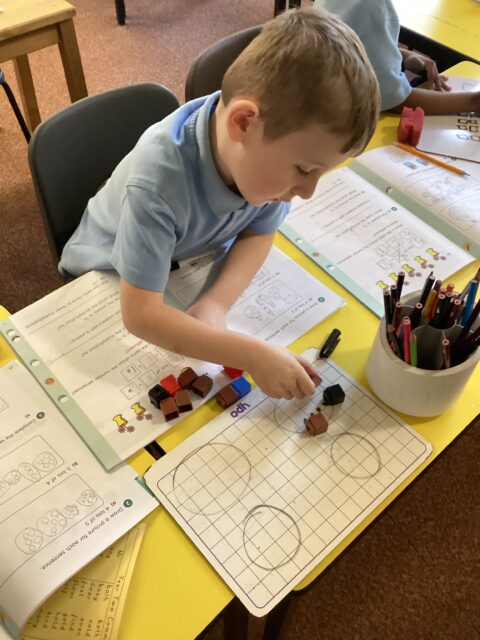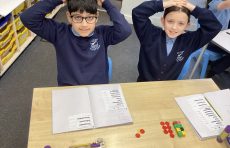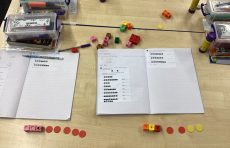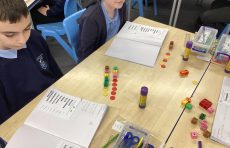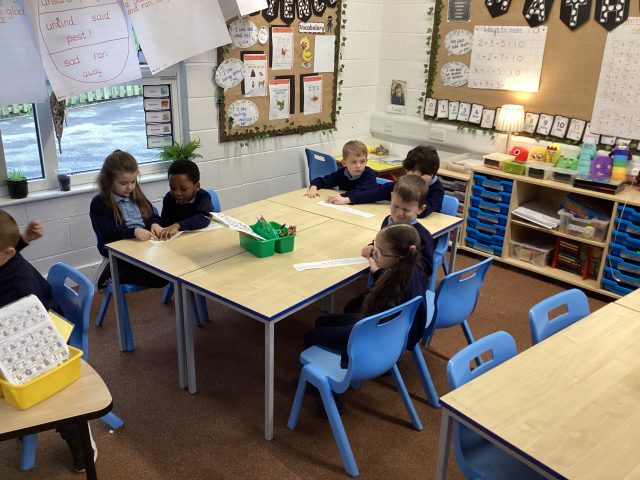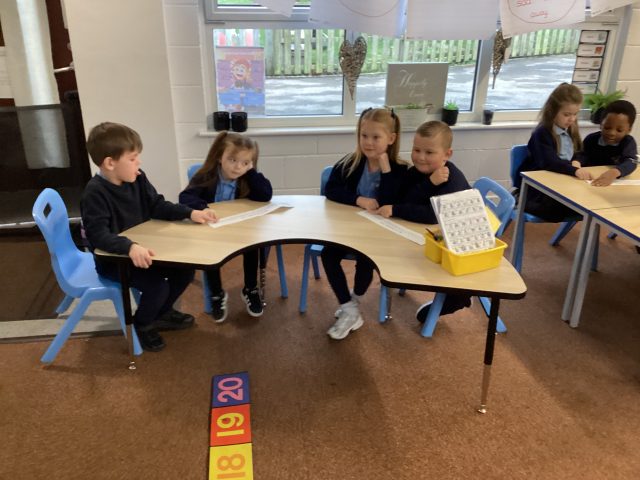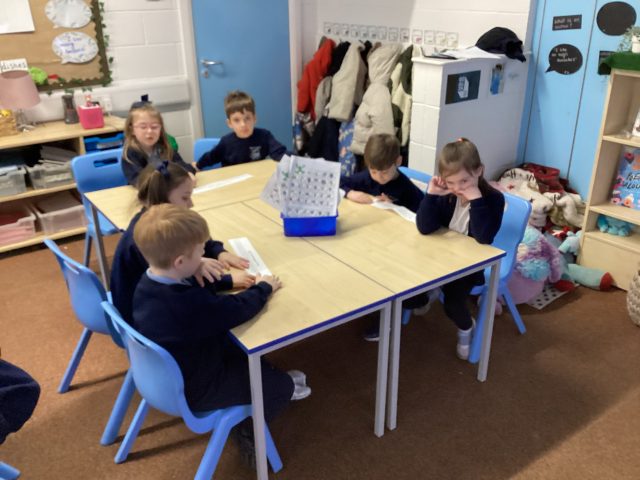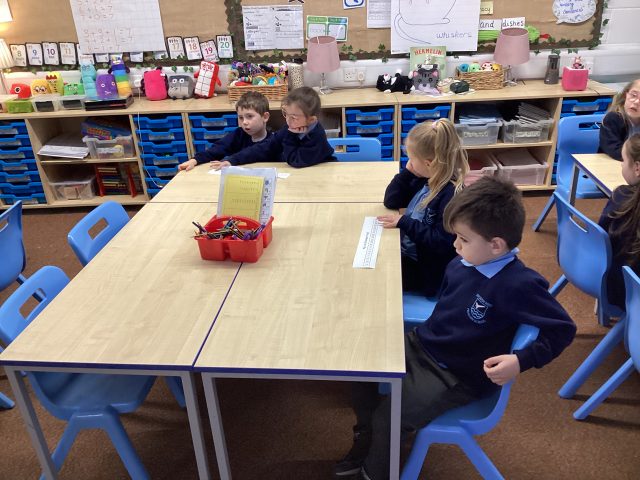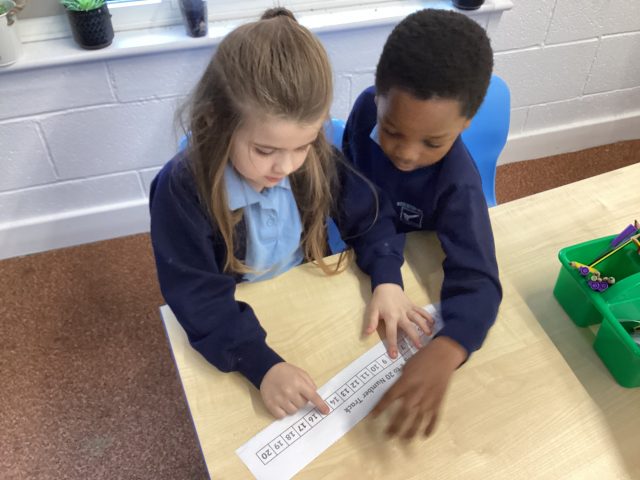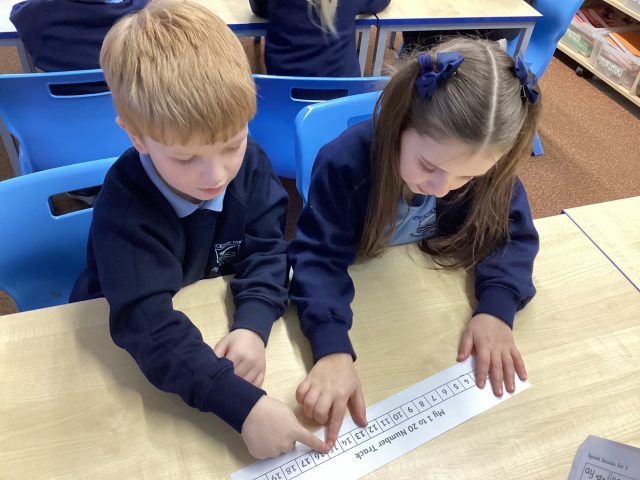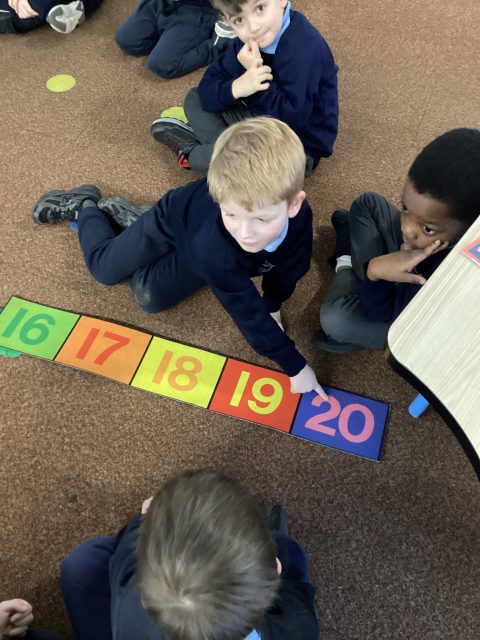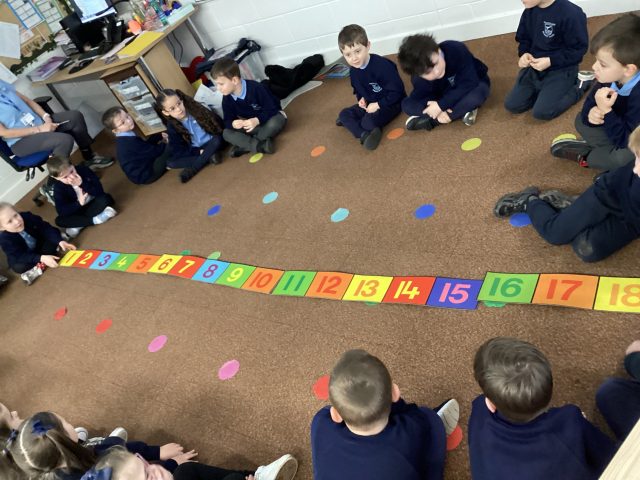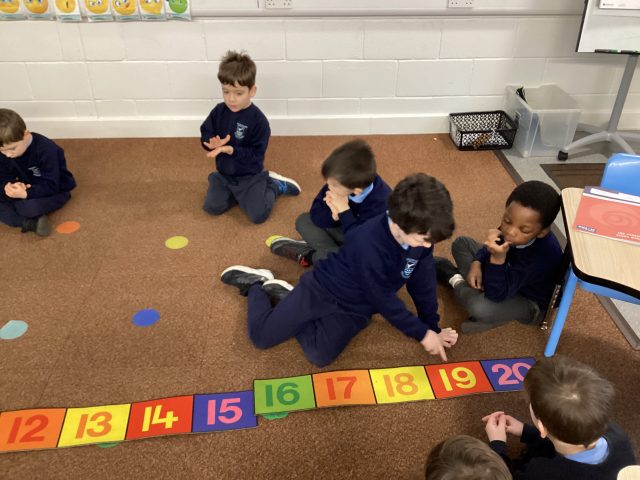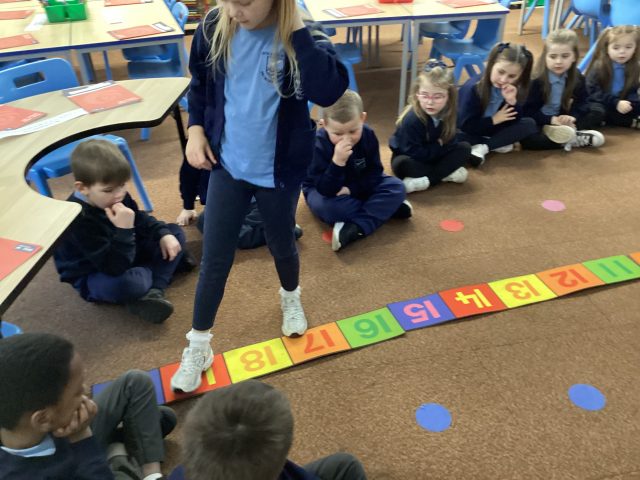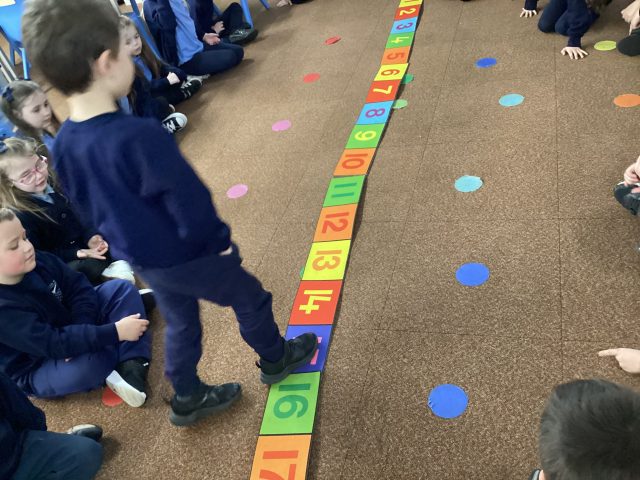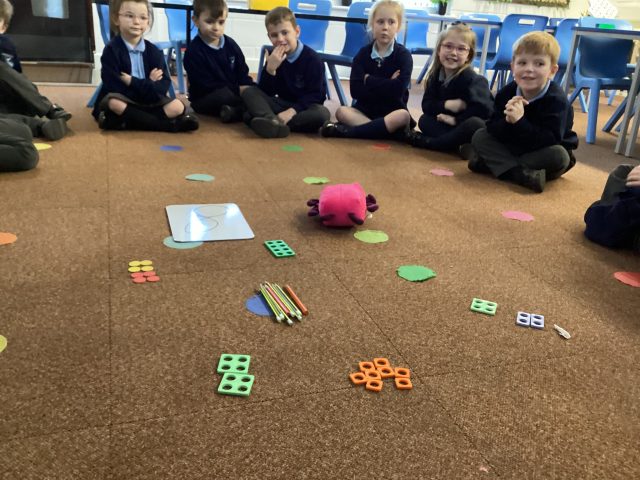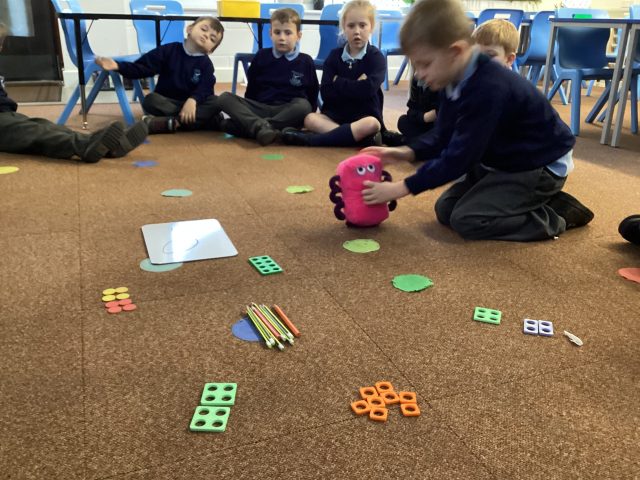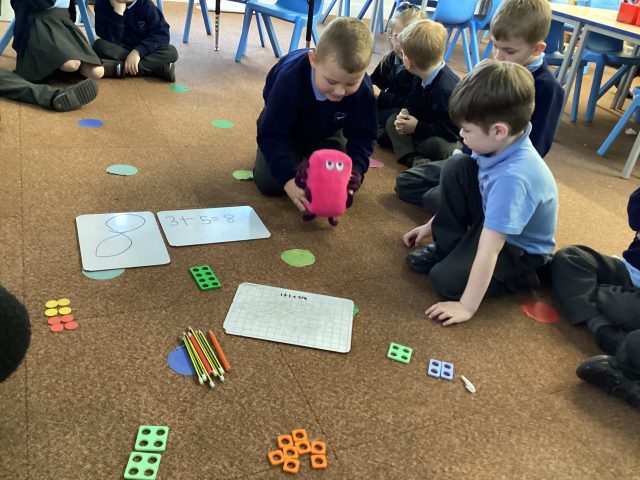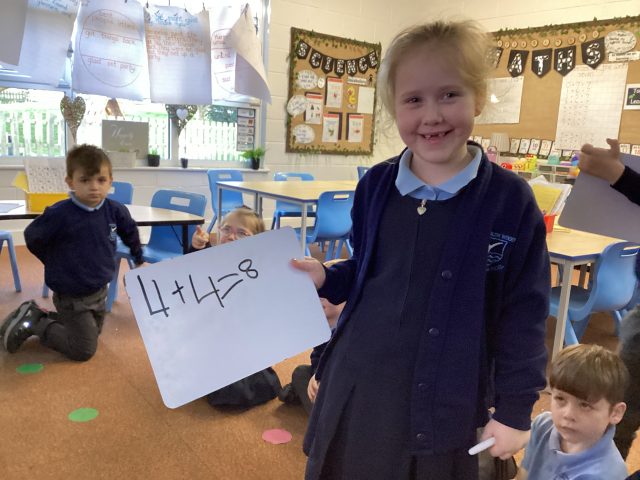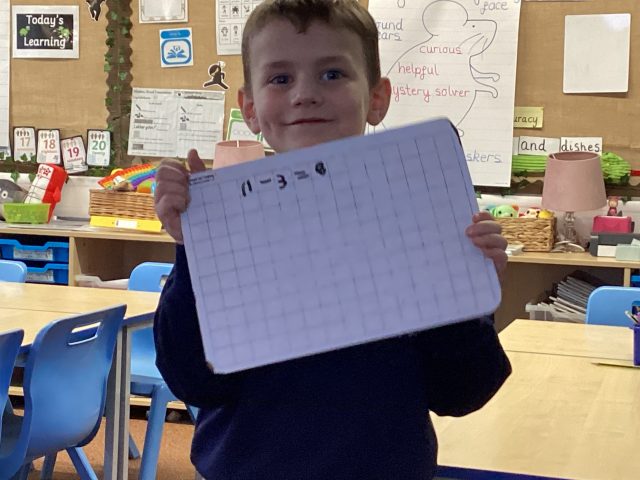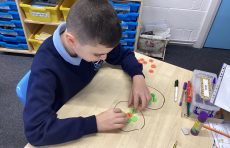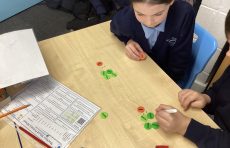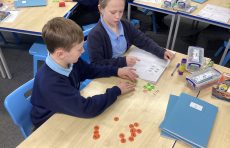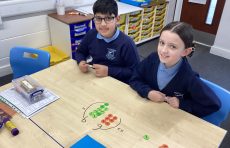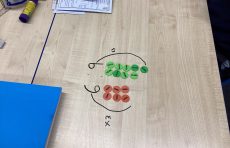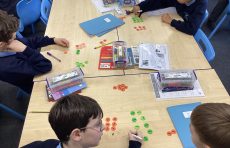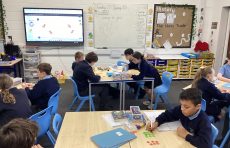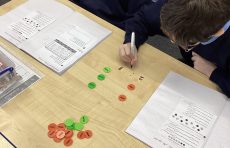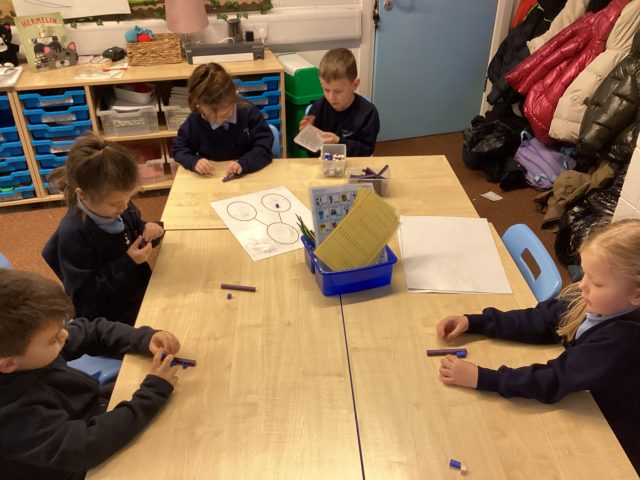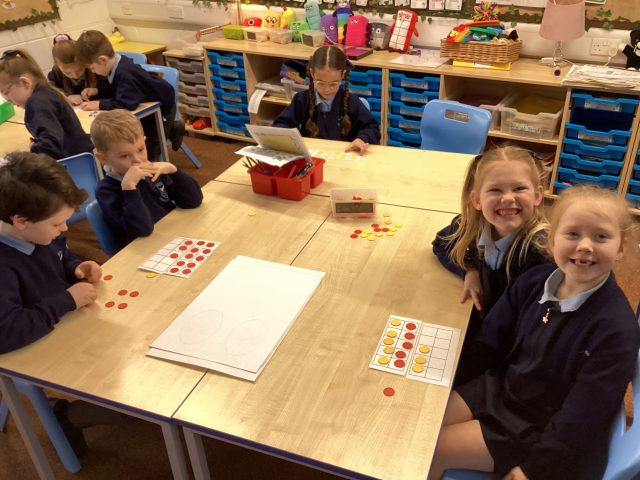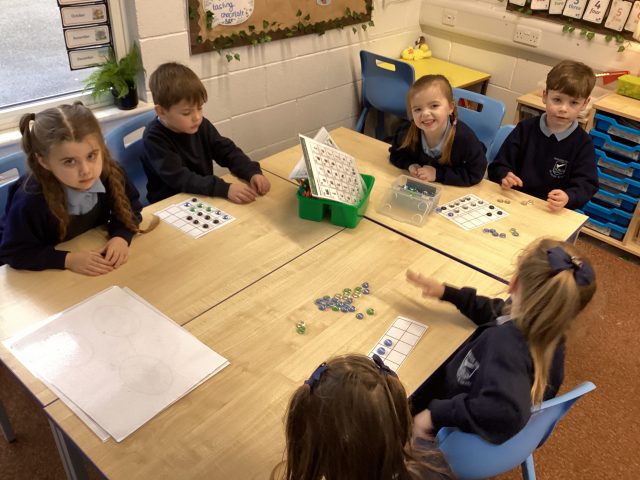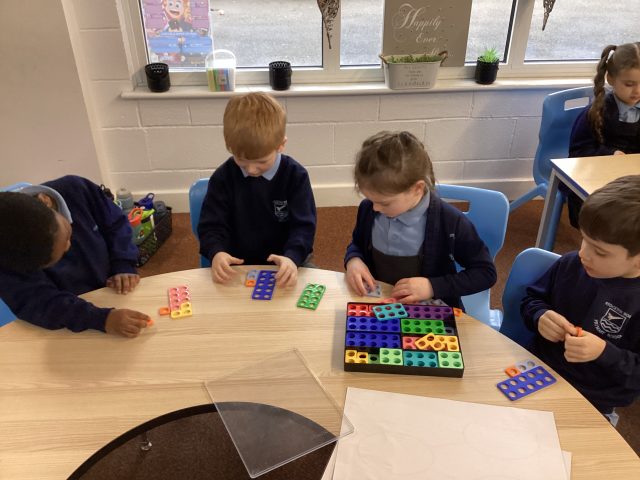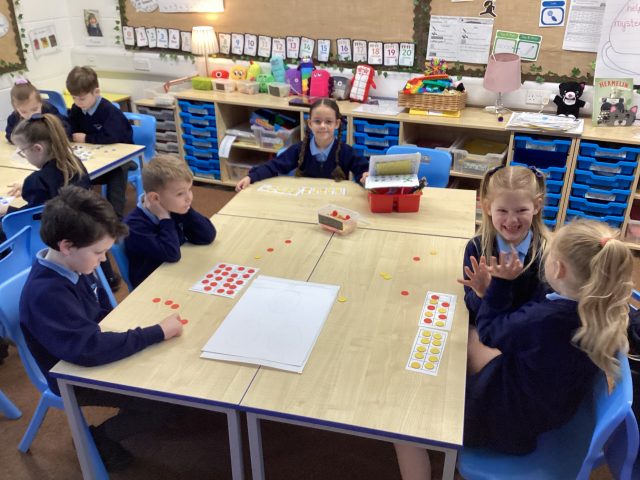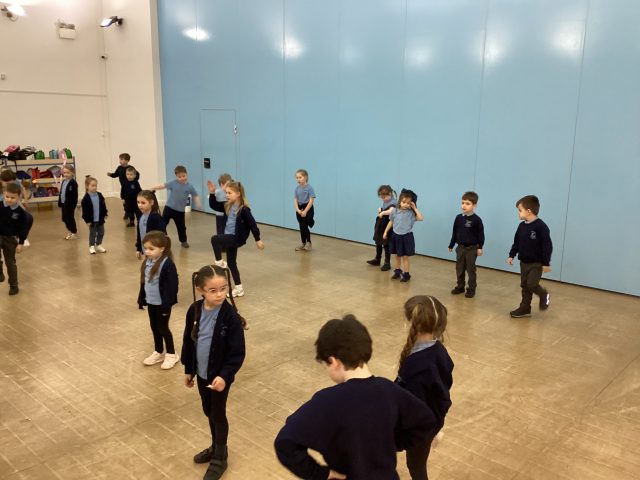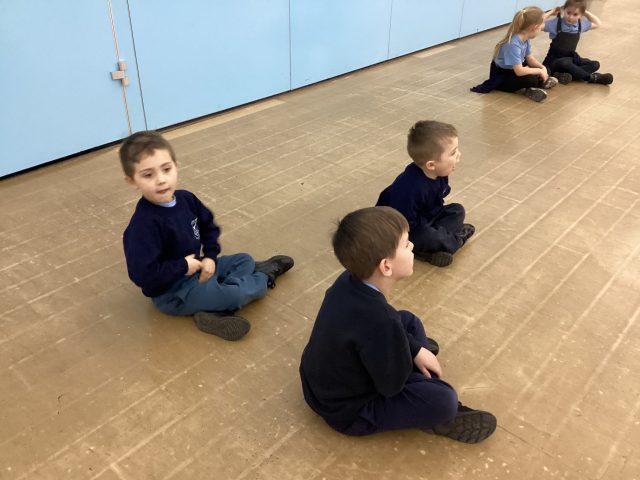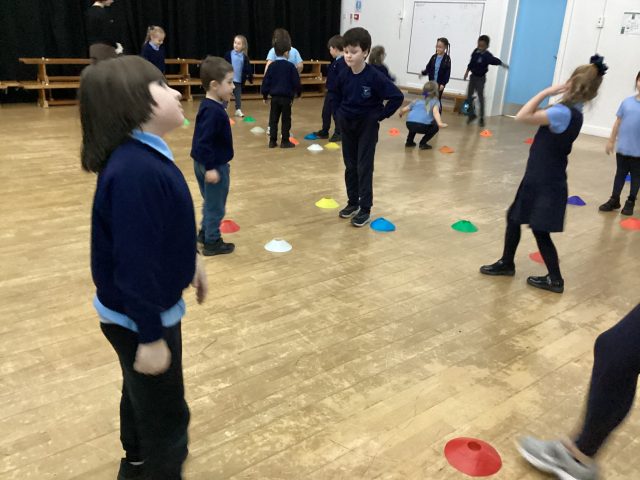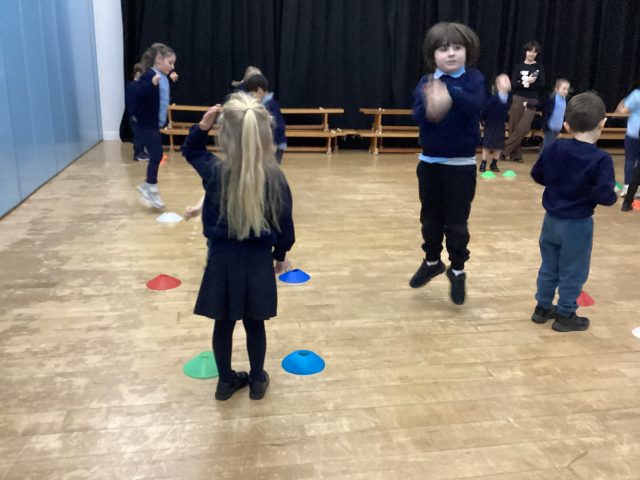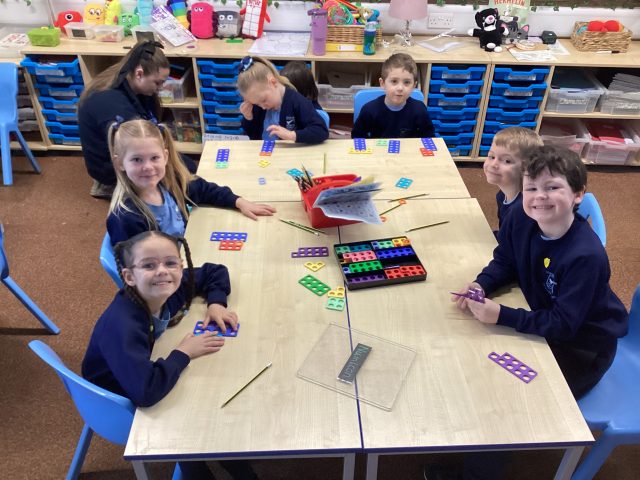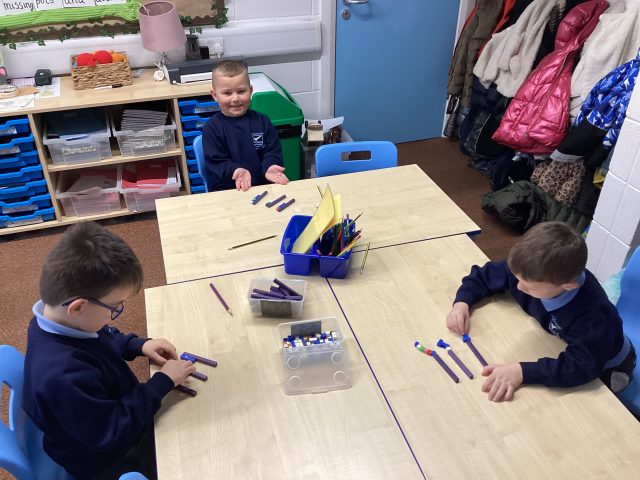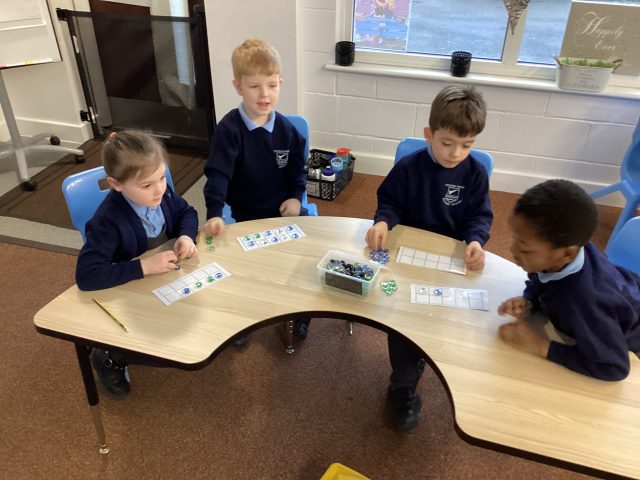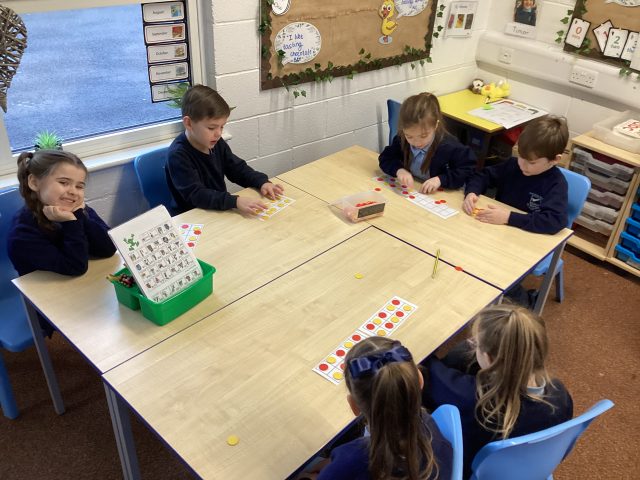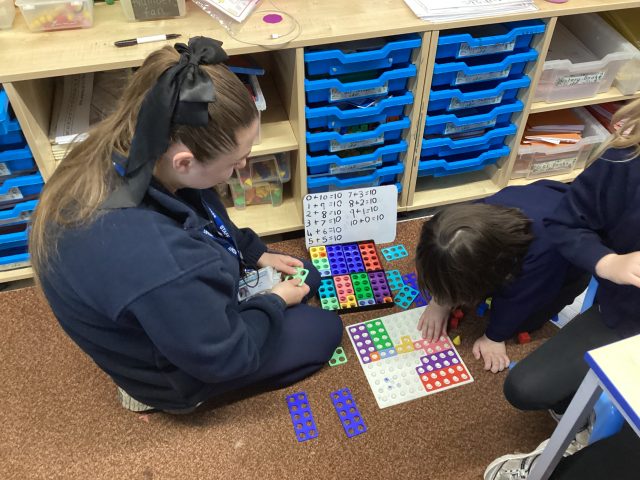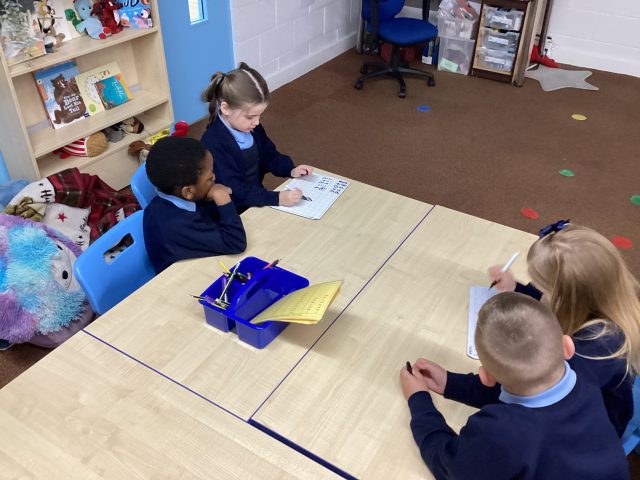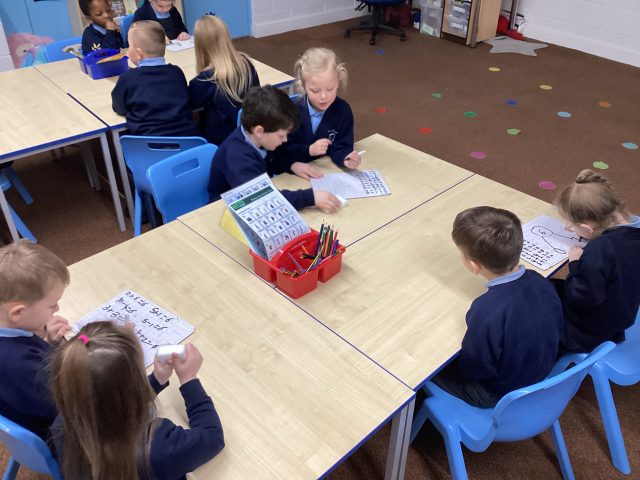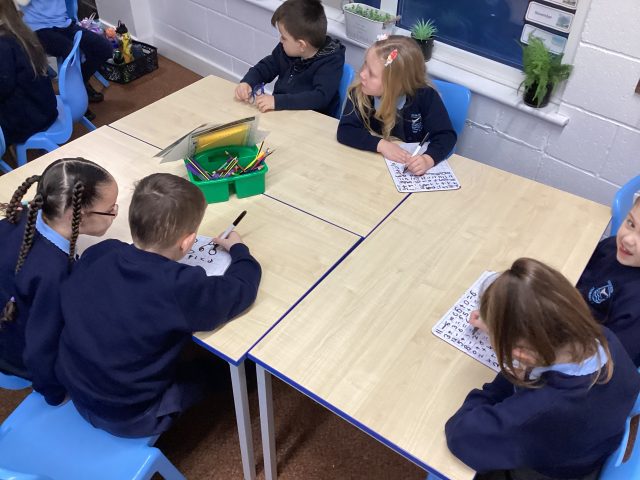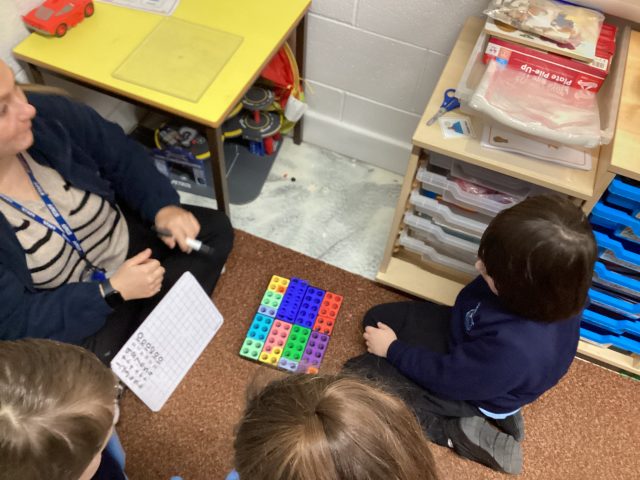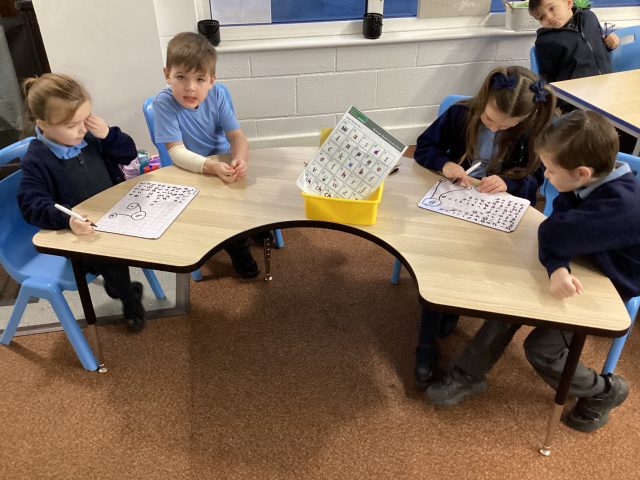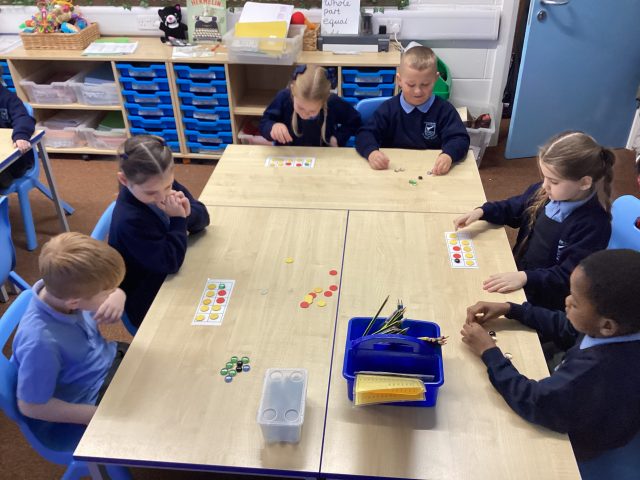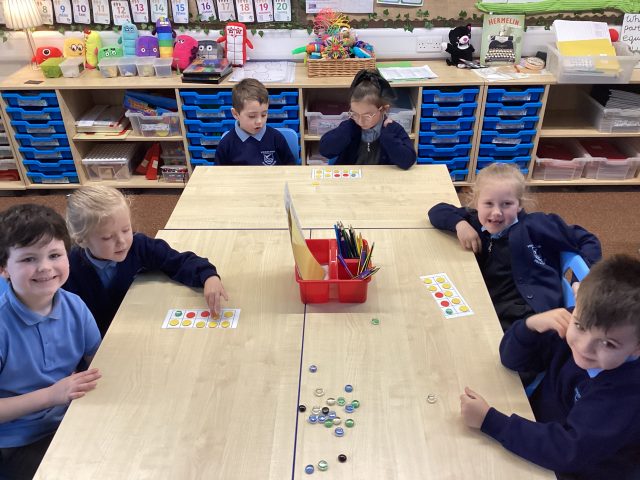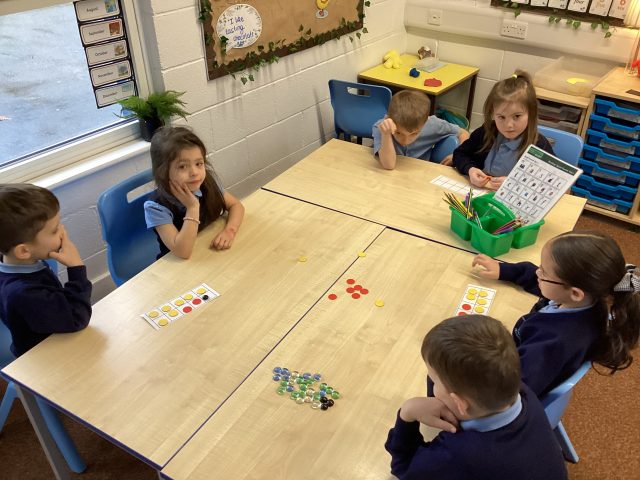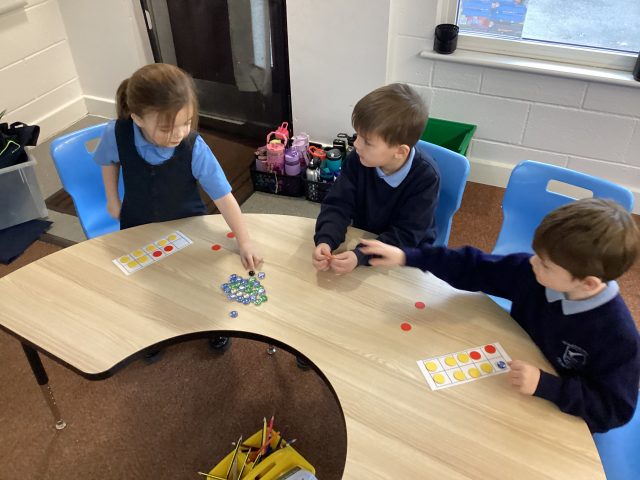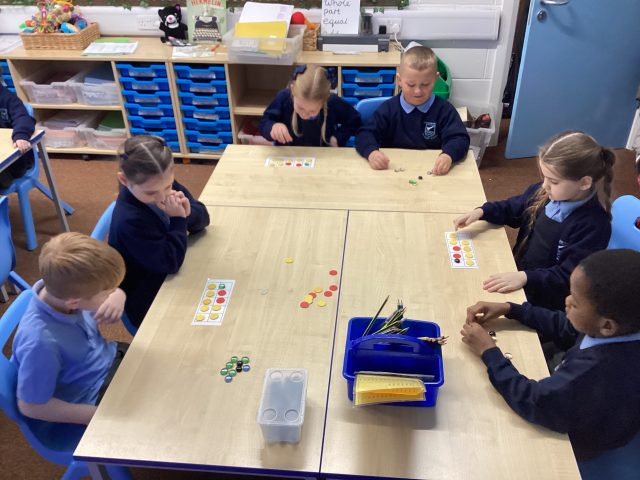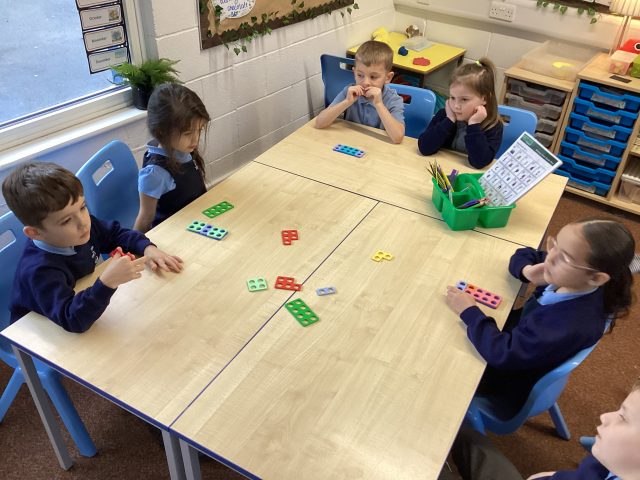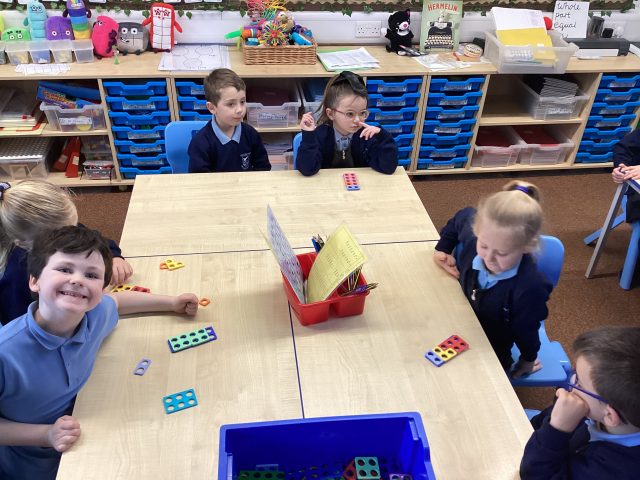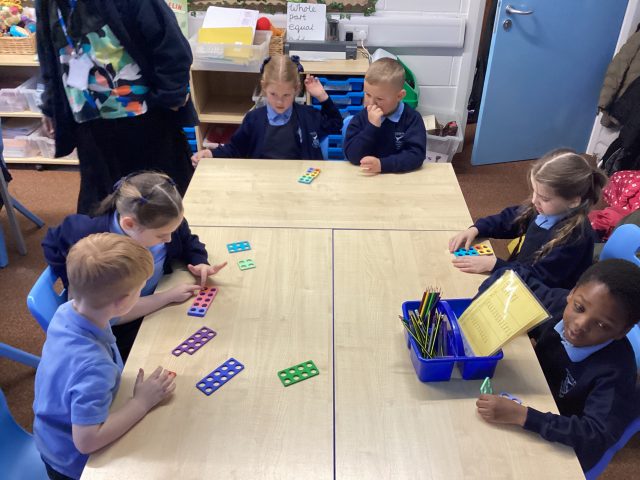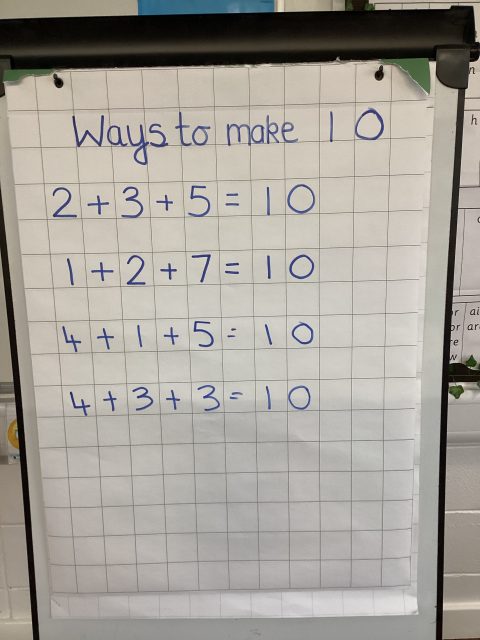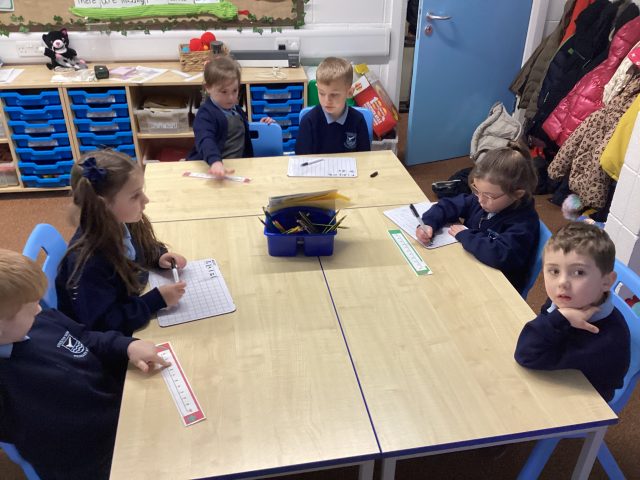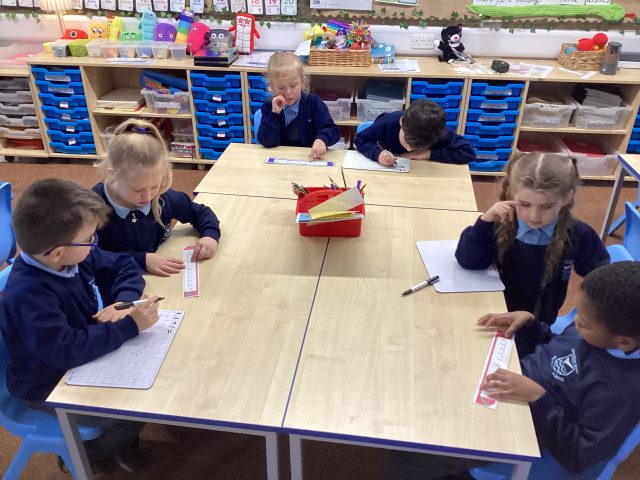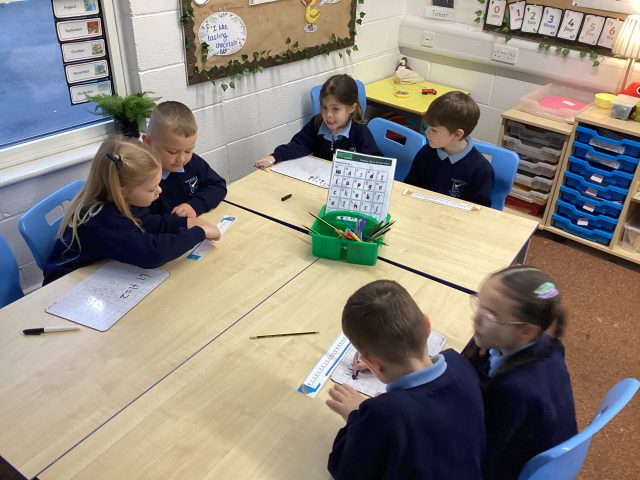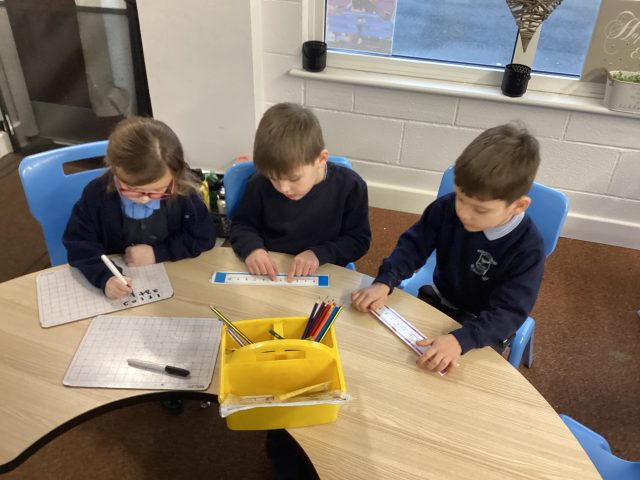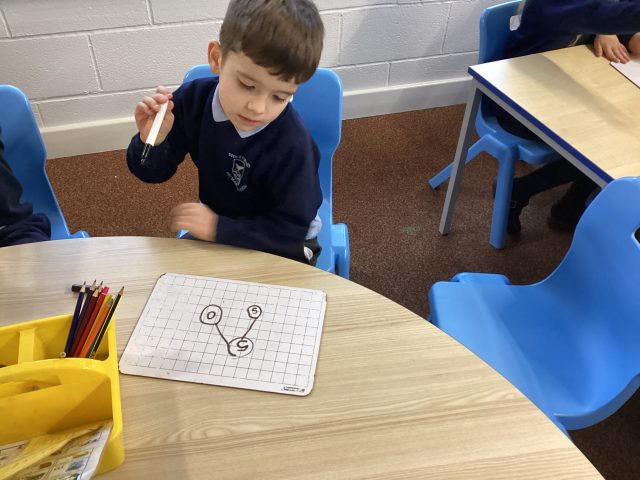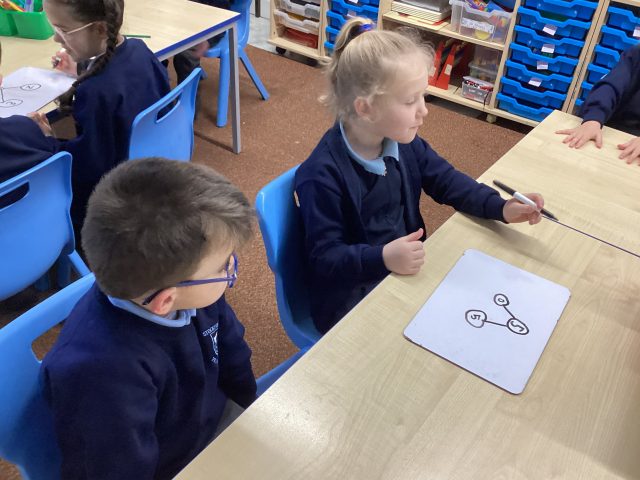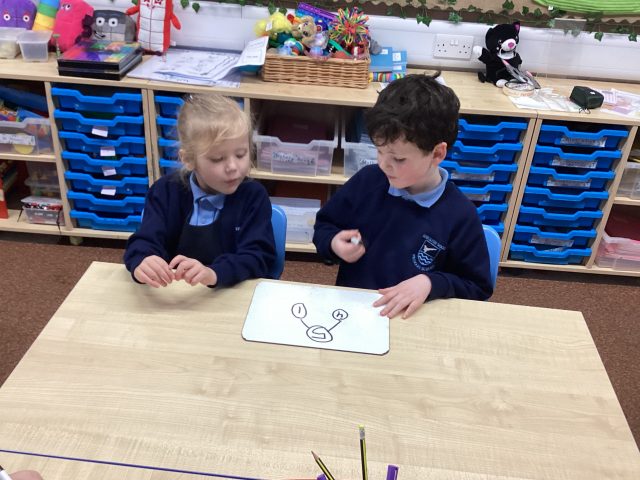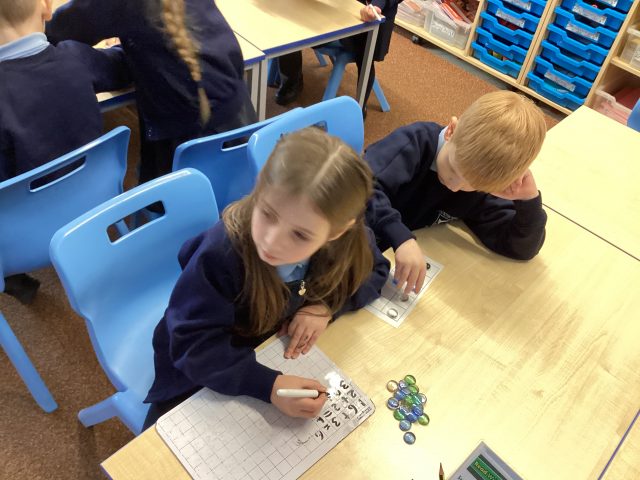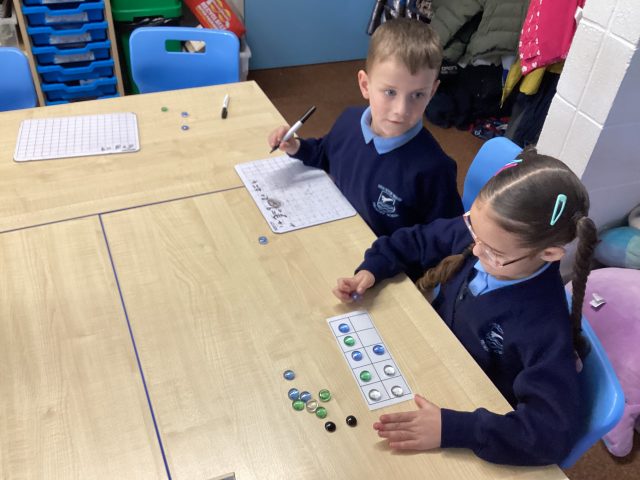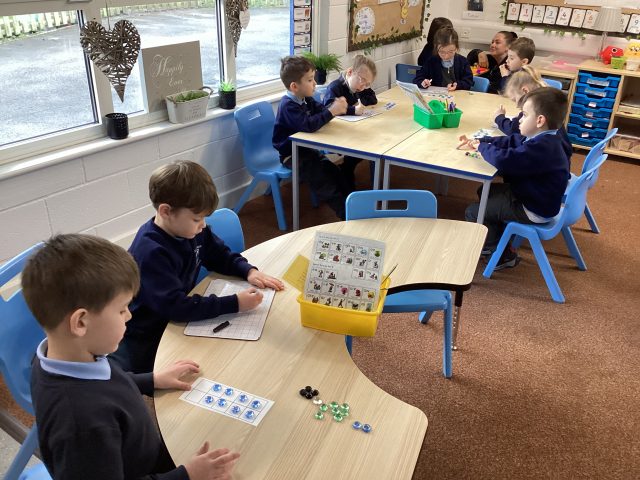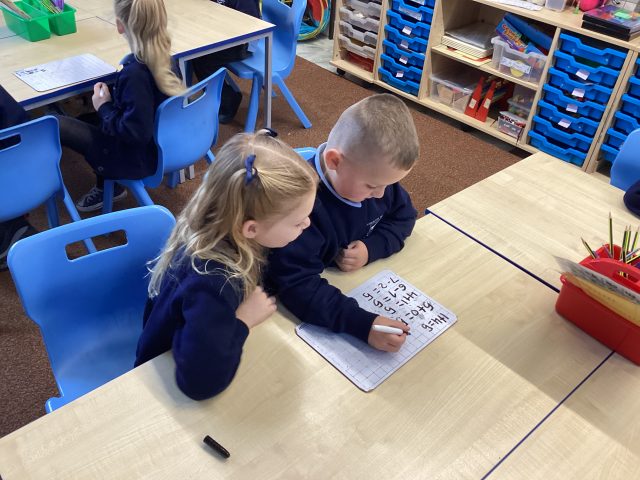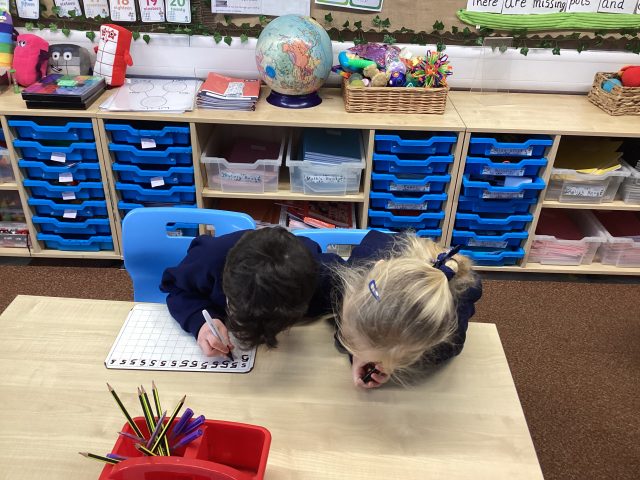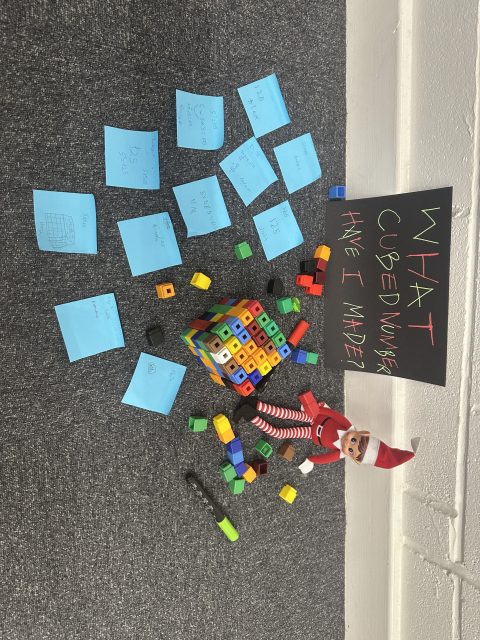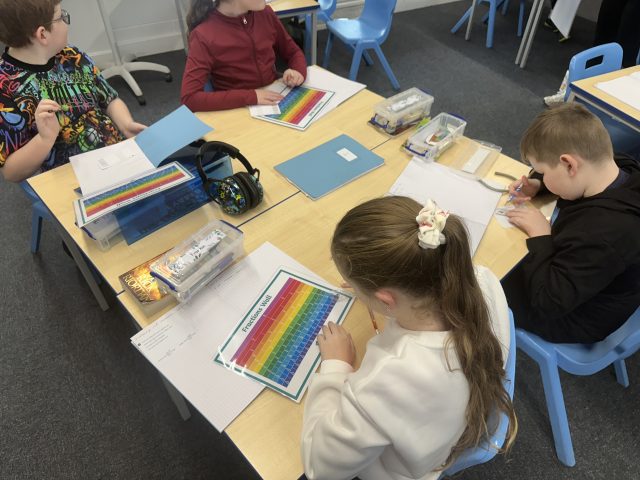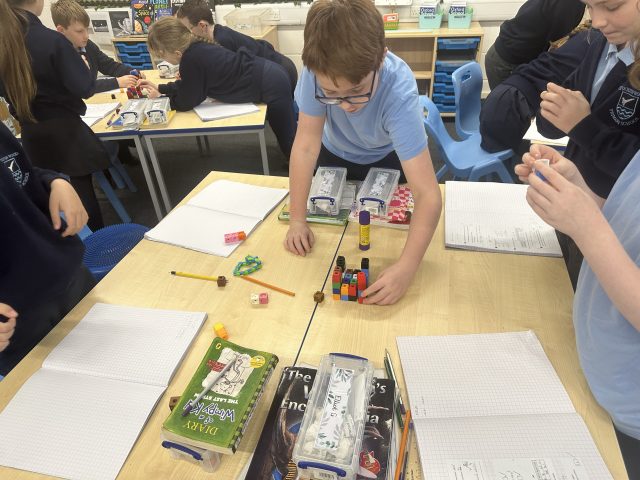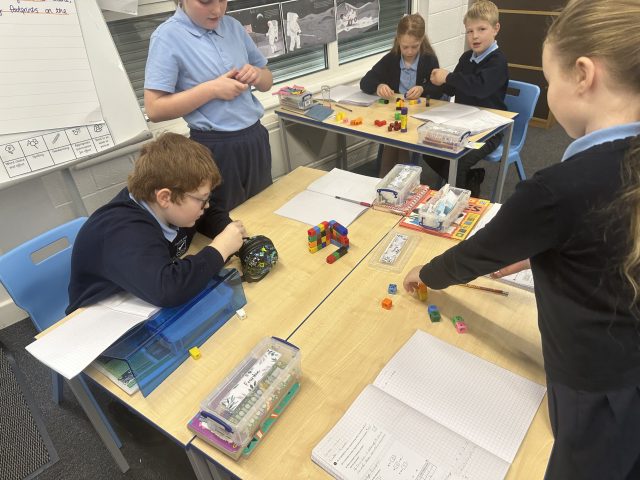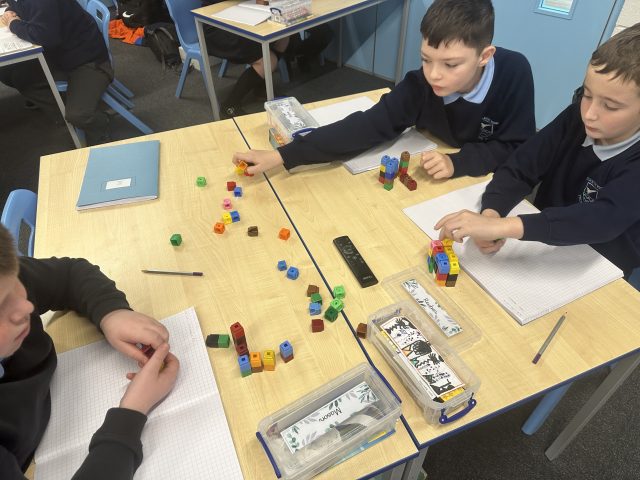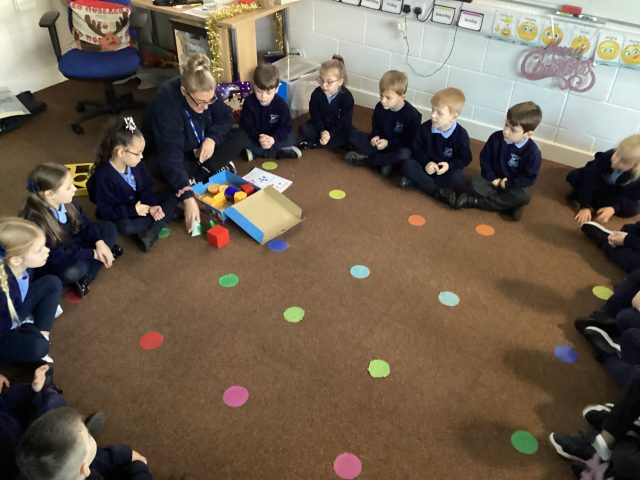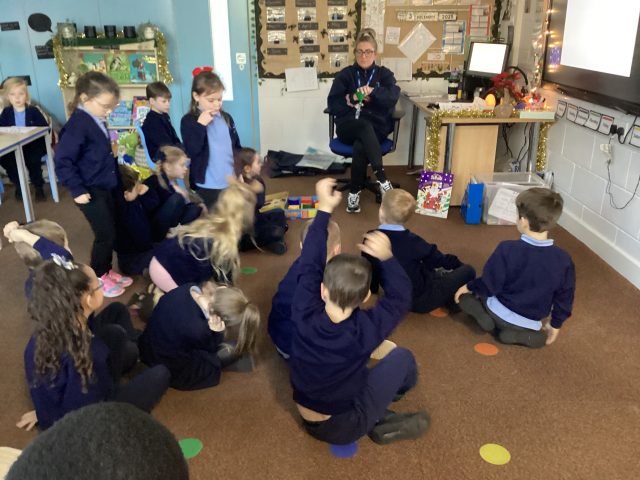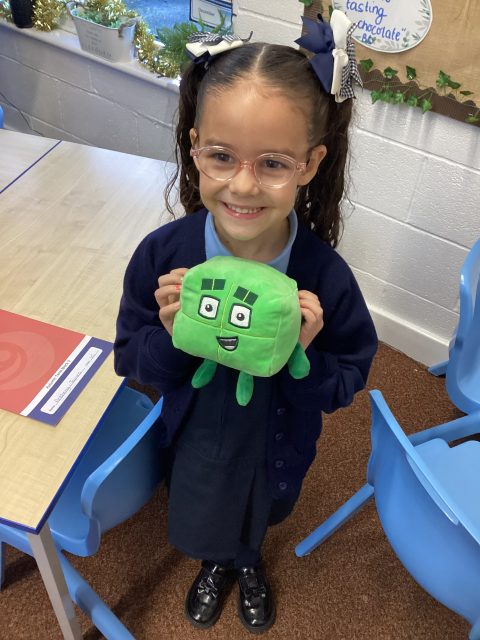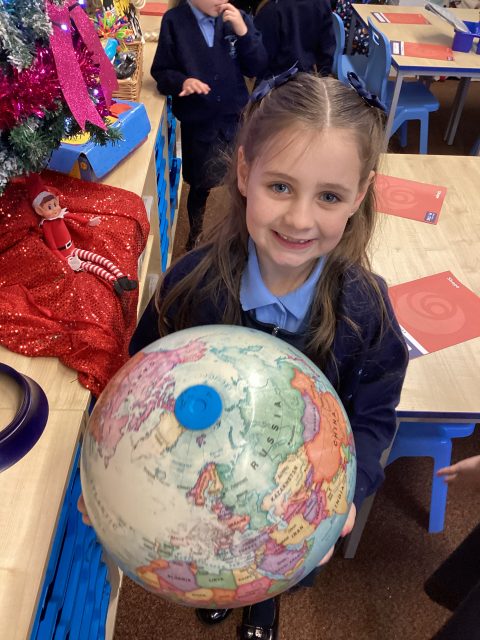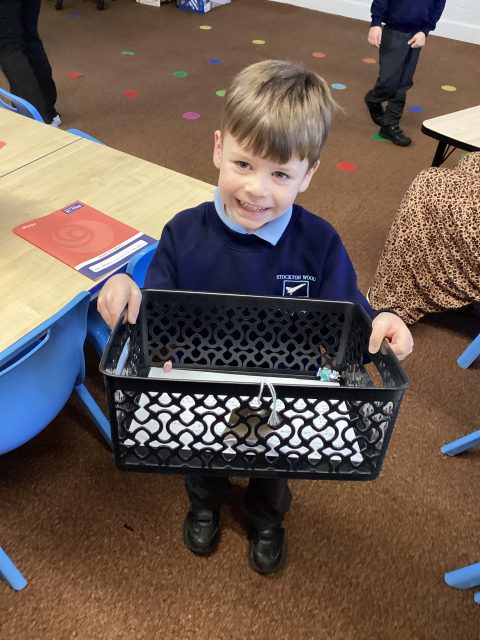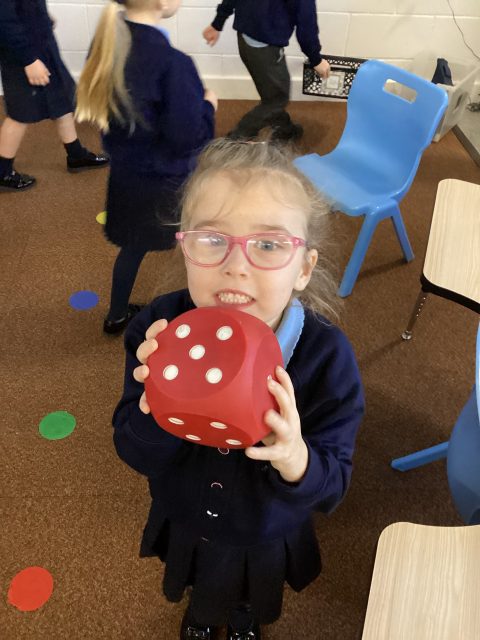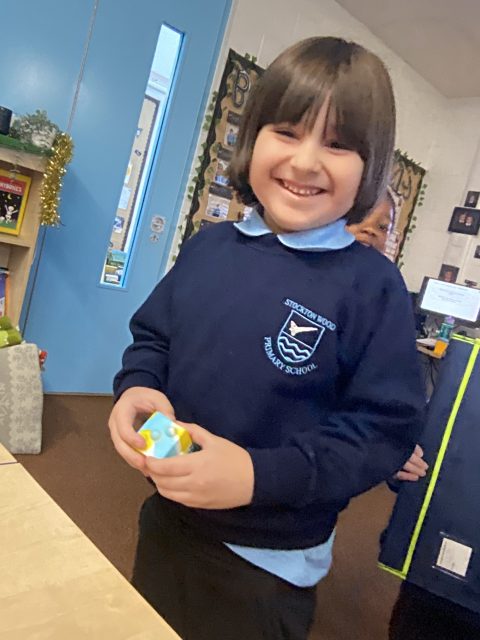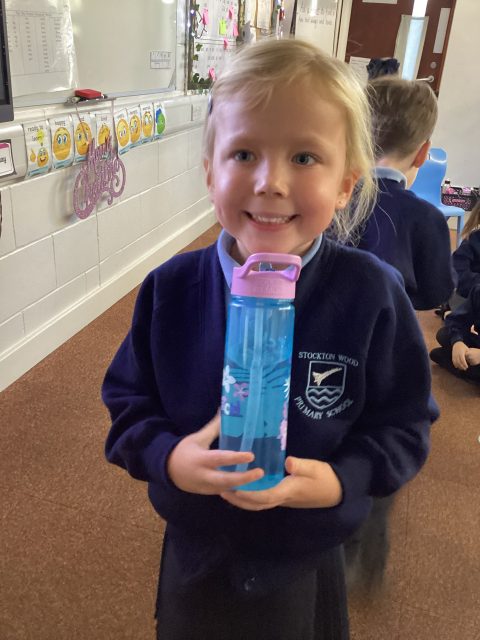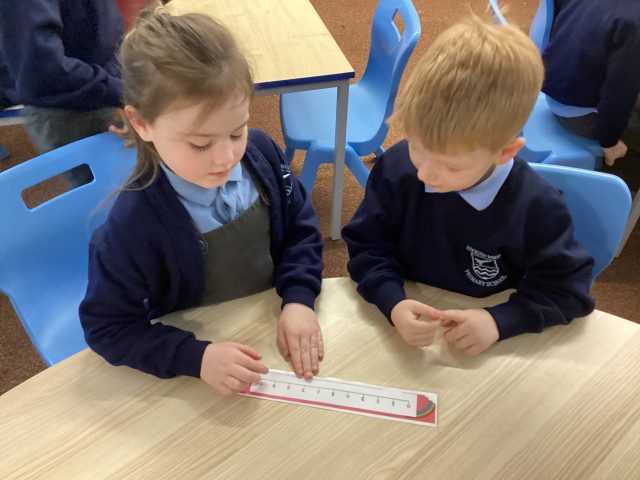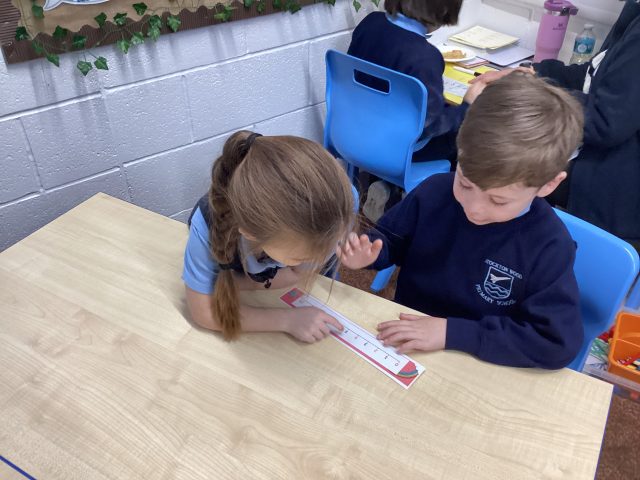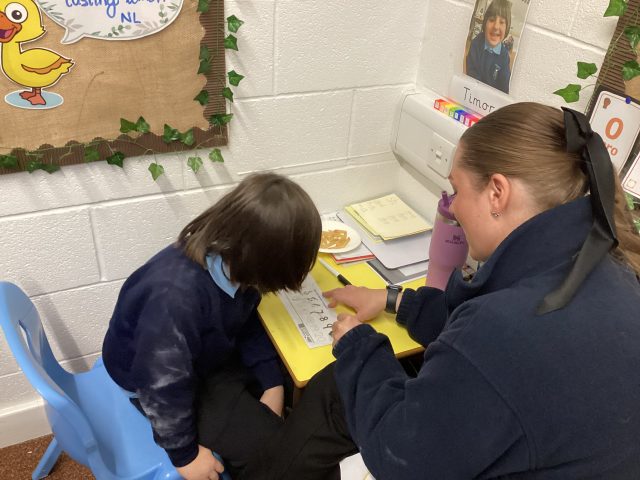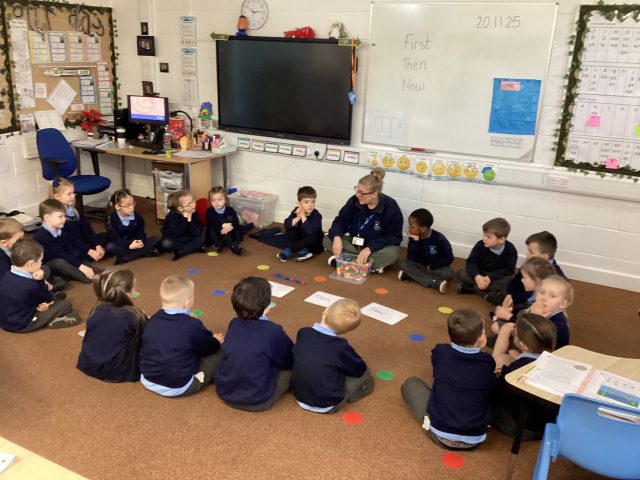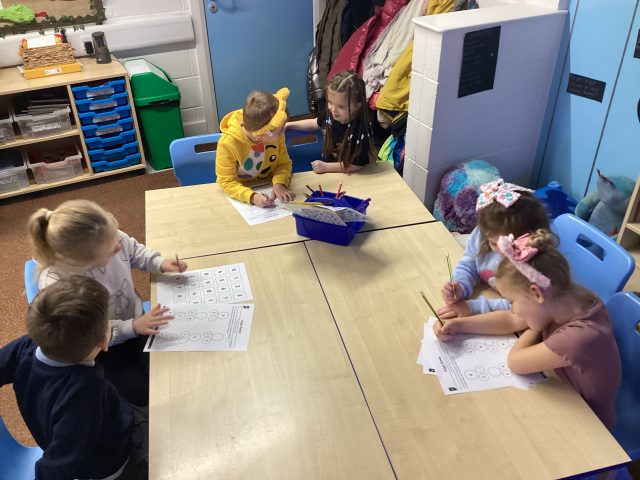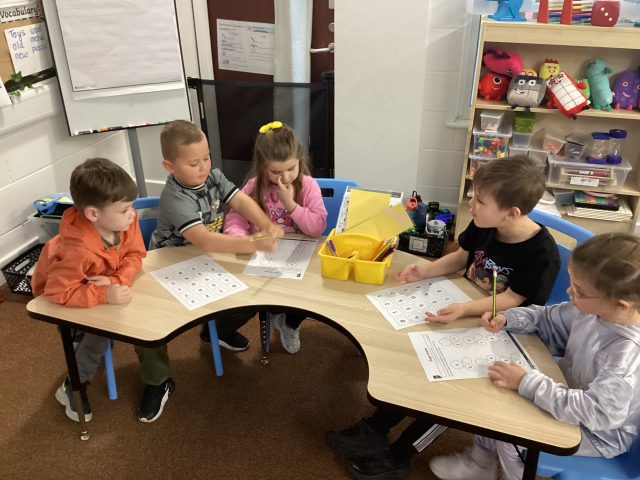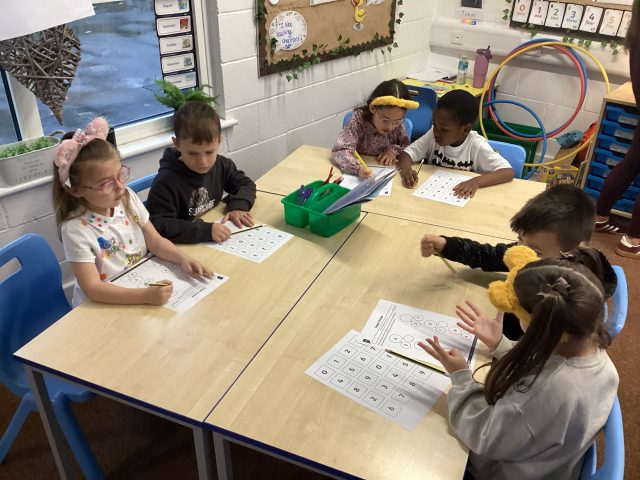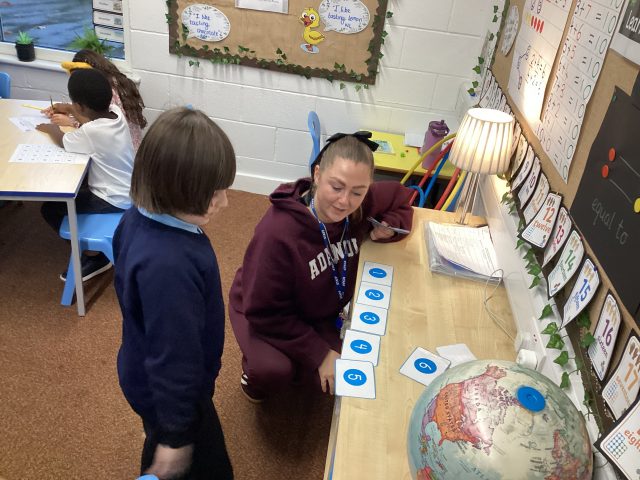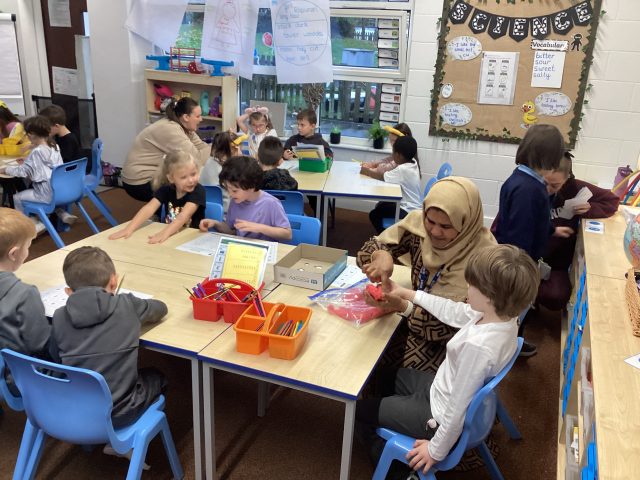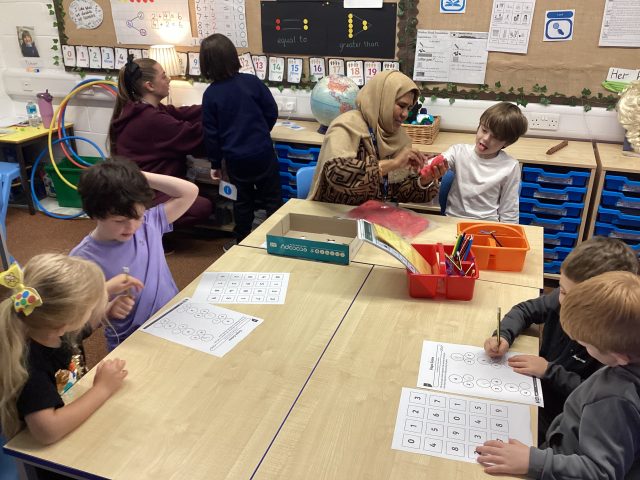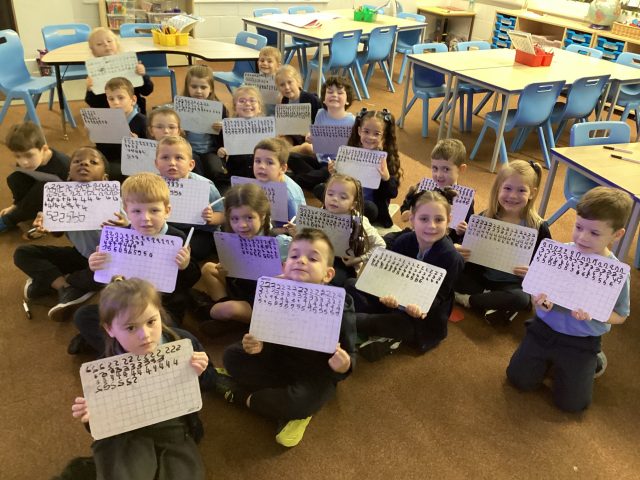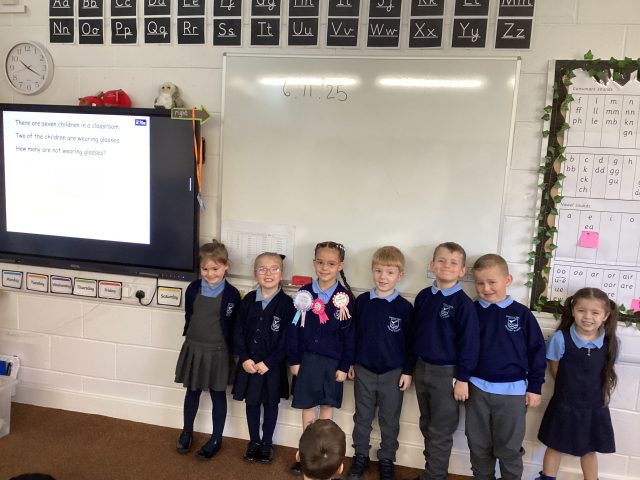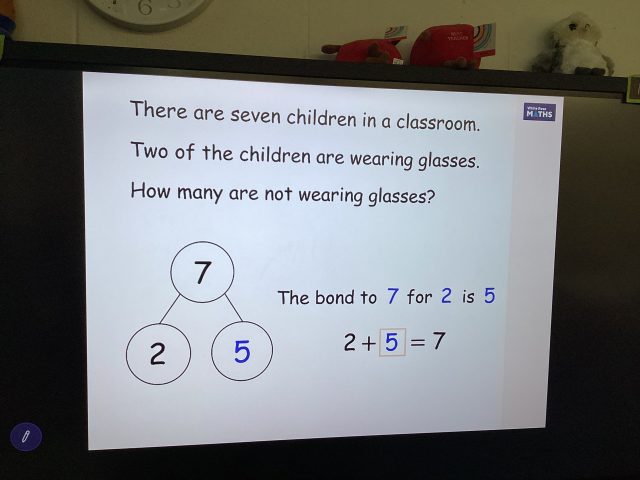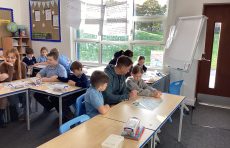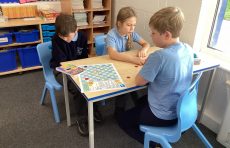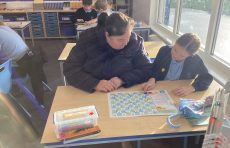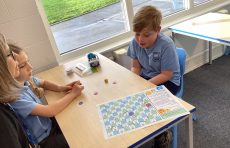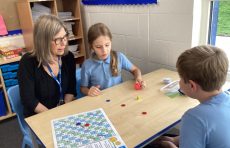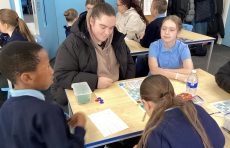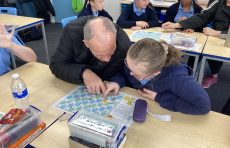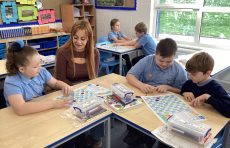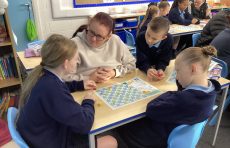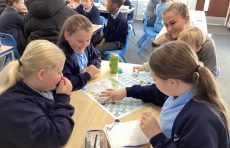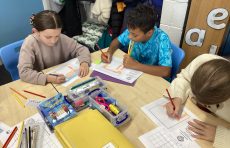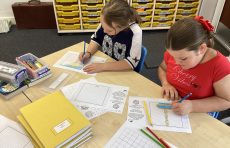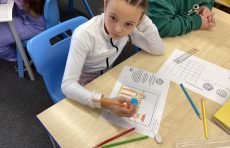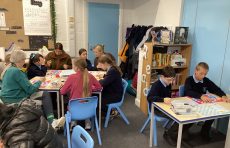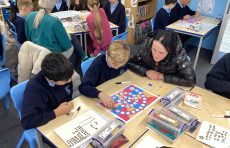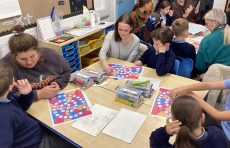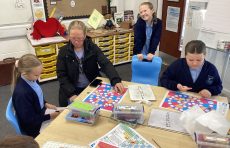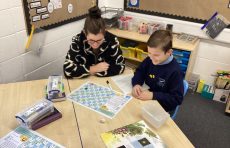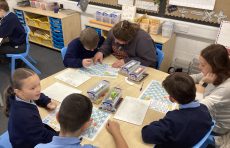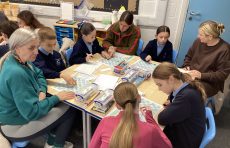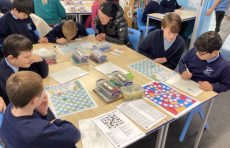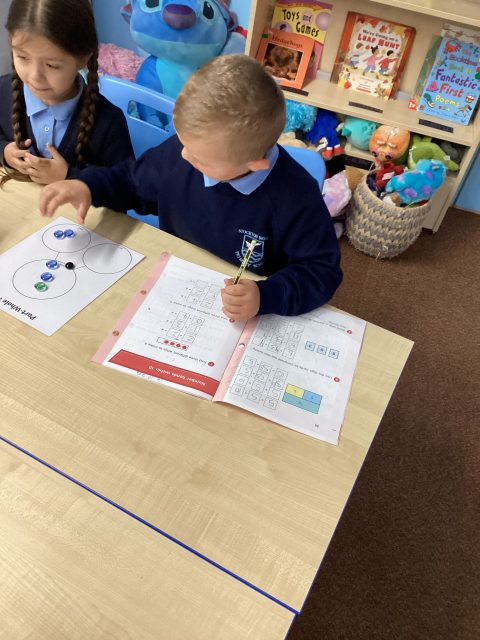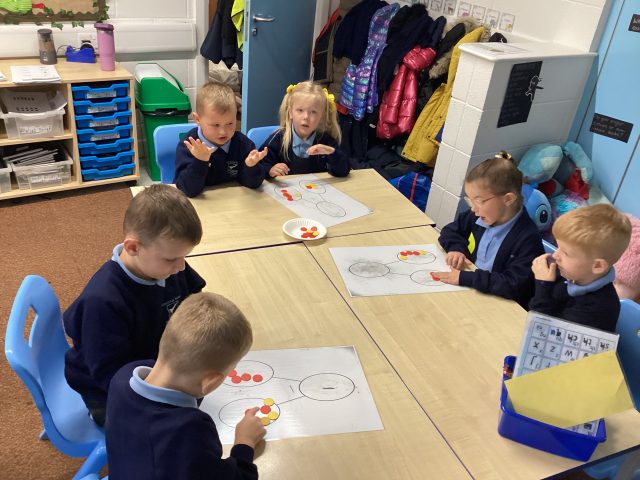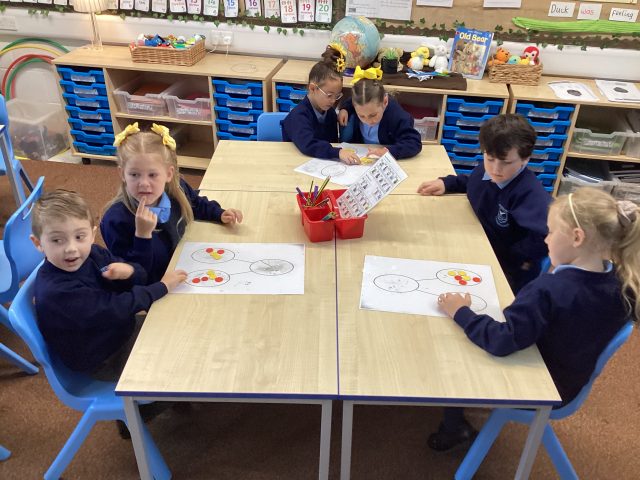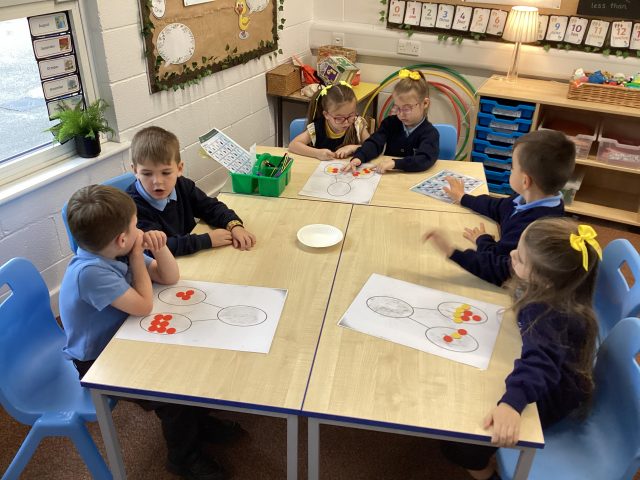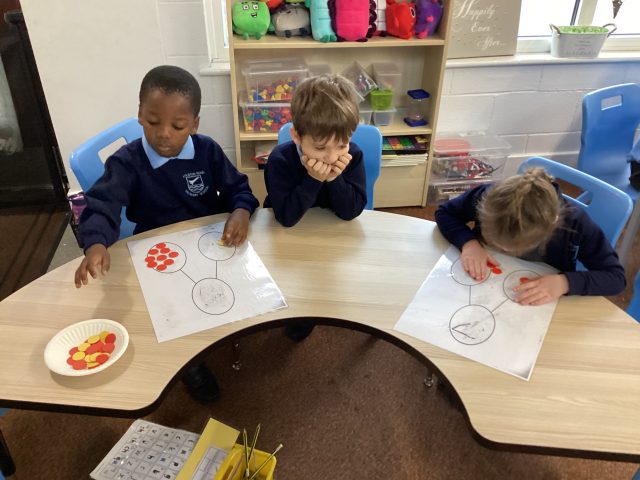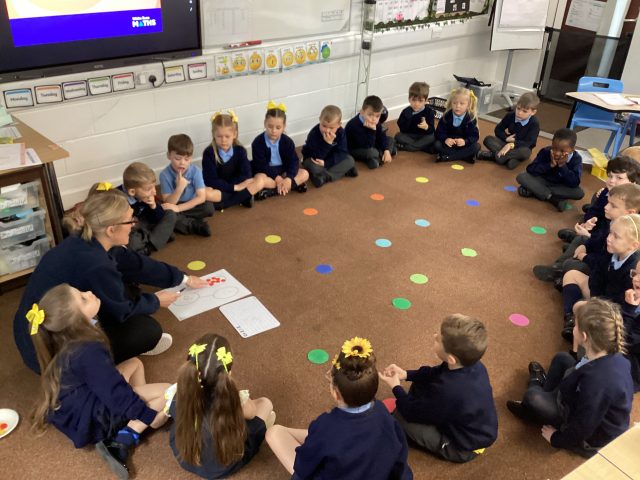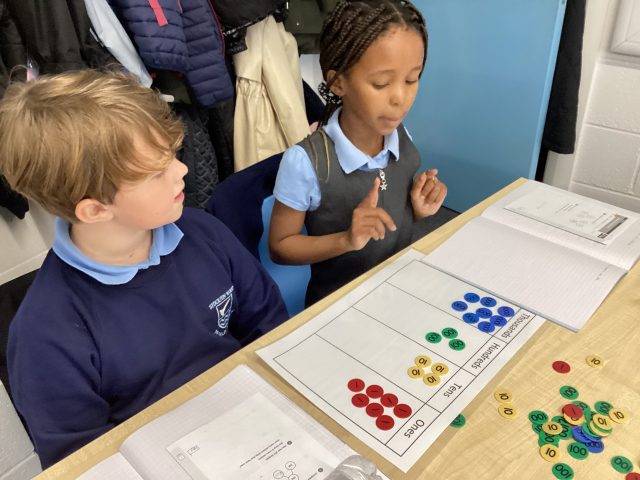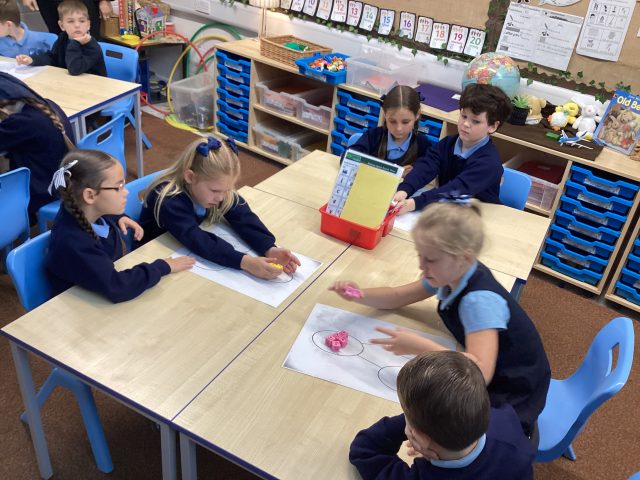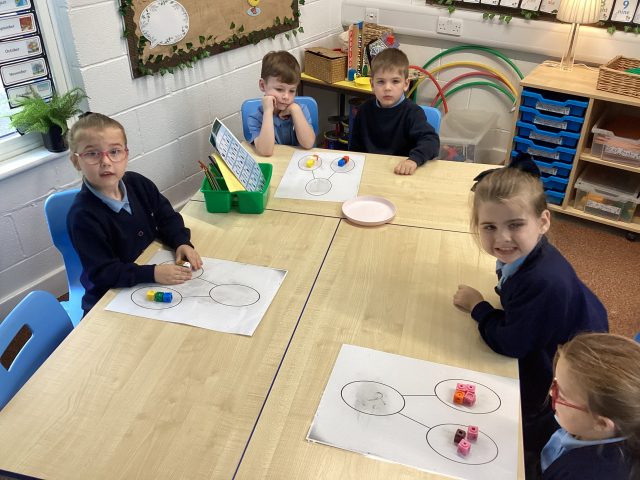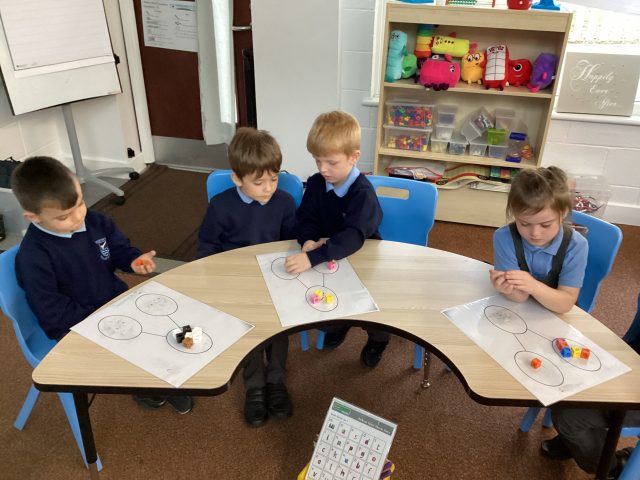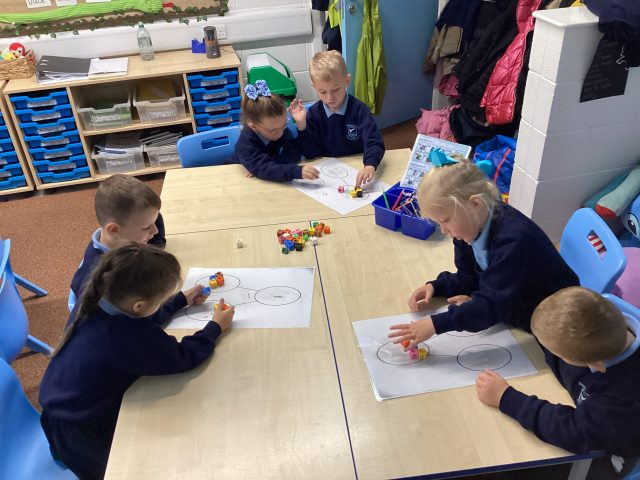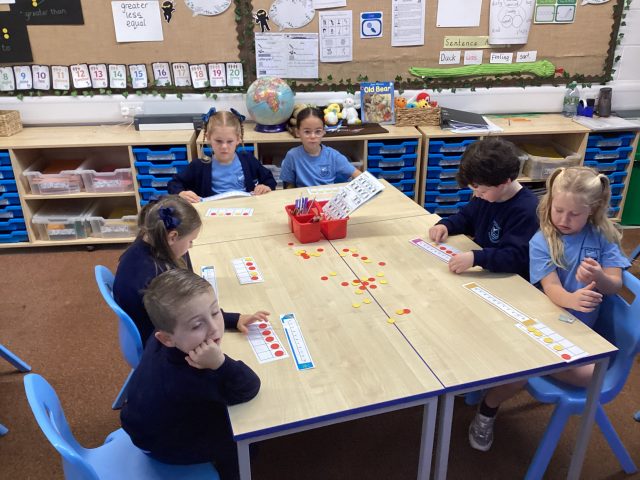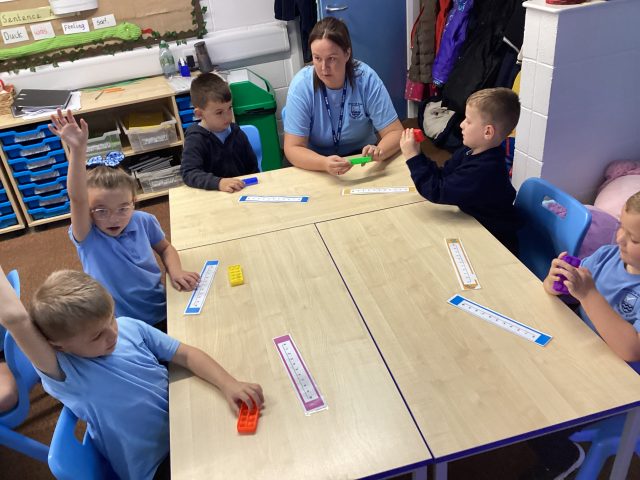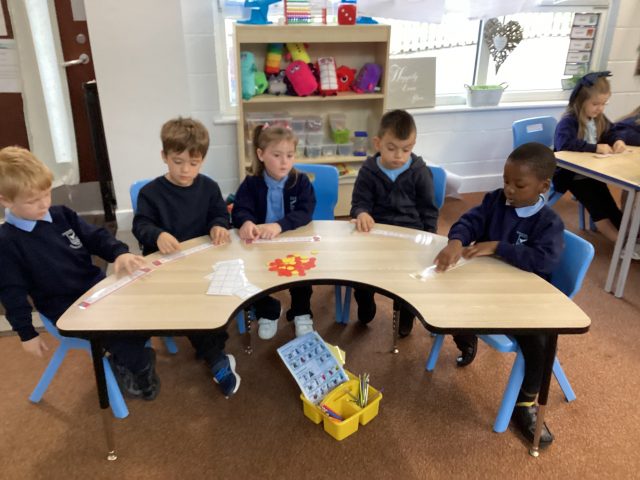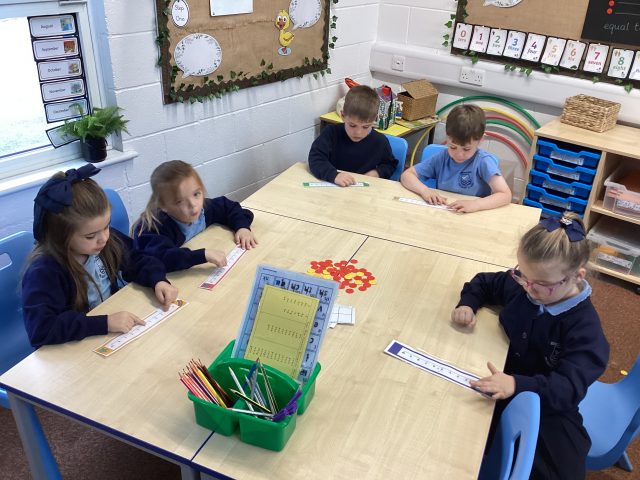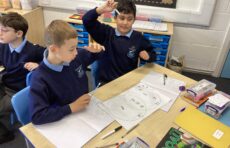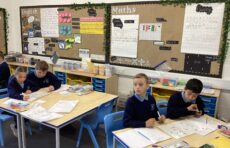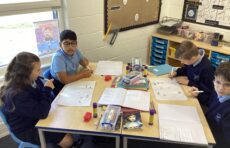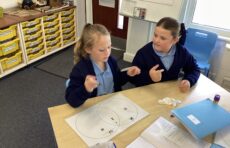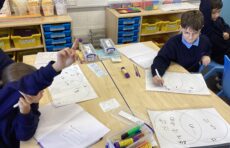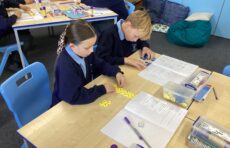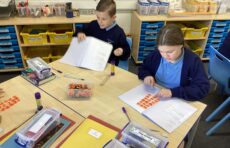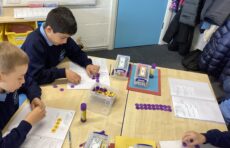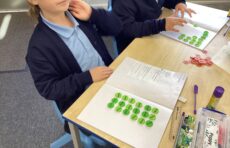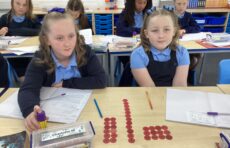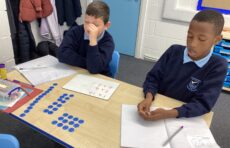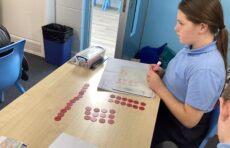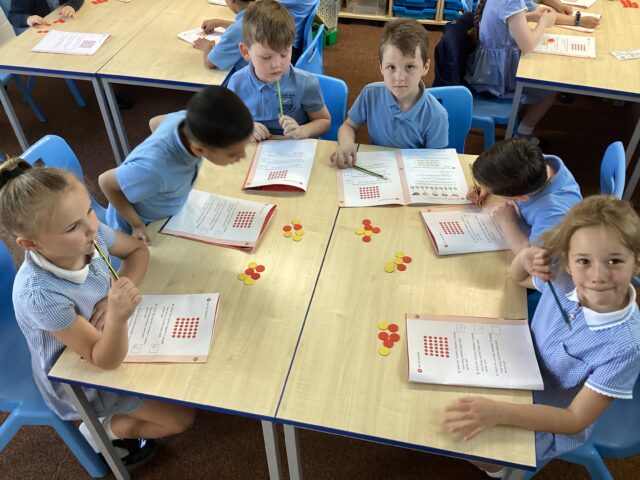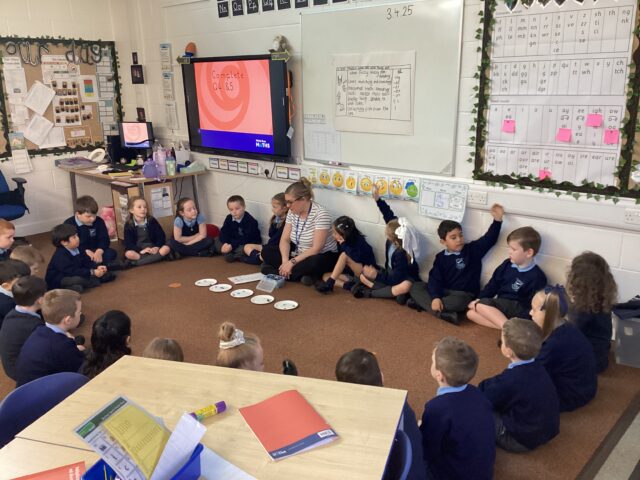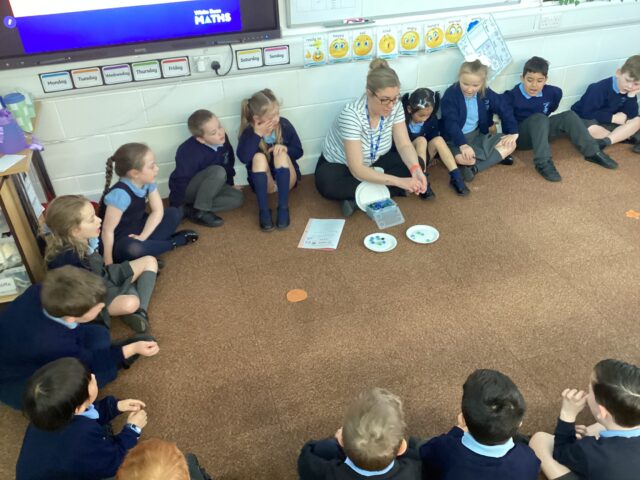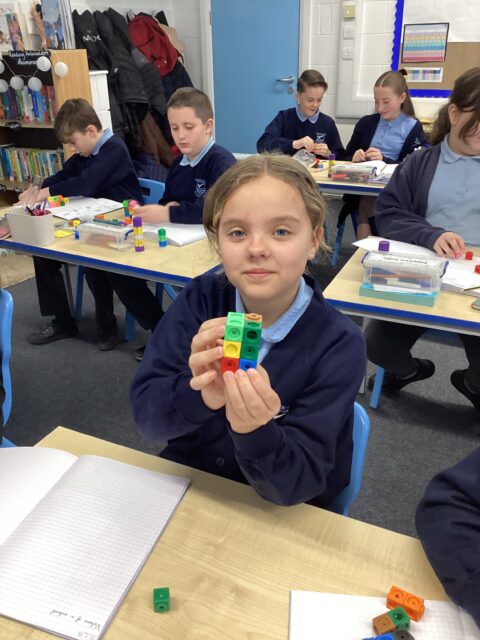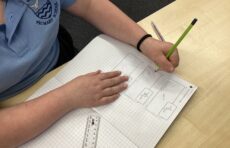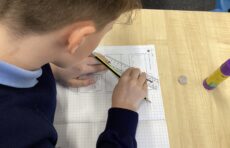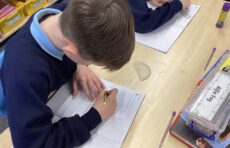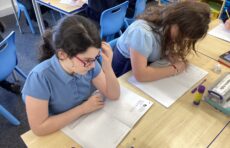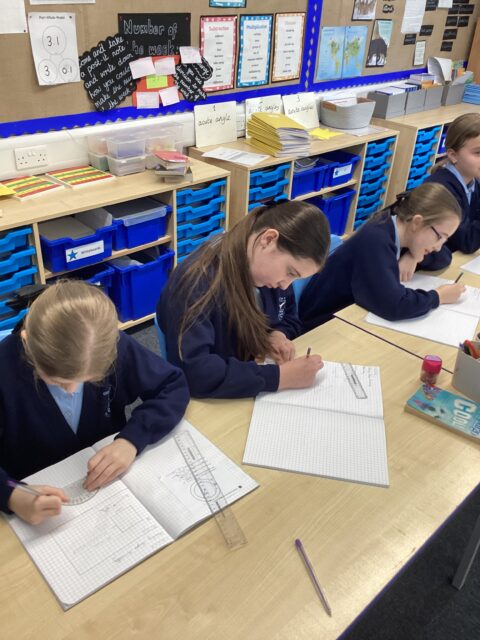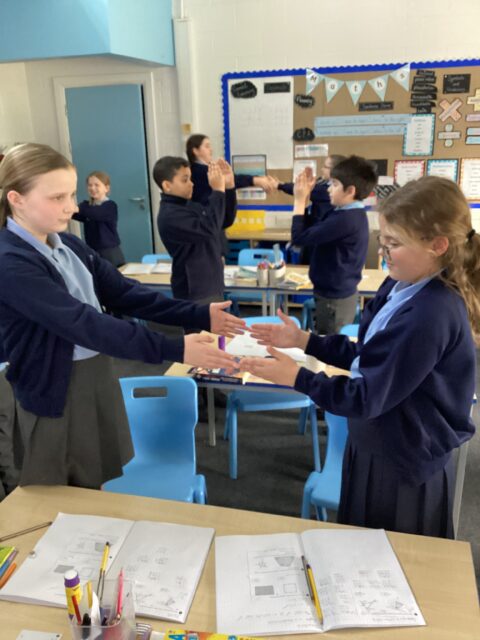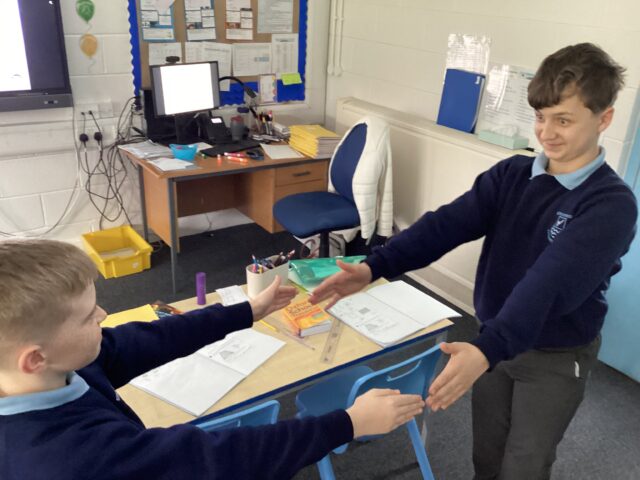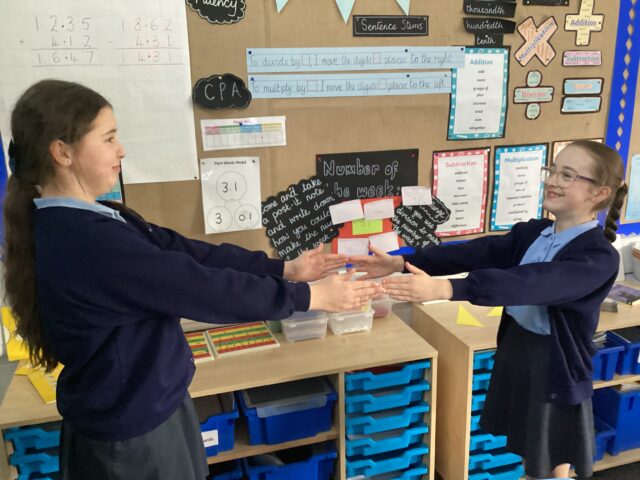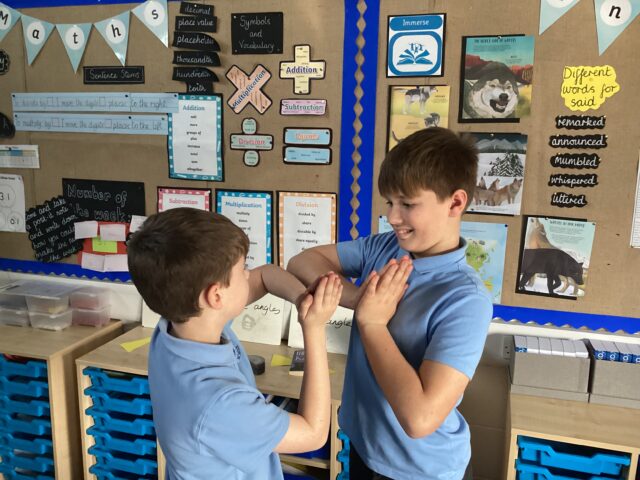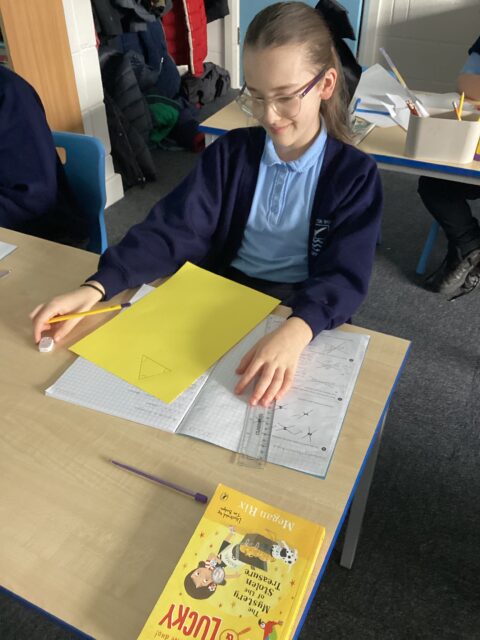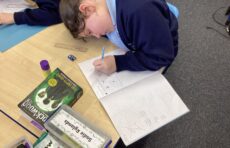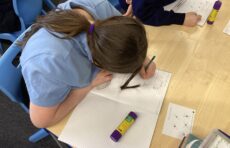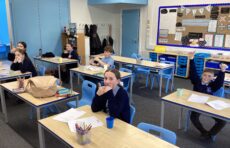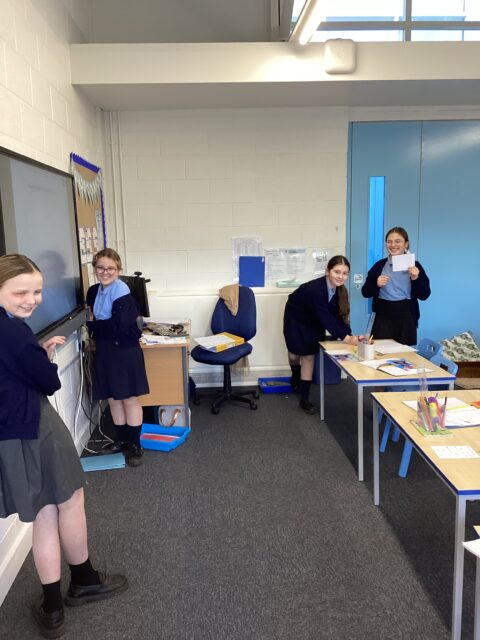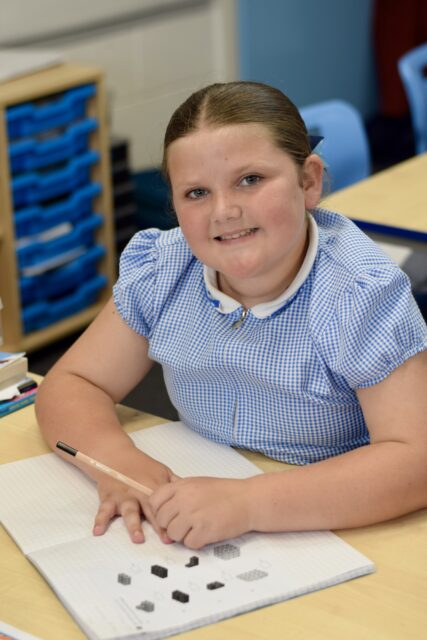
Maths
At Stockton Wood, we believe that Mathematics is a fundamental skill that is essential for everyday life and the foundation for future academic success. We strive to create a positive learning environment where all children feel confident and empowered to engage with mathematical concepts while developing critical thinking skills.
In the Nursery, we implement the Master the Curriculum programme, which focuses on embedding early mathematical concepts through play and exploration. This structured approach ensures a smooth transition to the more formal Maths curriculum in Reception and beyond.
From Reception to Year 6, we implement the White Rose scheme of learning, which provides a cohesive and progressive approach to Maths education. This scheme facilitates consistent planning, assessment, and teaching methodologies that align with the National Curriculum expectations. Each unit is designed with a focus on varying the depth of learning and enabling pupils to demonstrate mastery in their understanding.
In addition to the main curriculum, we utilise “Fluent in Five” from Year 1 to Year 6. This separate fluency session promotes daily practice of essential number facts and skills, helping pupils to develop speed and accuracy in mathematical reasoning. Fluent in Five provides a daily set of arithmetic questions, designed to help children develop and maintain fluency in both written and mental calculations.
Rec-Y6 Curriculum Overview 25-26
Maths Chatter

Making ‘signs’ and mazes
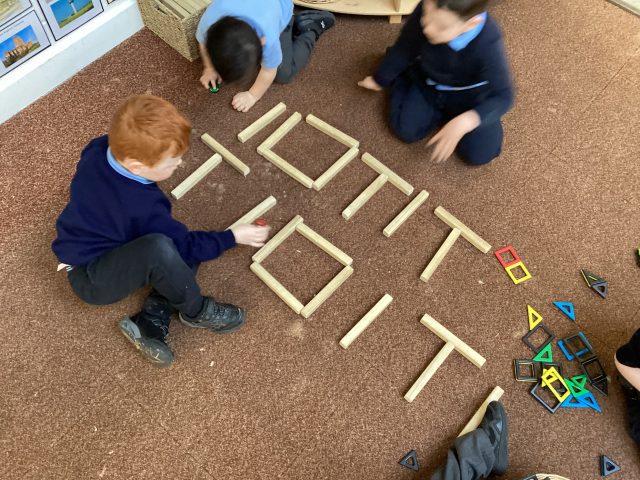
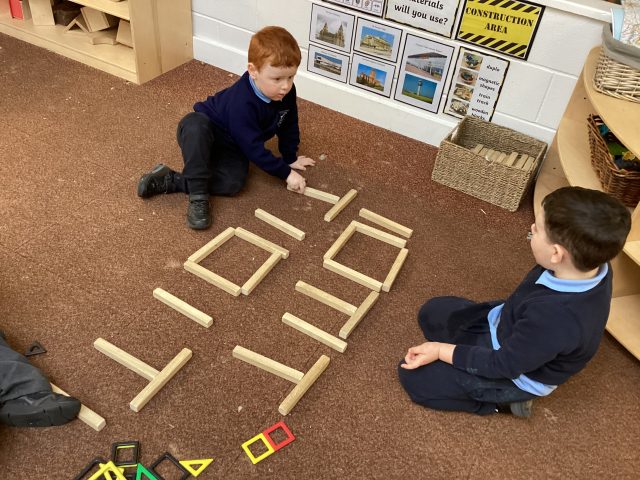
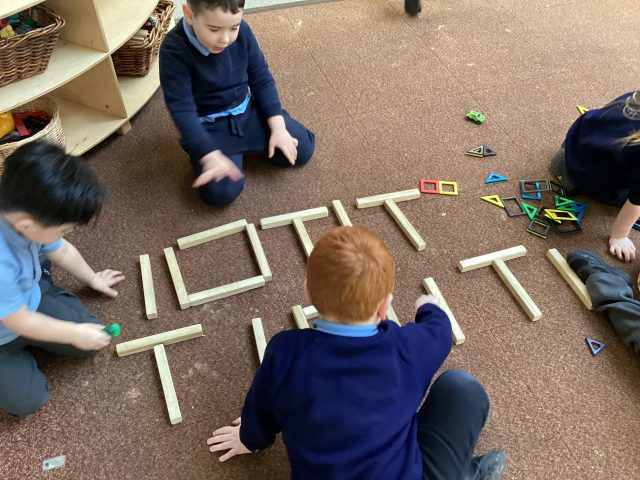
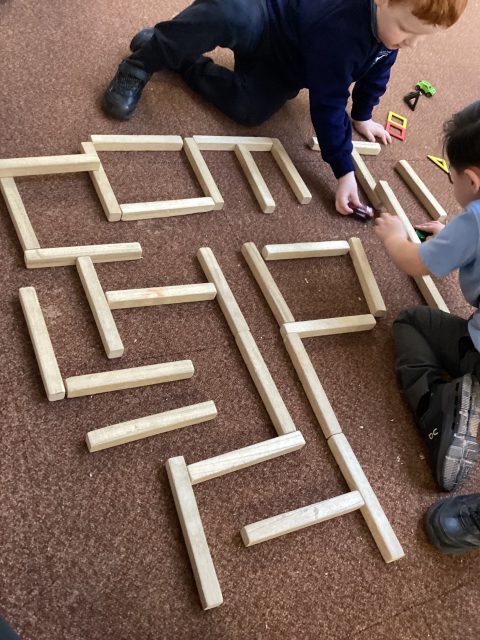
Some of the boys began to create ‘signs’ on the carpet – they told us it said “STOP” for the cars. Then one of our friends suggested we turn it into a “cool maze” for the cars!
94
Vegetable Pasta Bake
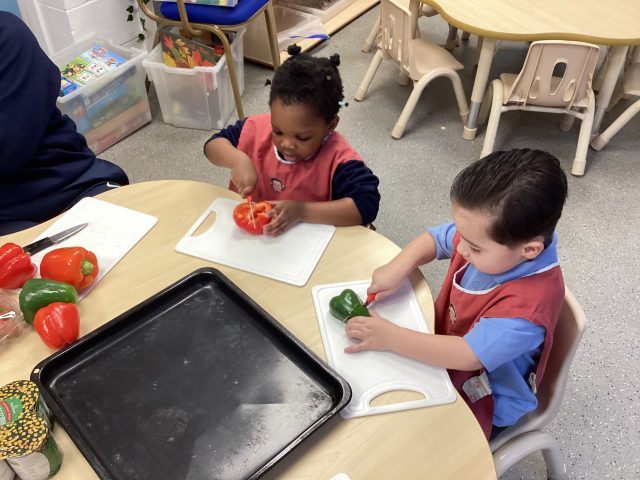
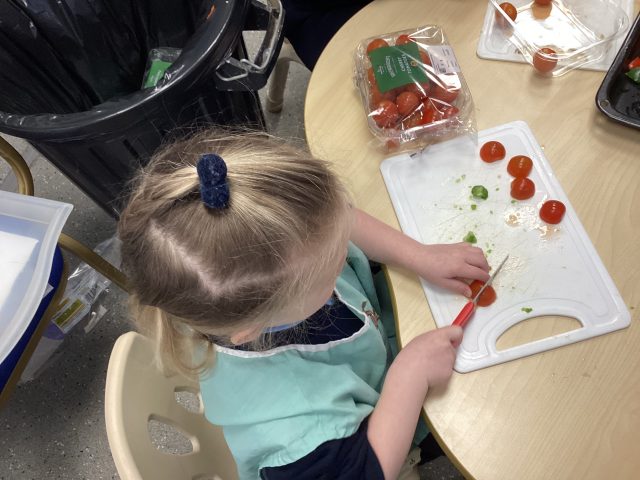
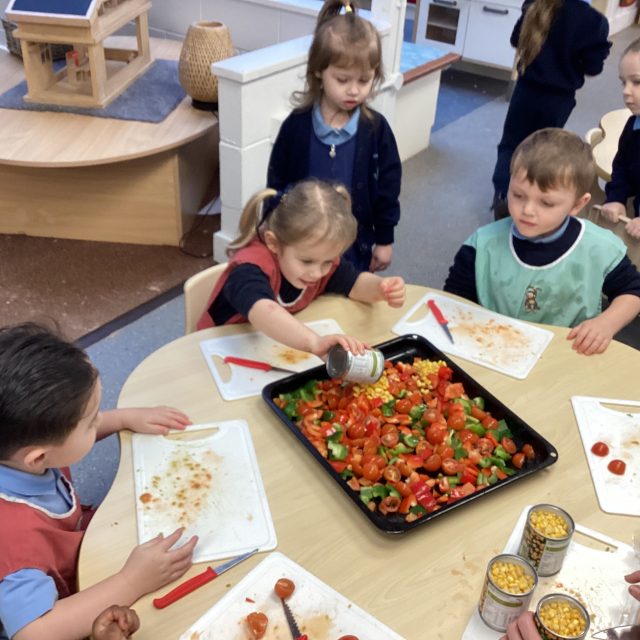
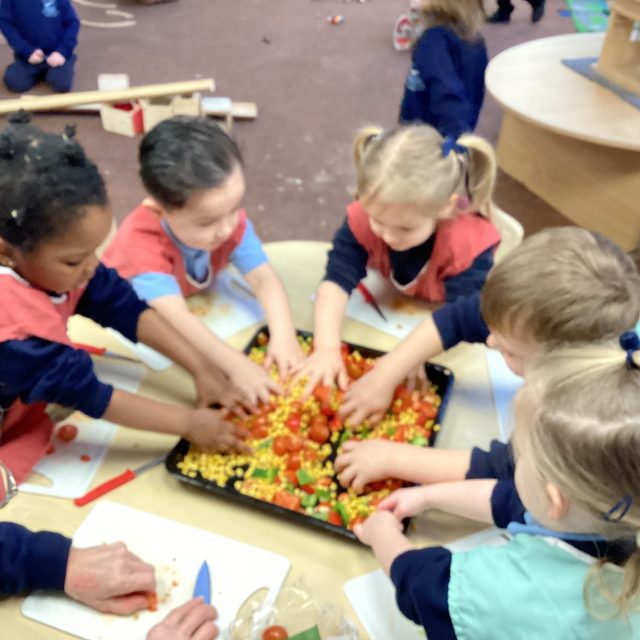
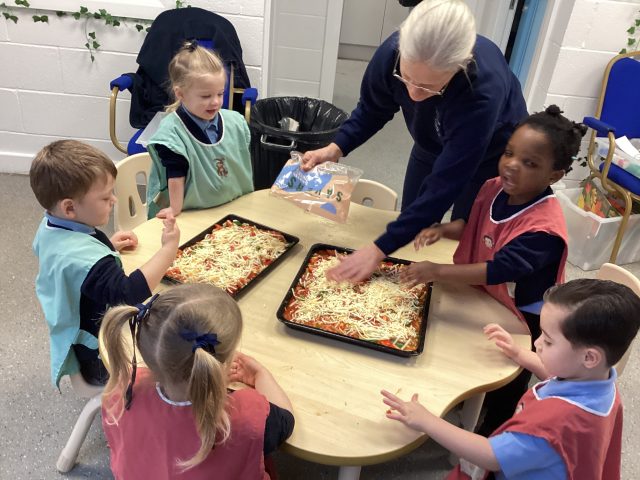
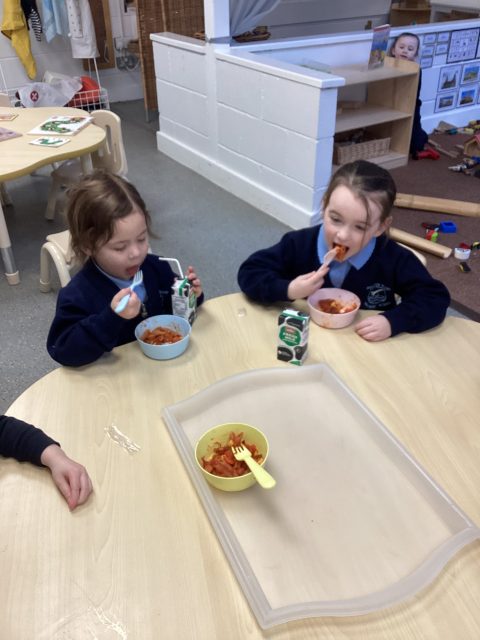
We used our chopping skills to cut lots of different vegetables ready for our pasta bake! We waited patiently for it to cook, and then tasted it for snack. Some of us even had seconds…and thirds!
88
Fractions challenge
Today we came to the end of our fractions unit, some children completed a crack the code challenge using finding the whole.
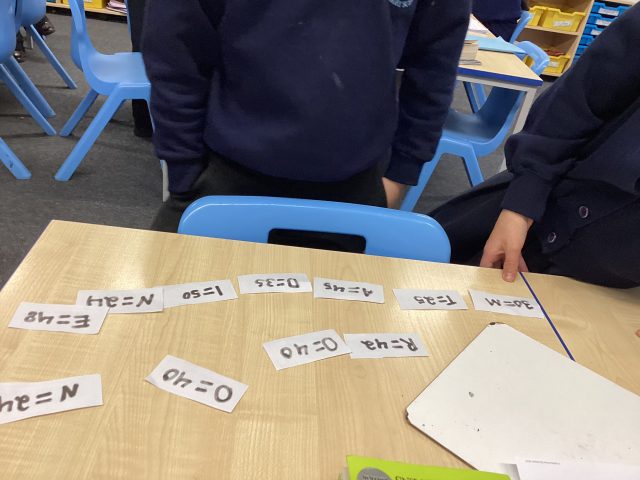
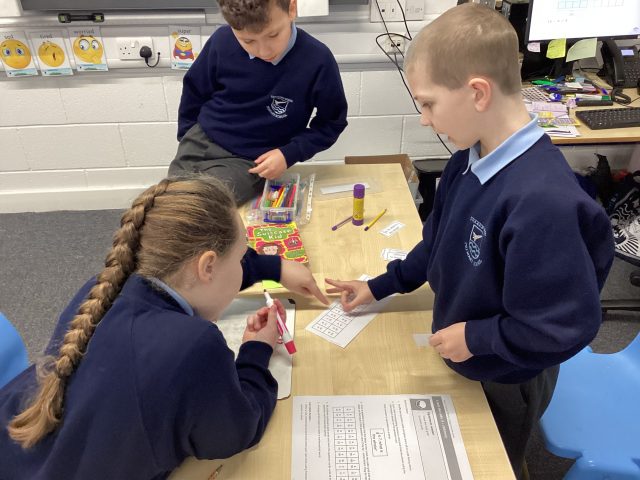
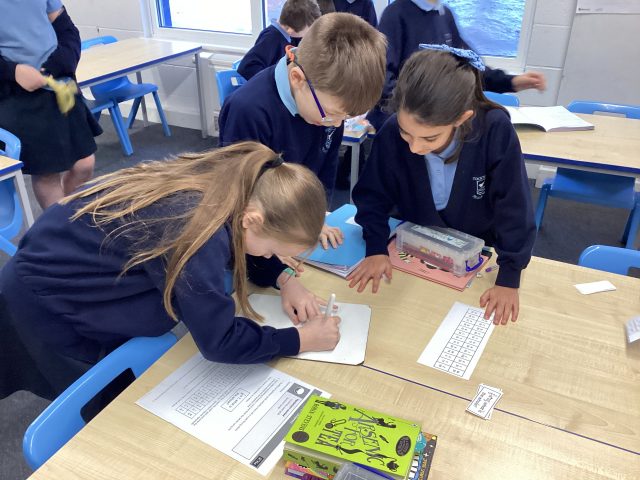
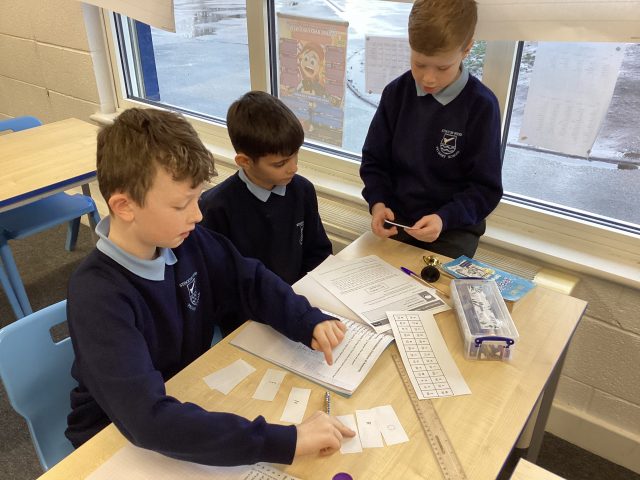

The Leaning Tower of Pisa!
The children really impressed us today with their building skills! They worked as a team and built this tower, and used the book for reference. It even leans slightly! How amazing!
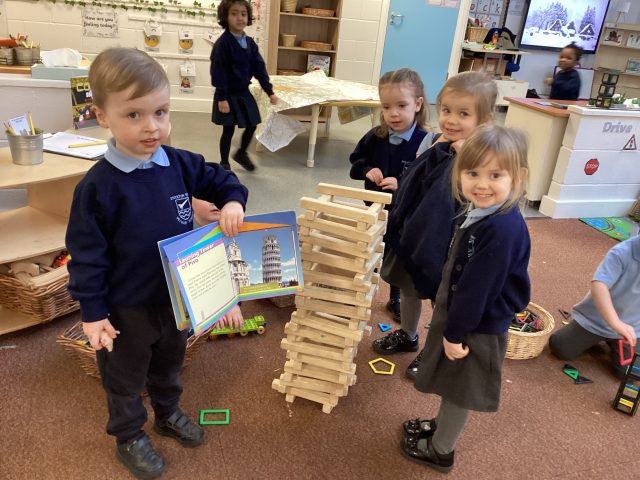

Year 6 Maths- Algebra
Year 6 used concrete resources when introducing their new topic, algebra. We focused on creating different forms of expressions and how to simplify them.
71
Year 6 Investigating Light
Year 6 investigated how the distance between a light source and an opaque object affects the size of the shadow formed.
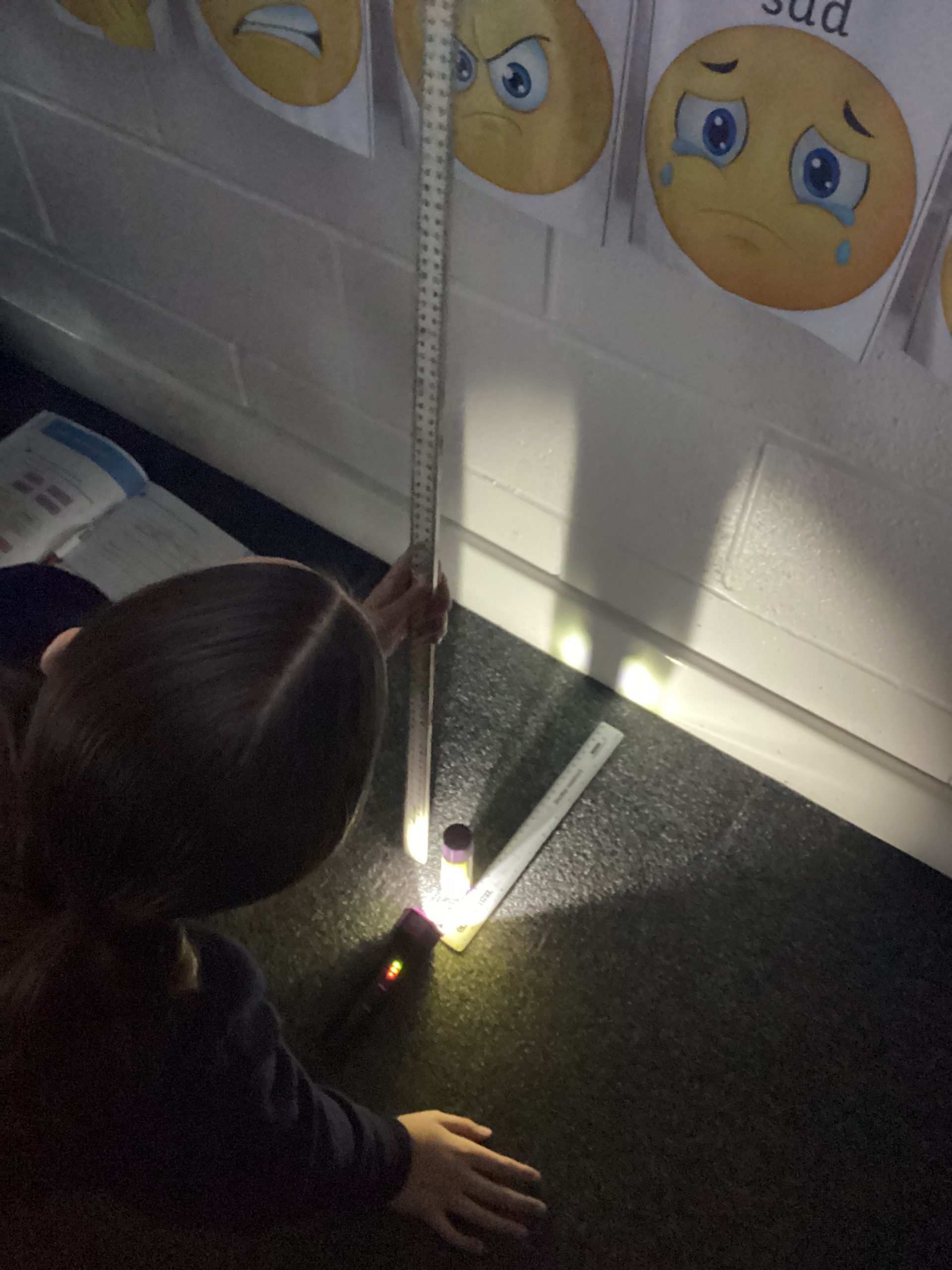
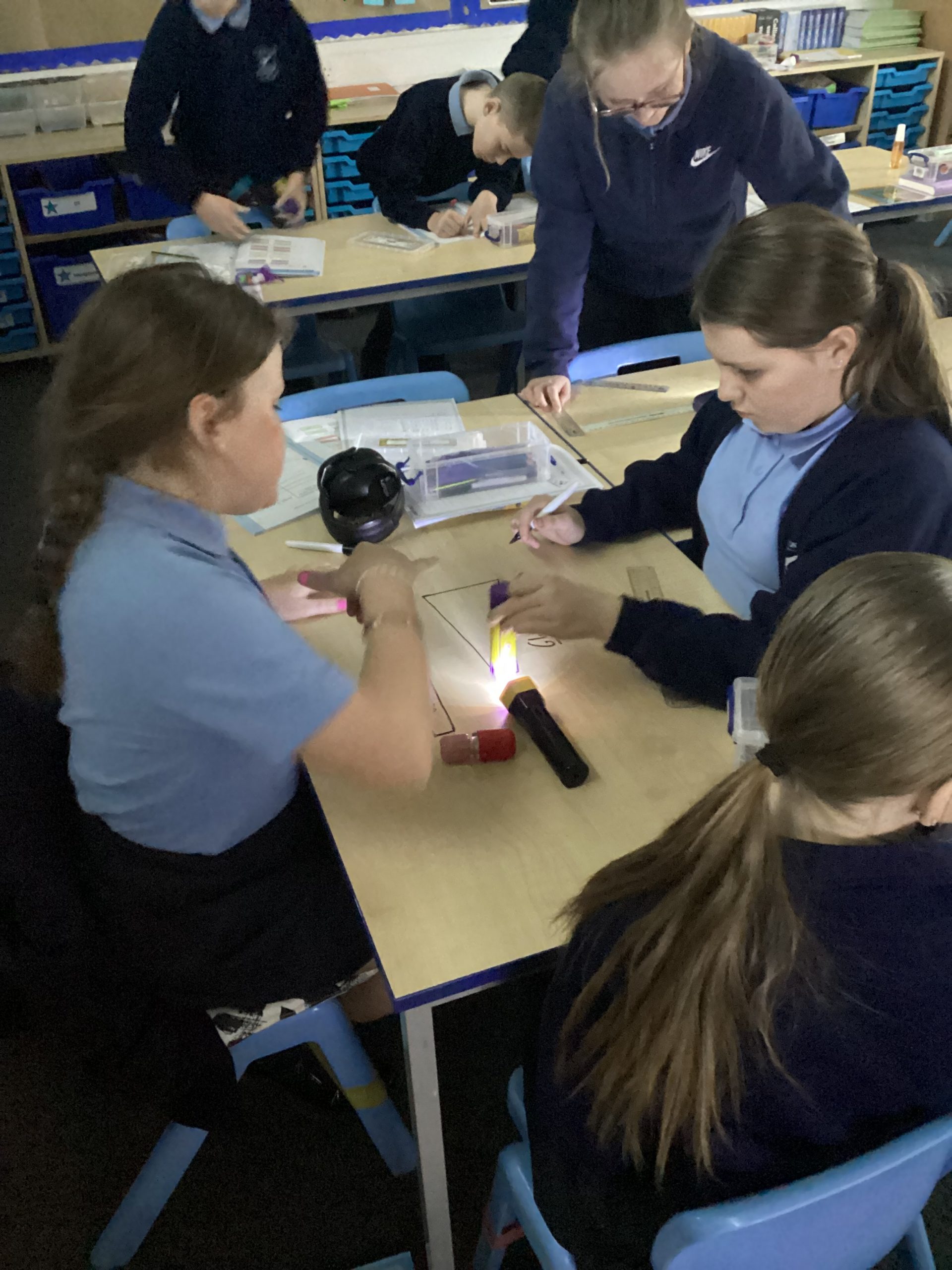
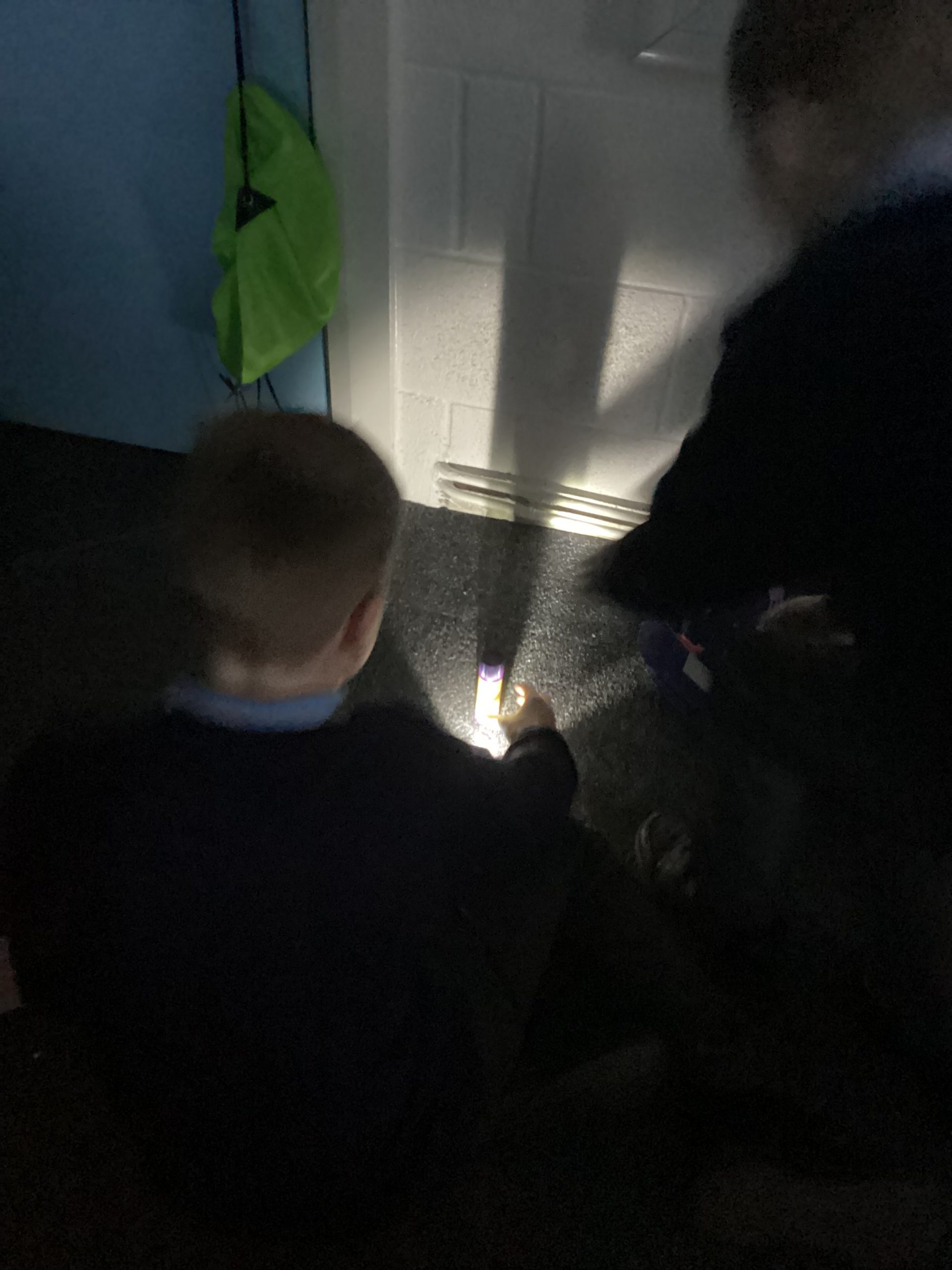
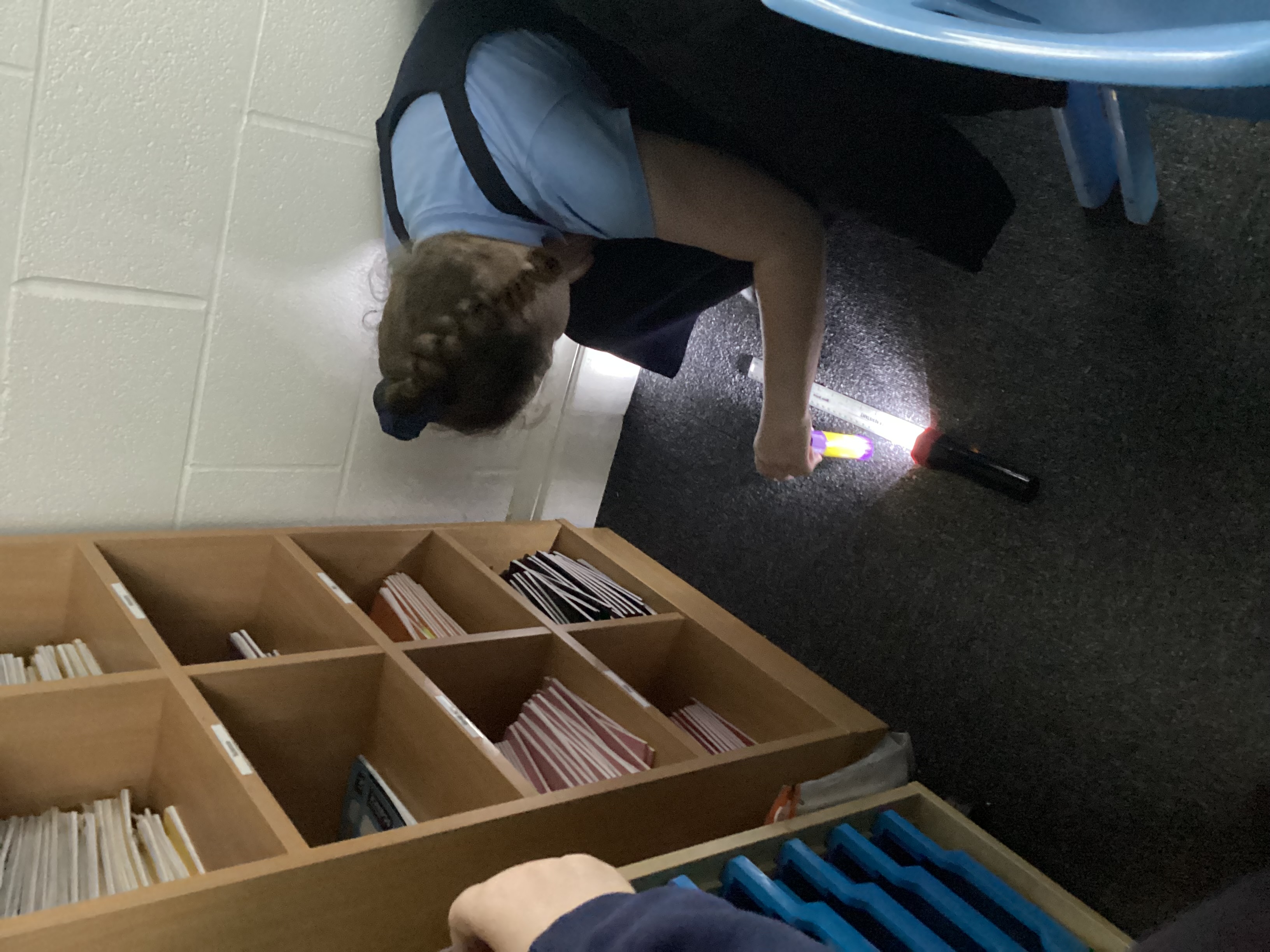
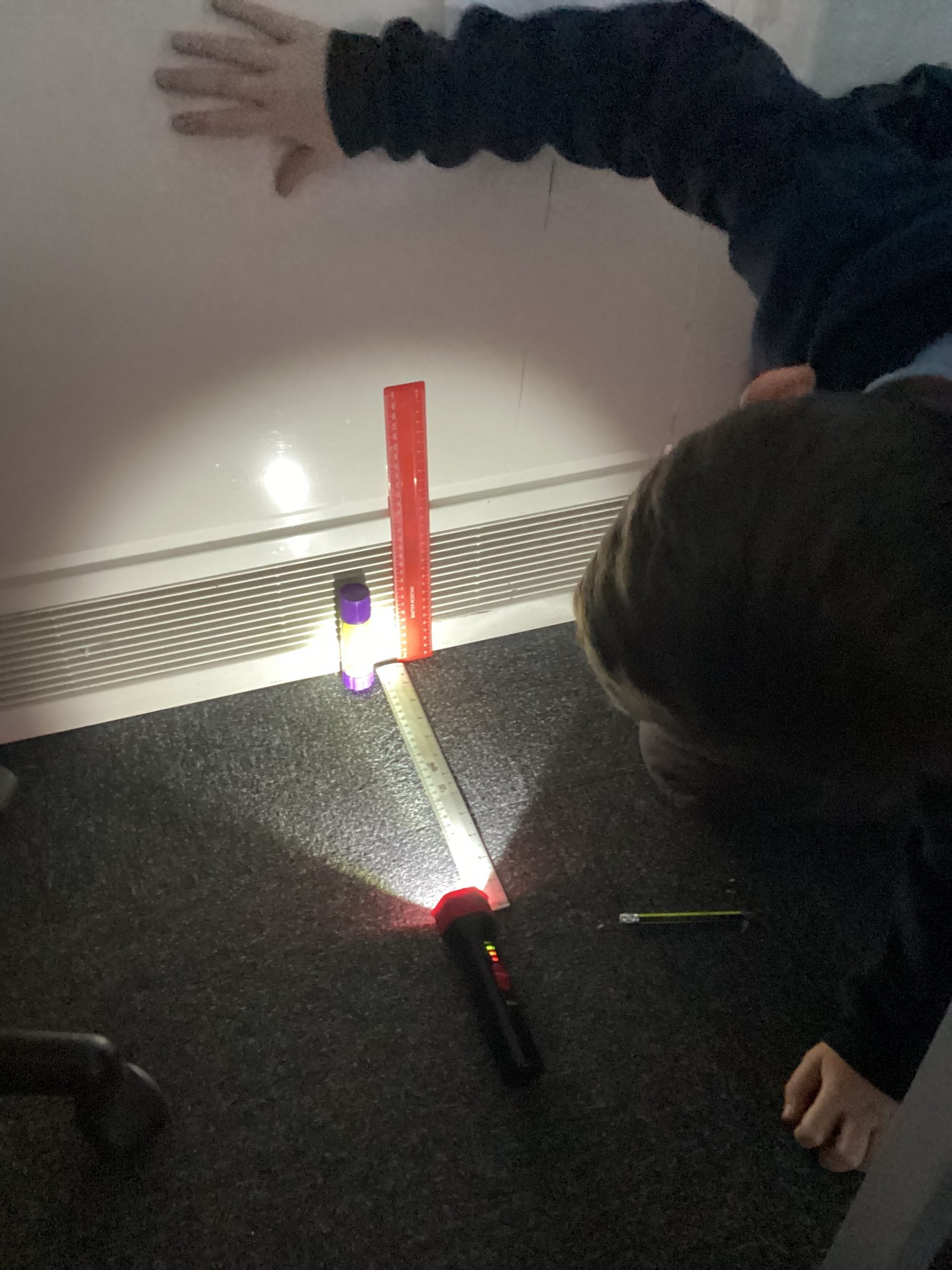

People Who Help Us
This week Reception are exploring people who help us. We have discussed police men and women, fire men and women, doctors, dentists, nurses, teachers and shop assistants. We have also discussed what we would like to be when we grow up!
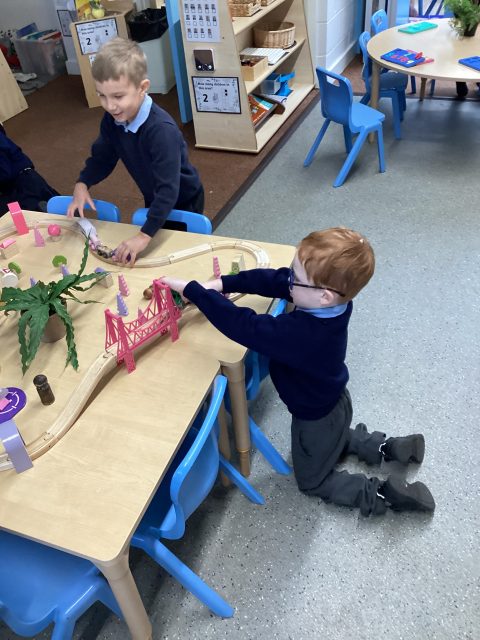
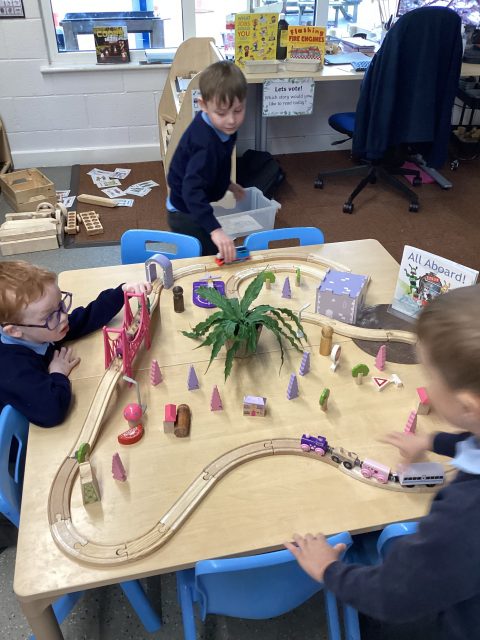
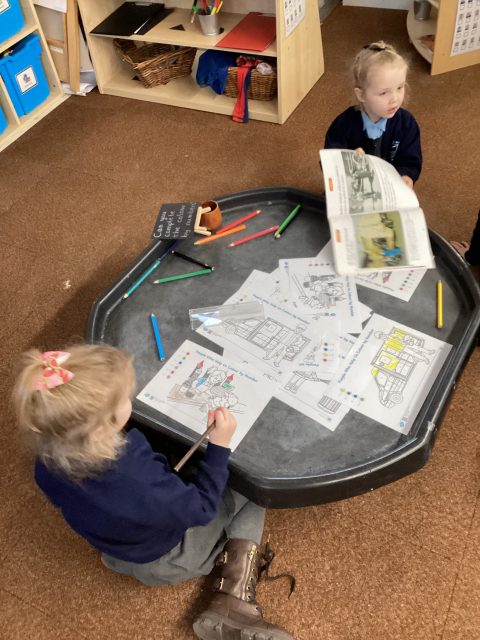
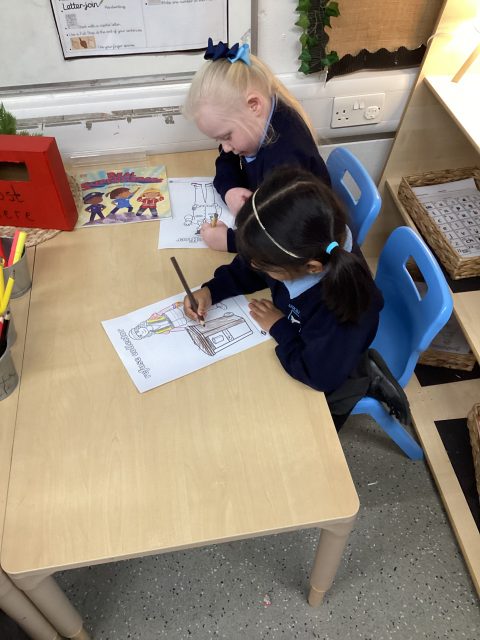
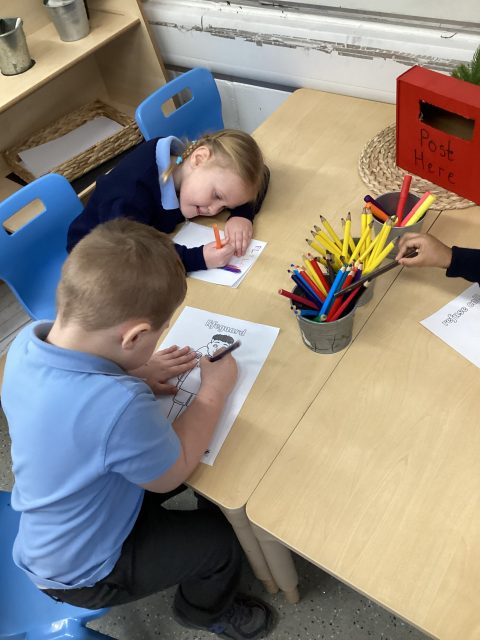
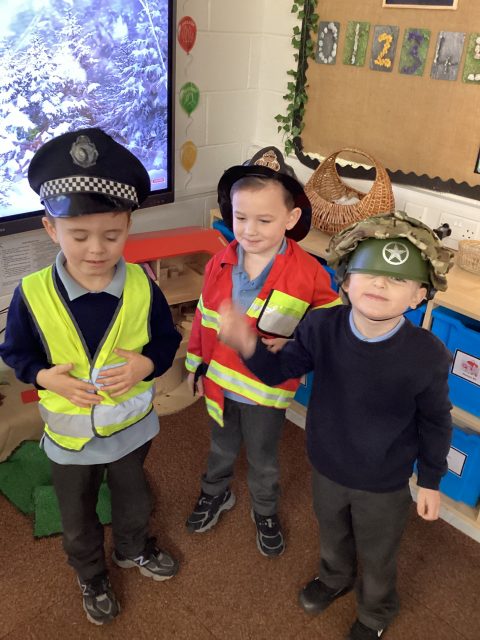
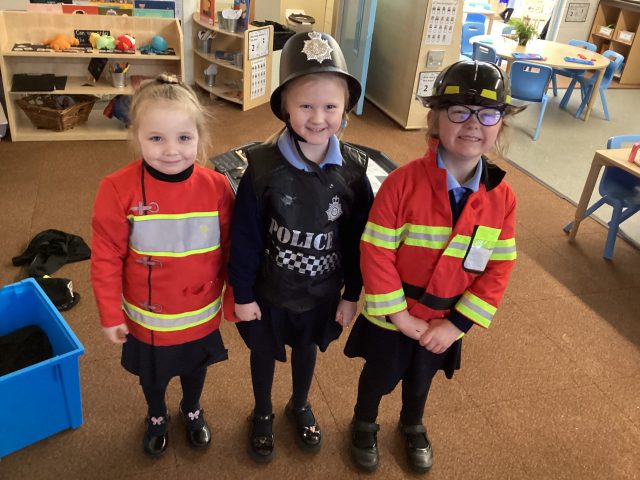
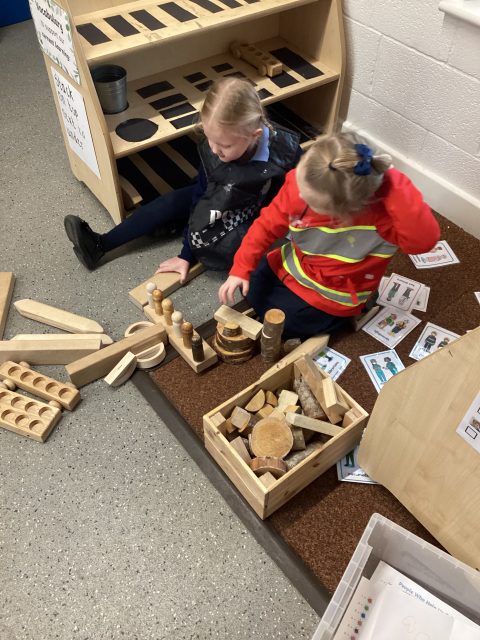
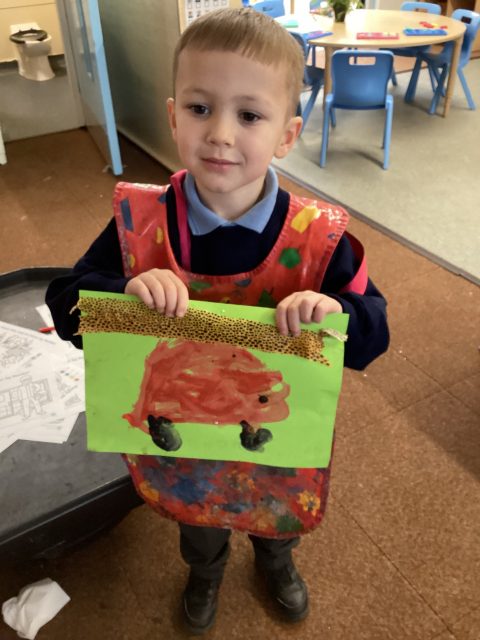

Maps
Thank you to Mr Saunders who found some maps for us to use in our continuous provision! We built a train track through Paris, and took the cars on a road trip through Switzerland! I wonder where we will go next?
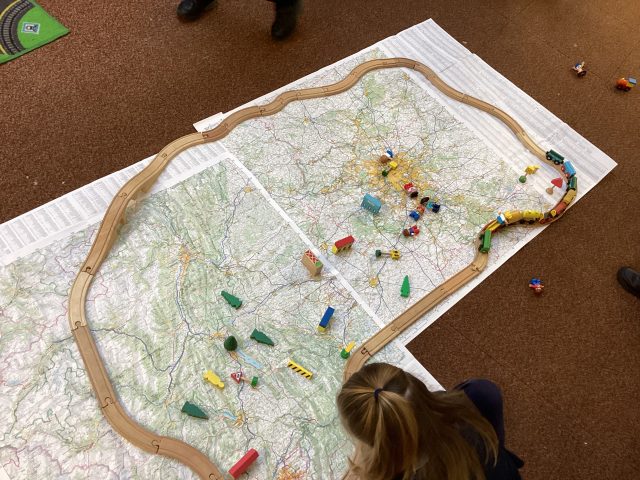
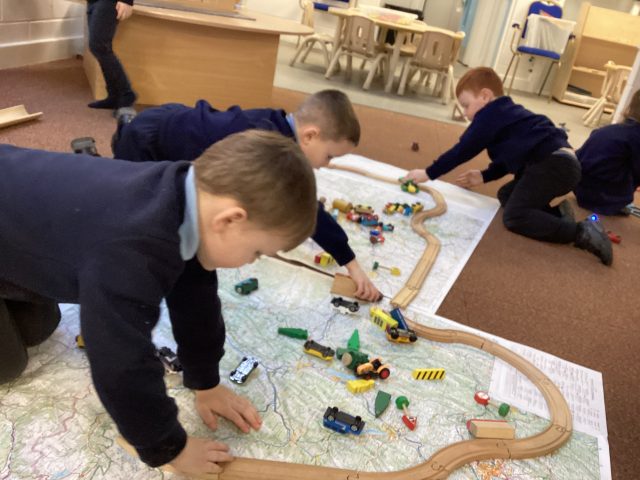
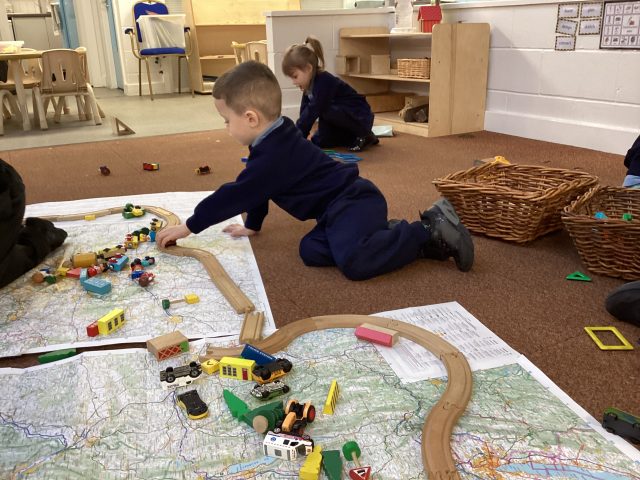
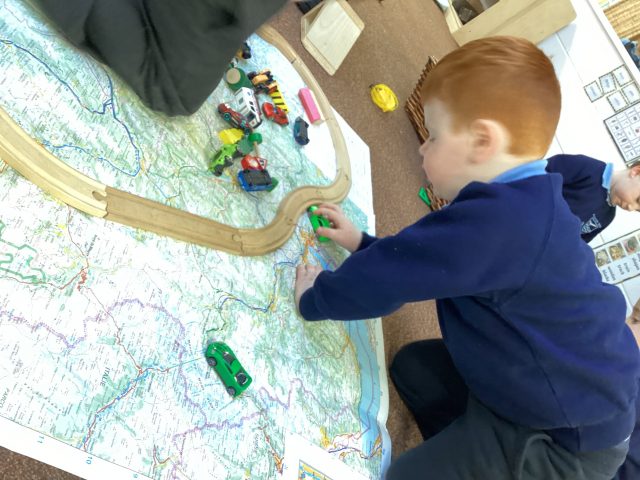
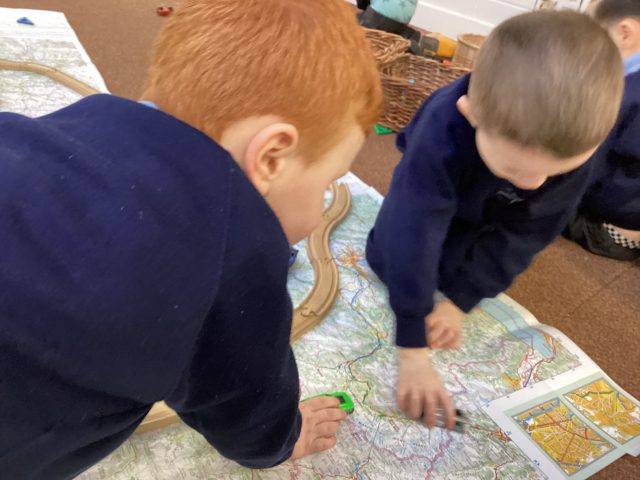
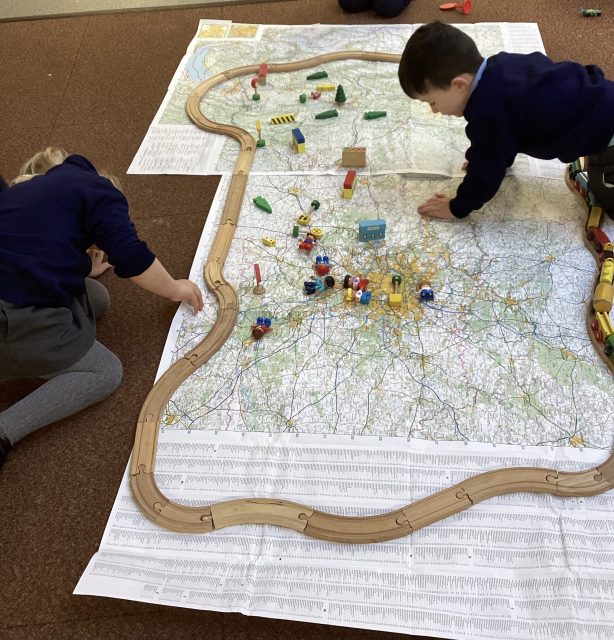

Number of the Week
This week Year 4’s number of the week was 721. We have been using our maths resources to show different ways we represent the number.
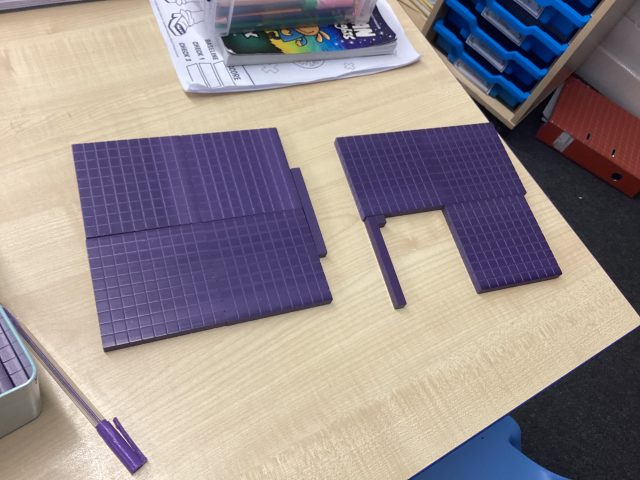
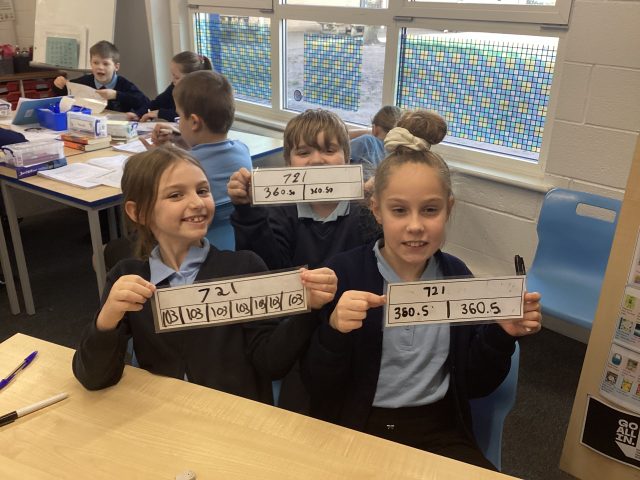
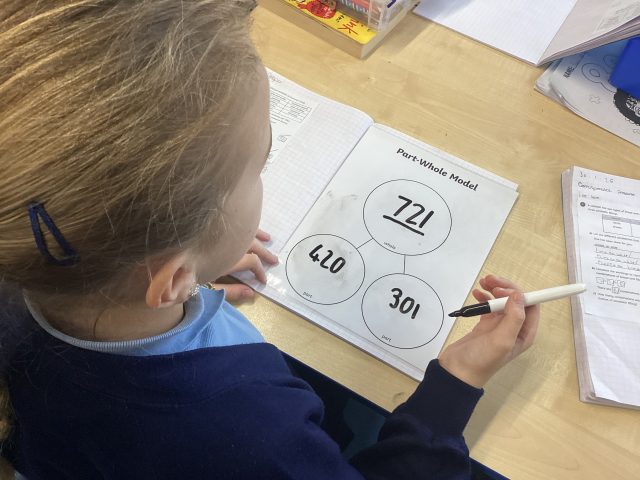
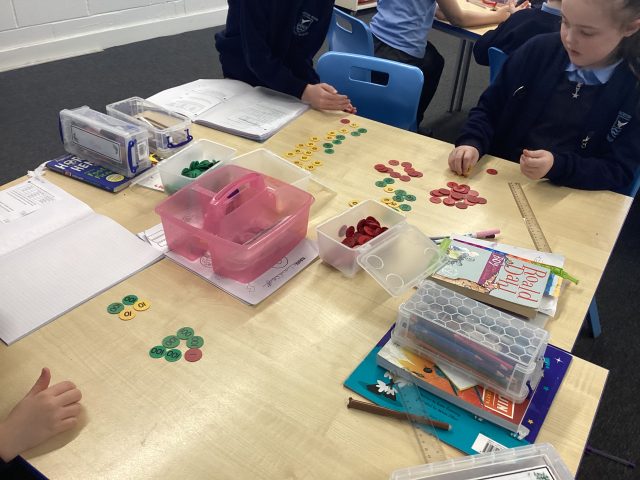




Playing Pairs
Playing games like pairs helps to develop our memory skills, our listening and attention skills, mathematical skills, and even develops our critical thinking. It’s tricky, but we didn’t give up!
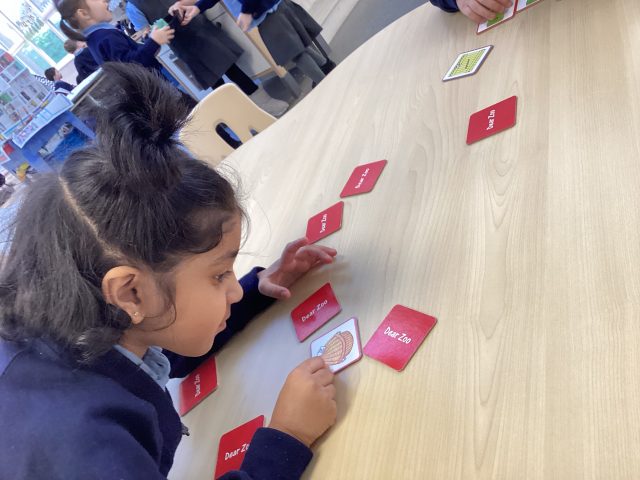
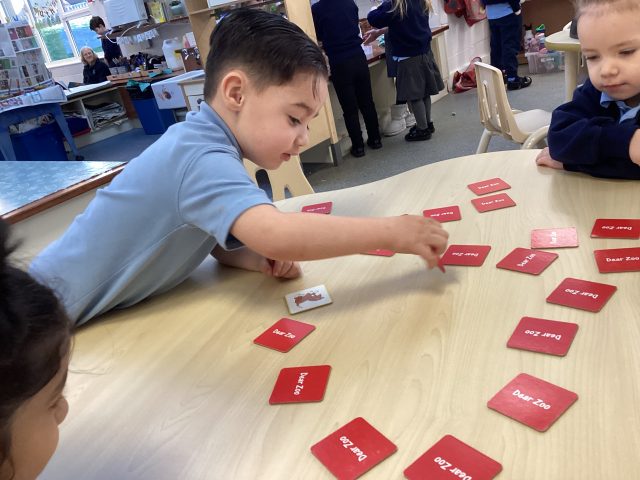
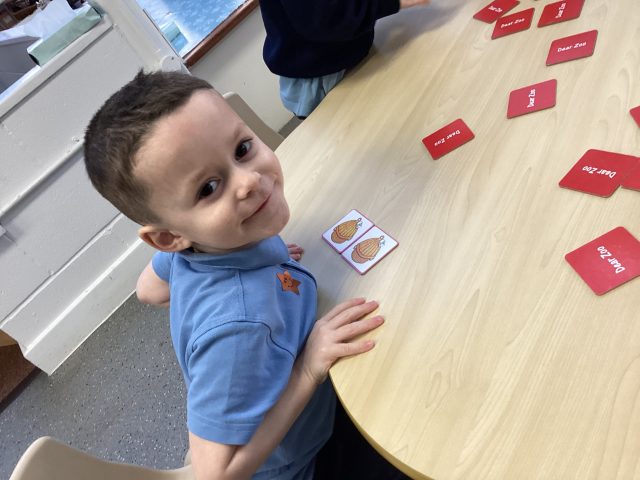
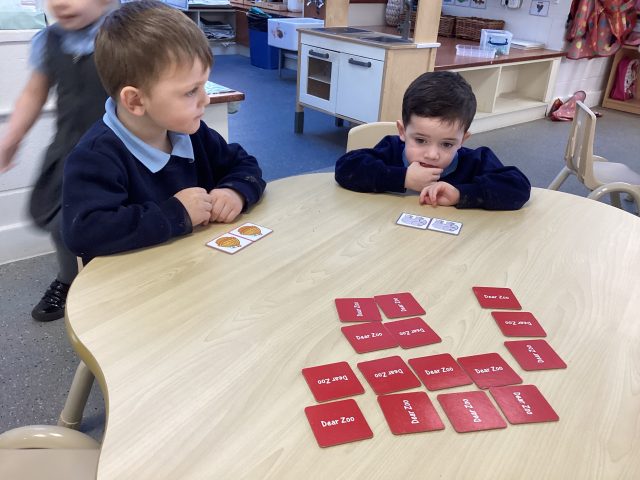
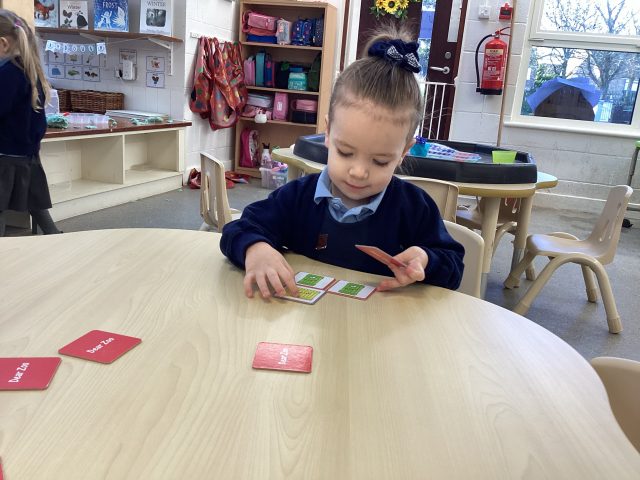

Capacity
Reception have explored capacity in Maths. Using water and different sized containers we discussed which container has more capacity and which container has less capacity.
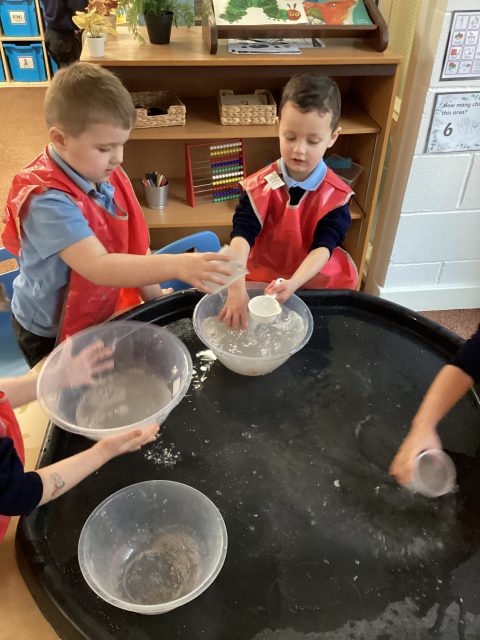
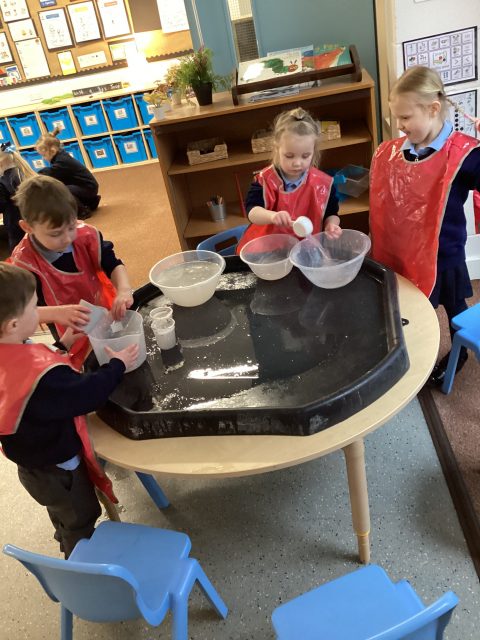
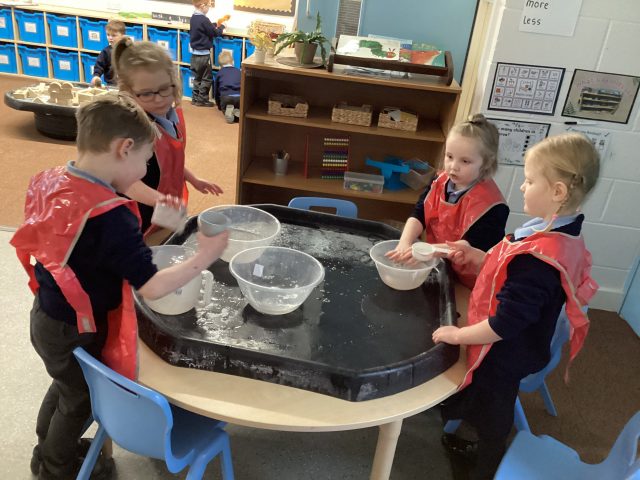

Dividing a 2-digit number by a 1-digit number
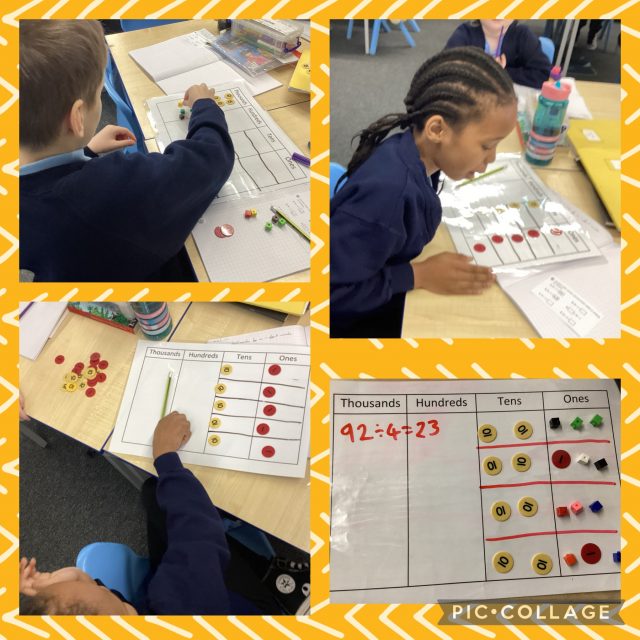
In Year 4, we have been using place value counters to help us answer questions like 92 dividing by 4.
202
Year 3 Division with remainders
3McK used concrete resources this week to calculate different divisions.
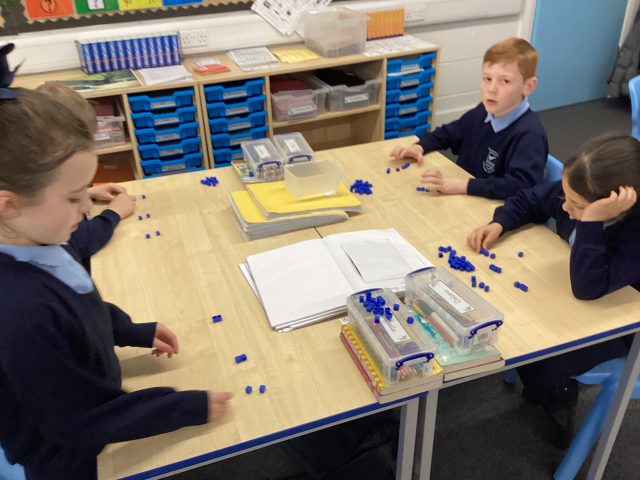
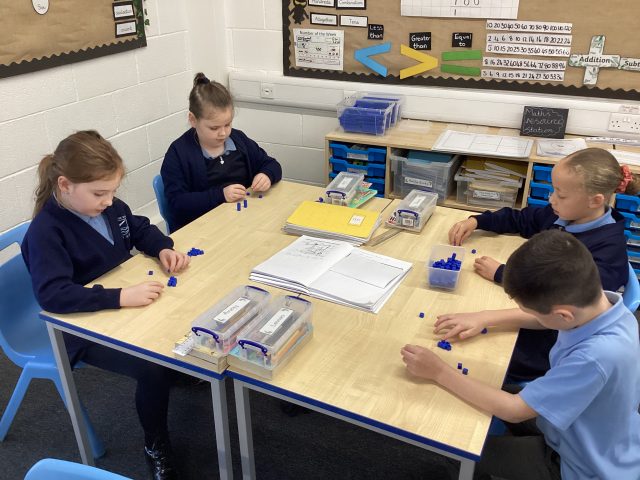
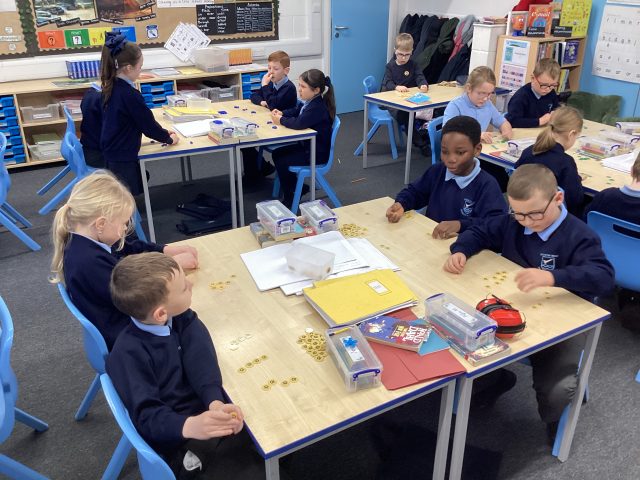
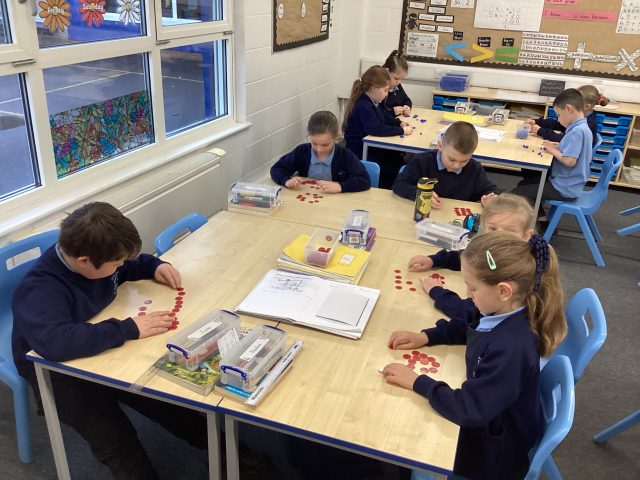
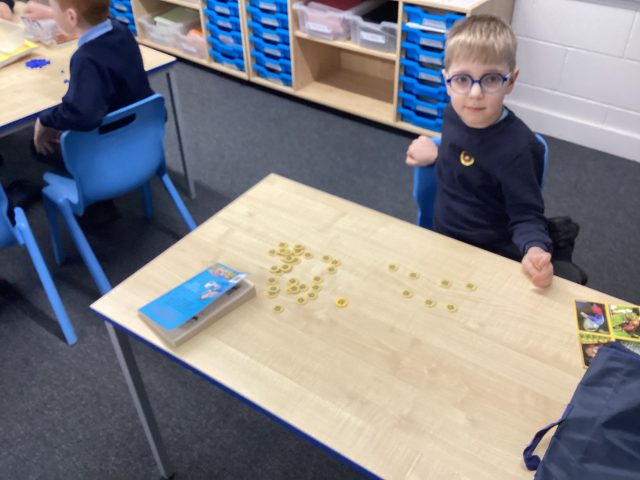
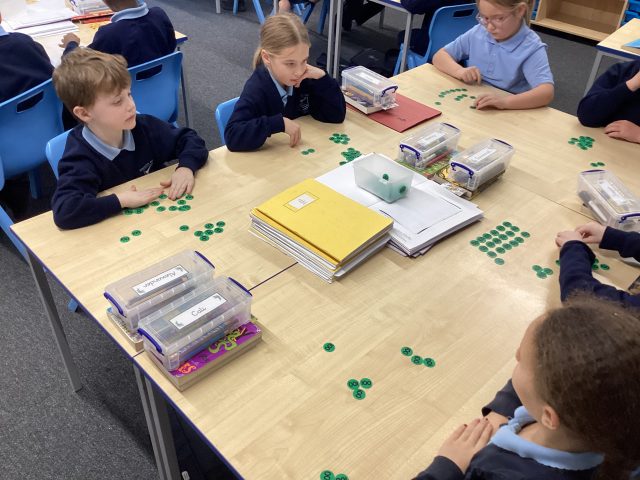

Year 6 Maths Challenge- Ratio
Year 6 showed excellent Maths resilience when using concrete resources to make different ratio amounts. They focused on the relationship between multiplication and division when simplifying.
124

Year 6 Maths Challenge
How can I represent the number of the week?
We can choose to show the number through any means of CPA (C- concrete resources, P- pictorial, A- abstract).
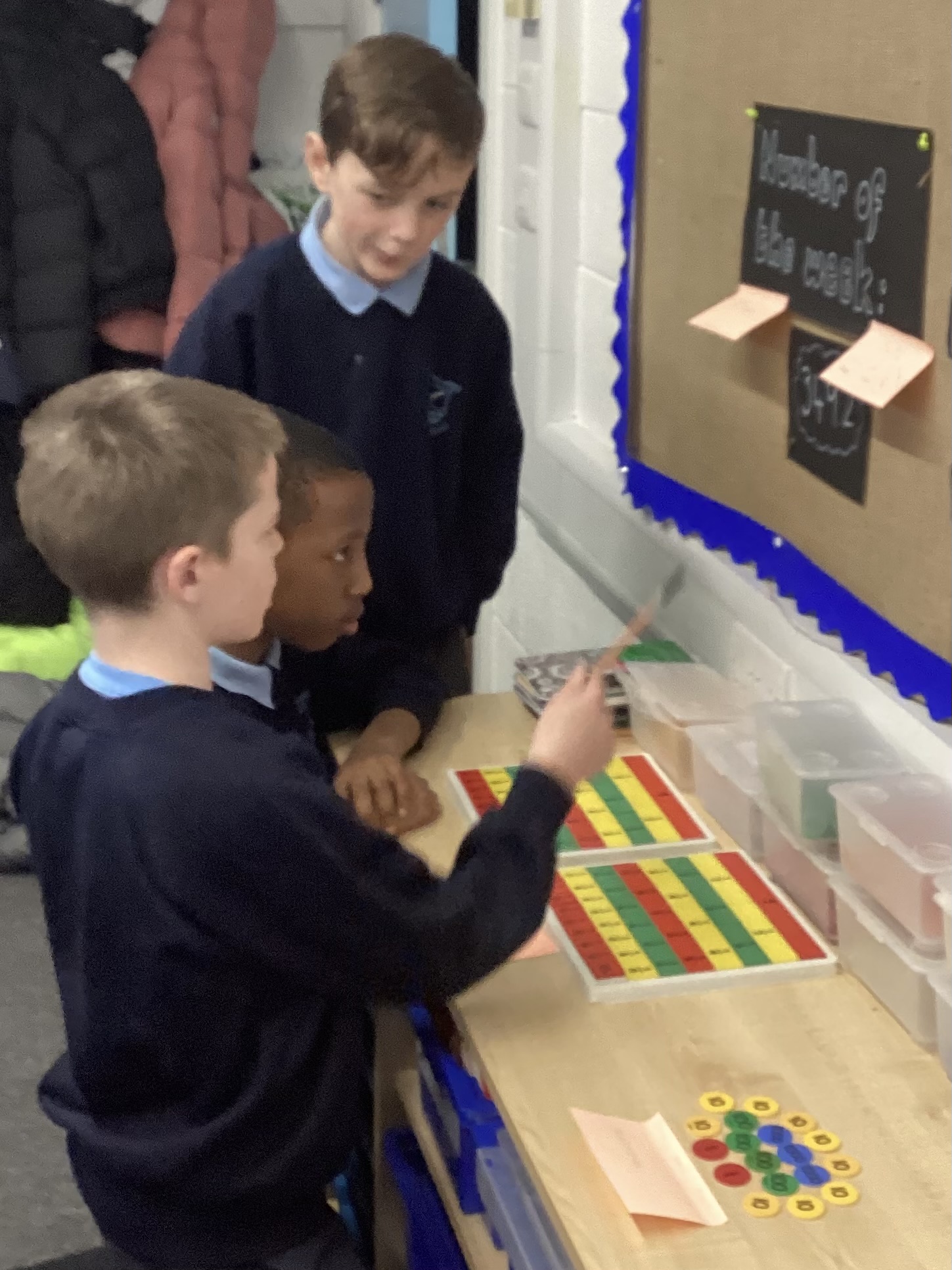

Year 5 Maths CPA
On Friday, we begin our work on short division. It was lovely to see that some children remembered the abstract method from our work in Fluent in 5. Some children explored this further using place value charts and part whole models to help them understand dividing.
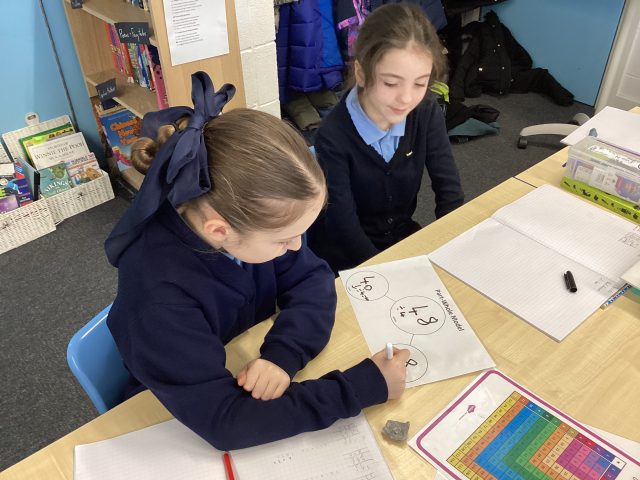
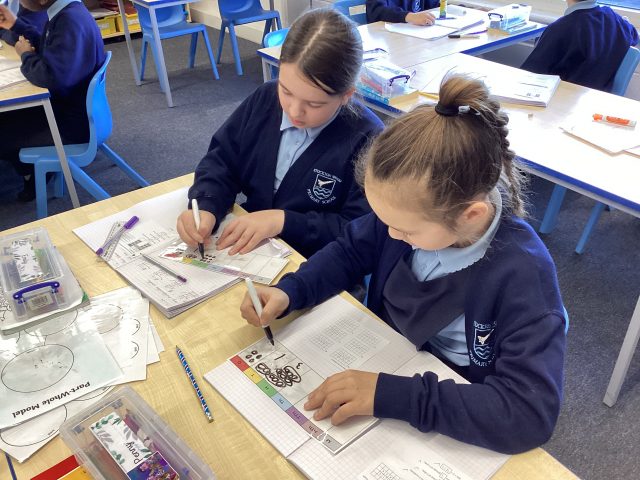

Year 3 maths
3McK have been using concrete and pictorial resources this week to multiply a 2 digit number by a 1 digit number. Some of our classed used base 10 to complete challenge questions.
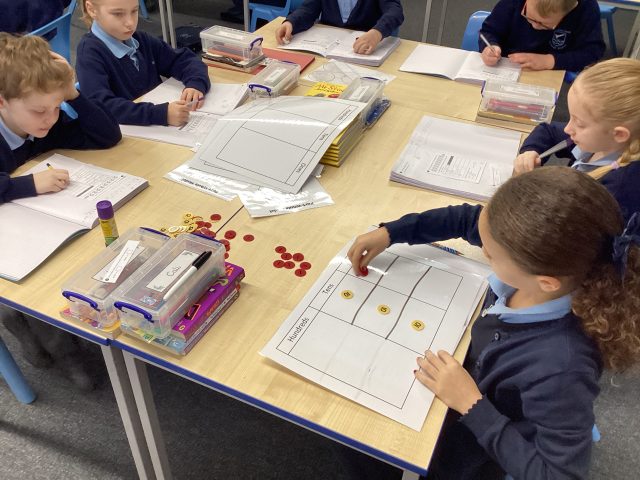
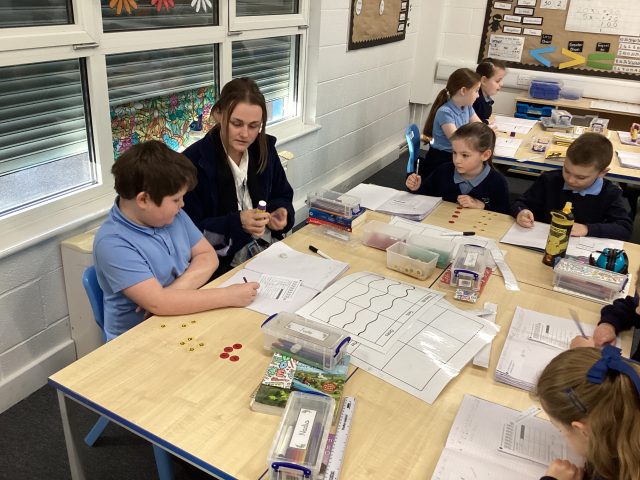
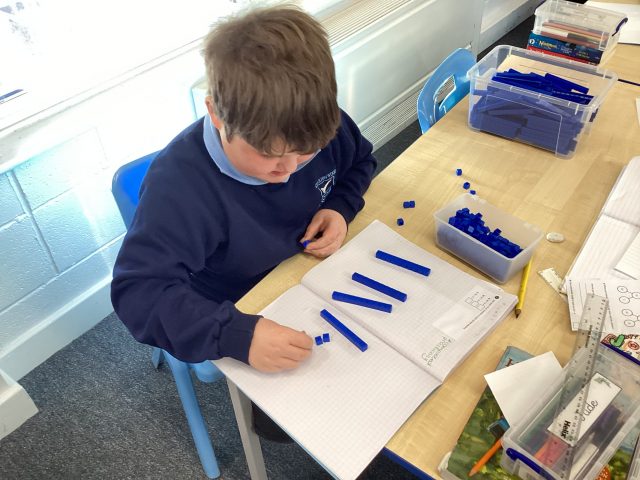
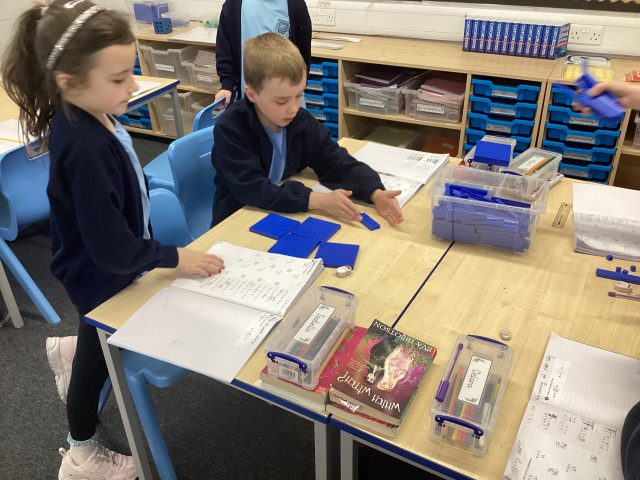
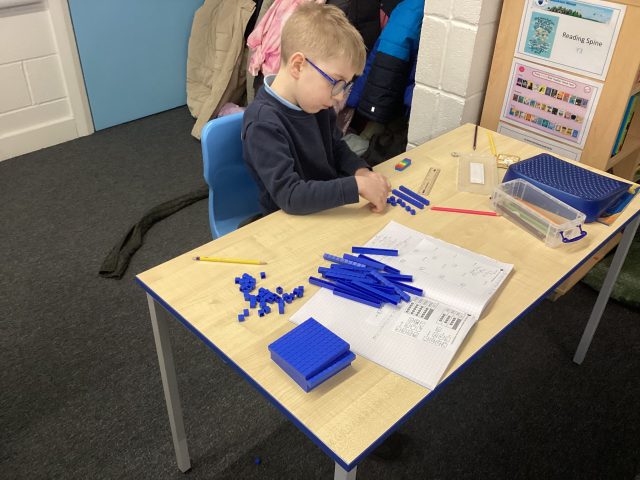



Year 5 Maths CPA
Last week we started our new topic of Multiplication and Division. We used counters and place value charts to understand the concept through concrete and pictorial resources. We then looked at the area model grid to explore long multiplication, before moving onto the abstract method.
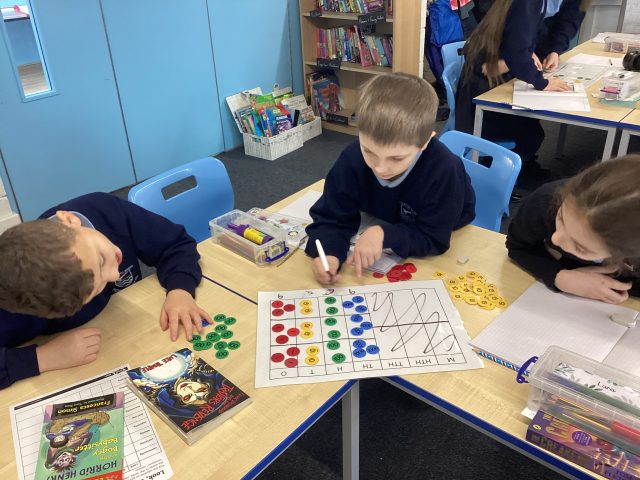
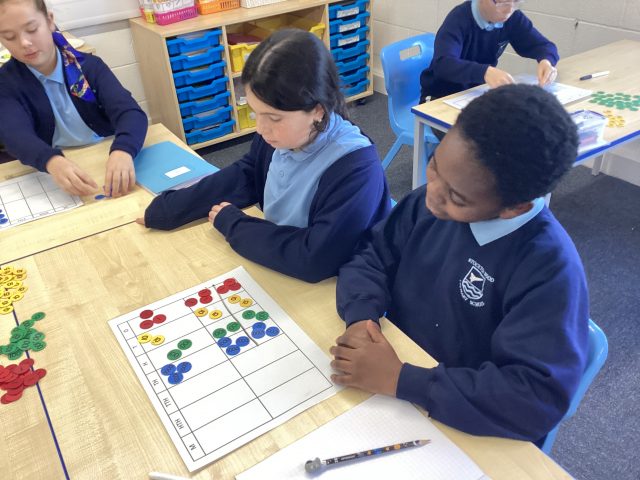
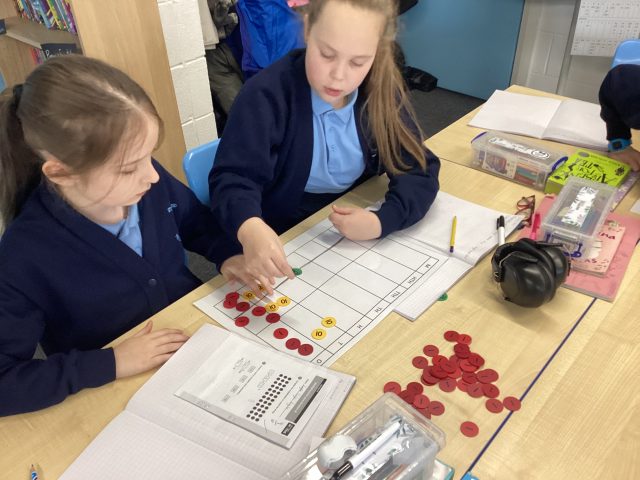
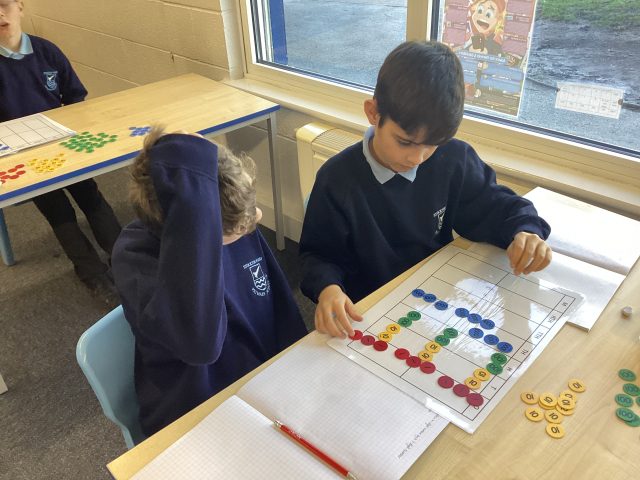

Problem solving
The children began to build ramps for the cars this morning, but the cars were not moving as fast as they’d like. They started to look around the classroom for resources to make the ramps bigger – and they found the water runs! The children quickly noticed that the higher the ramps, the faster they went! They worked together as a team to build different ramps.
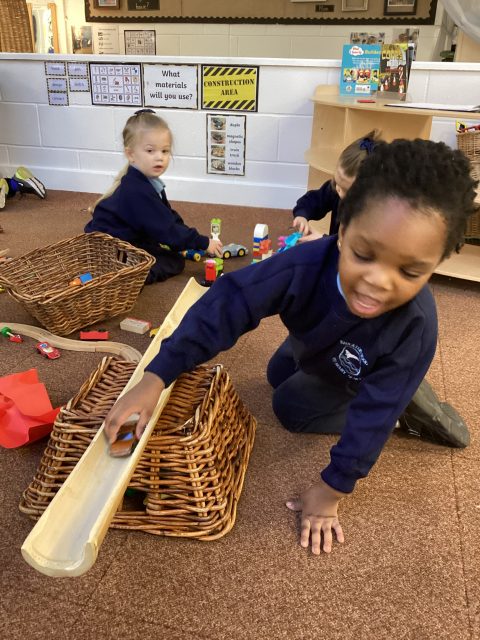
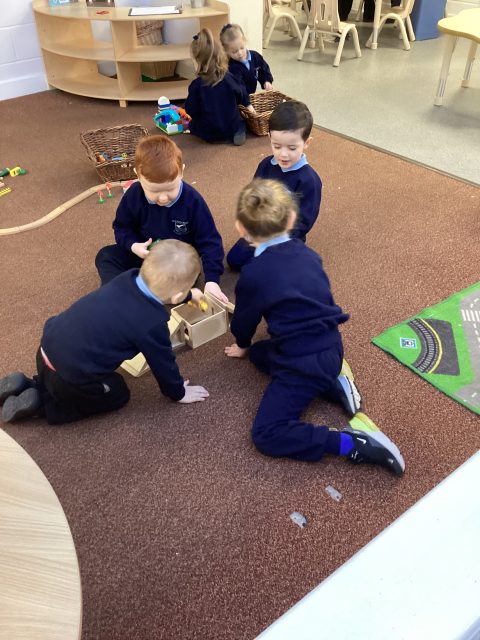
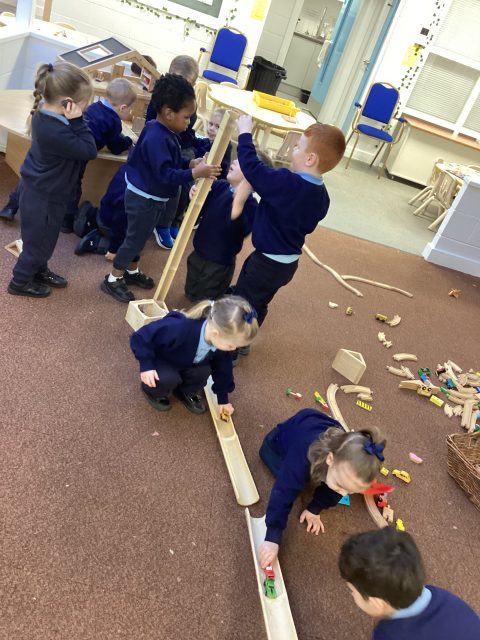
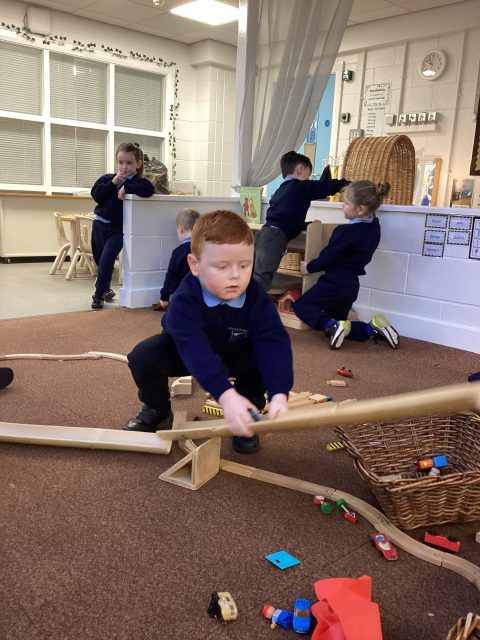
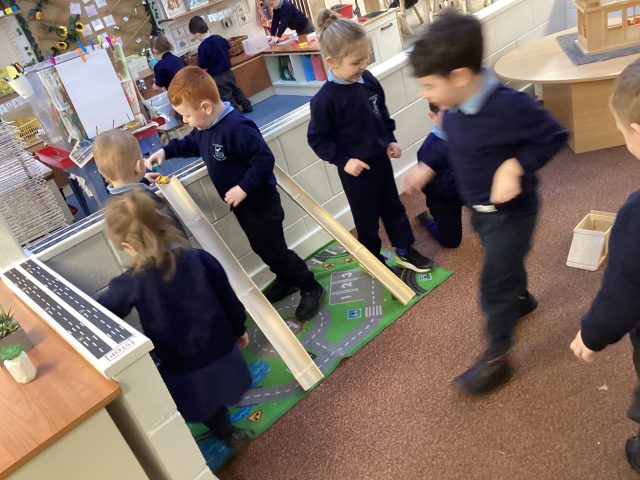
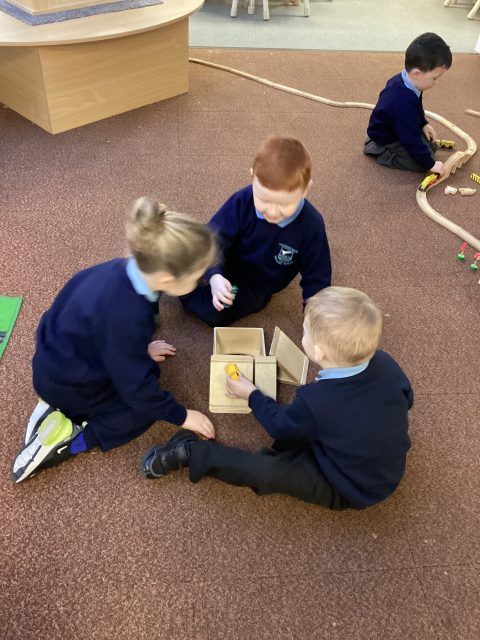


Year One – Maths
Super problem solving and reasoning skills to find three numbers that make ten. Good use of unifix concrete resources to find more than one answer.
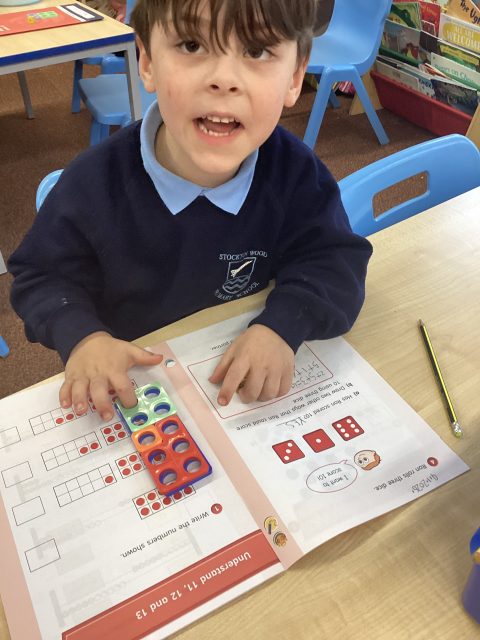
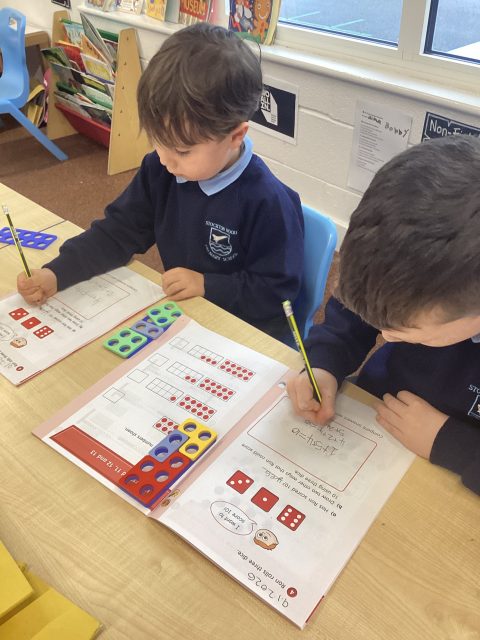

Year One – Maths
Great exploration of concrete resources to make our number of the week in different ways.
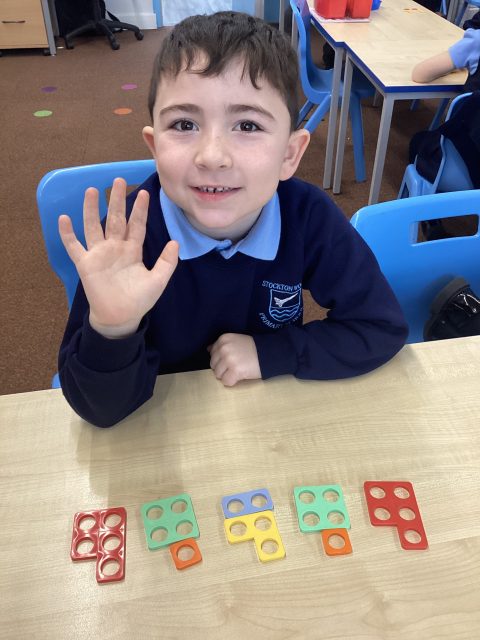
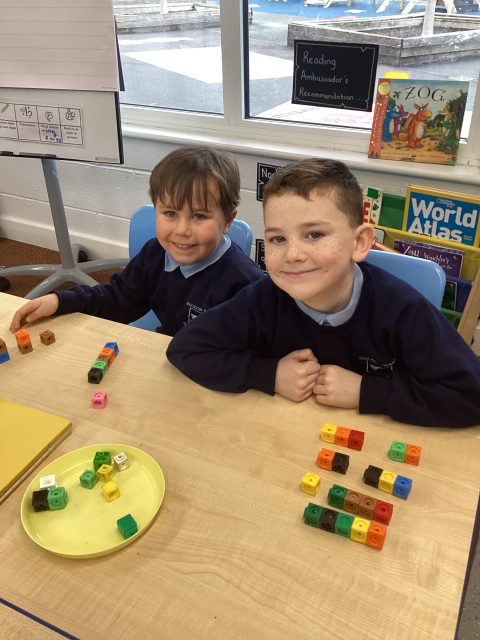




Multiplication and Division
This week in Maths, we have been using concrete resources to help us solve multiplication and division problems.
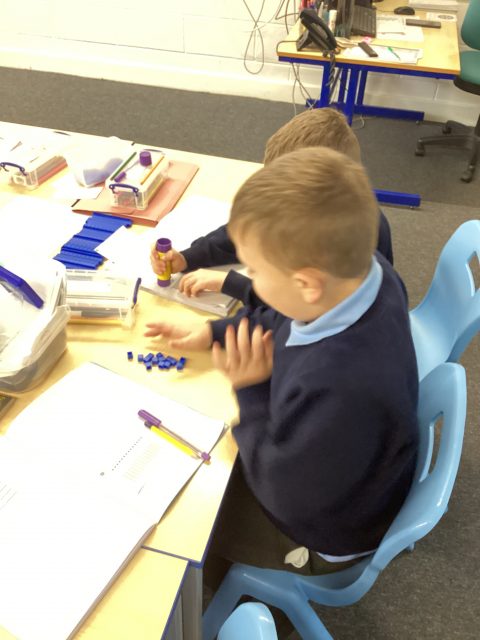

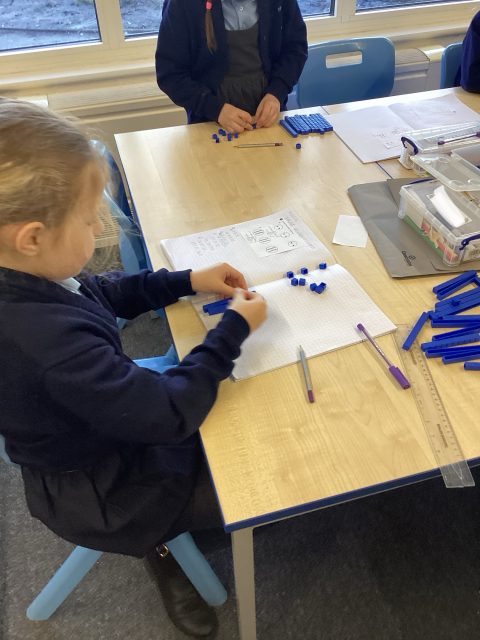


5D – using concrete resources in Maths!
This term, we are focusing on the importance of using concrete resources in maths as part of our CPA approach. Today, the children used place value grids and counters to support their new topic: multiplication and division.
5D worked incredibly hard during the lesson and really enjoyed using the resources.
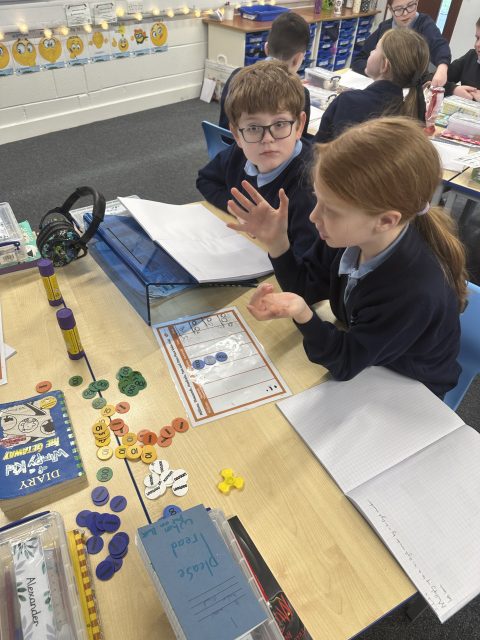
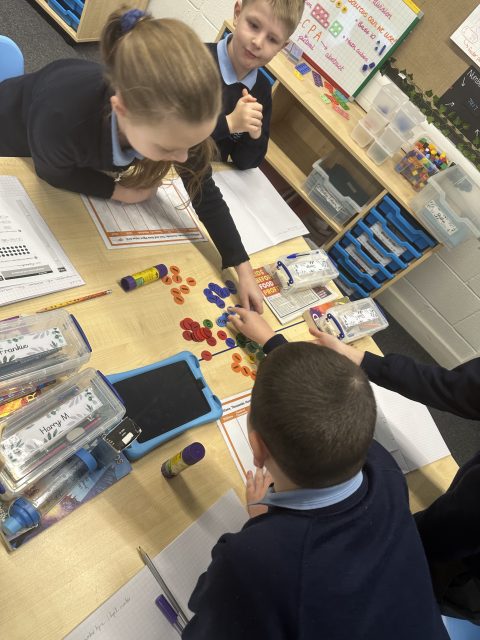
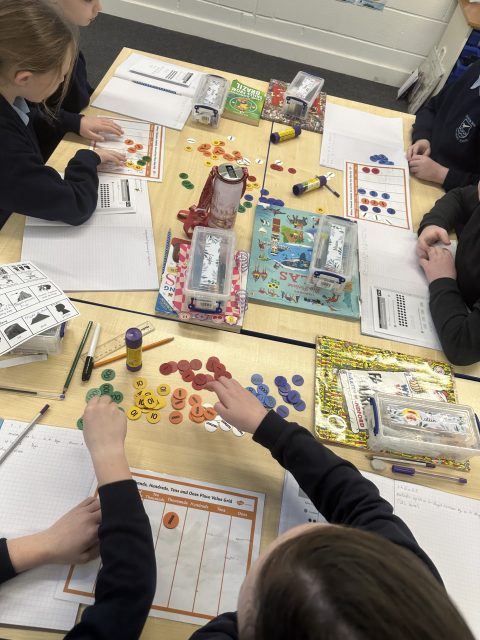
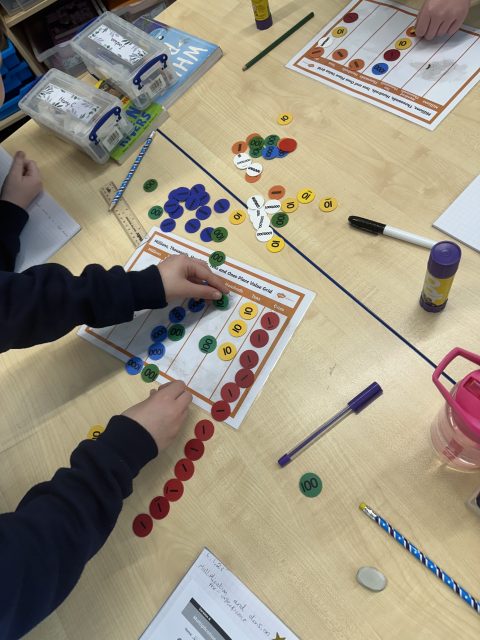
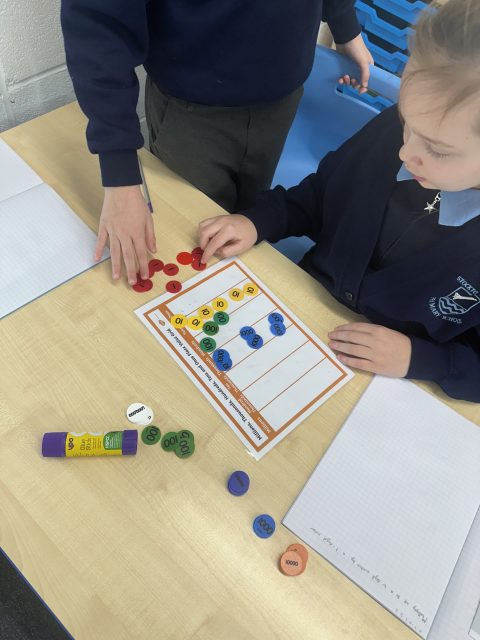



Factor Pairs
Year 4 used arrays to help work out the factor pairs of different numbers.
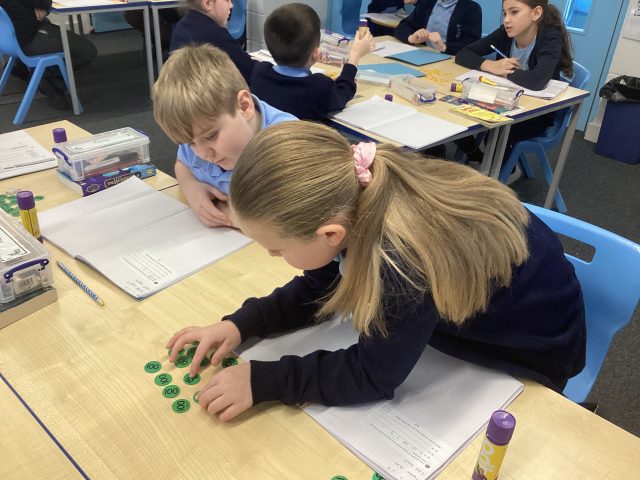
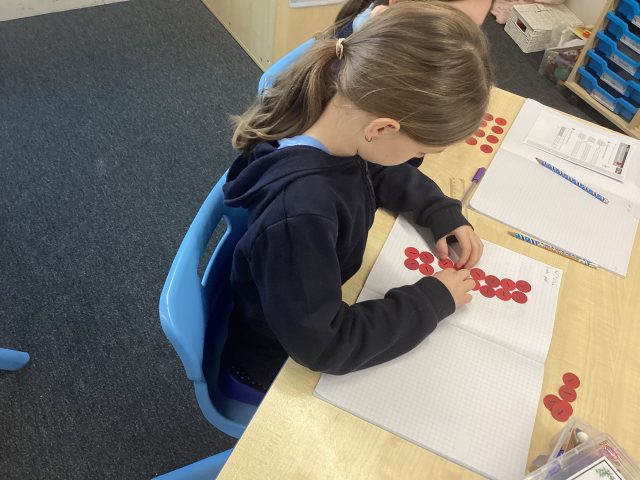

Music – identifying instruments
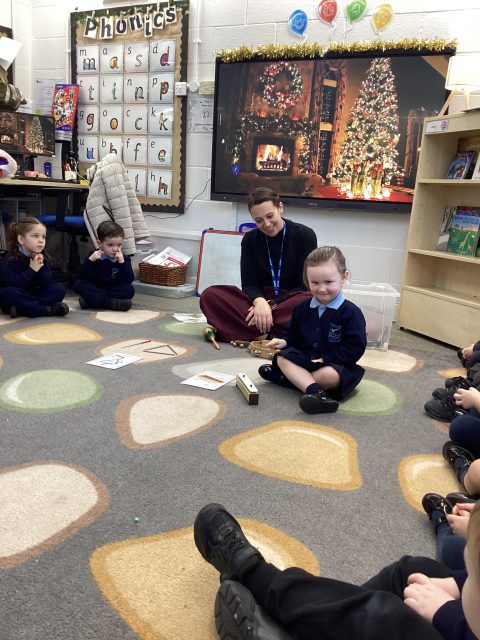
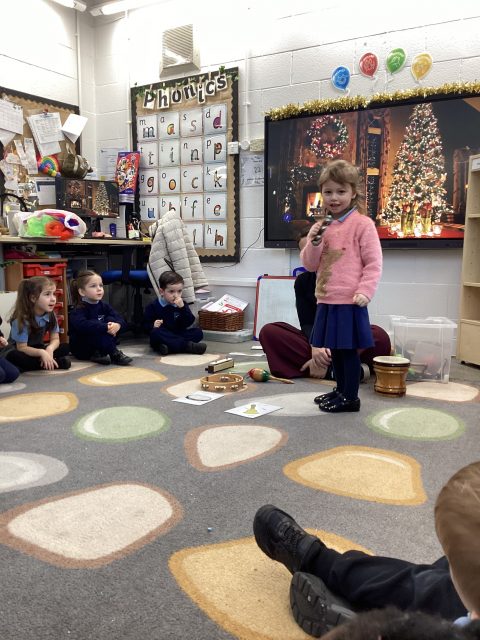
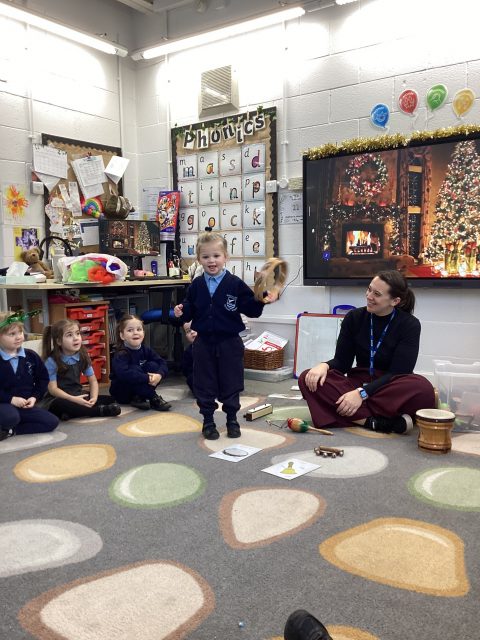
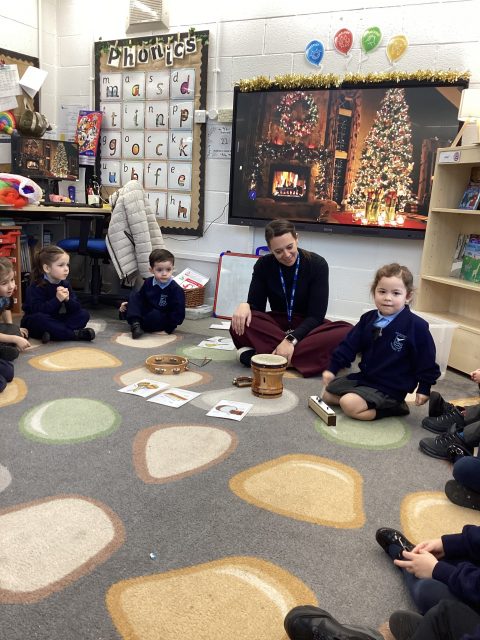
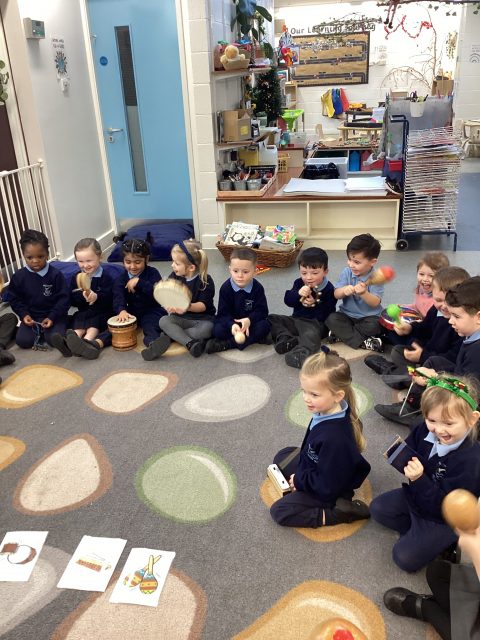
We listened to the sounds each instrument made, and then closed our eyes and used our ears to identify them. We then had to identify a rhythm, which links to our learning in maths about patterns.
478
Reindeer Food
Reception have created their own reindeer food to help guide Santa’s reindeers. We measured oats and magic into a pot, then we mixed it up and poured it into a small bag.

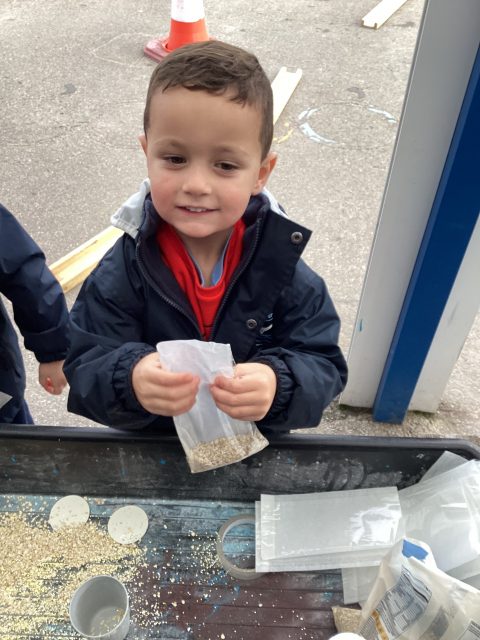
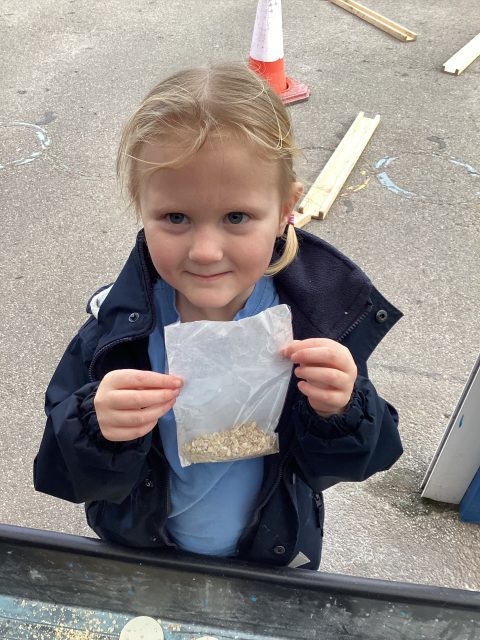
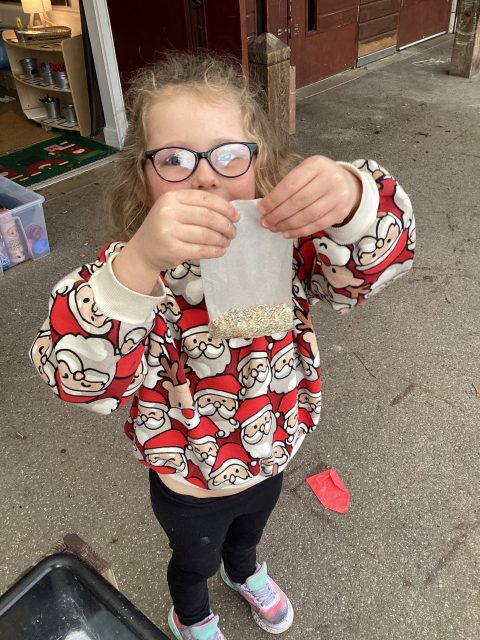
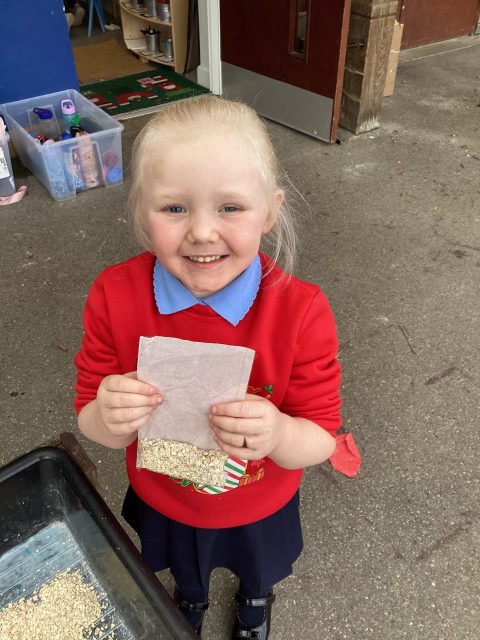
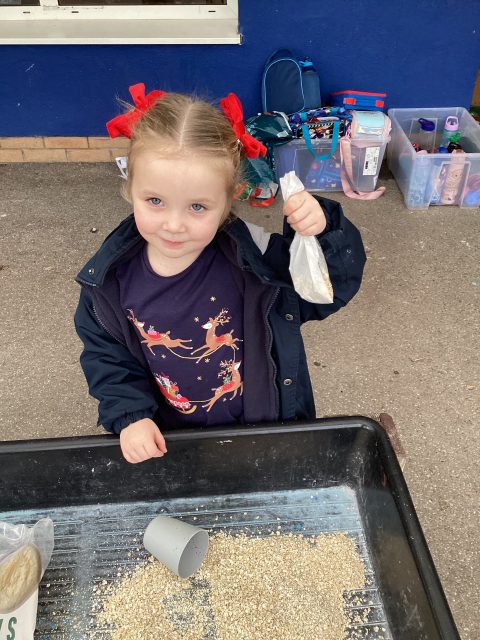
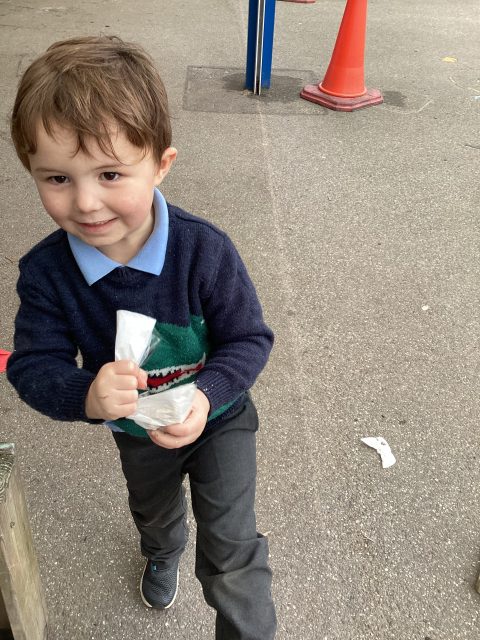
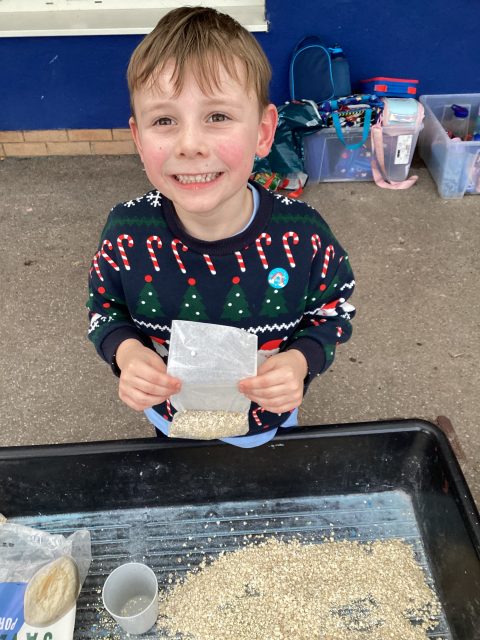
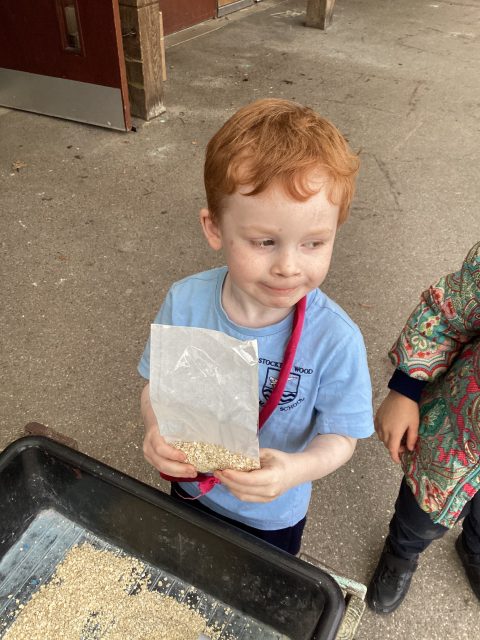
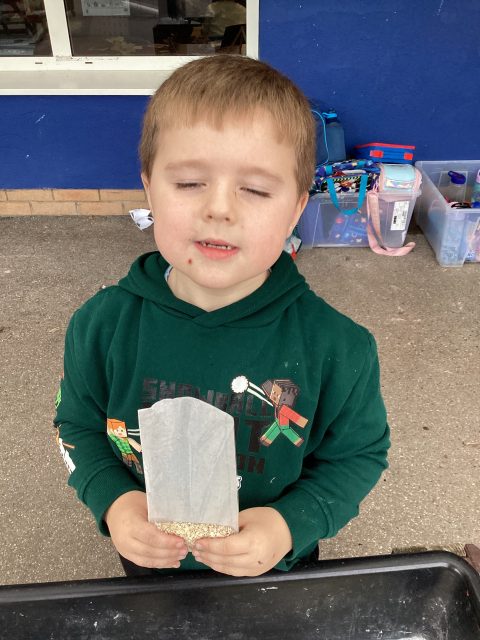
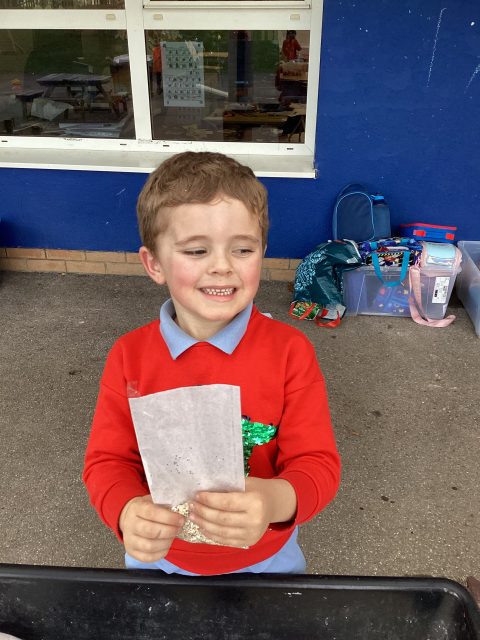
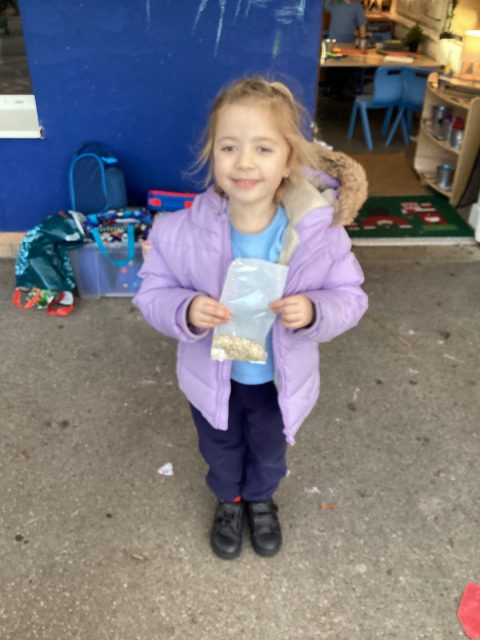
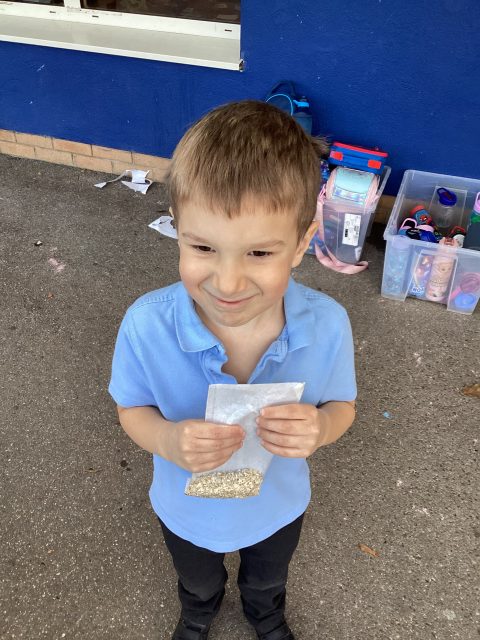
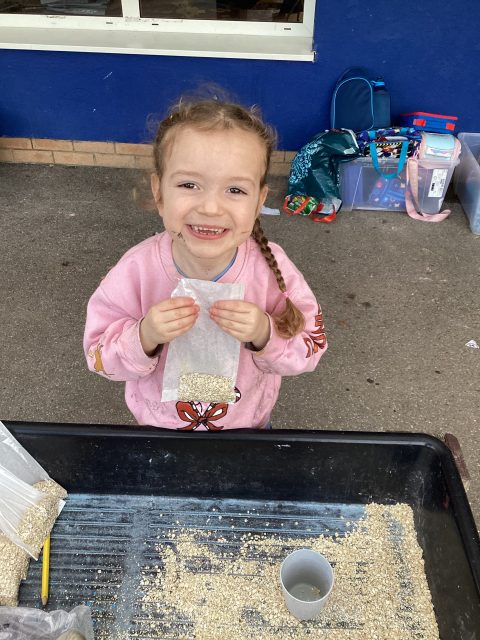
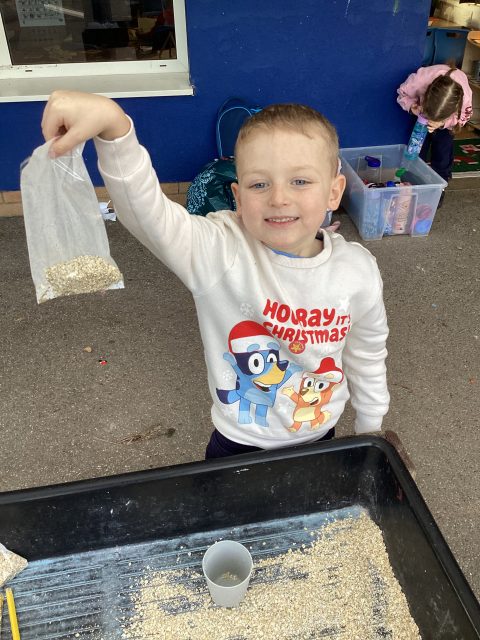
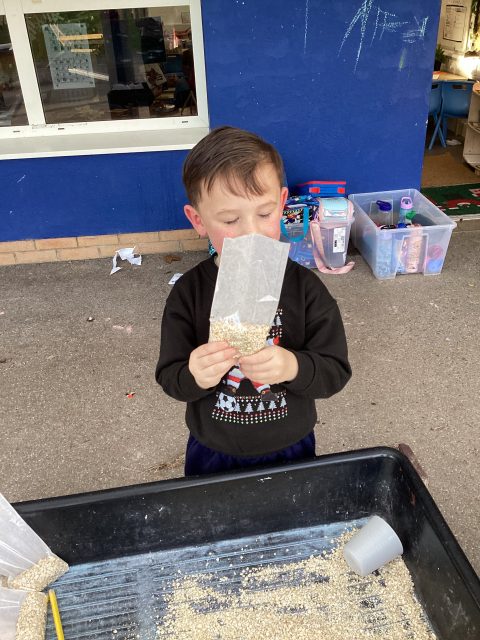
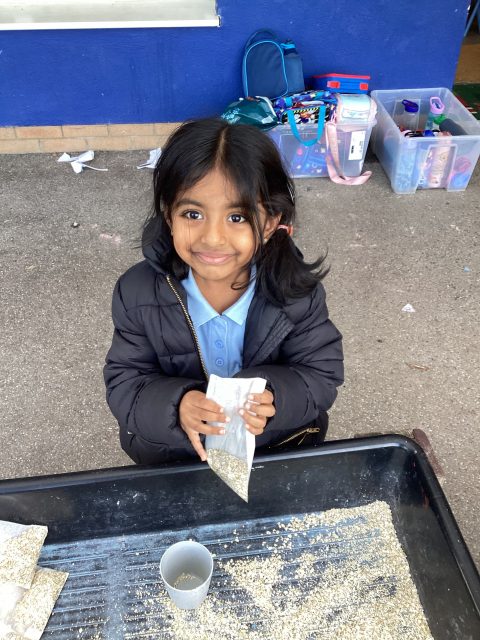

Maths Party Day Winner.
Well done to our Year 4 pupil for winning Liverpool’s Maths Party Day competition! Her entry has been transformed into a Rubex cube artwork by the talented artist Fai, who presented it to her in assembly today.
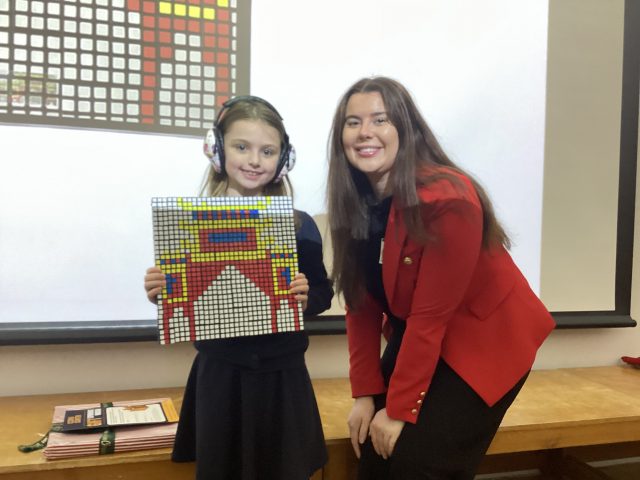

Elf of the Shelf day 4!
‘What could my parts be to make 2 wholes?’ The children got really creative with fractions and numbers to make 2 wholes.
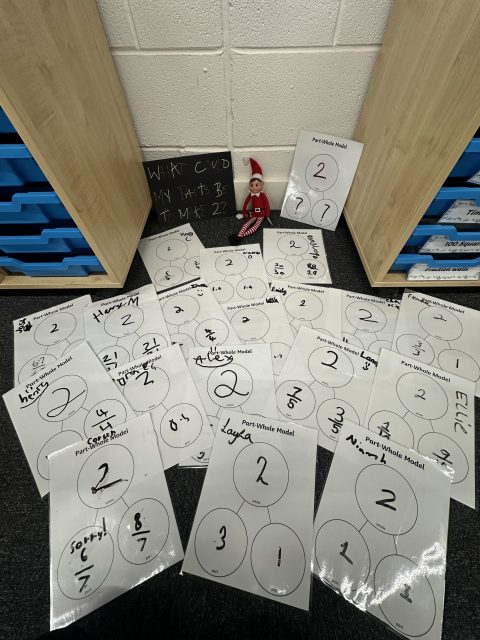


Year One – Maths and Art
Today we explored 2D Shapes and sorting them in different ways. We went on a shape hunt around our class and found lots of items in our class that were 2D shapes. We then used our collage skills and created 2D shape robots.

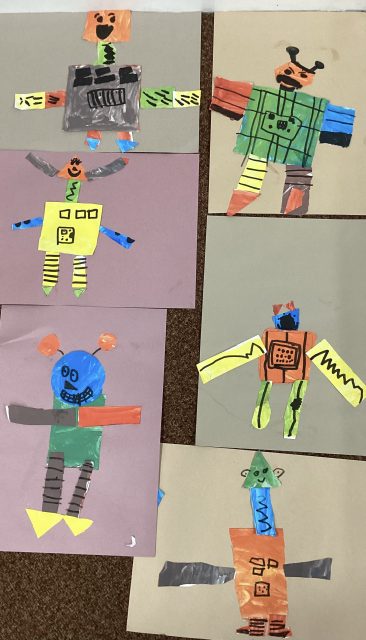



Consolidating patterns
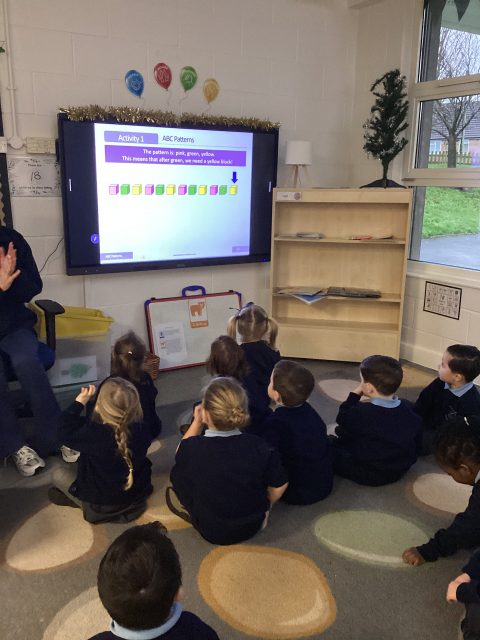
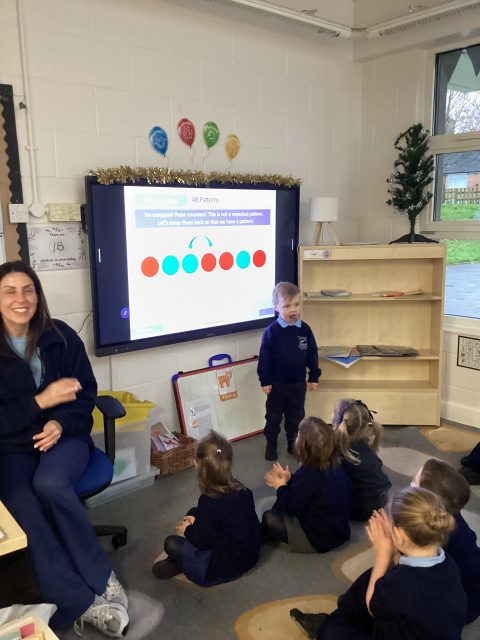
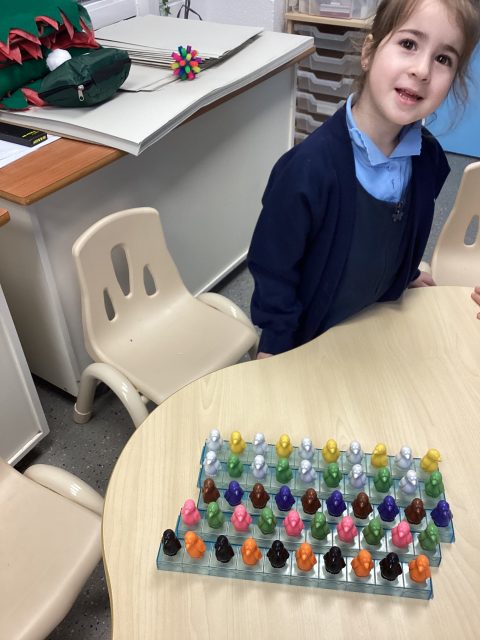

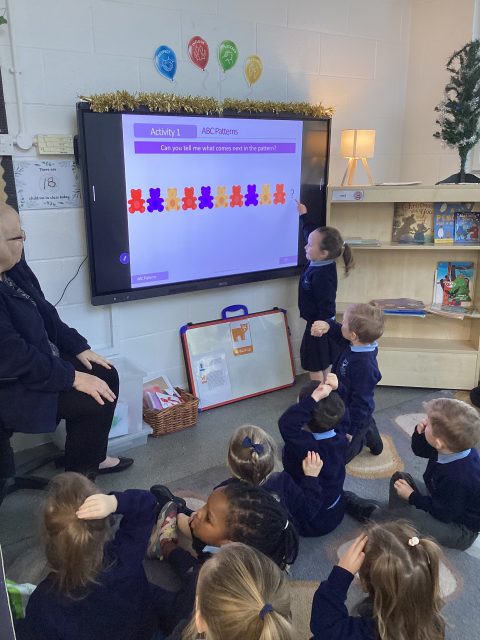
We looked further at patterns in Maths, looking at patterns with more than two attributes! We then showed off our skills in provision, making patterns of our own!
585


Multiplication and division
3McK have been learning about arrays. We used different counters to make arrays and generated number sentences from them.
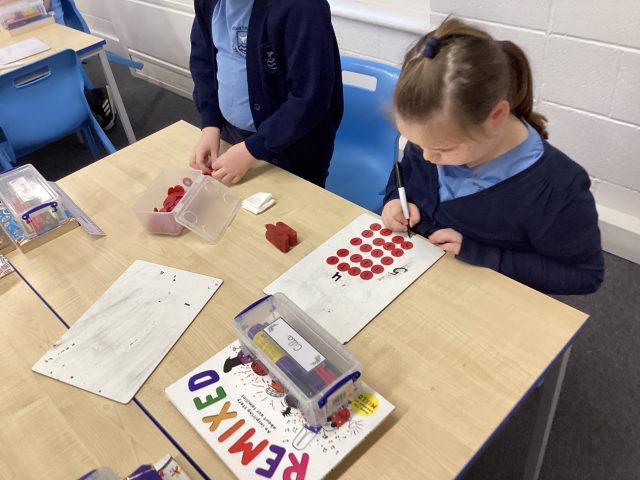
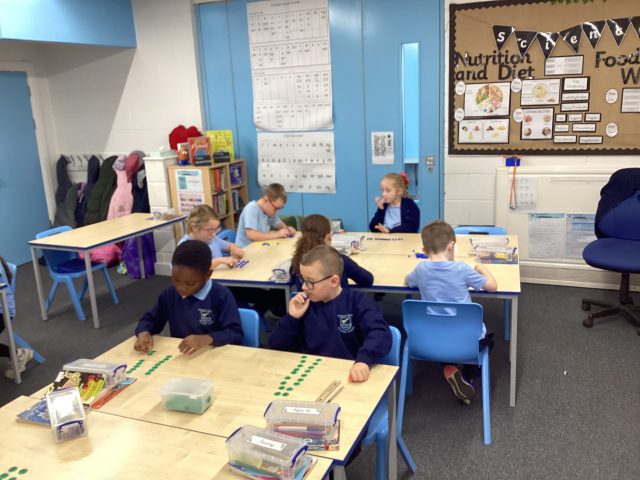
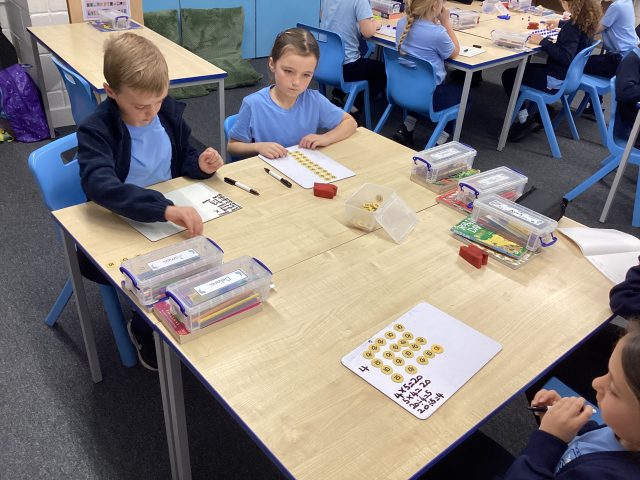
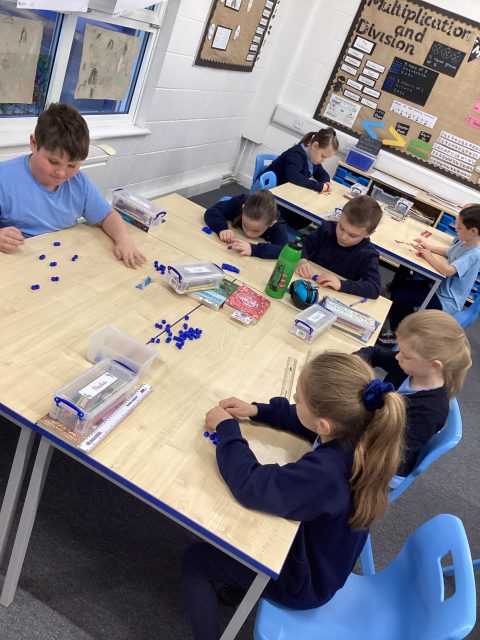

More repeating patterns
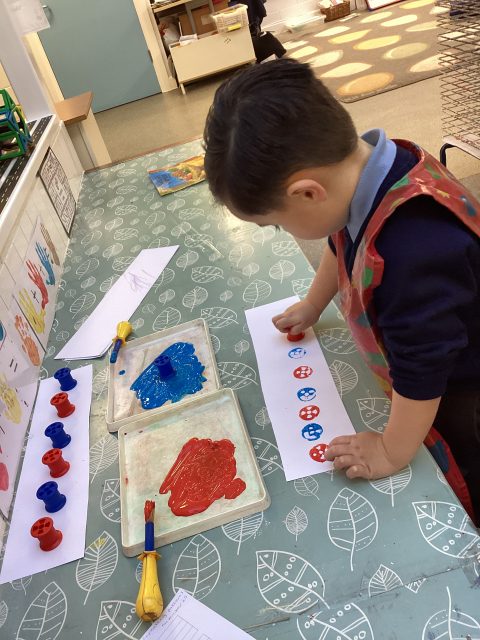
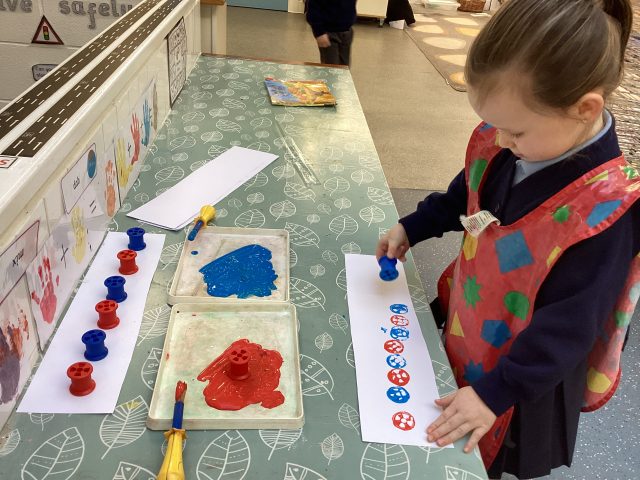
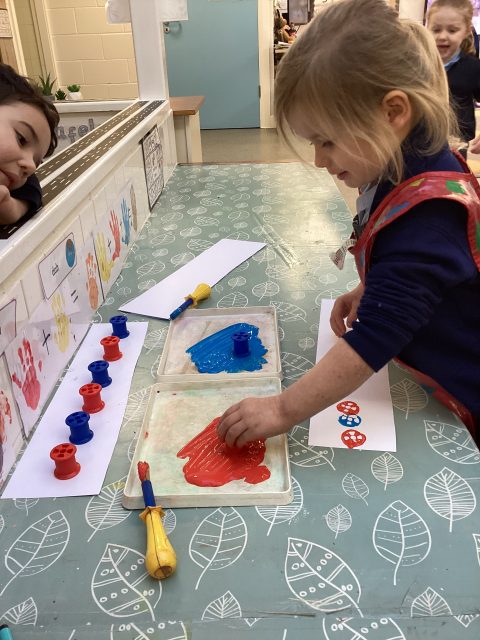
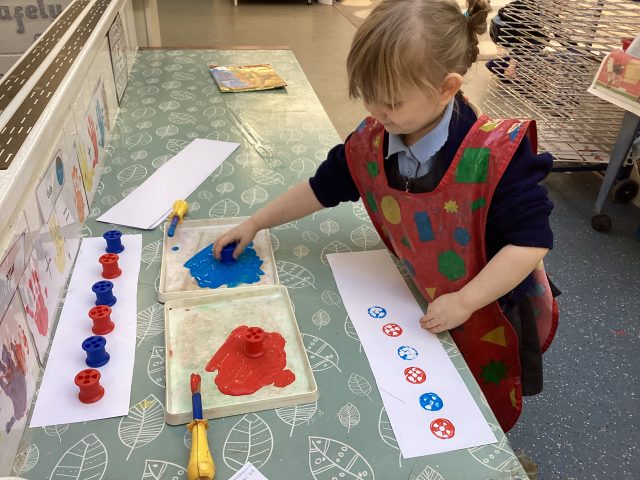
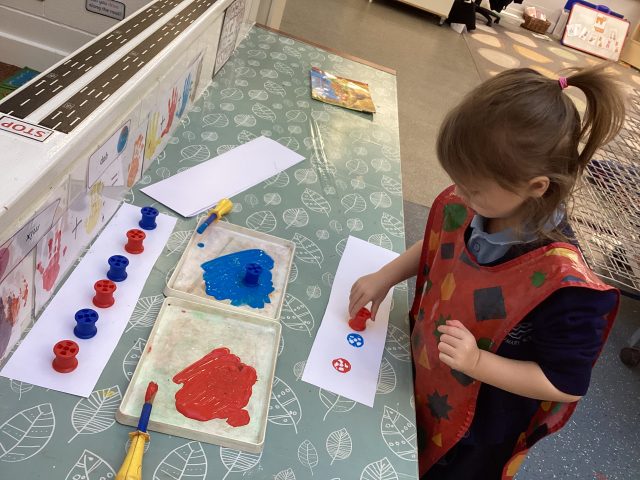
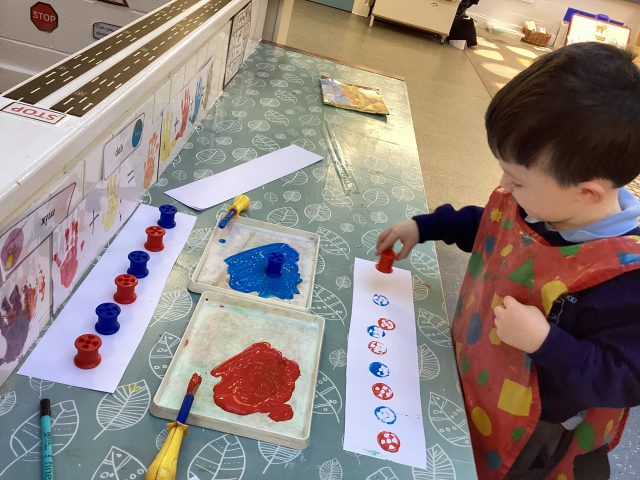
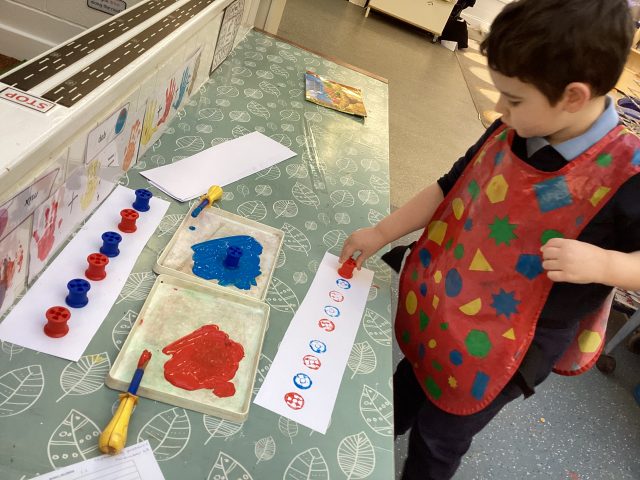
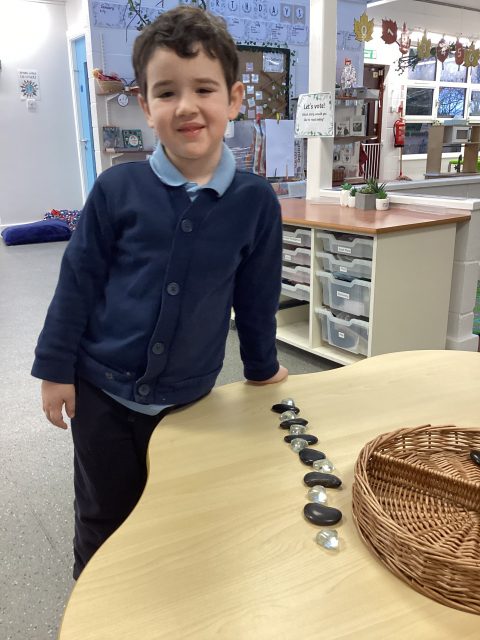
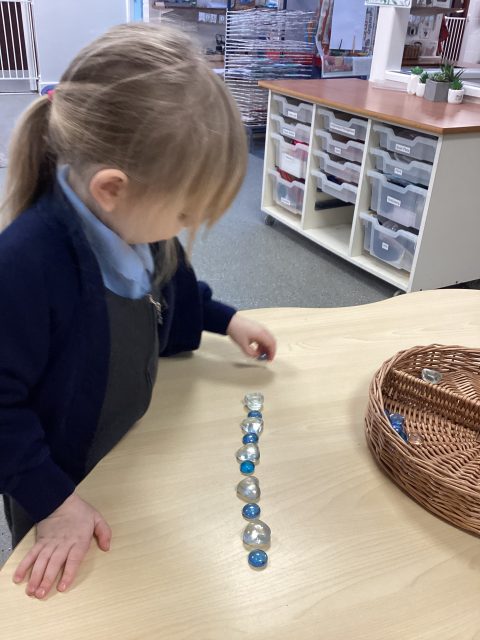
We further consolidated our learning about patterns, and printed some using cotton reels. This proved trickier than we thought, as we had to really concentrate on which reel we were picking up. Some children then even recreated their own patterns in provision independently!
643
Repeating patterns
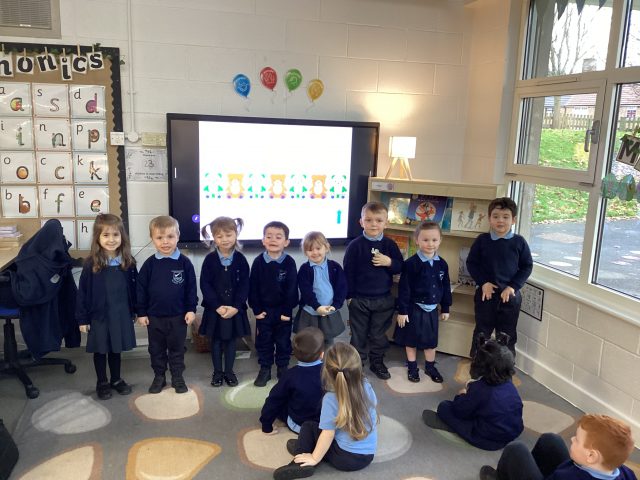
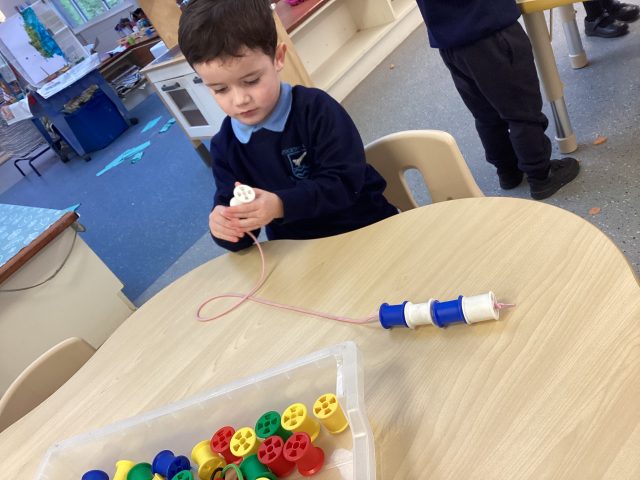
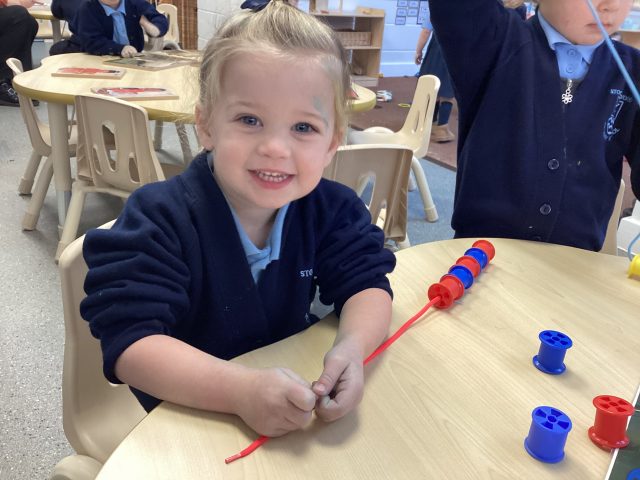
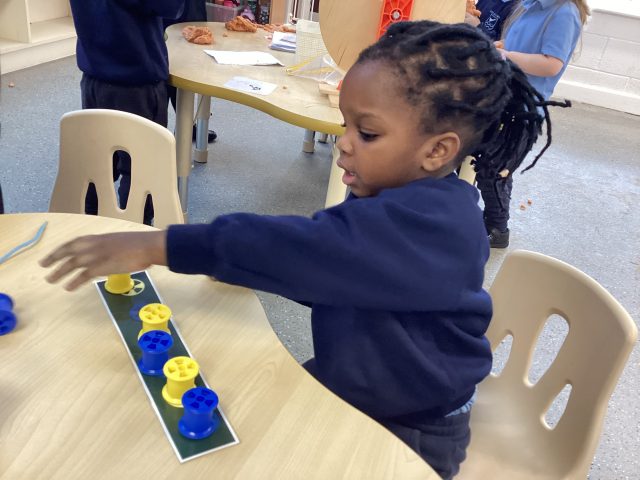
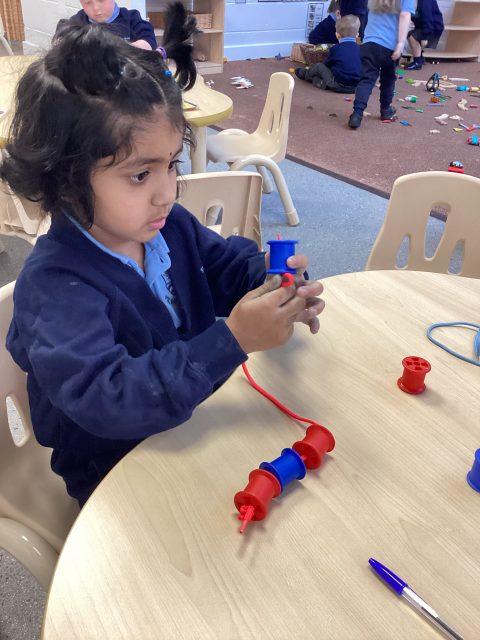
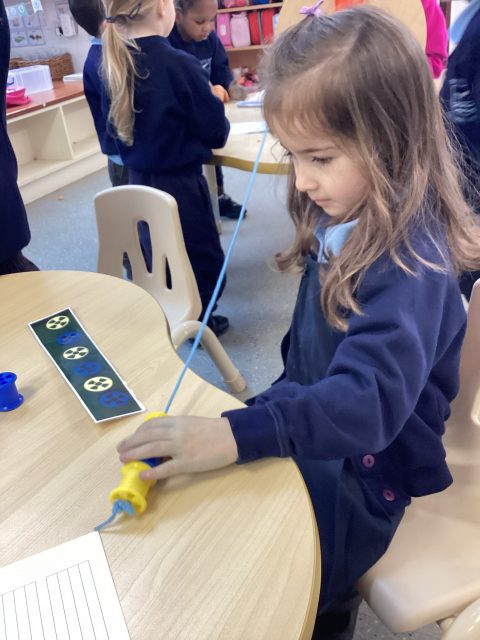
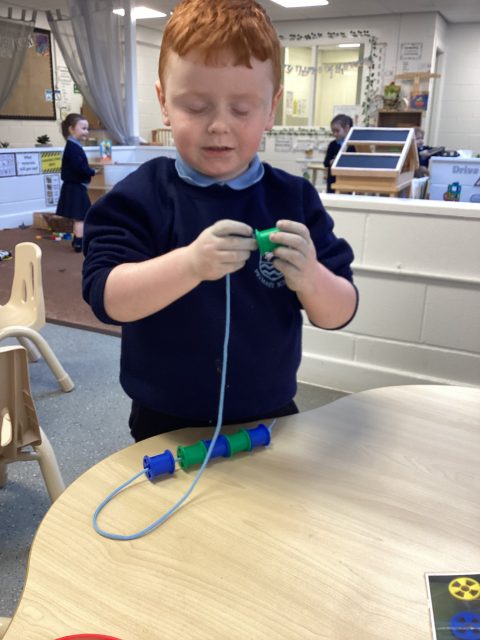
In maths, after learning all about number two, we are now learning about patterns that have two attributes. We now know that for a pattern to work, the attributes have to take turns! We made a pattern on our carpet of girls and boys, and then consolidated in small groups making a threading pattern, which doubled up as an excellent work out for our fingers!
620
Shapes
Reception have been exploring shapes. We have made our own stars by cutting rectangles and triangles out and gluing them together. We have also been on a shape hunt searching for squares and rectangles.
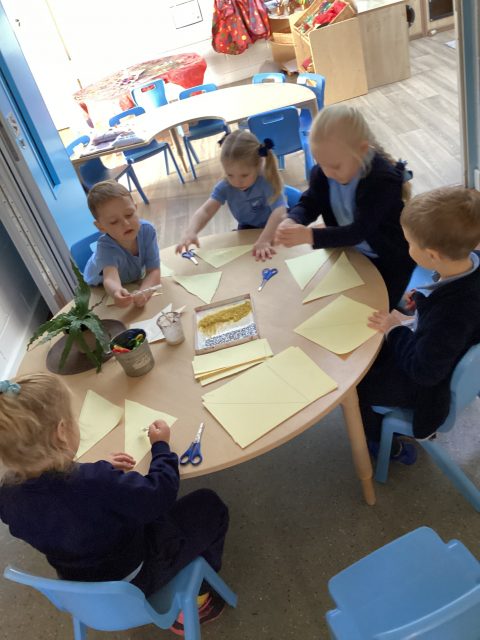
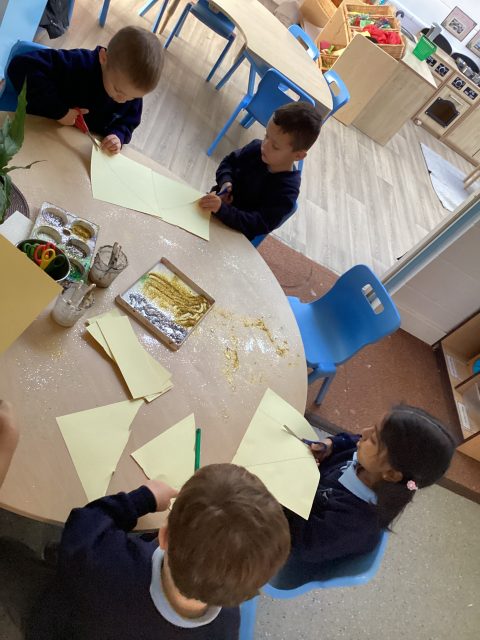
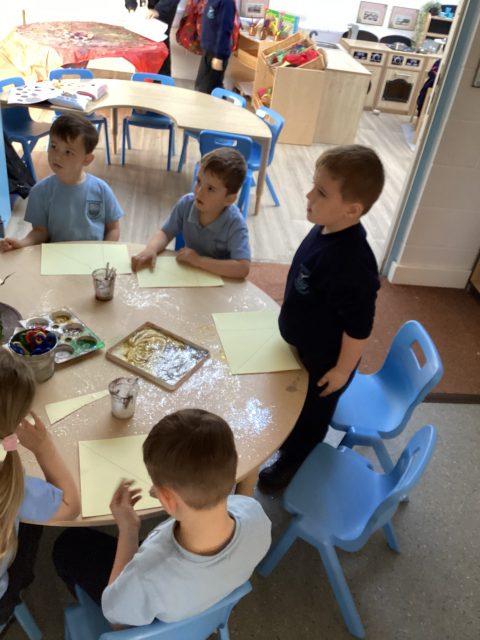
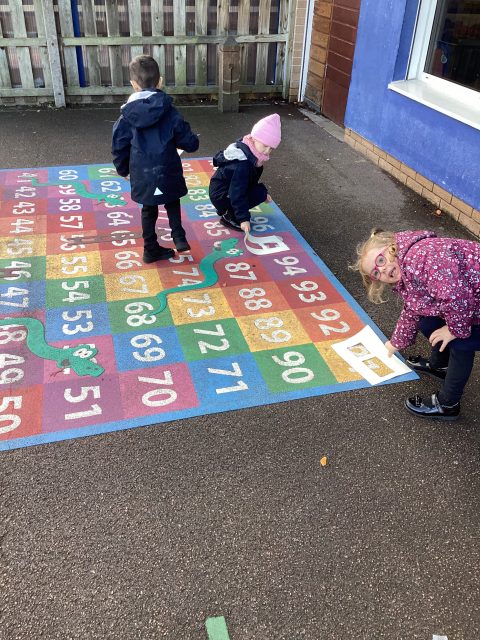
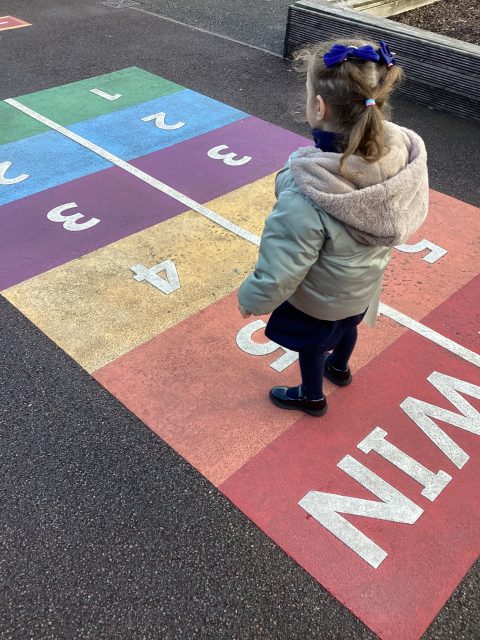
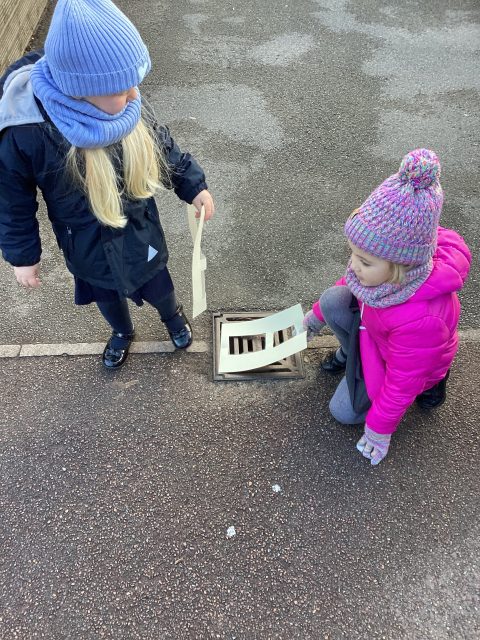
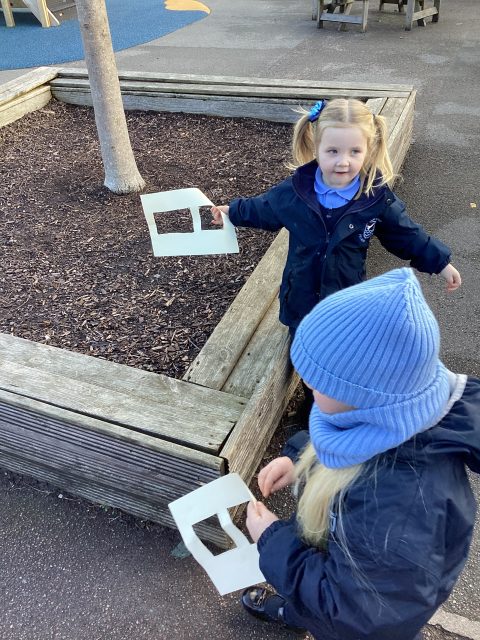
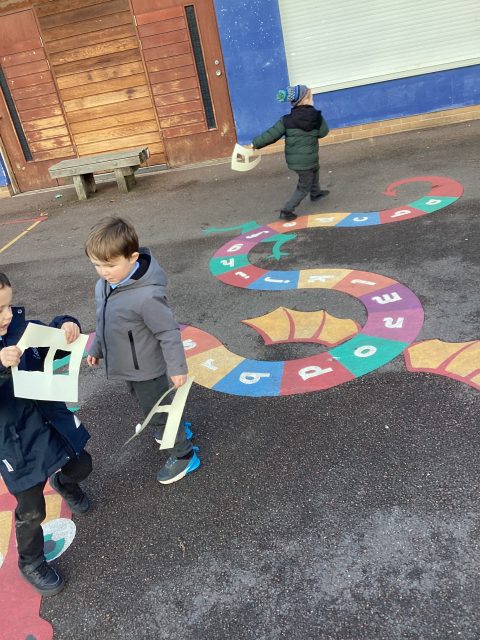
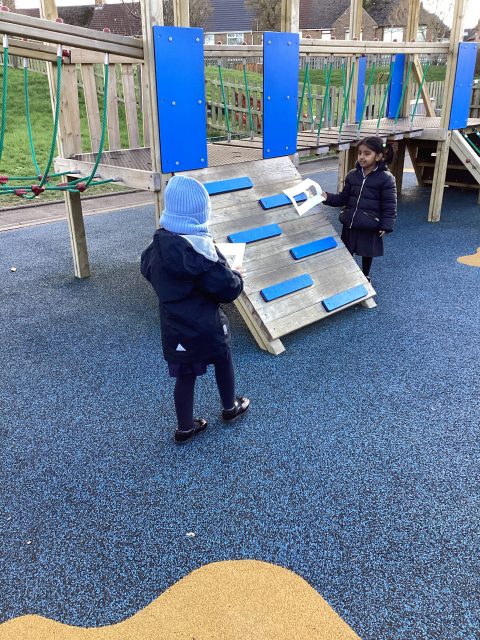
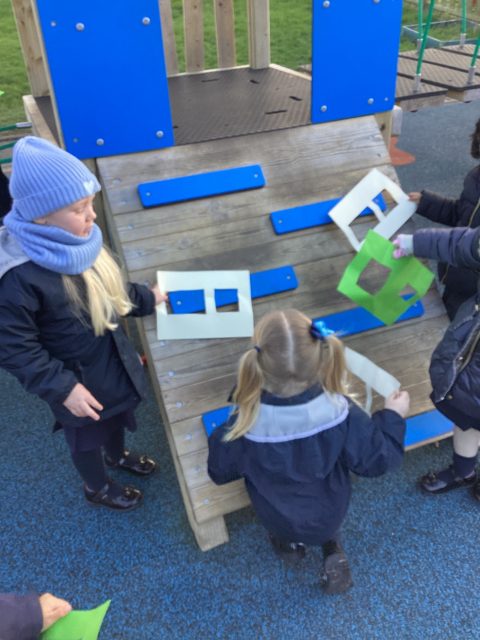
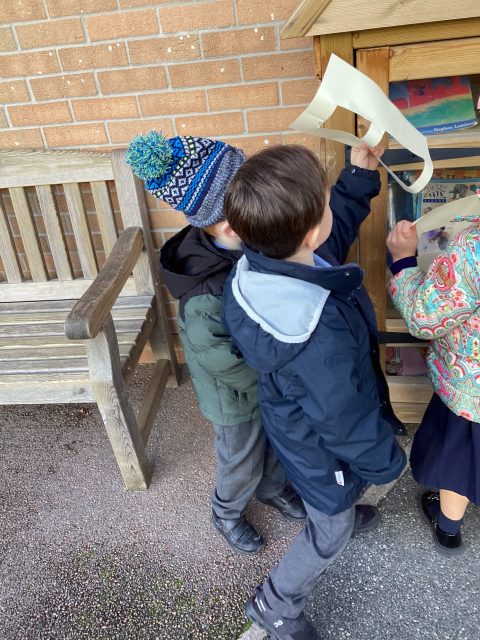
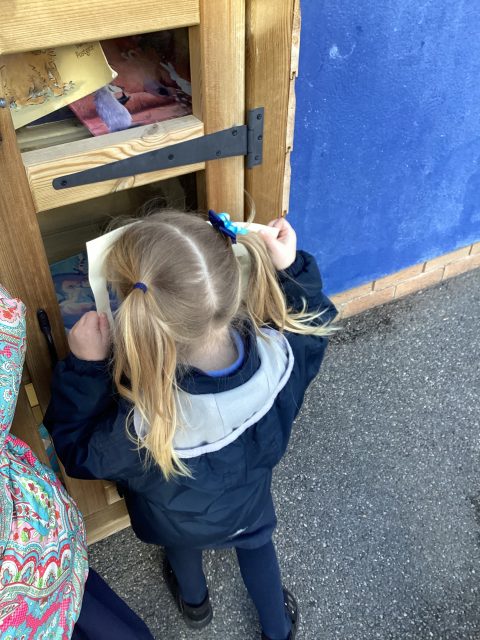
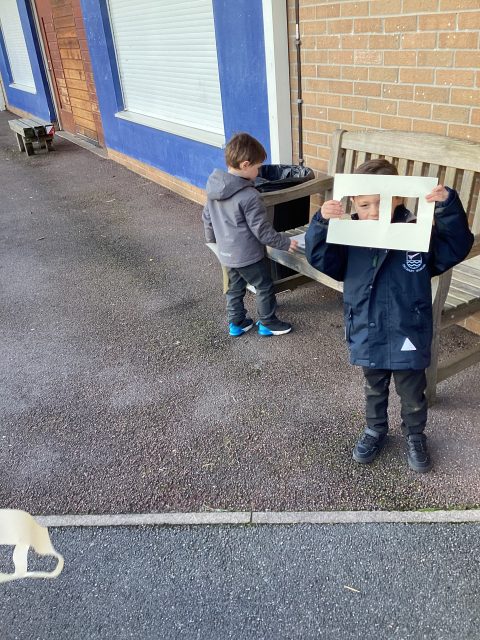
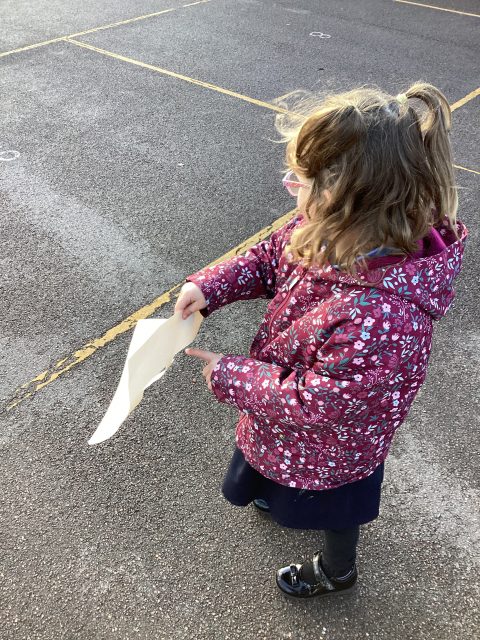
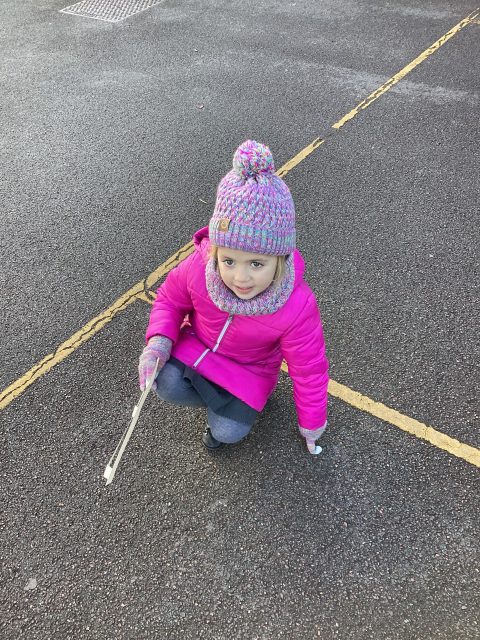
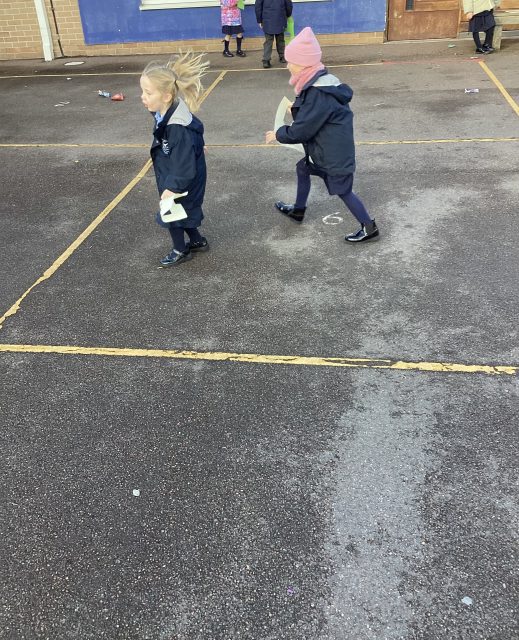
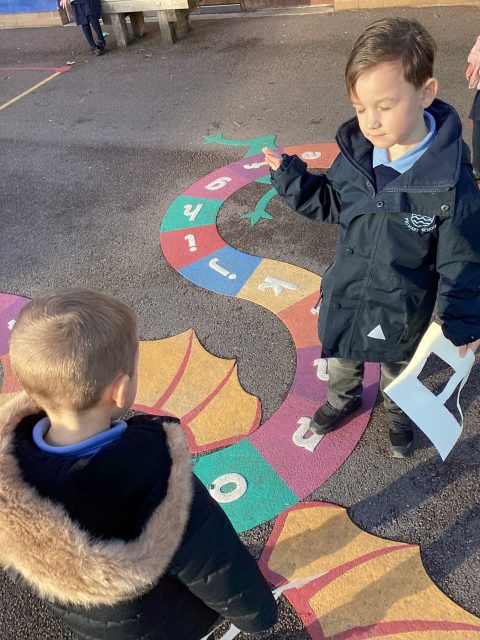

Sharing or Grouping?
This week in Maths, we have been focusing on sharing and grouping. Today, we used counters to answer word problems and discussed whether it was sharing or grouping.
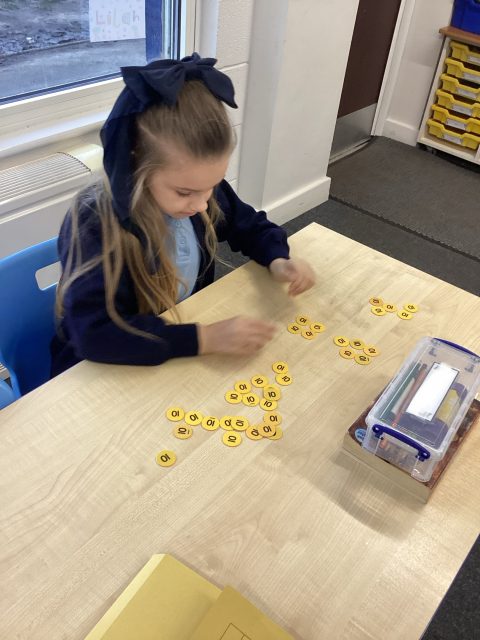
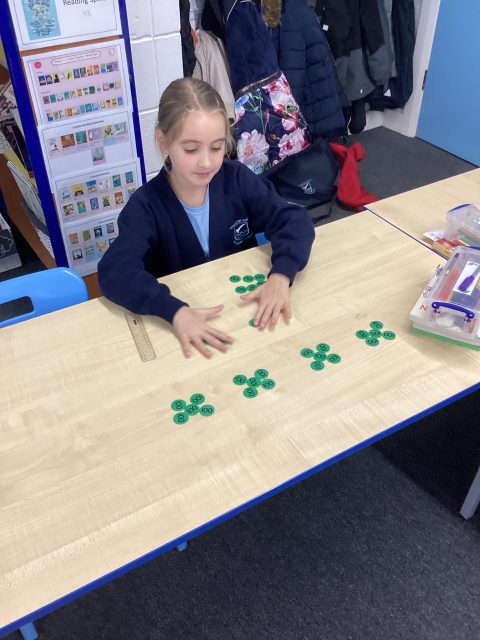
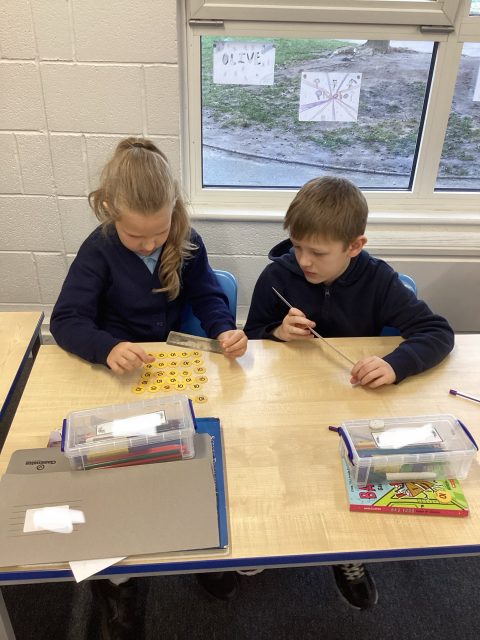
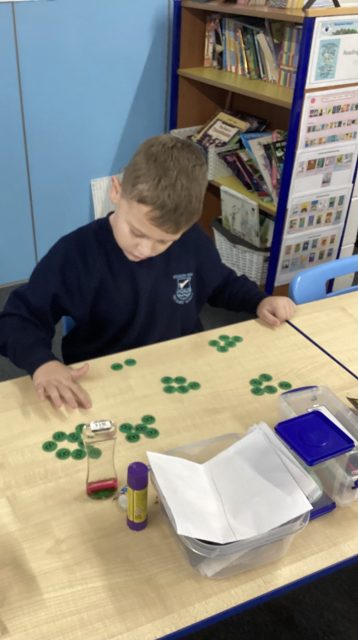
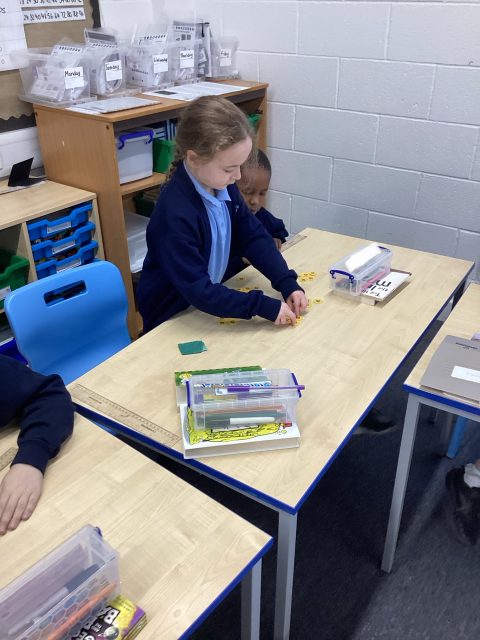
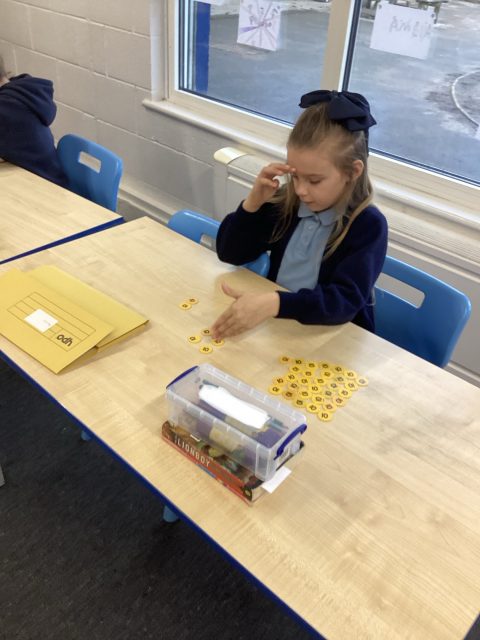
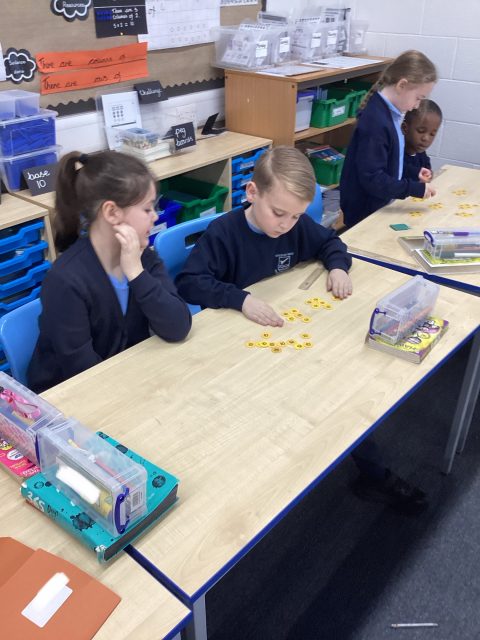
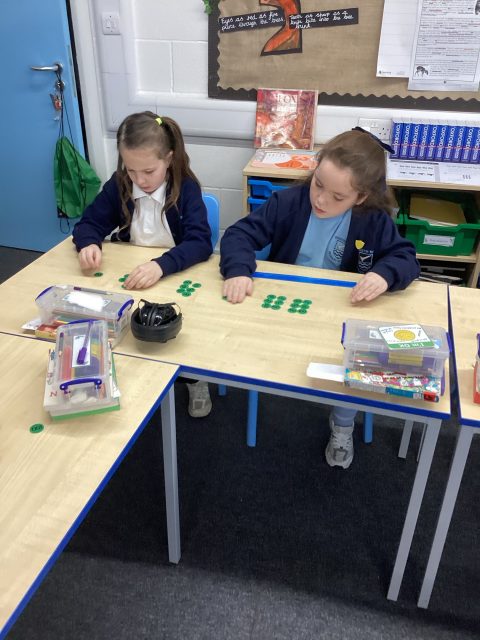
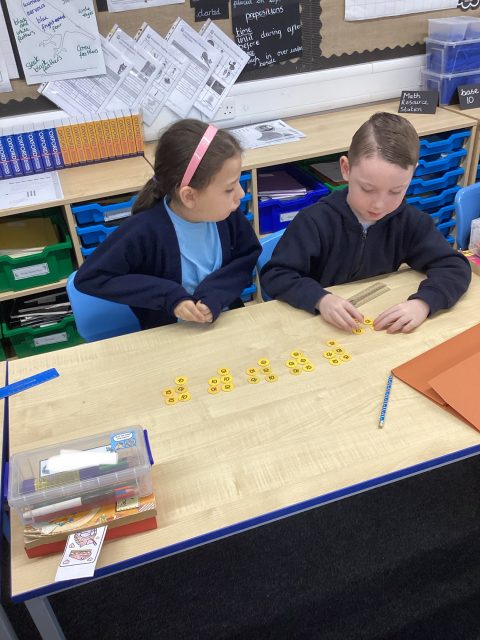
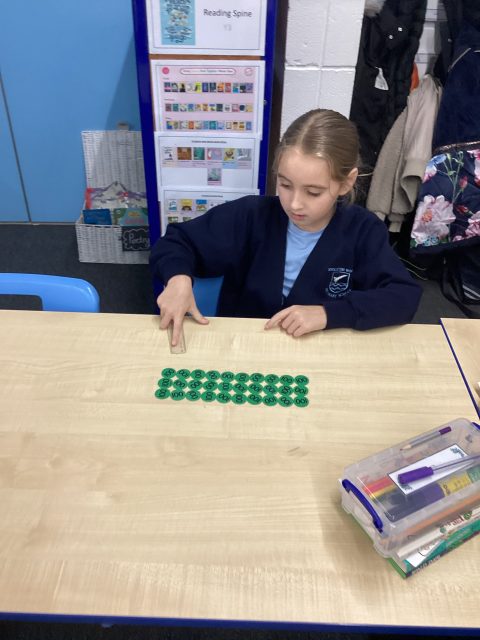
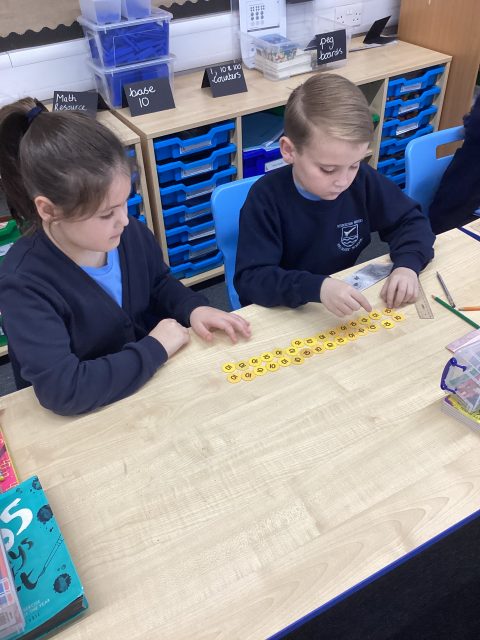

Building arrays
Year 4 have been using cubes and counters to build arrays to help us understand our times tables.
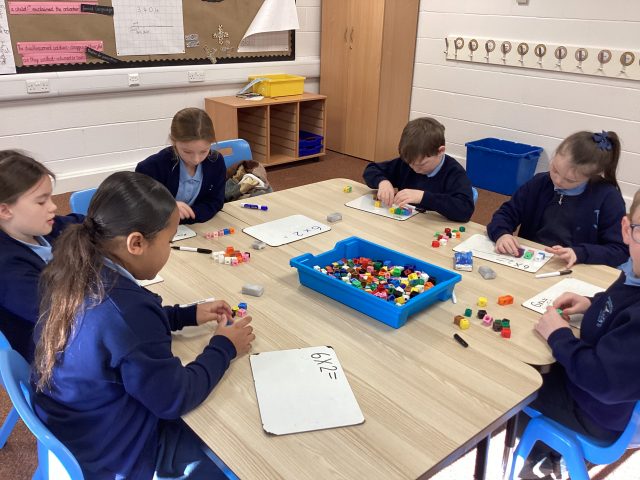
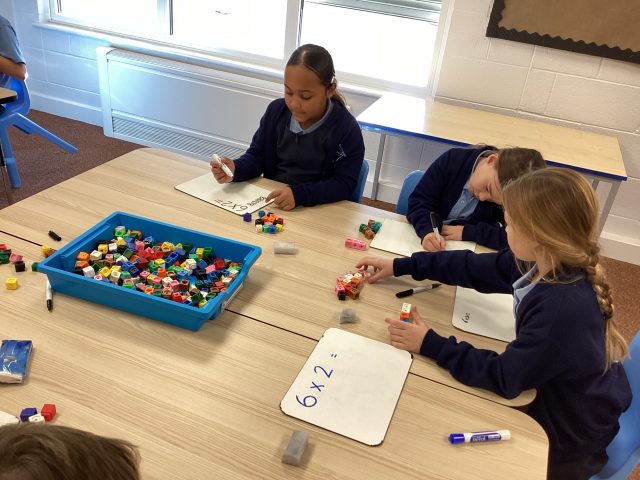



Shape Hunt 🟥
Today we explored our environment to find squares and rectangles, using our shape finders to help us spot the different shapes around us. We looked carefully at objects outdoors and were excited to discover how many items had four sides. It was a fun way to learn about shapes in the world around us!
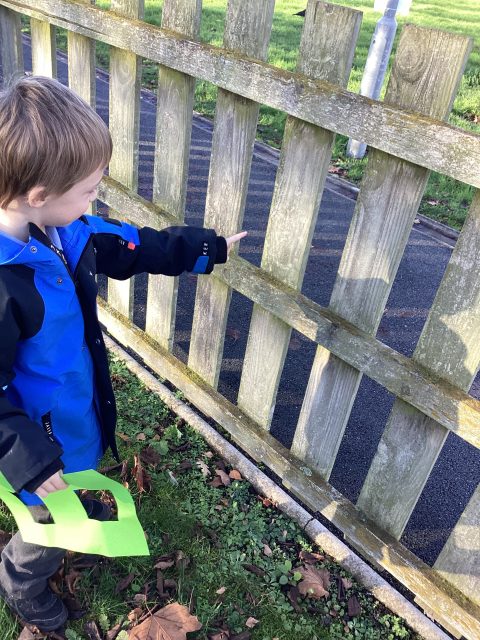
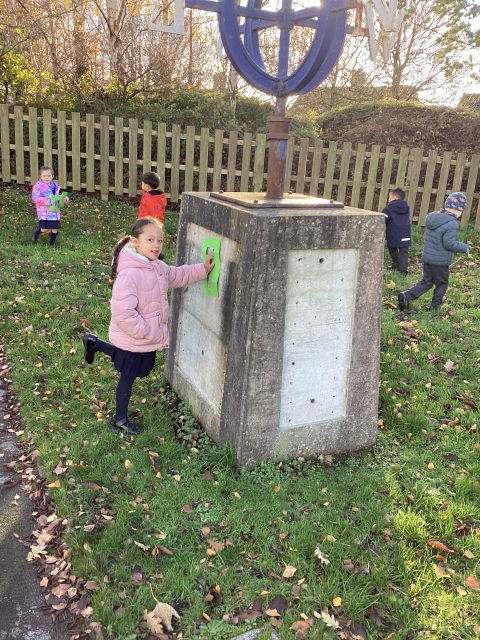
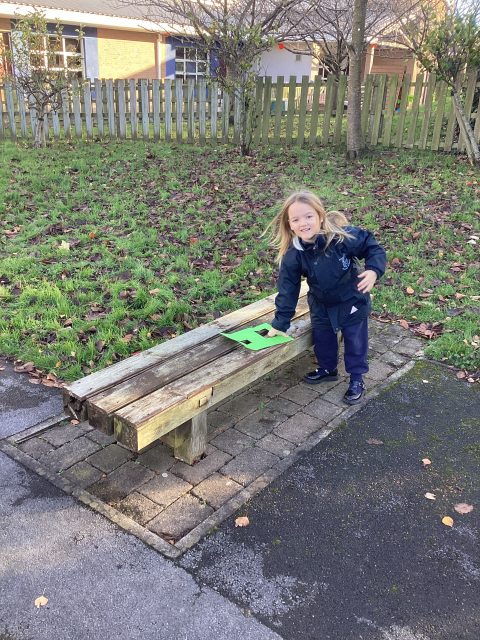
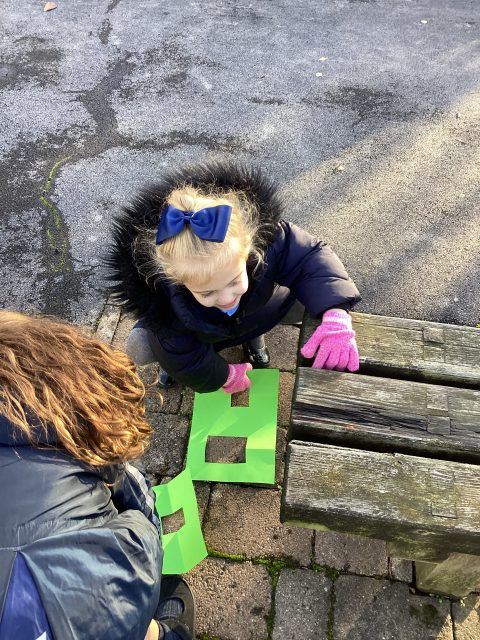
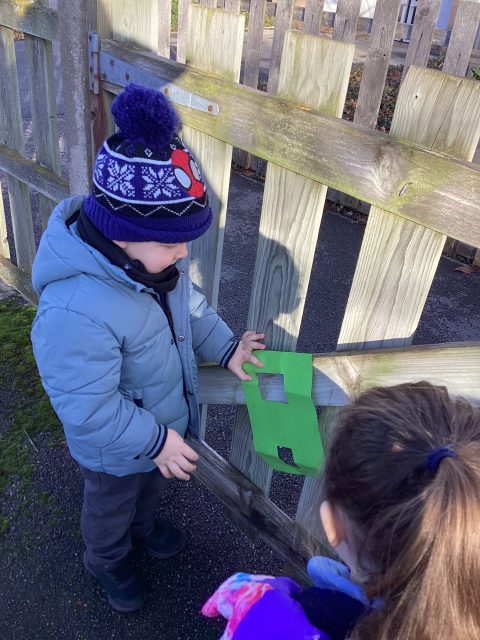
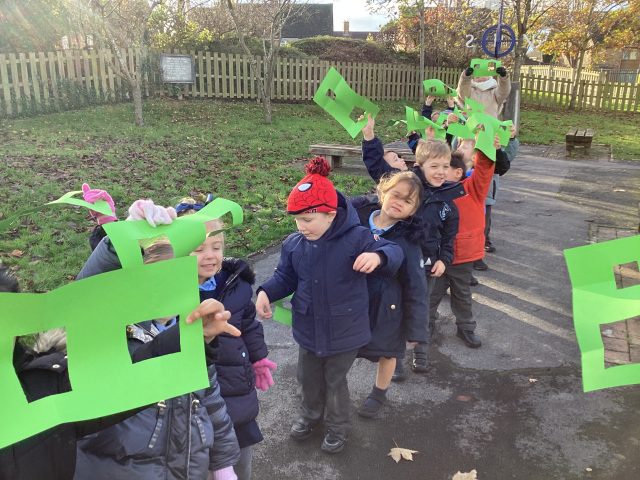
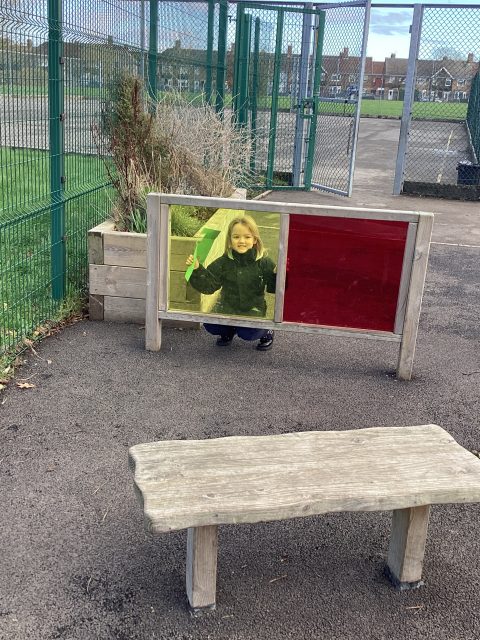
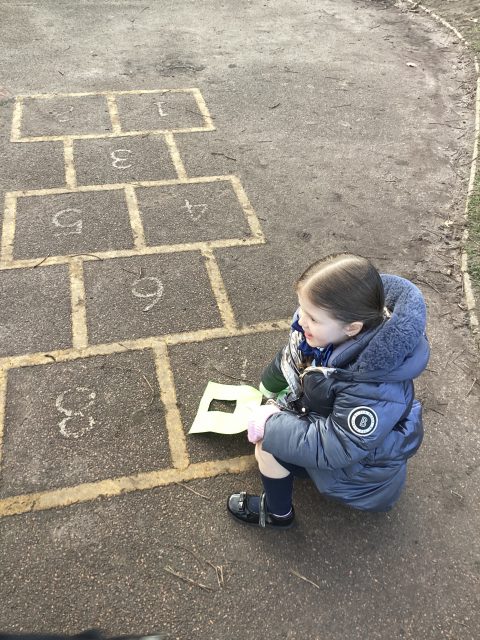
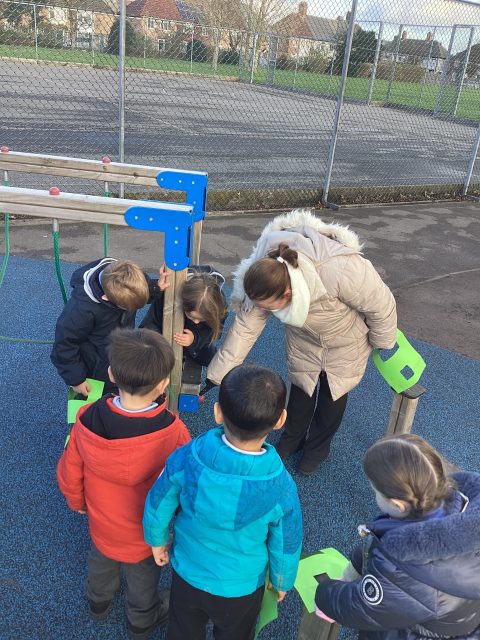
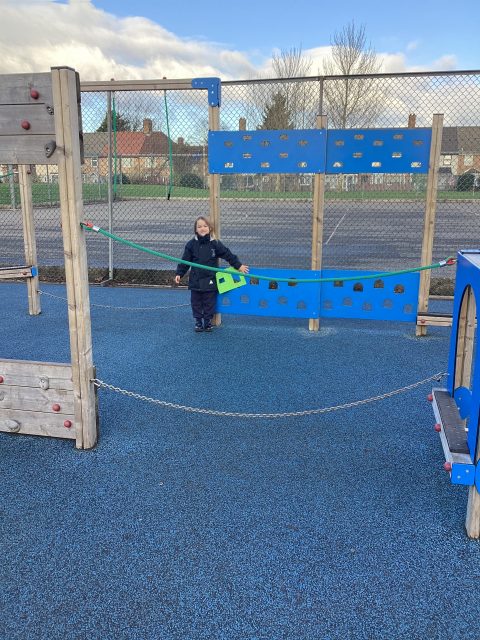
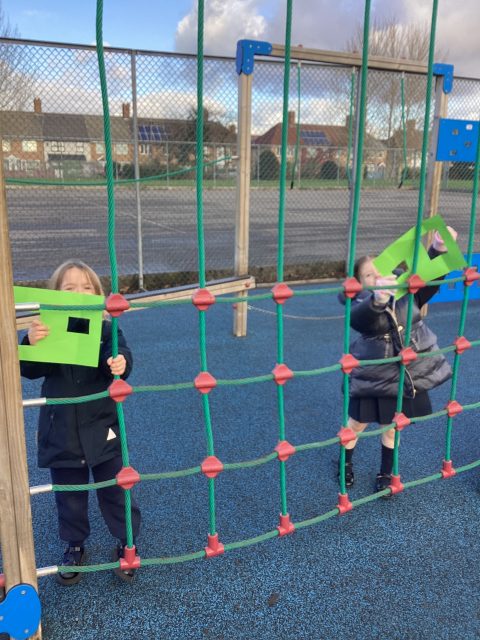

Number 2
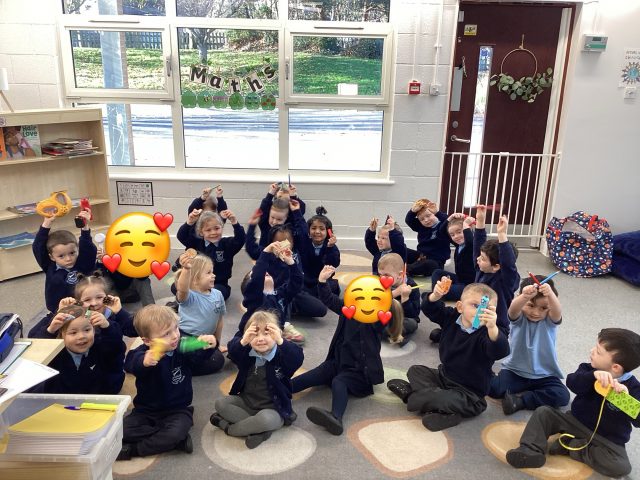
We have been learning about number 2: recognising the numeral, subitising when there are two objects and the composition of number two. The children had a challenge – go and find two objects. They didn’t need to match, but they needed two. The children quickly made a link and realised that they had two hands – if they had one object in each hand, they had completed the challenge!
691
Banana muffins
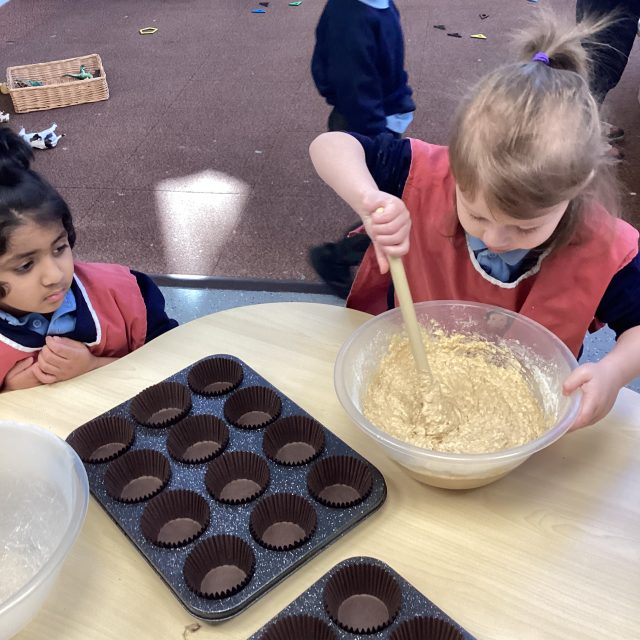
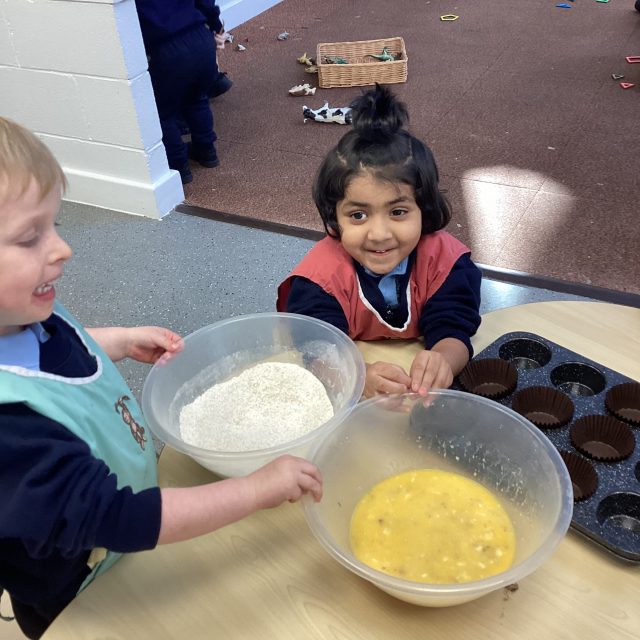
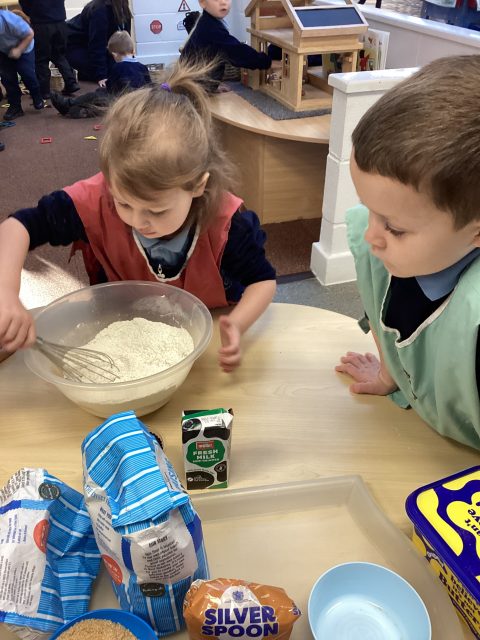
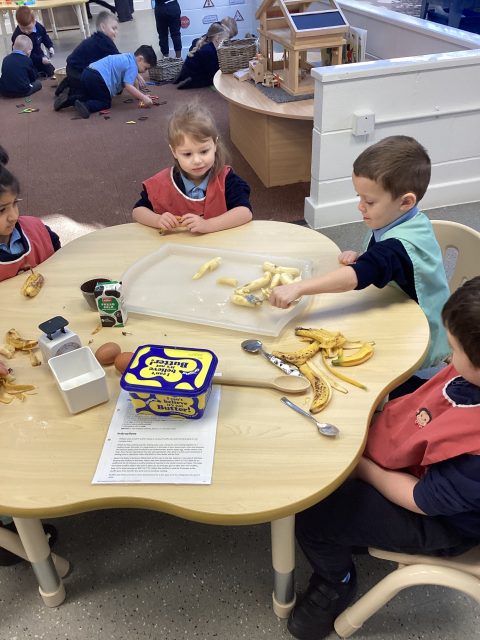
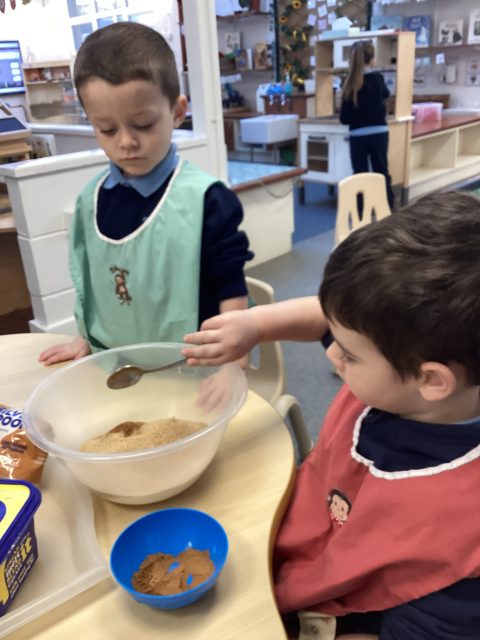
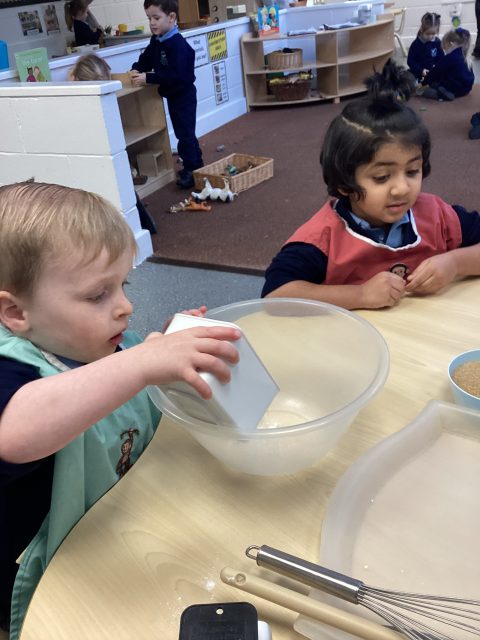
This week, we made banana muffins! We carefully weighed out the ingredients…but mashing the bananas was definitely our favourite bit! They really were delicious 😋
693
9 times tables
In maths, Year 4 have been learning their 9 times tables. Today, we looked at the patterns and different ways to work out the 9 times tables.
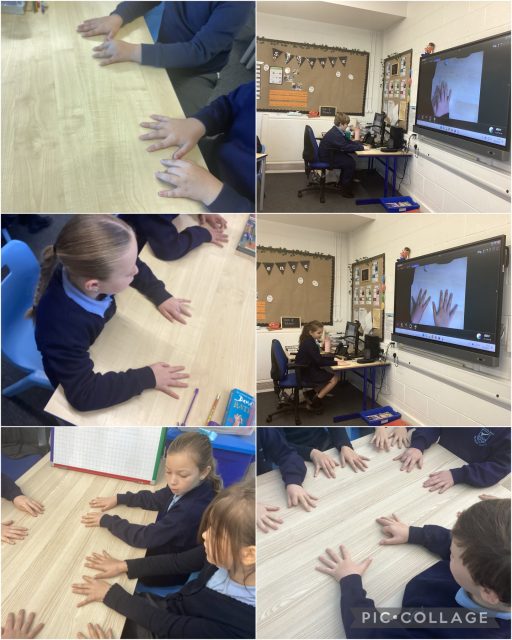

Maths – Year One
We have been busy problem solving and reasoning using our addition and subtraction skills.
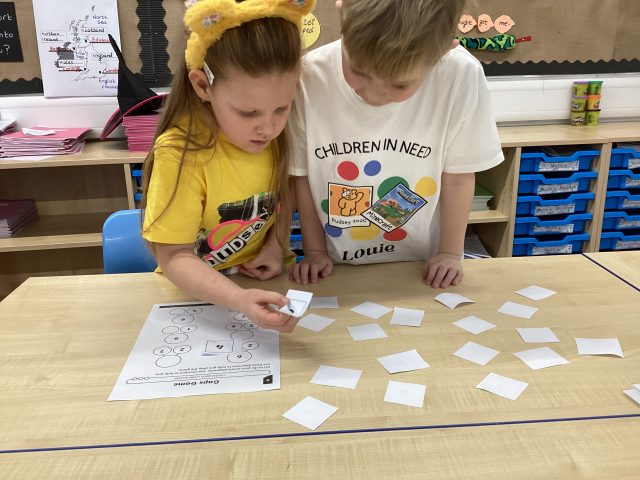
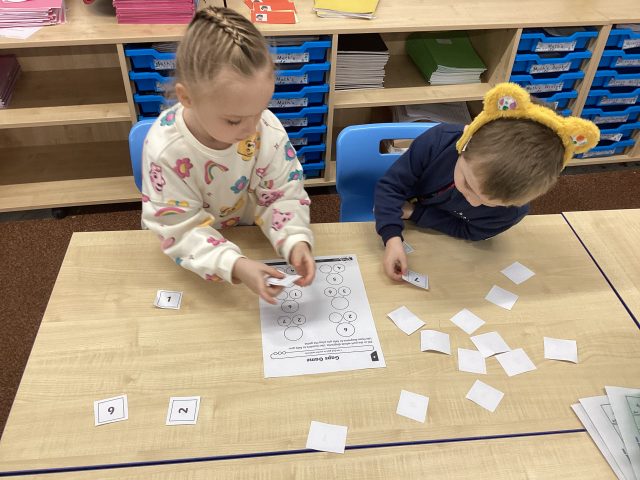
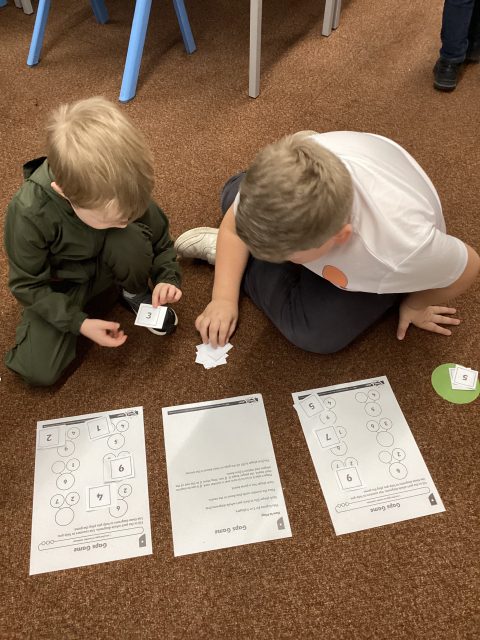

6 times tables
Year 4 have been practising their 6 times tables in maths. Today, they used counters and cubes to build arrays that helped them work out their times-table questions.
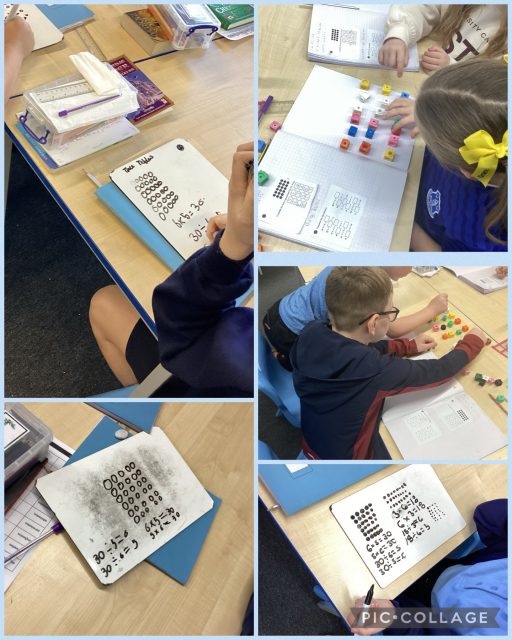

Big cook, little cook
We enjoyed making our own sausage rolls in our cooking session this week. We had to carefully roll the pastry around the sausage, then brush them with milk! This was trickier than it looks, and some of them kept tricking us by unrolling themselves! We then enjoyed them at snack time (some children enjoyed some delicious meat free rolls too 🥰)
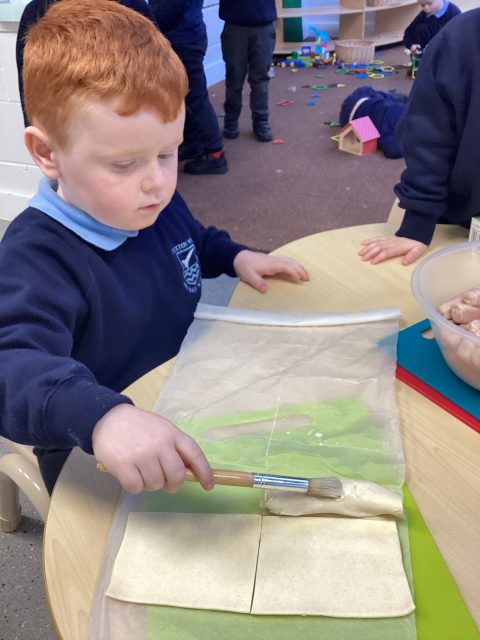
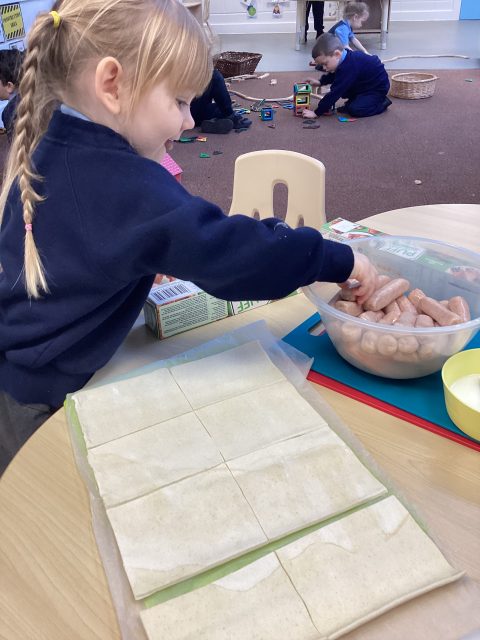
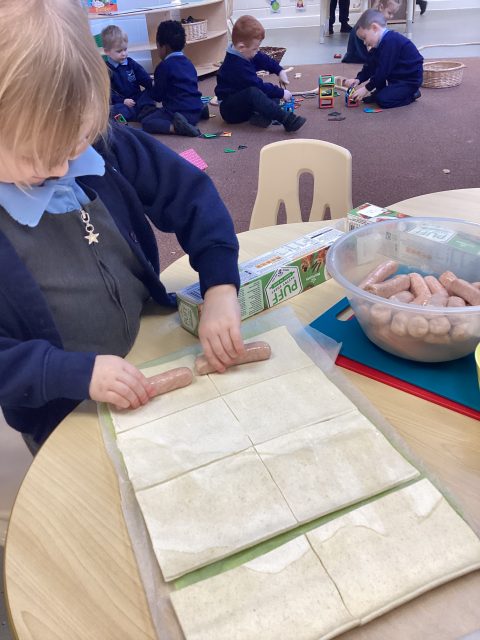
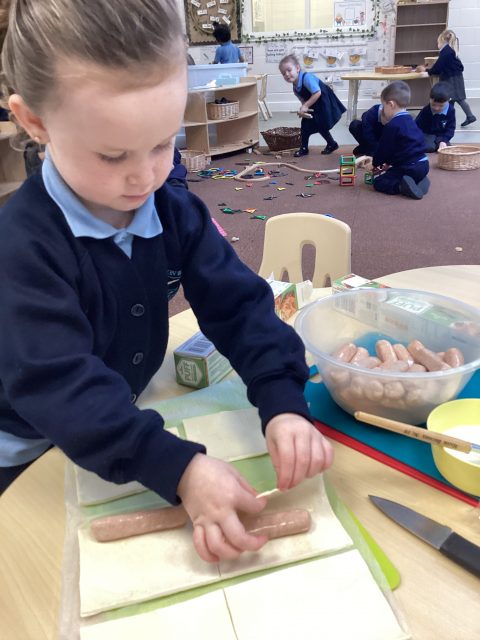
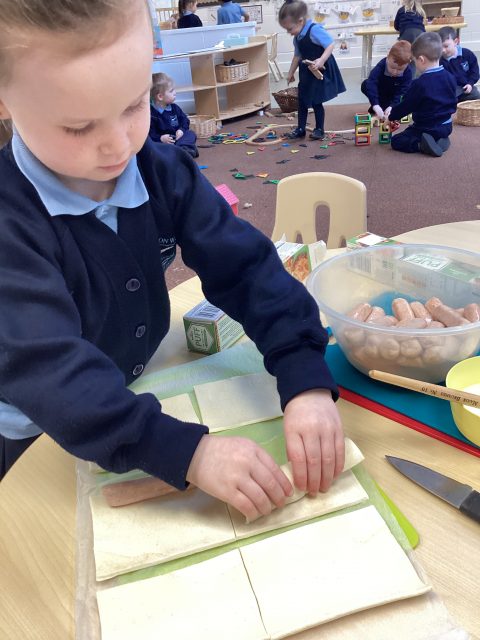
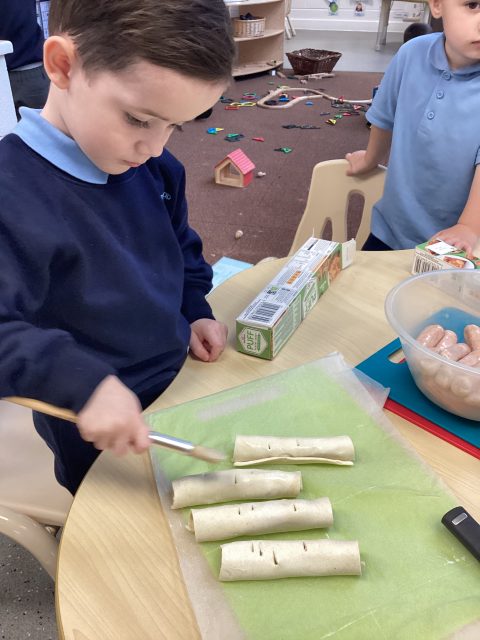

Meeting number 2!
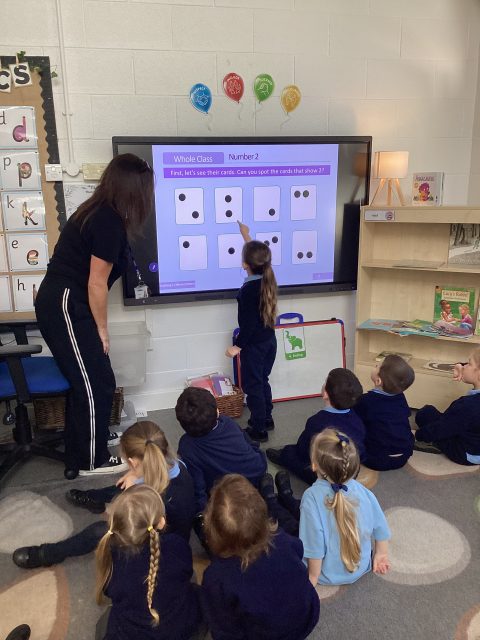
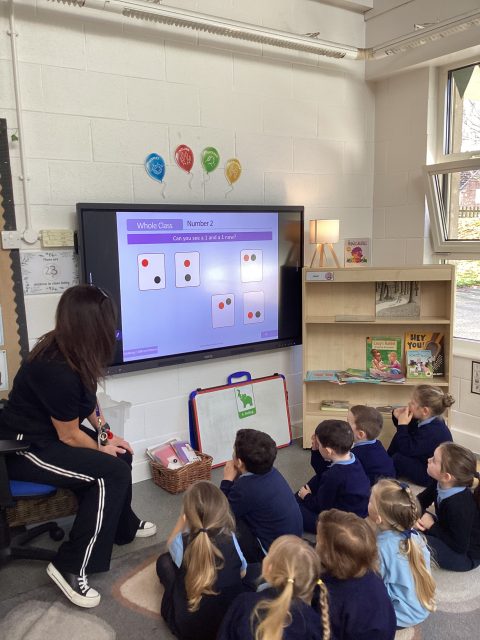
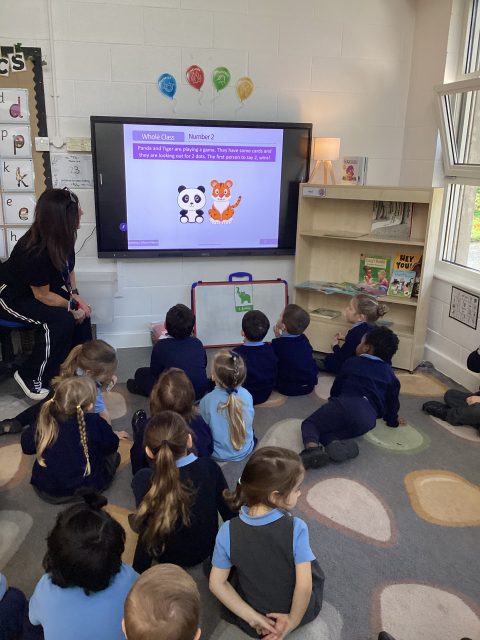
This week, we met a new number…number 2! We are learning to subitise, which means recognising when there are two objects without needing to count them!
747

Maths- Numbers to 5
This week Reception have been focusing on the numbers; 1,2,3,4 and 5. Reception have begun to recognise these numbers and the composition of these numbers. Today Reception matched the digits to the dots.
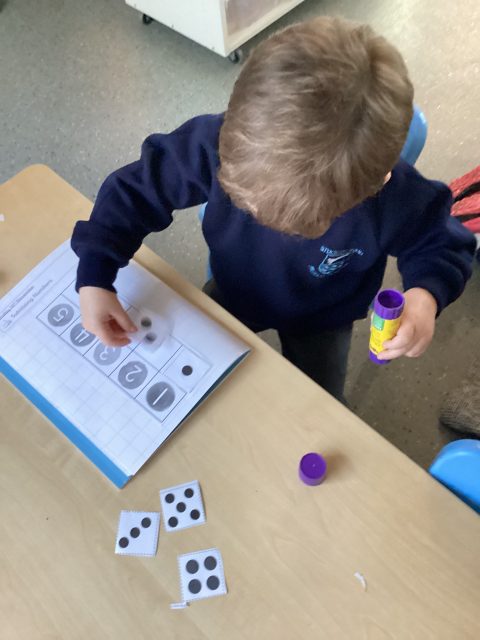
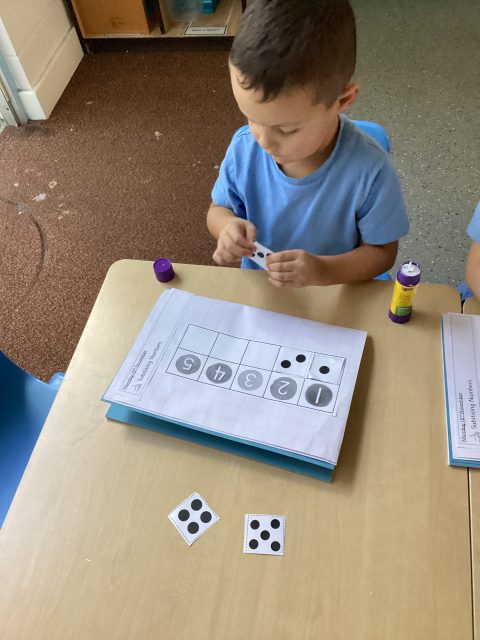
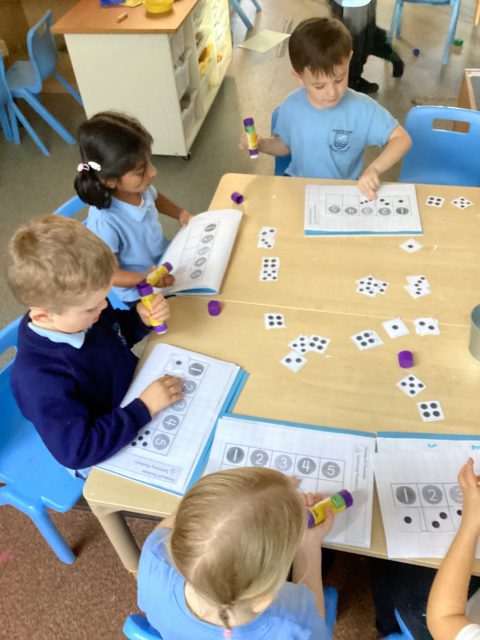
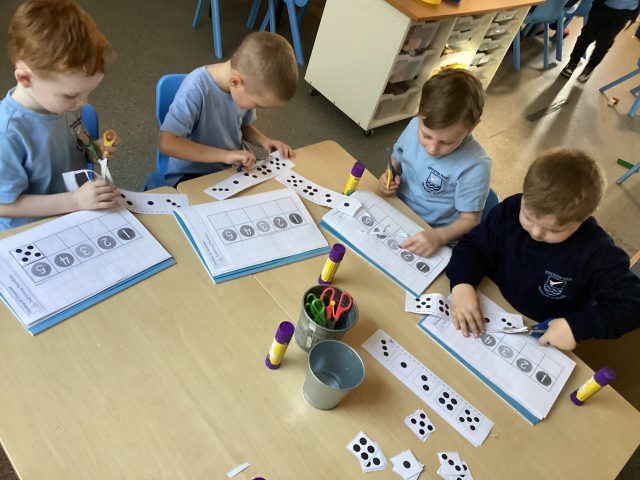
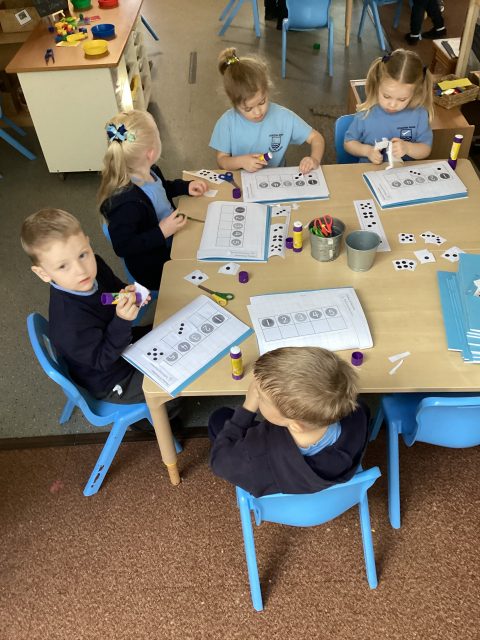
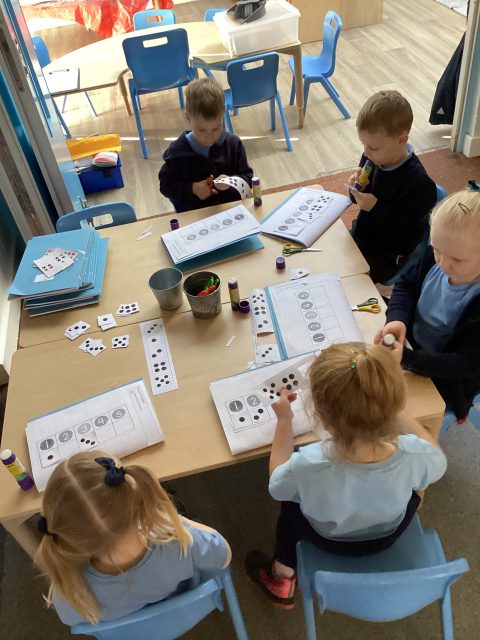


Arrays
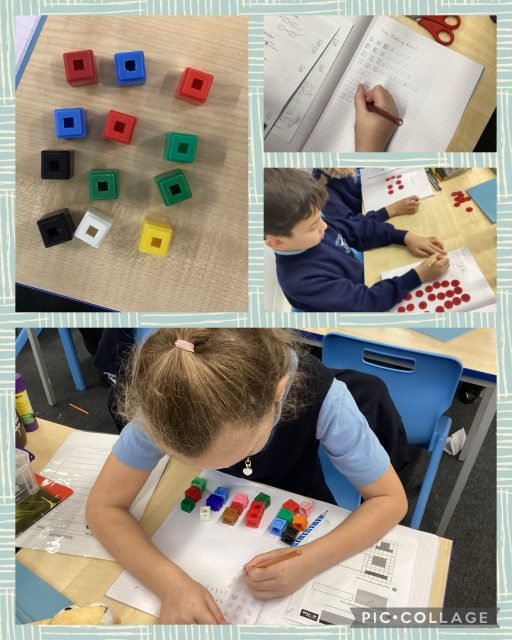
Today Year 4 have been creating arrays using counters and cubes. We could build different times table facts and thought about the related repeated addition facts.
763
1,2,3,4 and 5🔢
We have been practicing to write the numbers 4 and 5. We showed these numbers on a five frame to help us see different ways to represent the number. Now we can count and write the numbers 1, 2, 3, 4, and 5! We are getting really good at recognizing and showing these numbers.
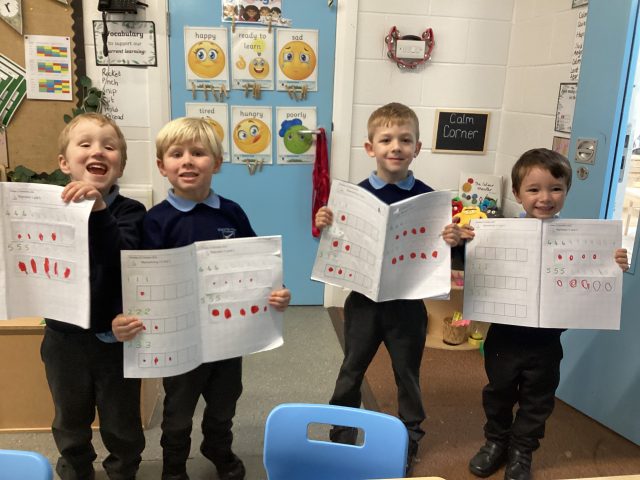
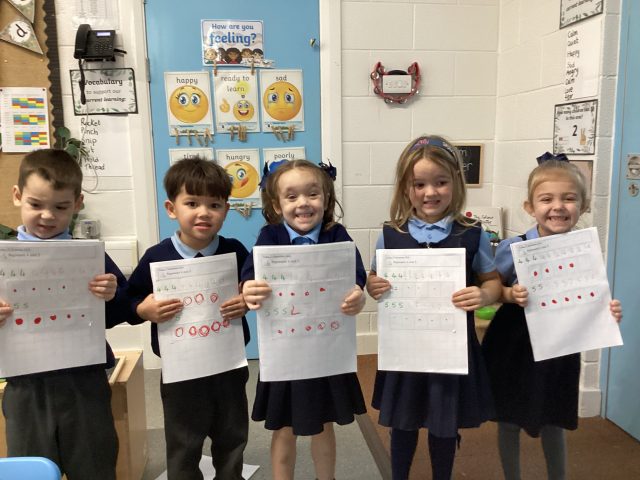
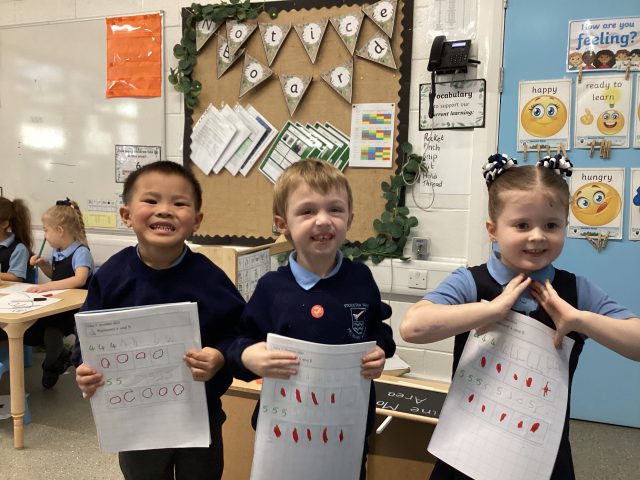
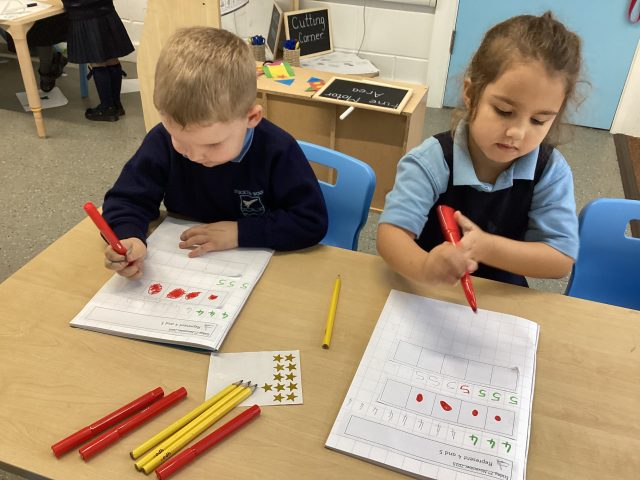
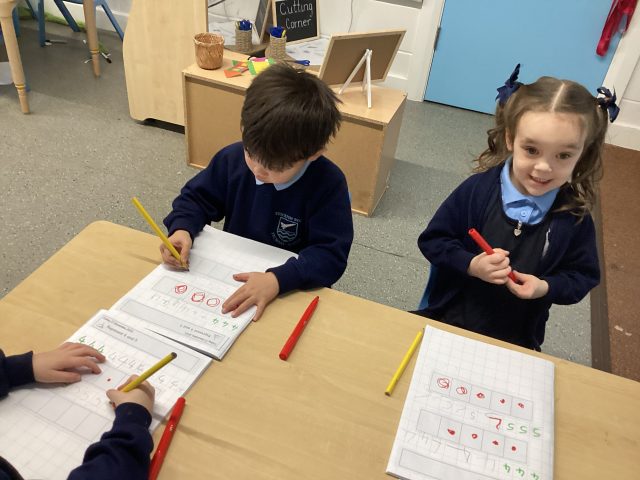
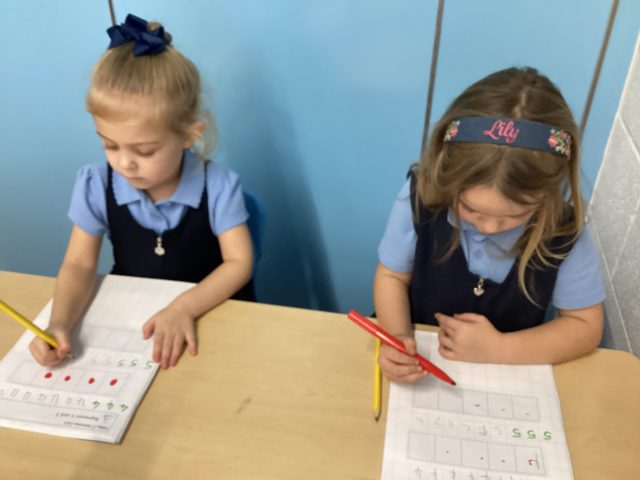
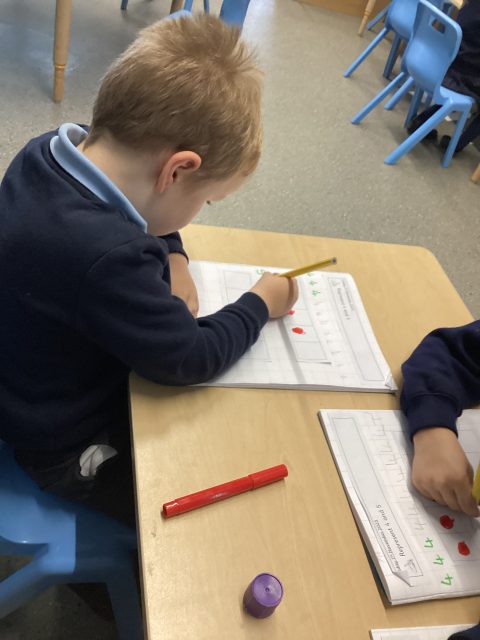
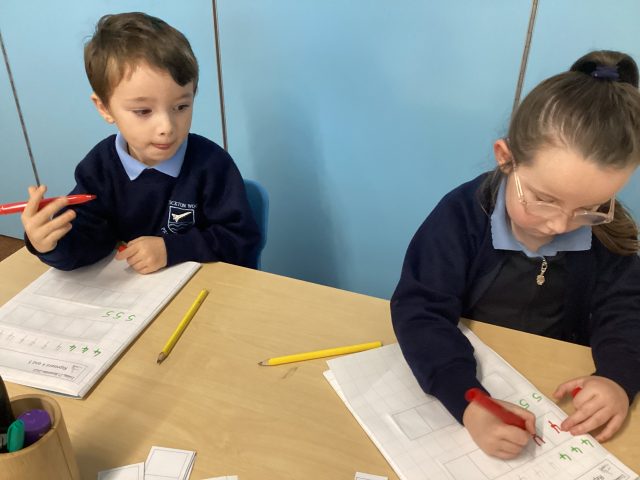
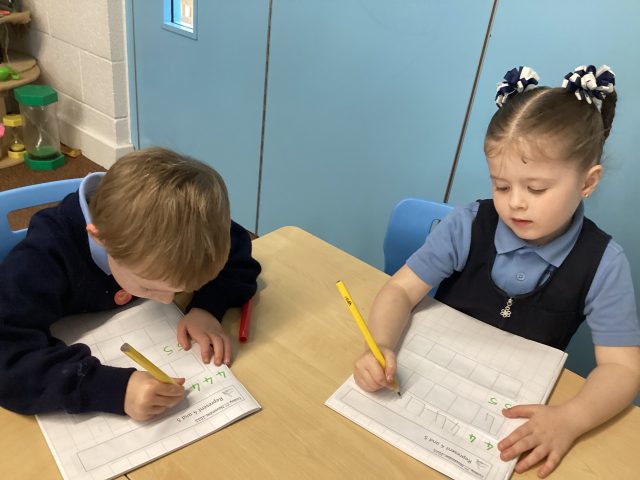

Multiplication and Division in 5H
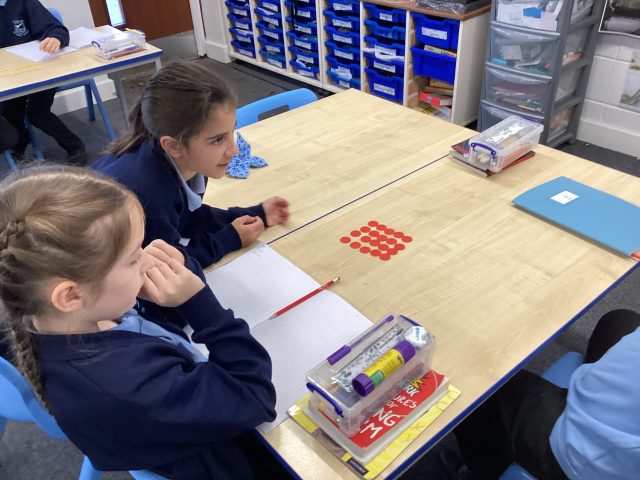
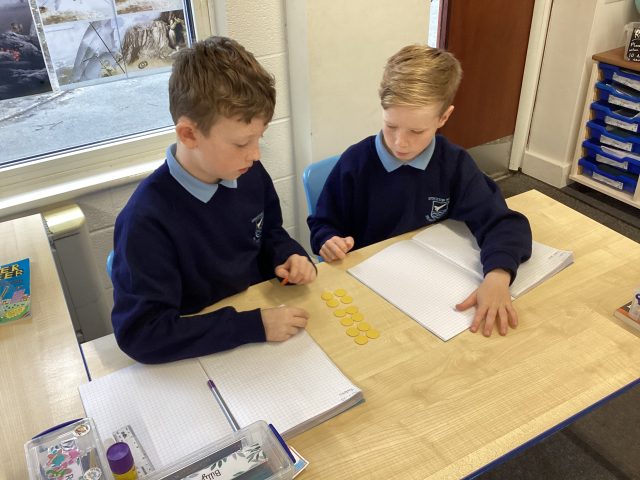
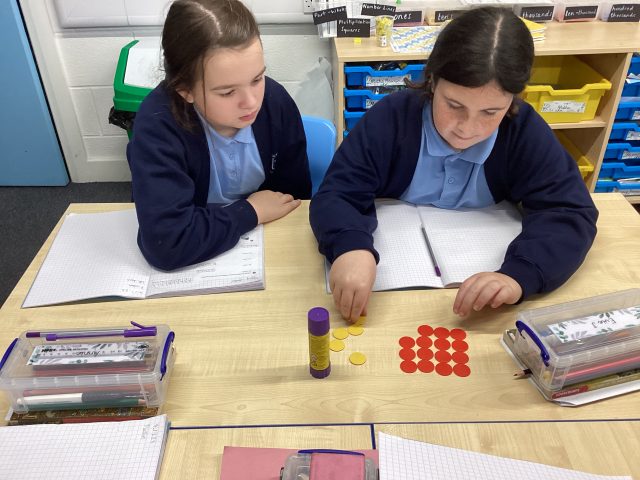
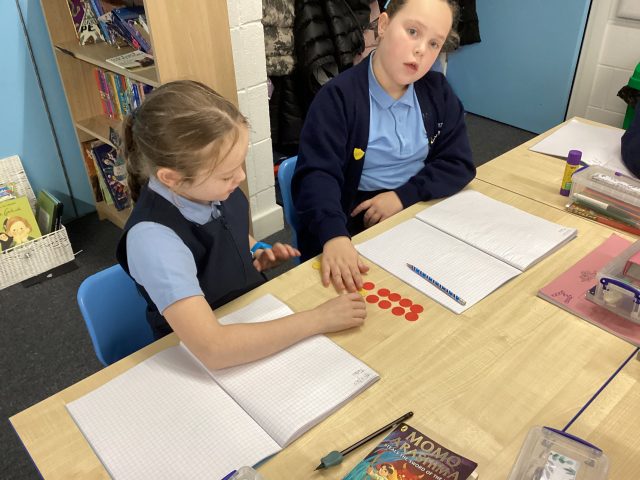
This week year 5 started our new maths topic of Multiplication and Division. We used concrete resources, counters to help us identify factors of integers.
792
Baking cherry scones
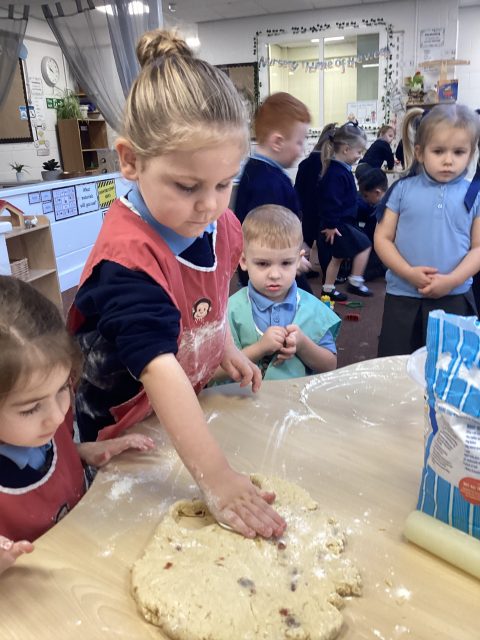
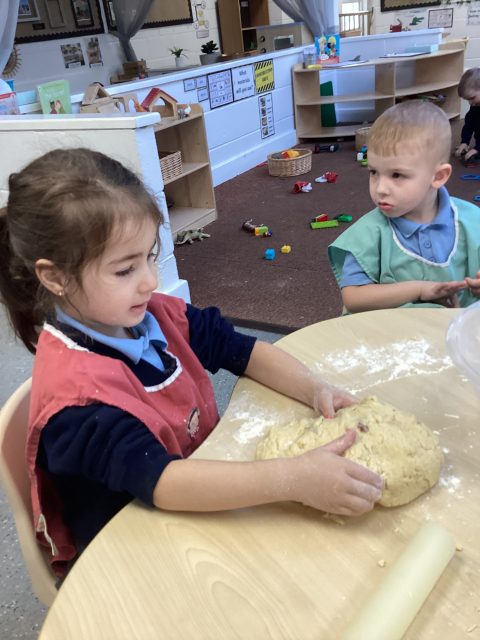
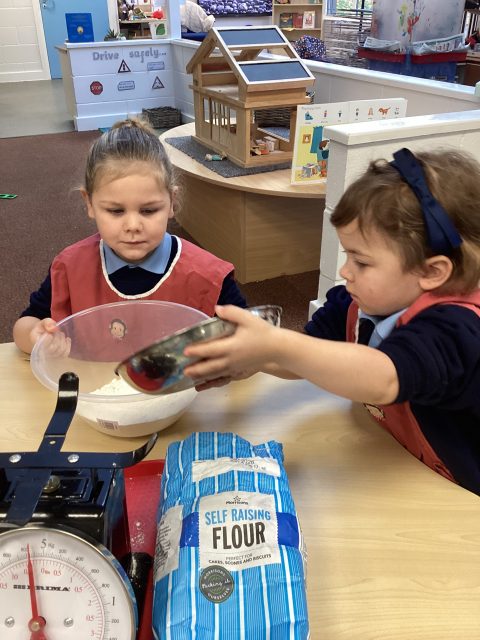
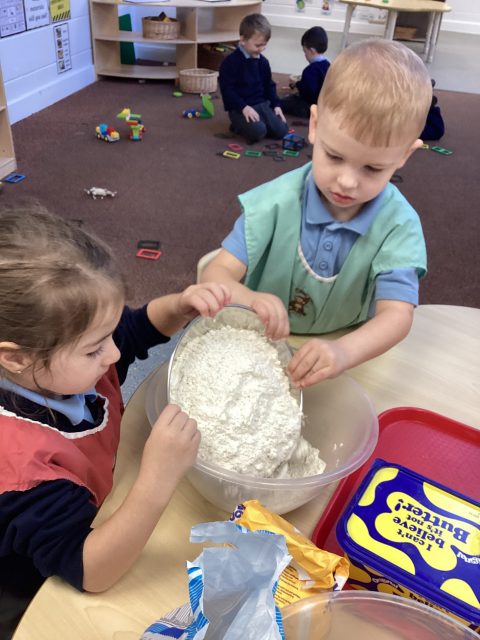
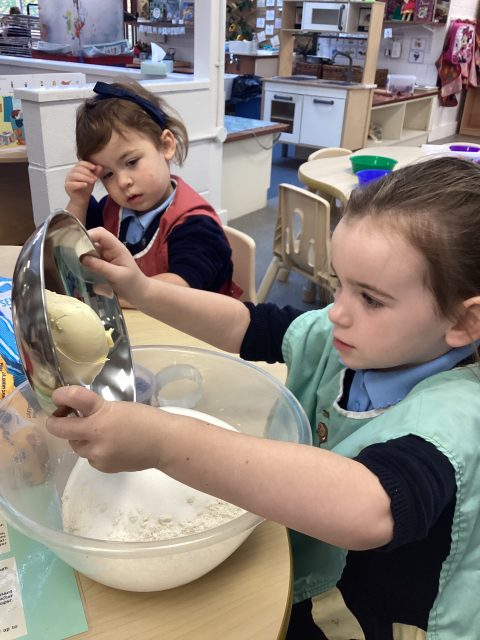
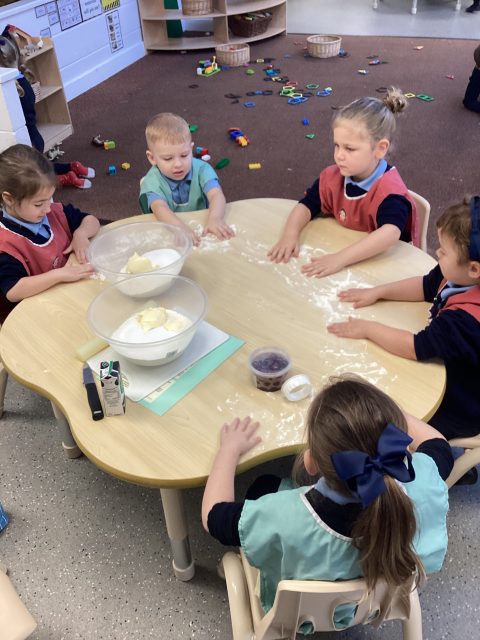
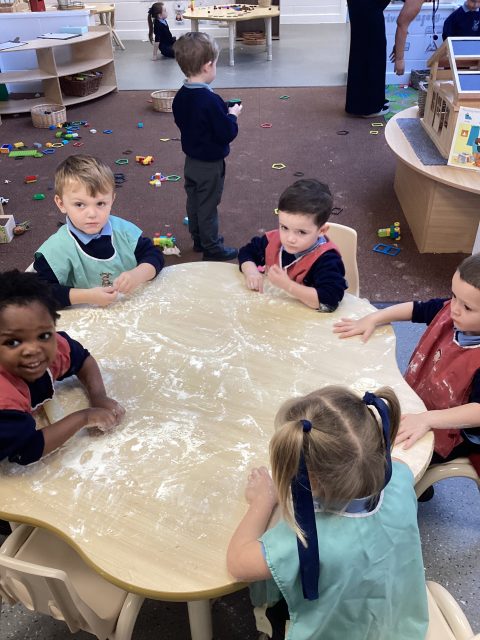
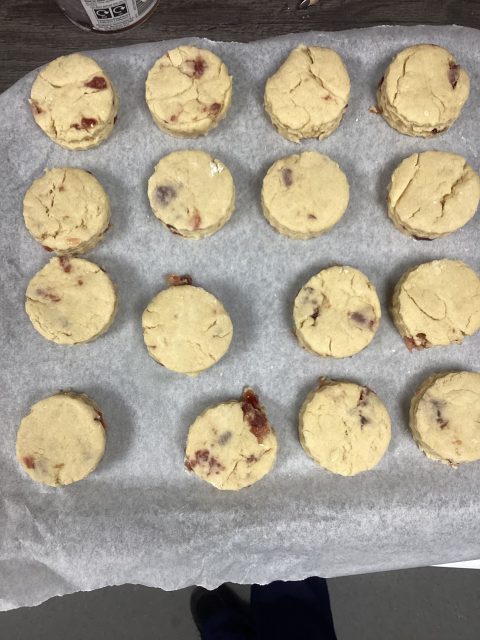
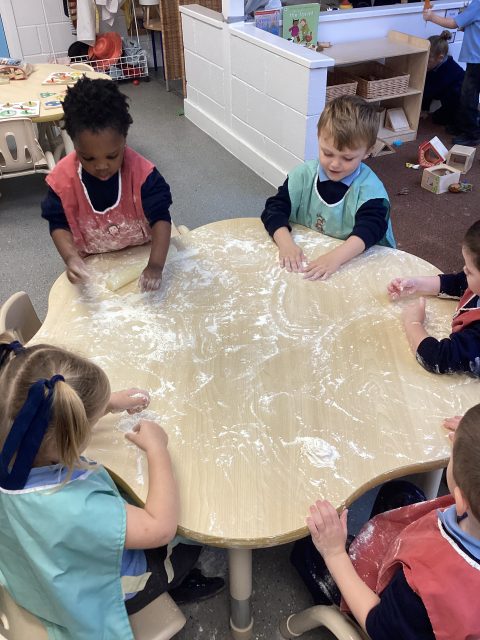
We’ve made cherry scones! We carefully followed the steps on the recipe, and we are now patiently waiting for them to cook. Sorry to our families if children come home covered in flour! But we had so much fun.
796
Number 1
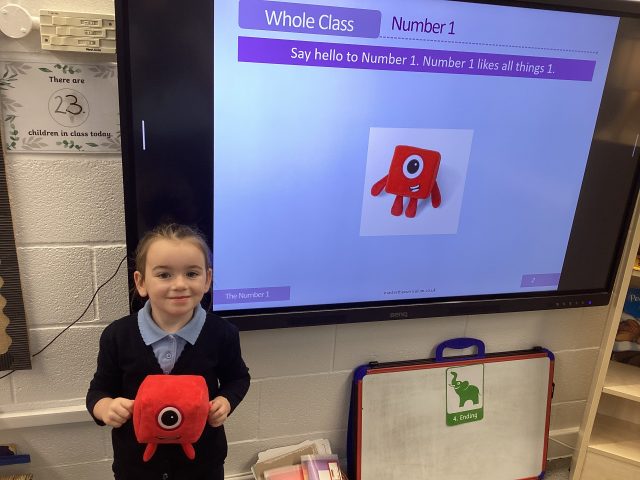
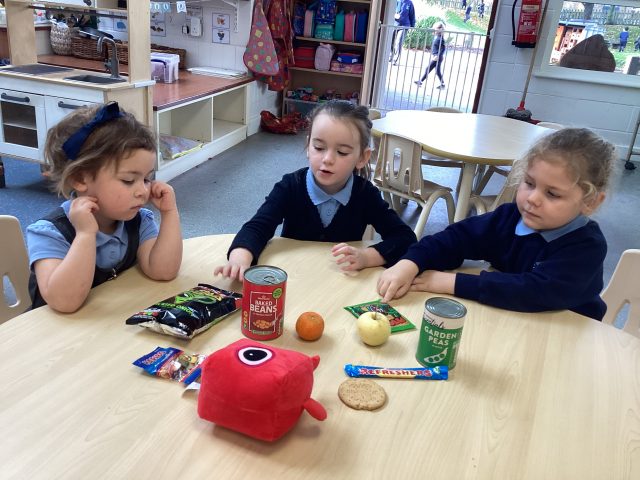
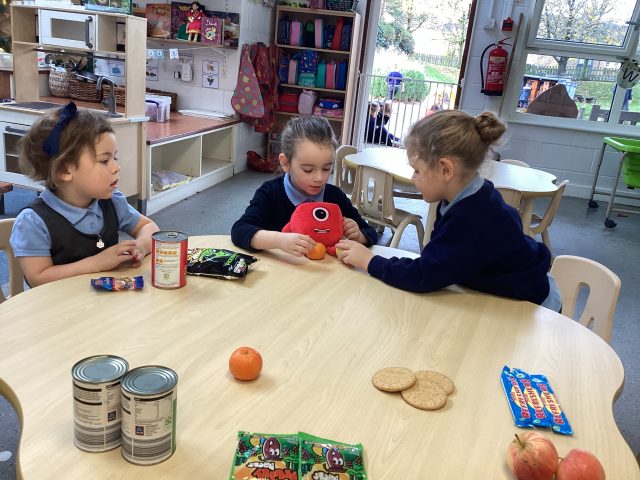
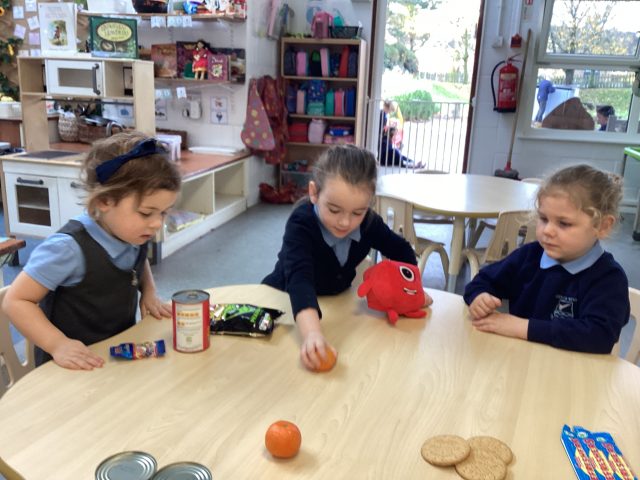
We have been learning about number 1! He likes all things 1, and guess what his favourite number is…number 1! We made a party plate for him, but he only wanted 1 of each food.
792

Maths-finding a part
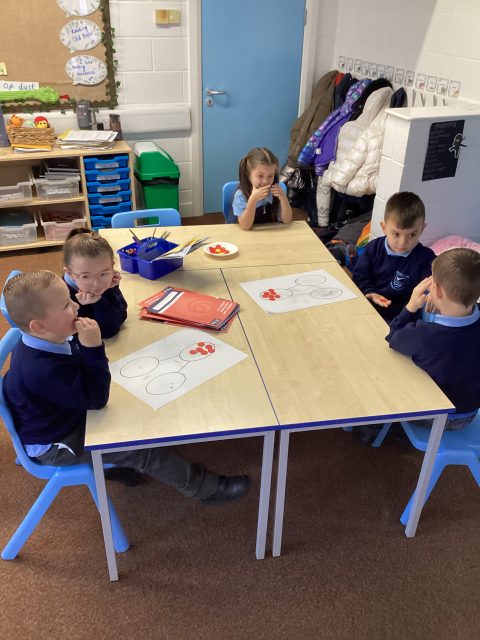
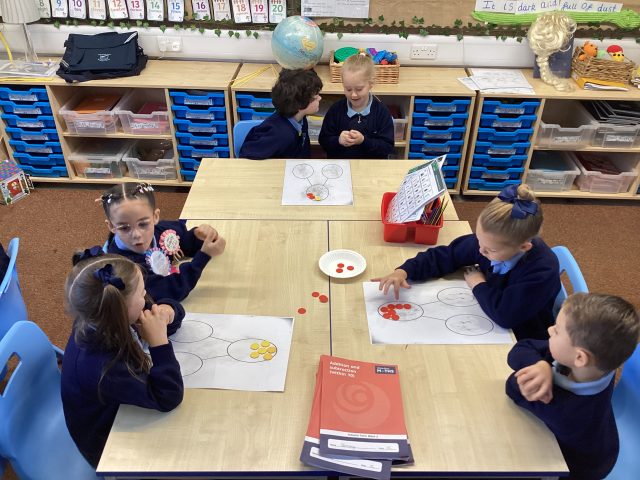
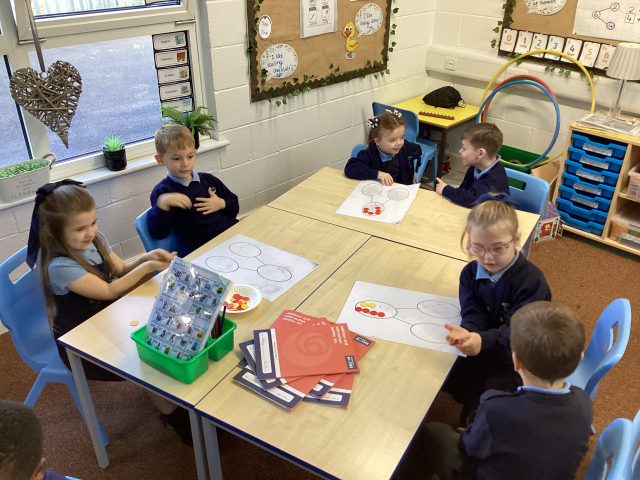
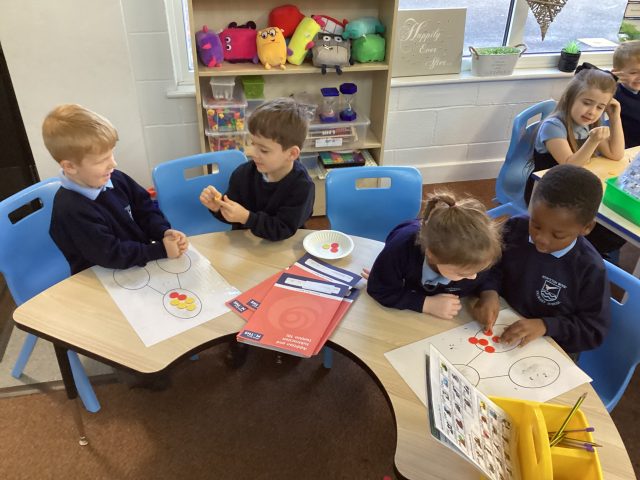
We had 10 counters, one partner hid some counters in their hand, the other partner had to work out how many counters were in their hand.
422
Shape Hunt🔴🔺
In Maths, we have been learning all about shapes, focusing on circles and triangles. To help us explore further, we went on an exciting shape hunt around our school to see what shapes we could find in our environment. We spotted lots of different shapes in classrooms, on the playground, and even in the school hall! It was a fun way to use our shape knowledge and see how shapes are all around us every day.
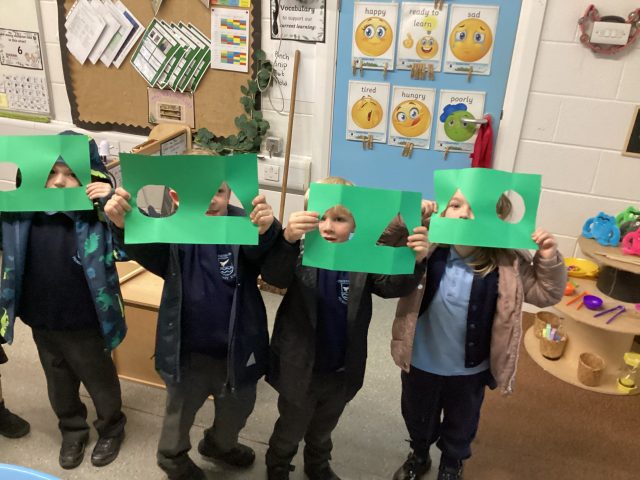
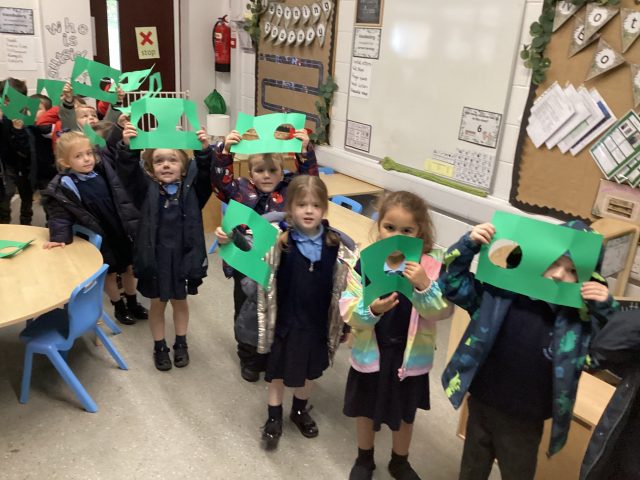
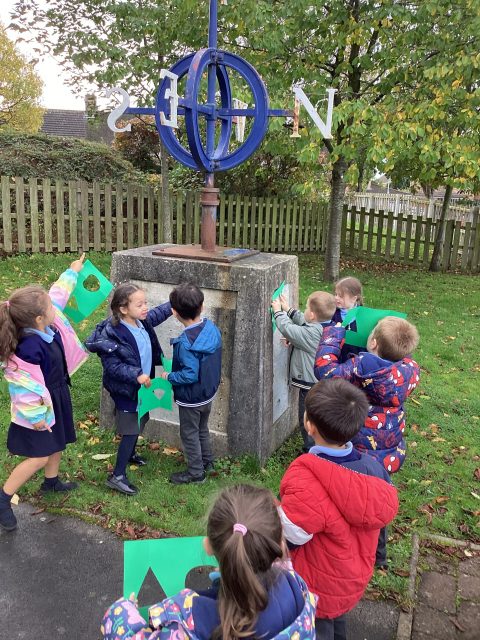
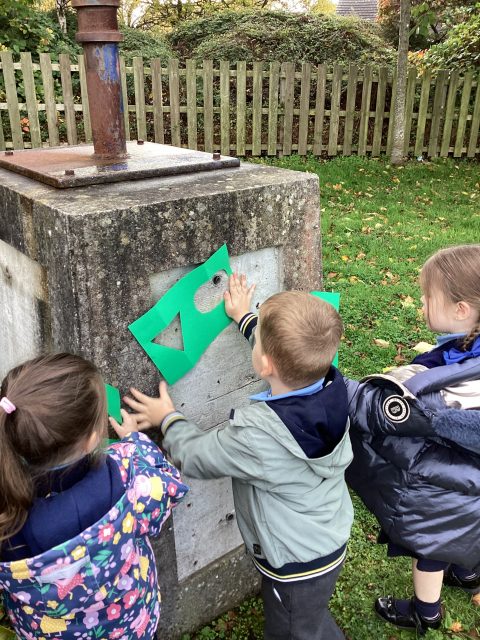
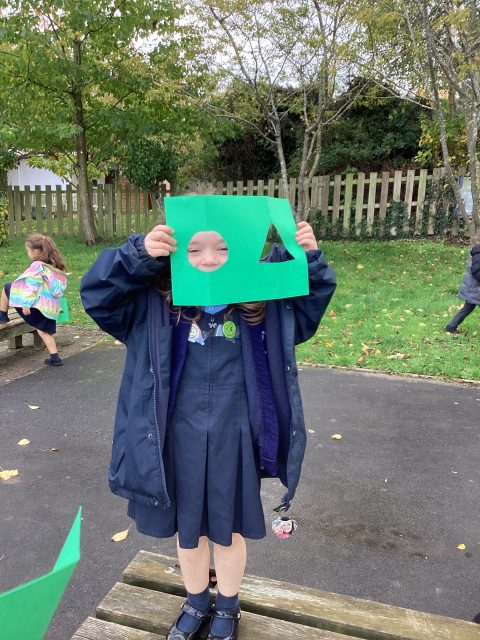
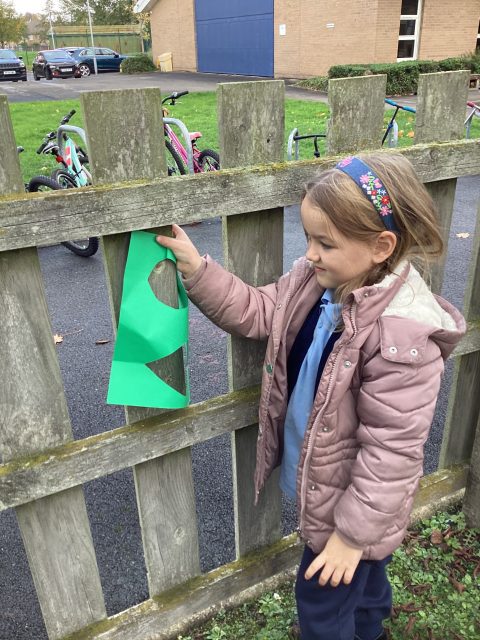
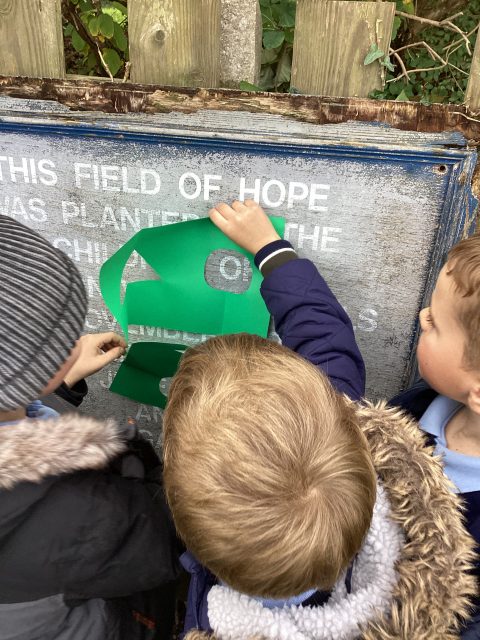
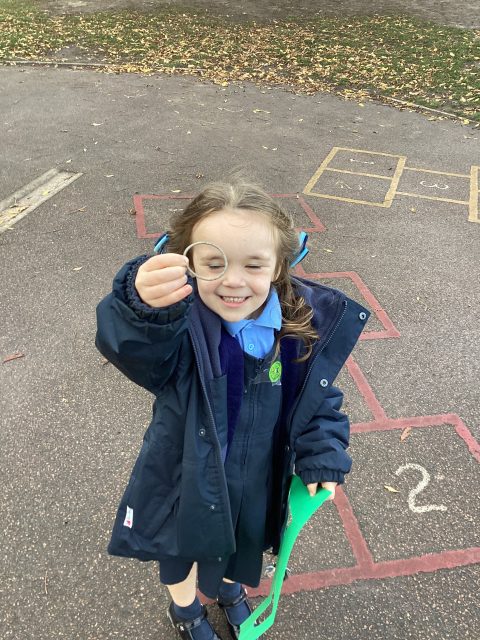
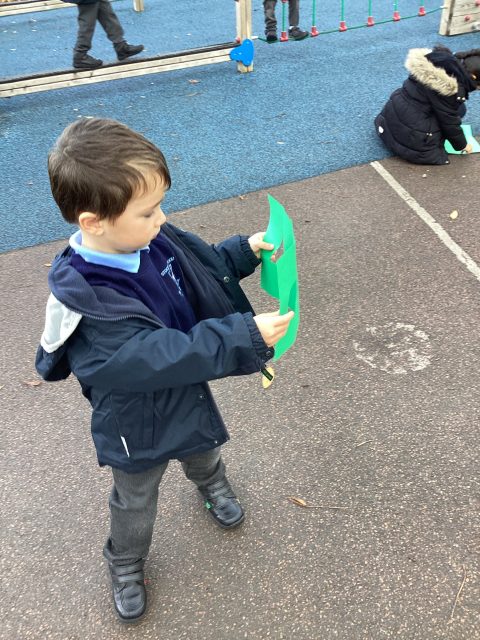
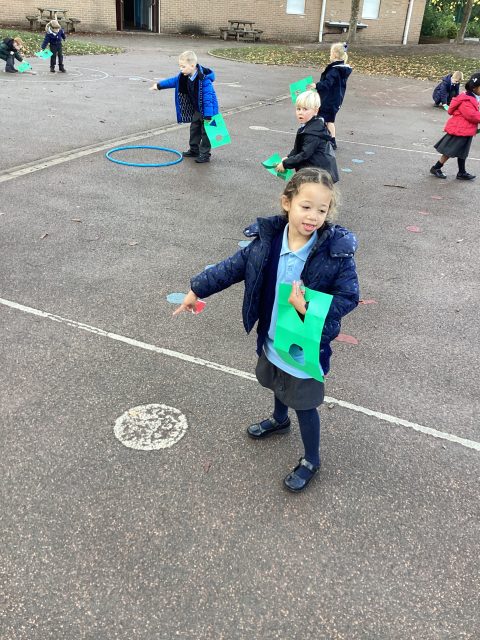
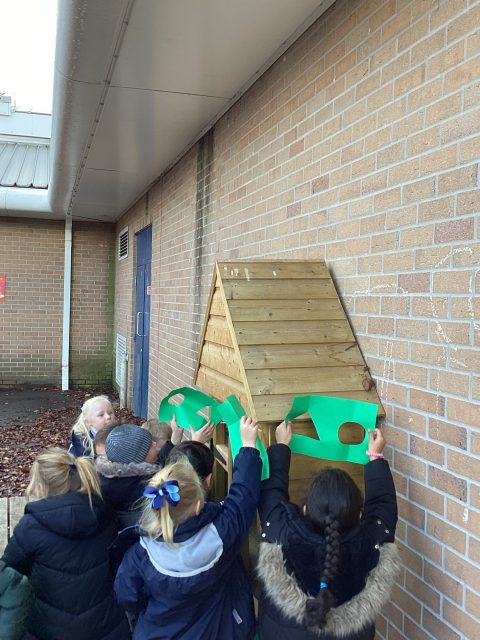
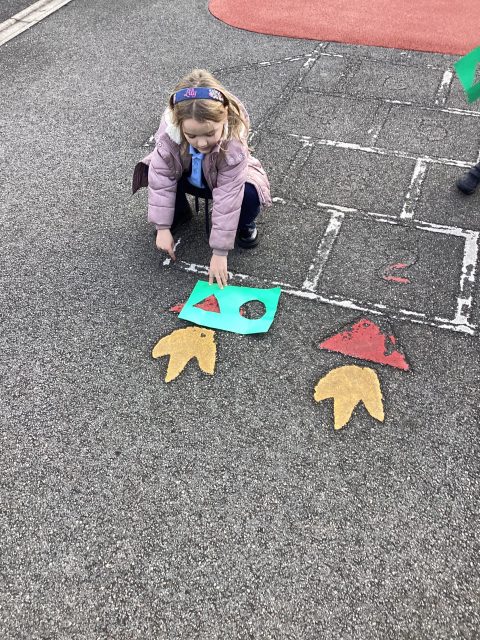
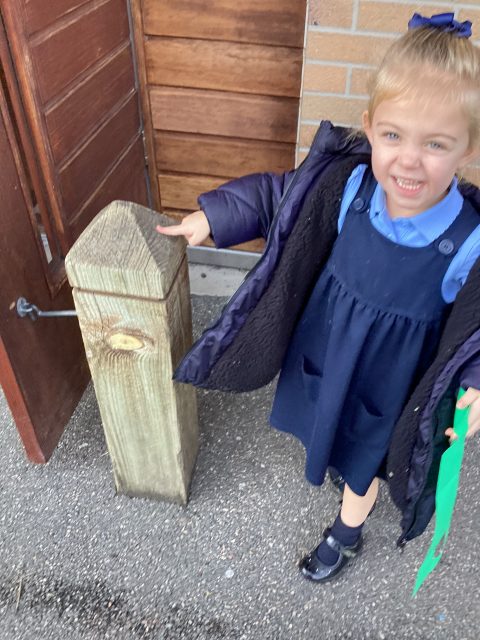
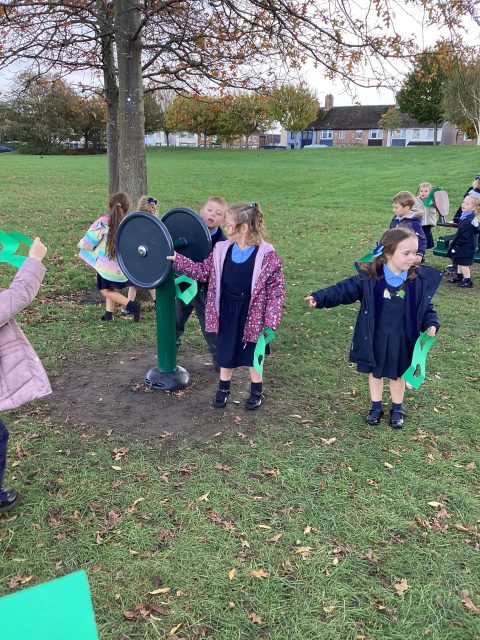
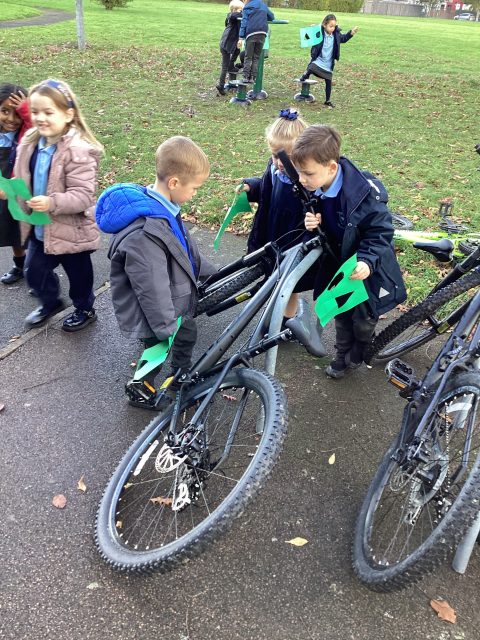
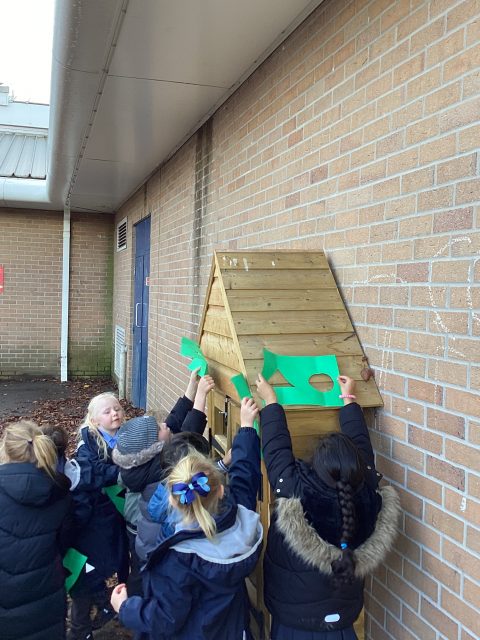
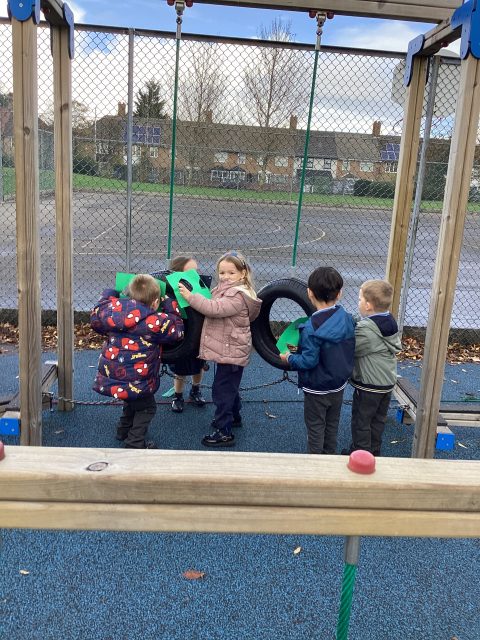

Maths Stay and Learn
3McK enjoyed teaching their adults how to complete different column addition and subtraction questions.
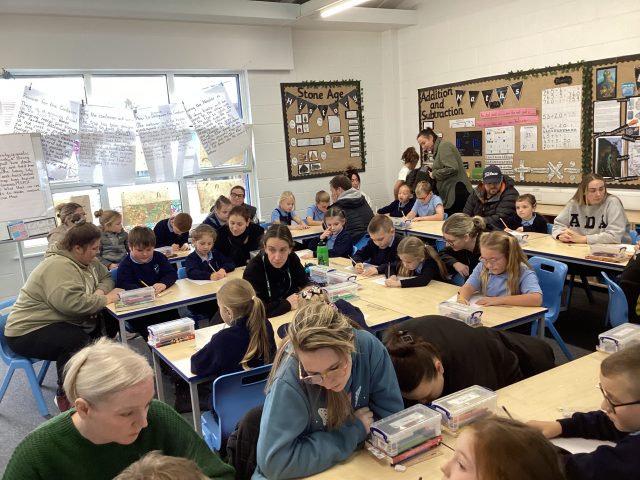
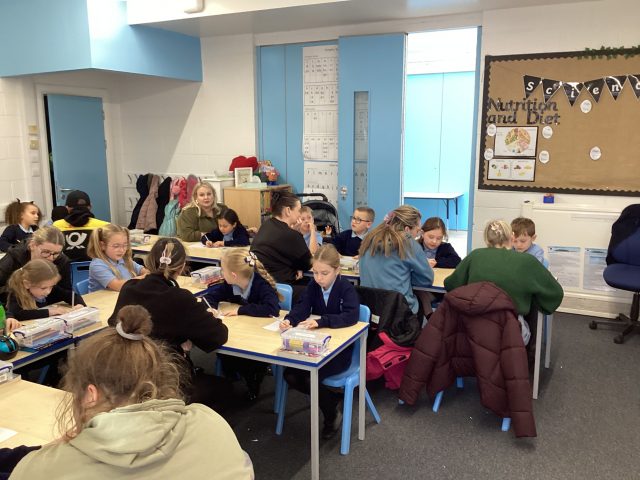

Maths Party Day!
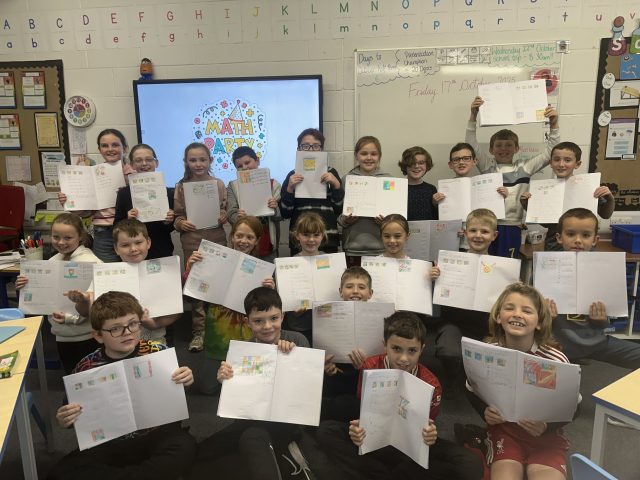
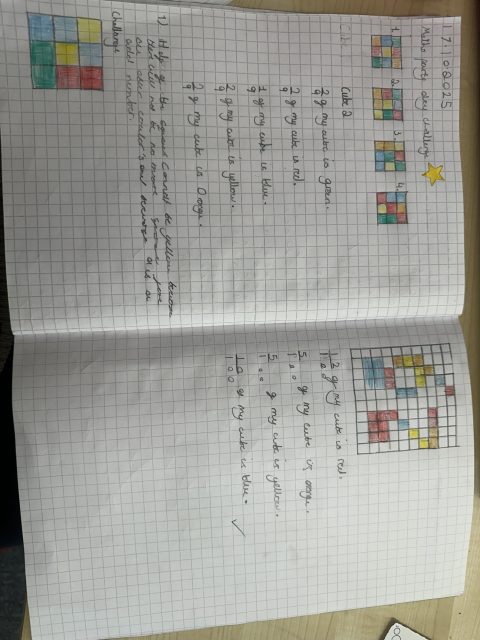
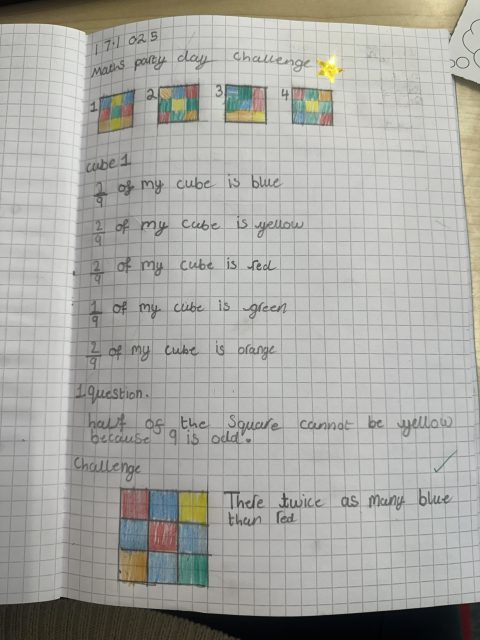
5D loved creating rubix cube drawings for maths party day – we even worked out the fractions of our colours!
574
Baking gingerbread men
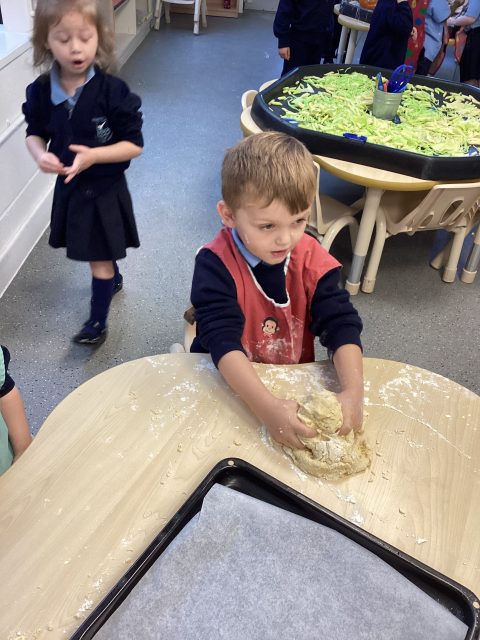
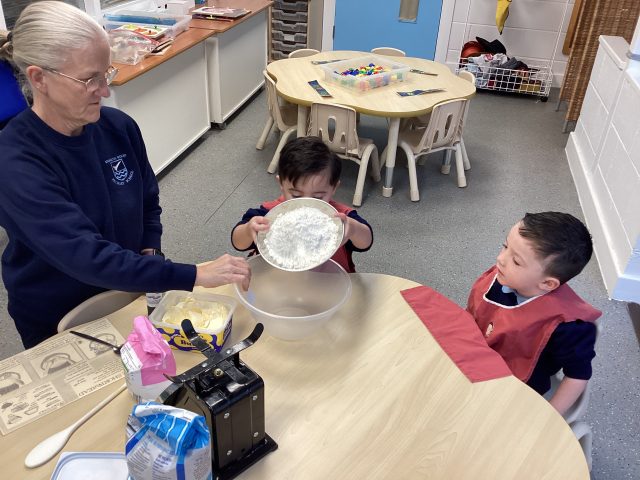
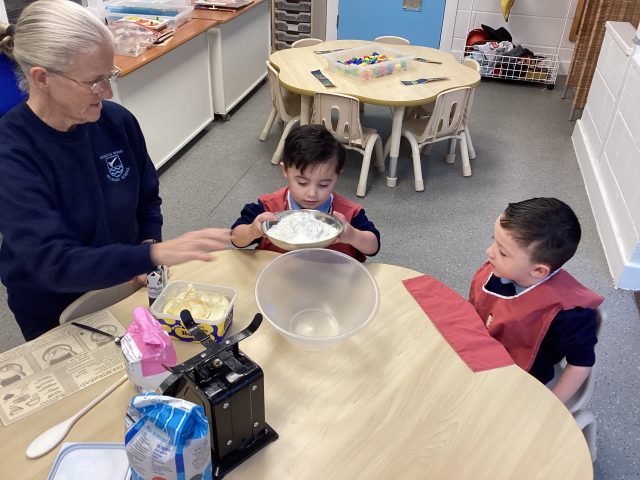
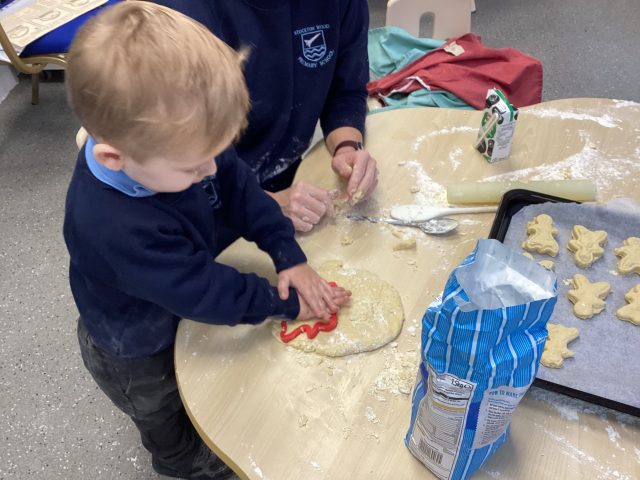
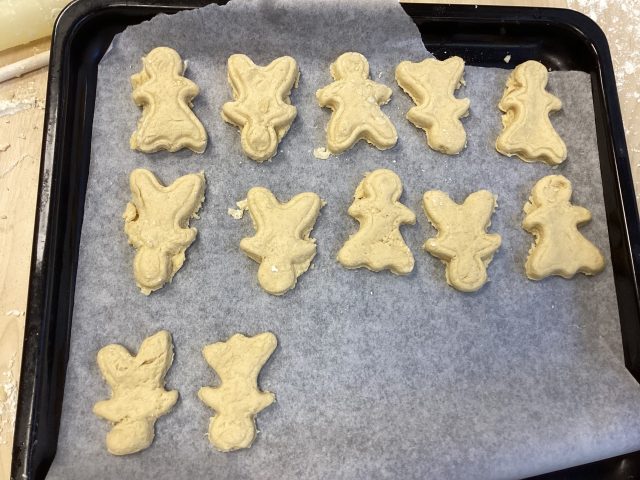
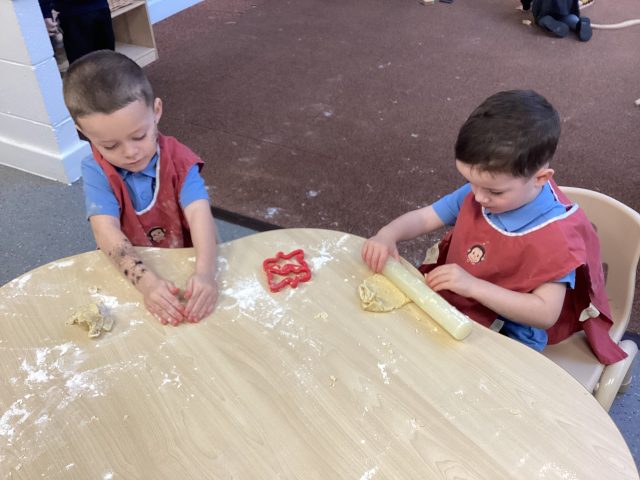
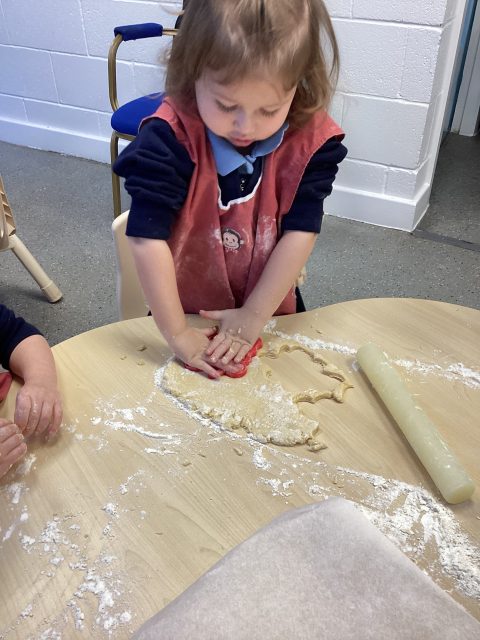
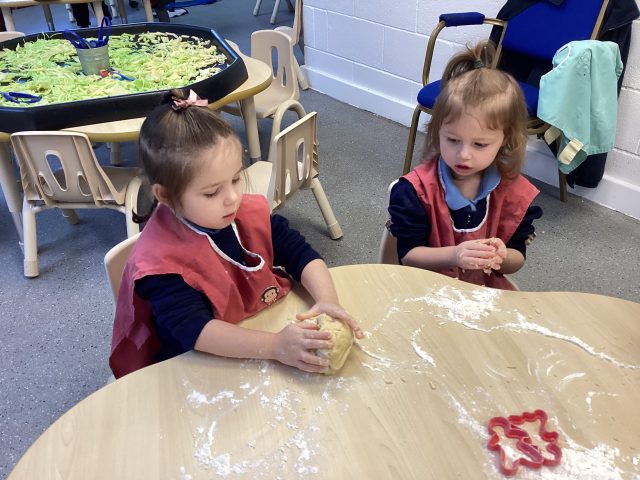
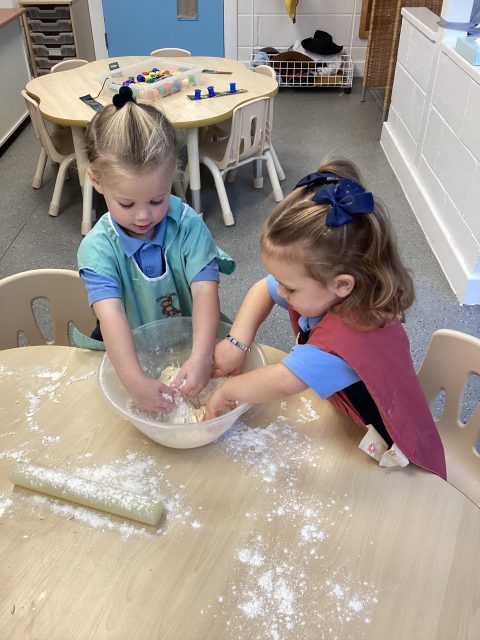
This half term, we have been using The Gingerbread Man as our vehicle text – we have even learnt how to retell it from start to finish! To mark the end of this text, we have baked our own gingerbread men! Mrs Sefton was careful to watch the oven the whole time to make sure they didn’t run away…as we know, they are quite fast!
897
Making spooky gloop!
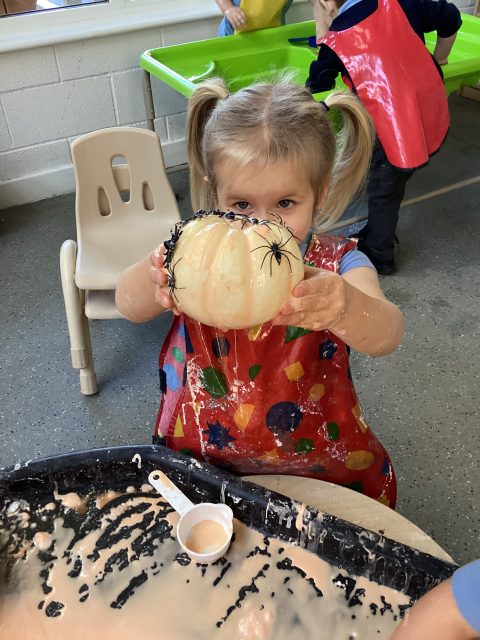
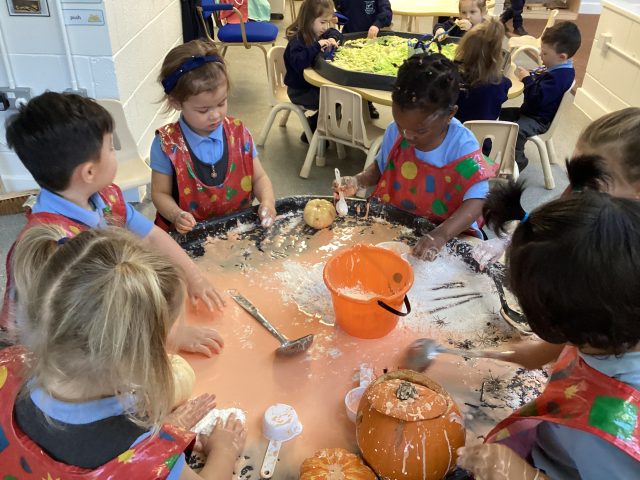
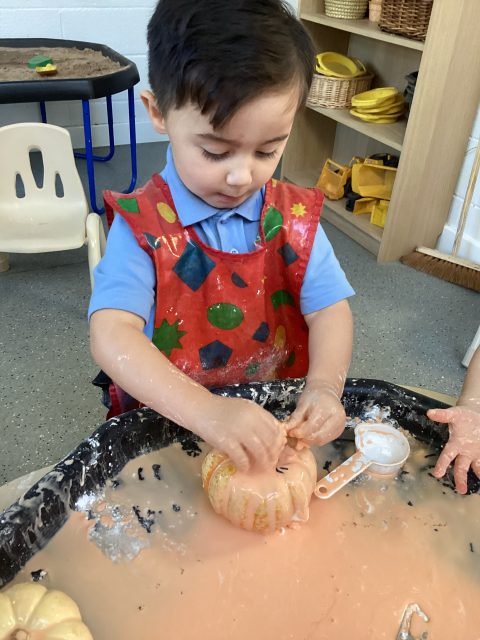
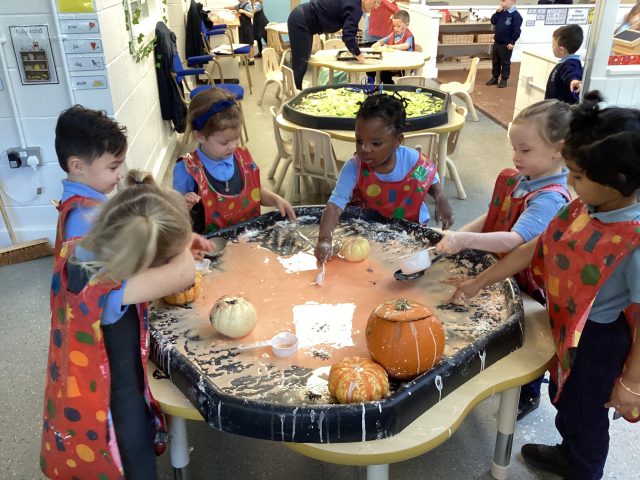
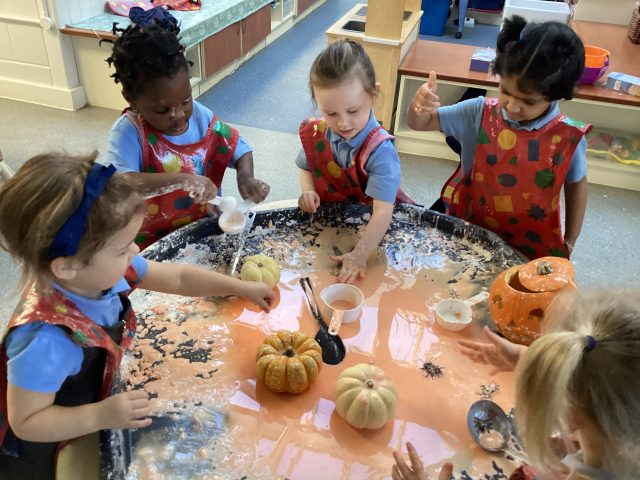
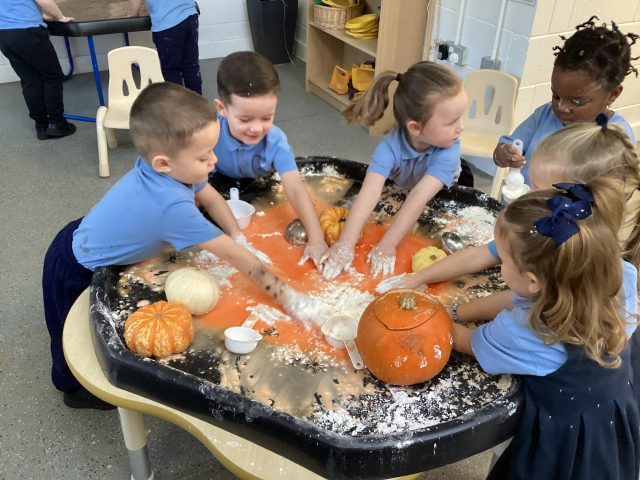
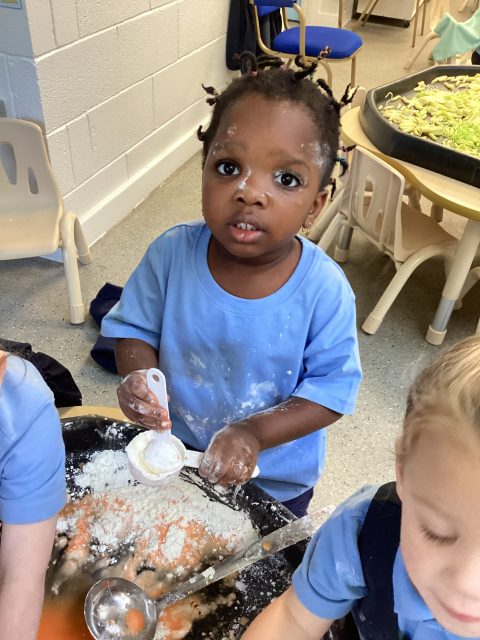
We have had so much fun making our own spooky gloop this morning (and made lots of mess in the process – sorry Mrs Clovis!). We used spoons, scoops and ladles of different sizes to scoop the cornflour out onto the tray. Then we used spoons to pour the orange water onto it and watched it change from powder to liquid! The children may be coming home messier than usual, but they have had so much fun 😍
882
6M Stay and Learn
A huge thank you to all our parents who were able to support our Stay and Learn this term. It has definitely helped us with our knowledge of mu
484
Year 6- Maths Party Day
We loved completing Maths Party Day in Year 6. We linked a Rubik’s cube with Maths and created patterned art work and lines graphs!
482
Year 6- Stay and Learn
Year 6 had a fantastic Stay and Learn this morning, focusing on Maths games and solving problems with numbers. Thank you to all who attended!
498
Maths stay & learn
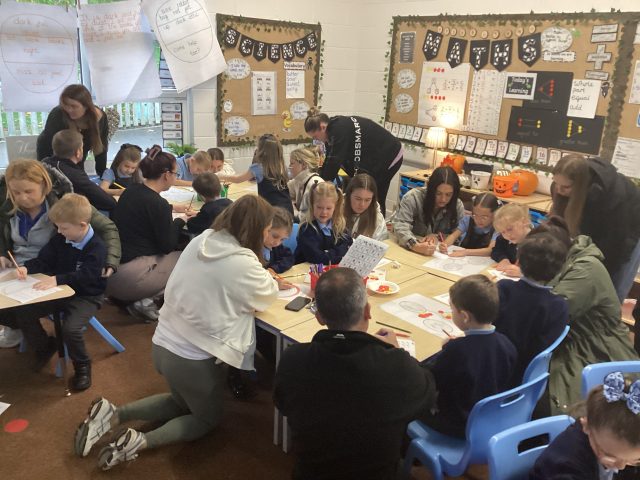
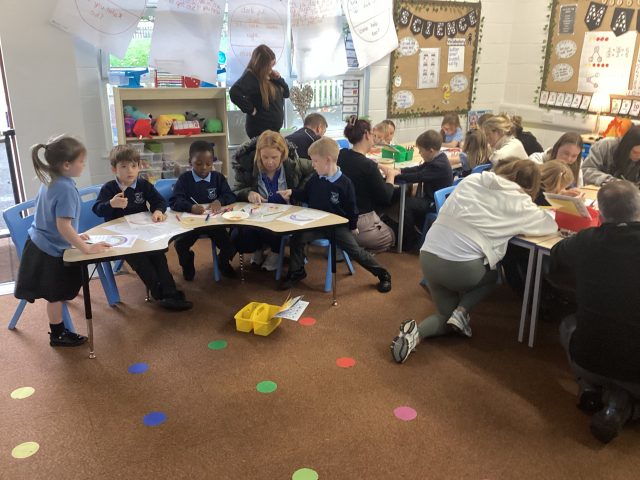
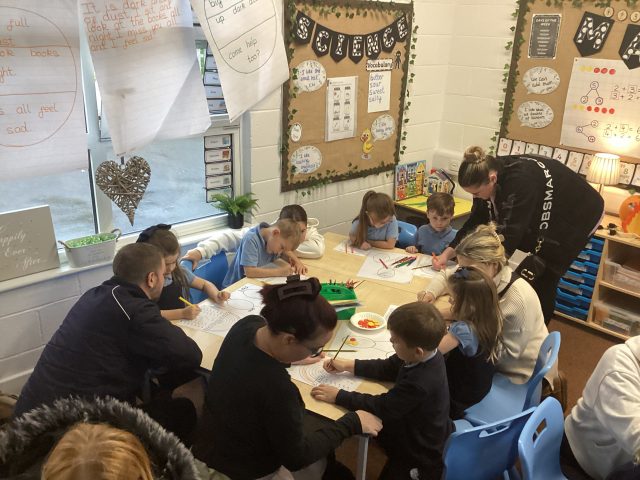
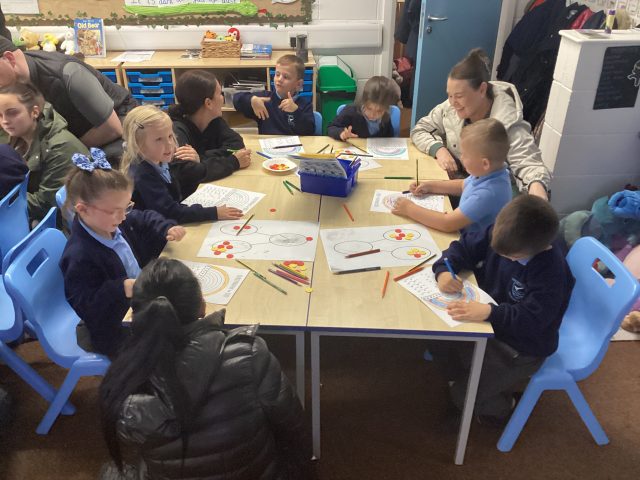
A massive thank you to all our parents for joining our maths Stay and Learn.
492
Stay and Learn
Thank you to all the parents who were able to join us for stay and learn. We loved sharing what we have learned in our maths lesson this year.
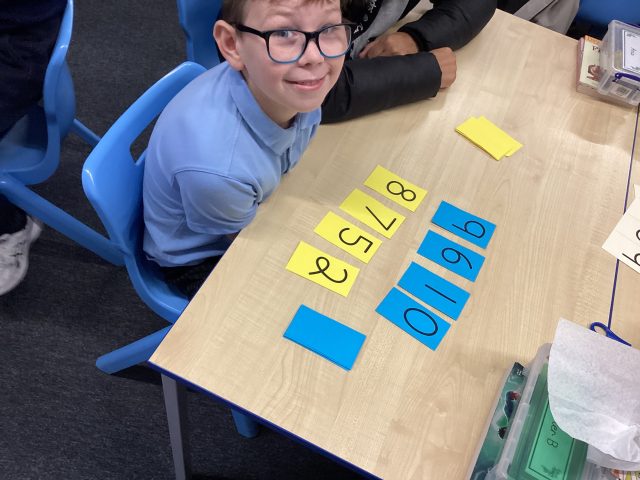
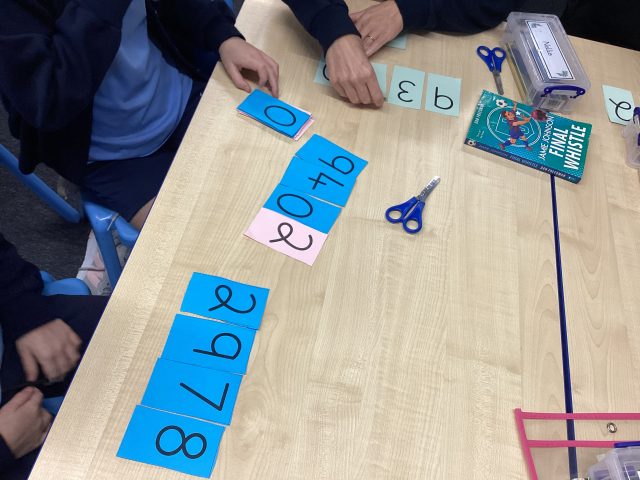

Stay and Learn 💡
Thank you to all the parents who joined us for our Stay and Learn session! The children absolutely loved welcoming you into the classroom and sharing their learning with you. Our focus was on Maths and Diwali, and it was wonderful to see everyone enjoying the range of fun and engaging activities. We really appreciate your involvement and look forward to welcoming you back into our classroom again soon.
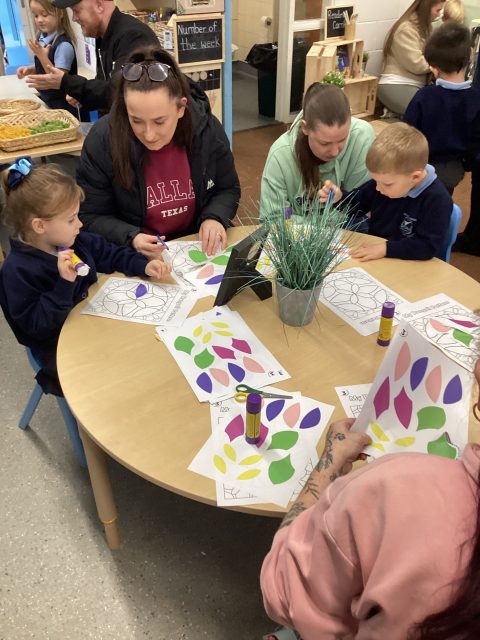
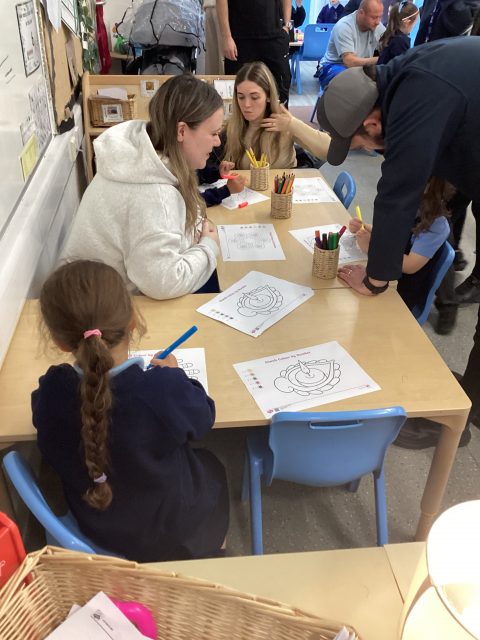
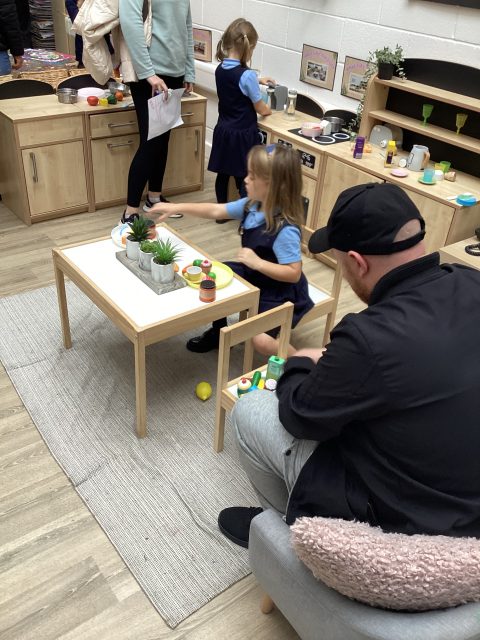
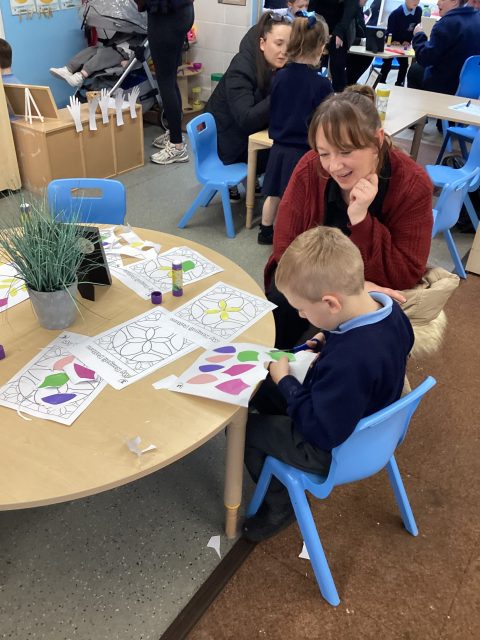
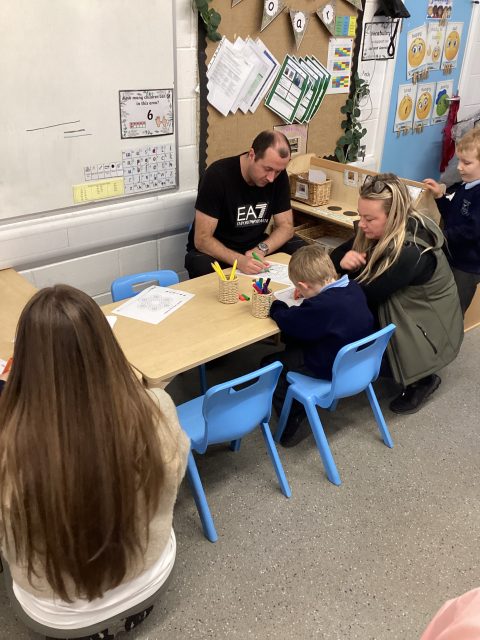
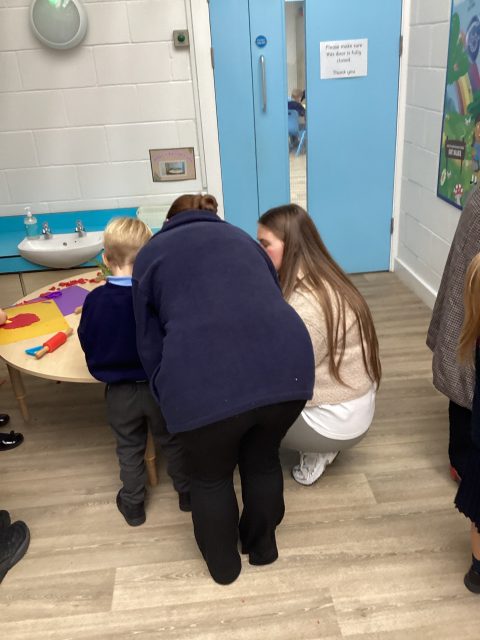
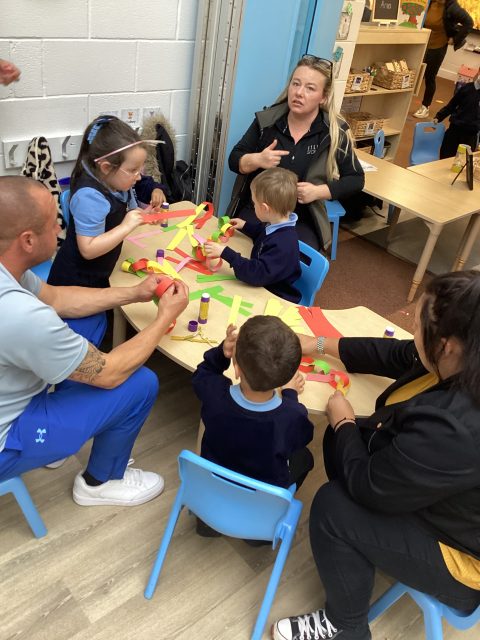
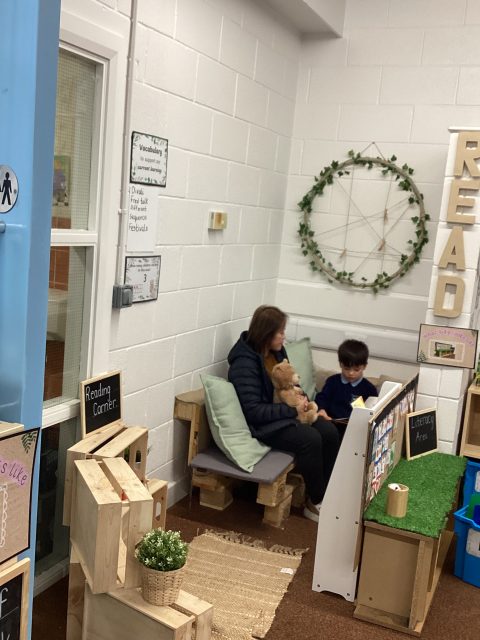

Maths Party Day
Reception had lots of fun on maths party day 🥳. We explored lots of different maths activities that helped us with; patterns, numbers, counting and shapes!
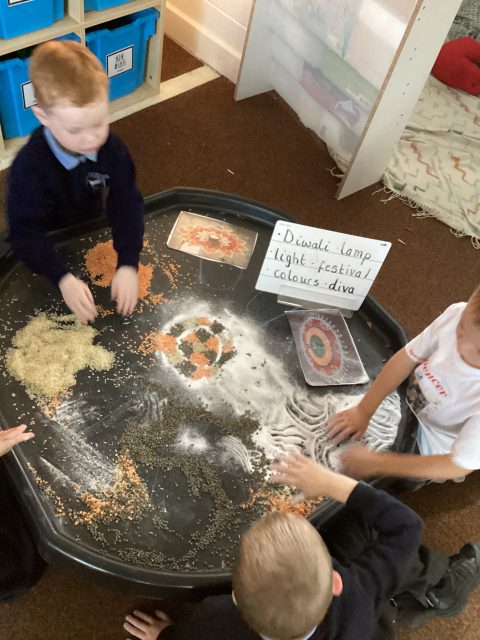
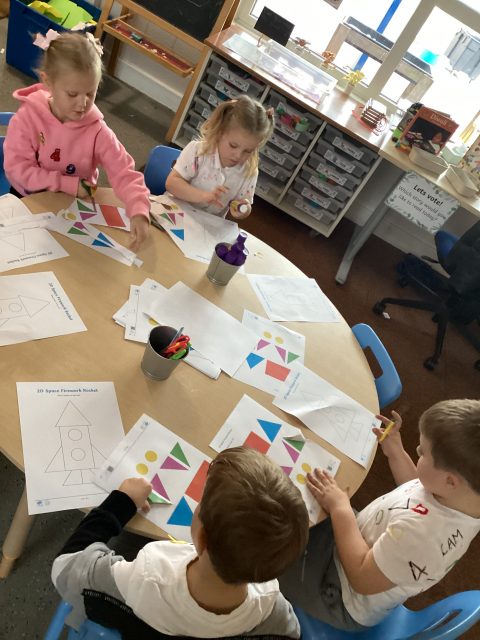
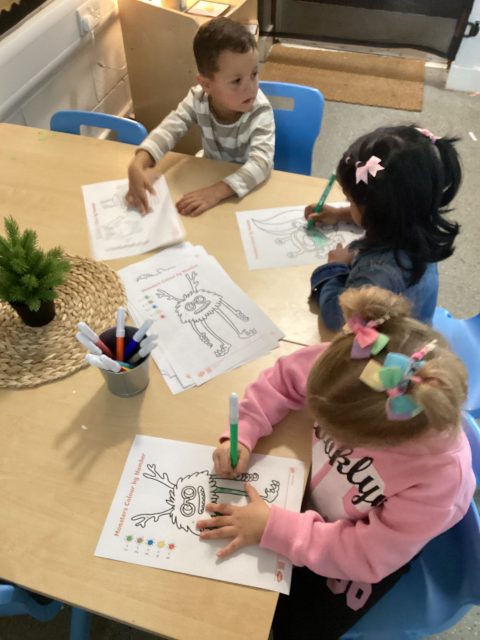
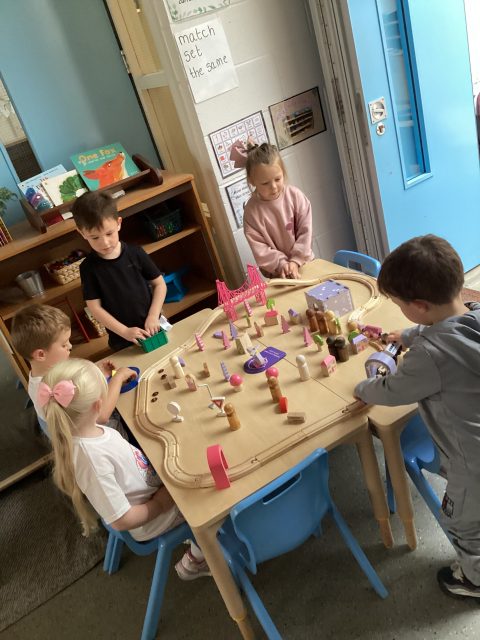
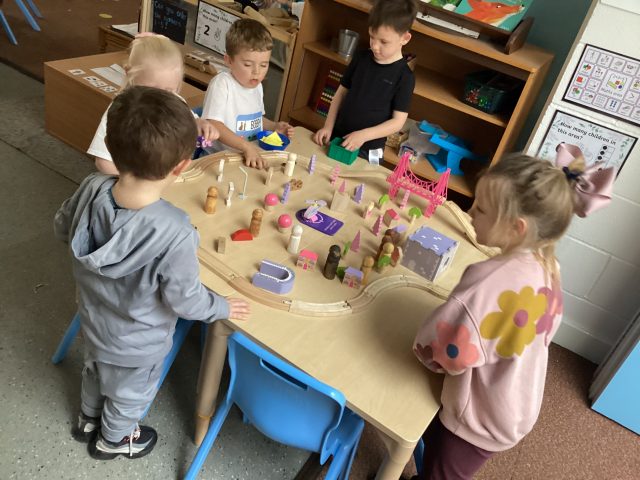
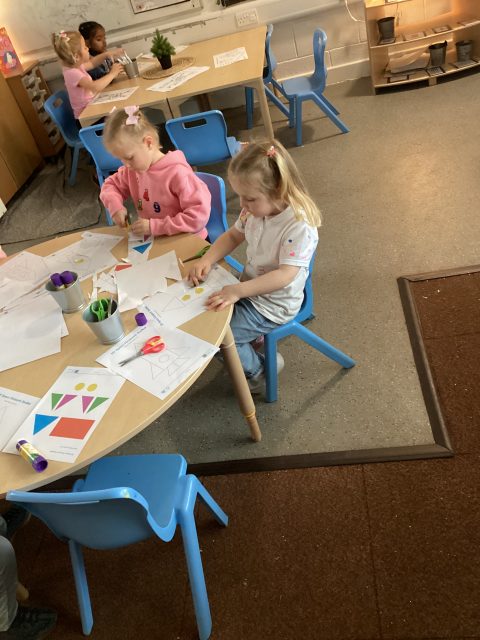
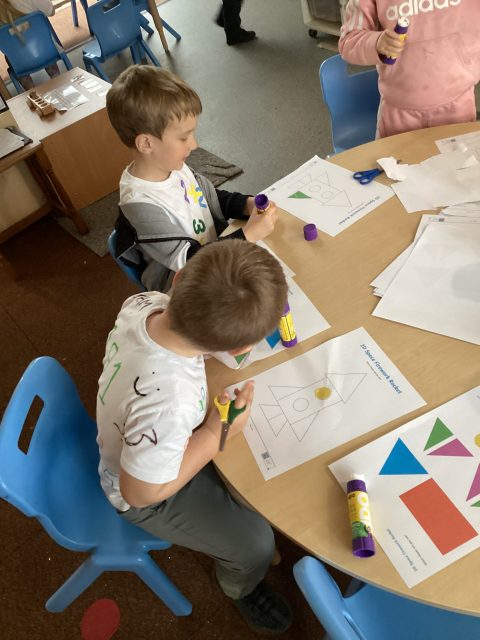
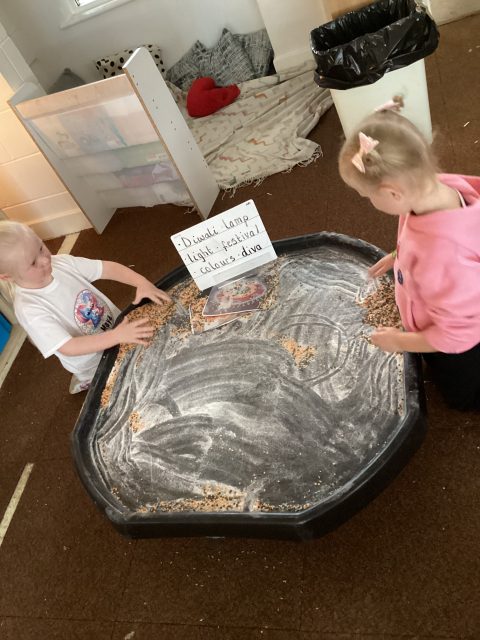
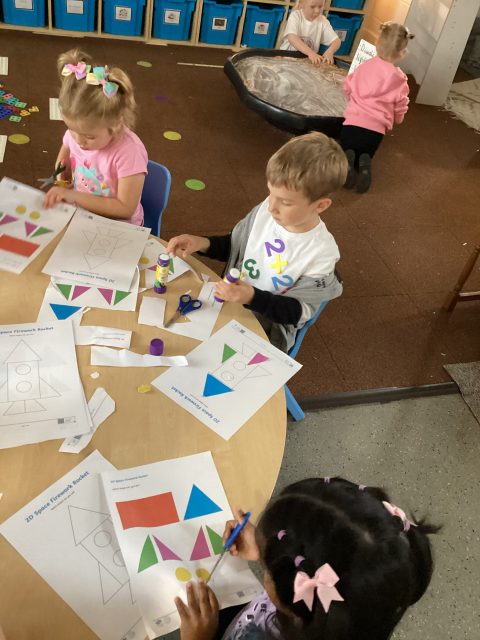
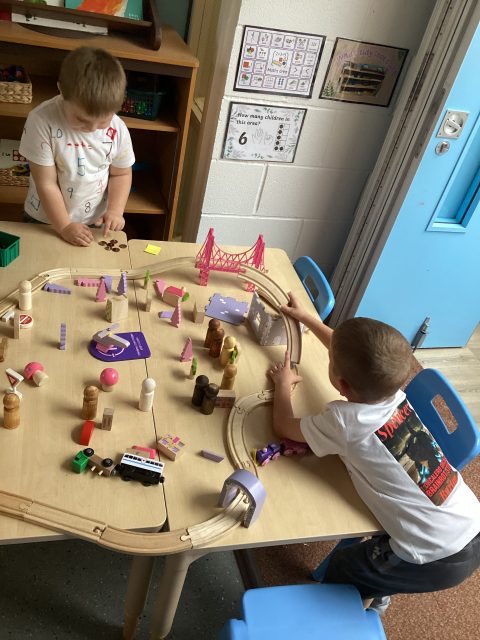

Sorting by size
The children are getting really good at sorting, and today we had to sort by size! We started by talking about the sizes we could see – both big and small, but today there was also another option…medium sized!
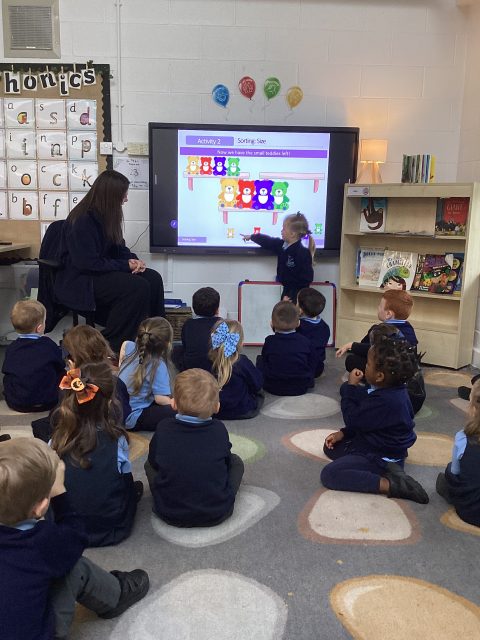
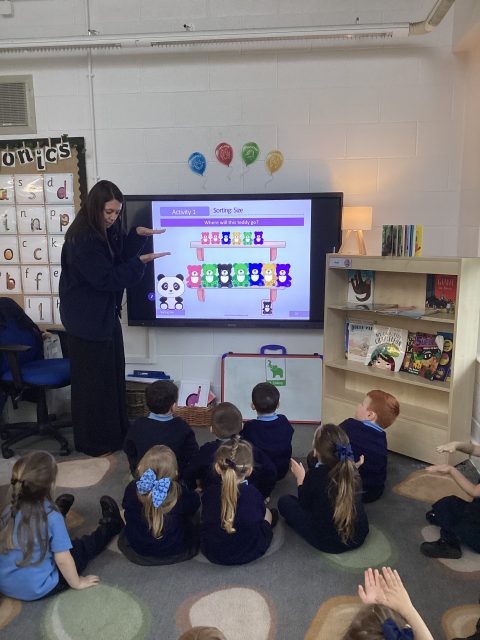

Stay and Learn – DT week/maths
Thank you to all our families that were able to attend our stay and learn today! The children always enjoy welcoming you into our classroom. Our stay and learn today was all about DT week – the children had to think really carefully about the resources available to them and design and build a trap for the gingerbread man! We had to think about the sizes of the boxes, and choose things that were the right size for our model – some things were too big, some things were too small. We talked about the materials we could use to connect them – wet glue, glue sticks, cello tape, strong wide brown tape, masking tape or even string! Lots of opportunities for discussion and new vocabulary. Thanks again to all our families – we can’t wait to invite you in again soon!
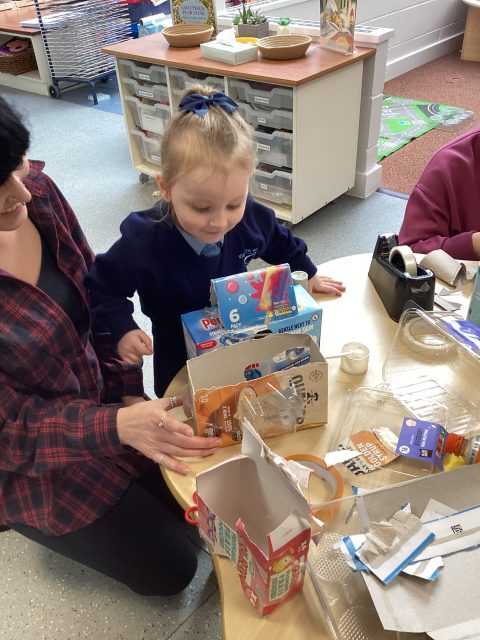
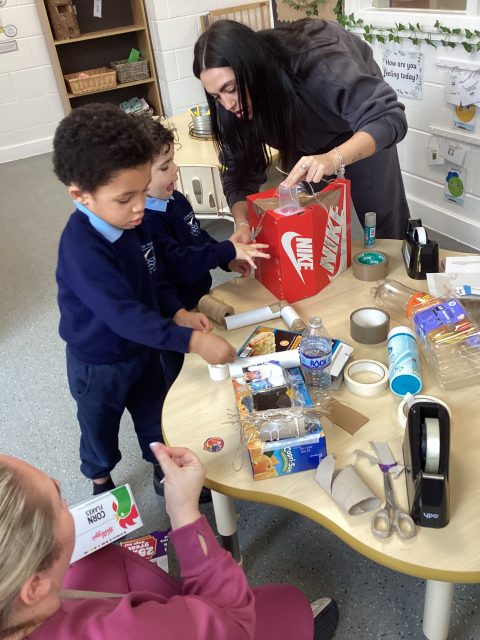
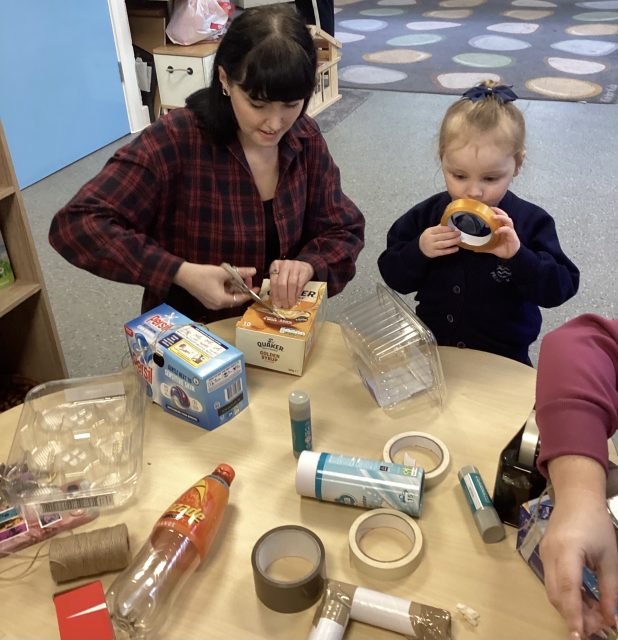
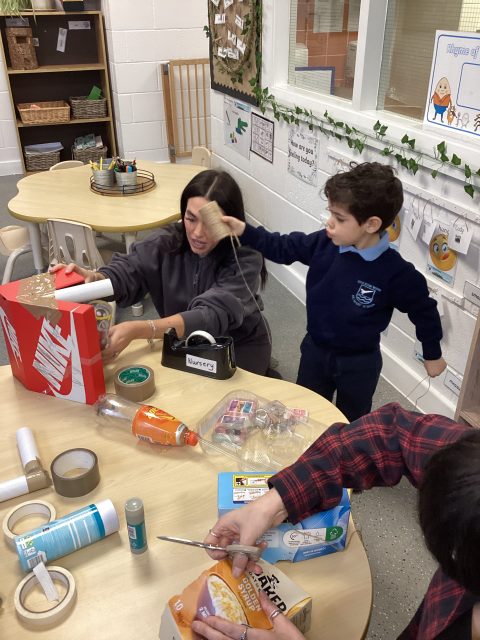
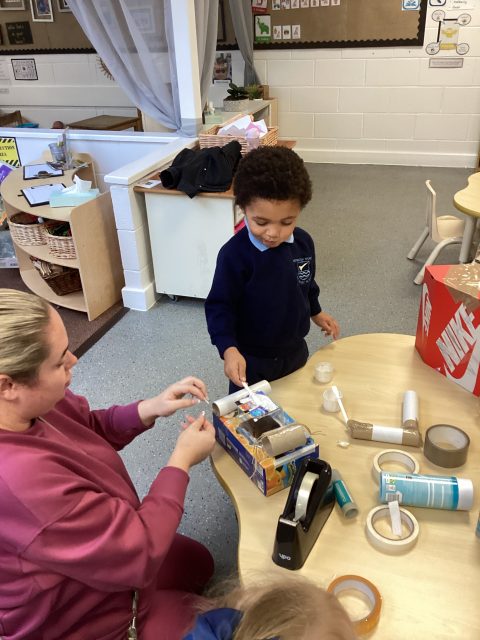
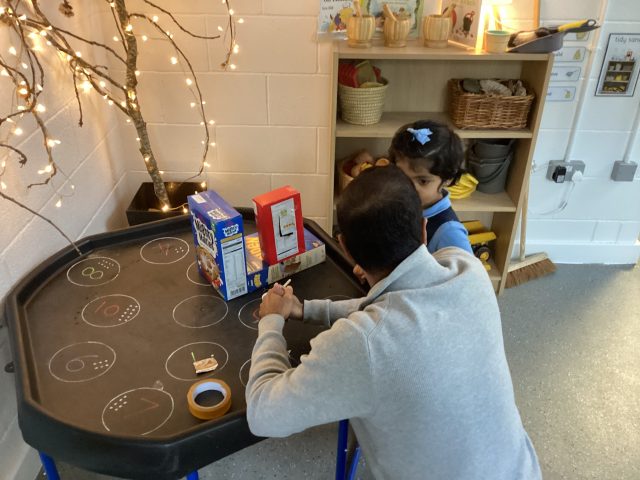
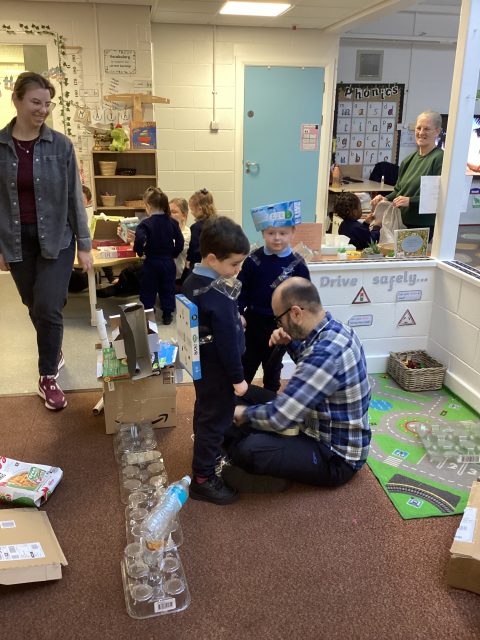
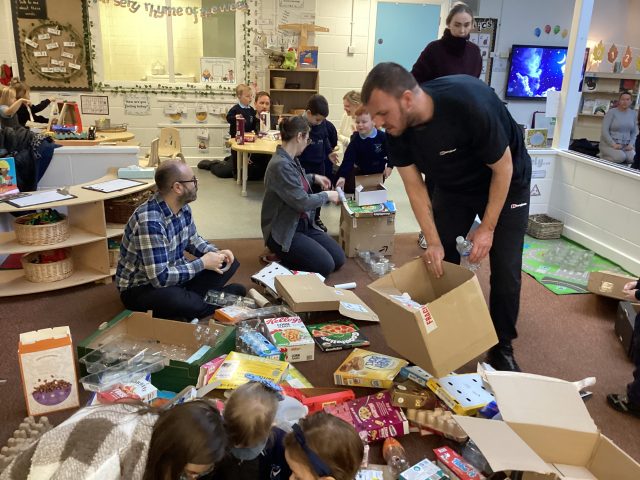
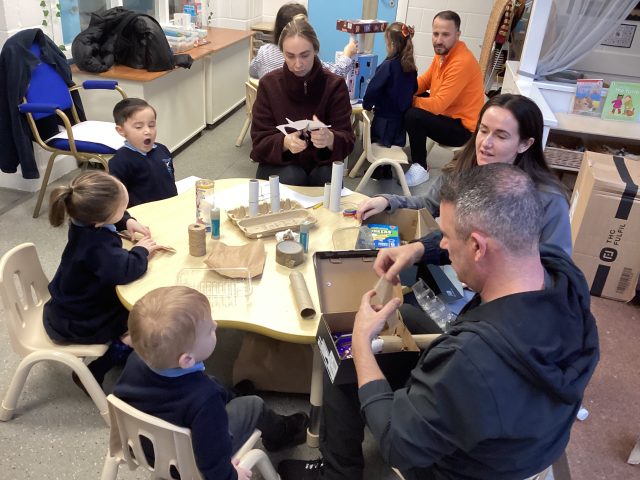
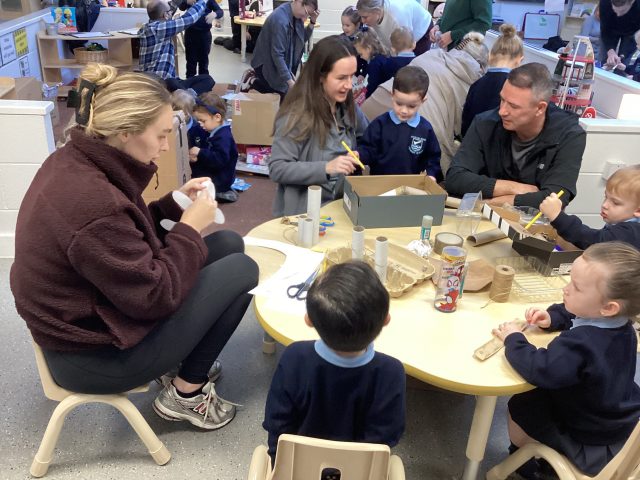
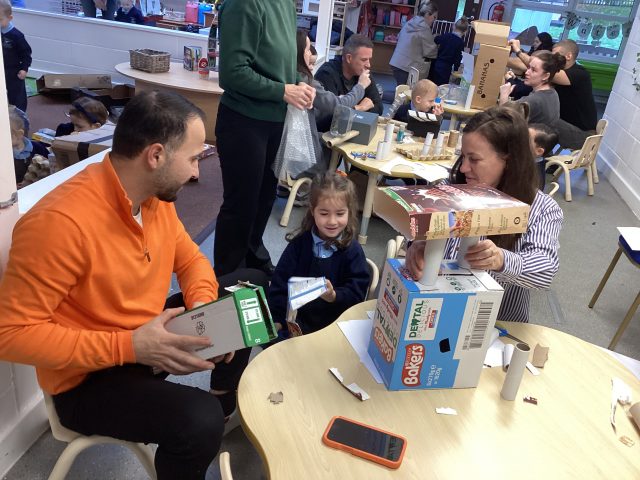
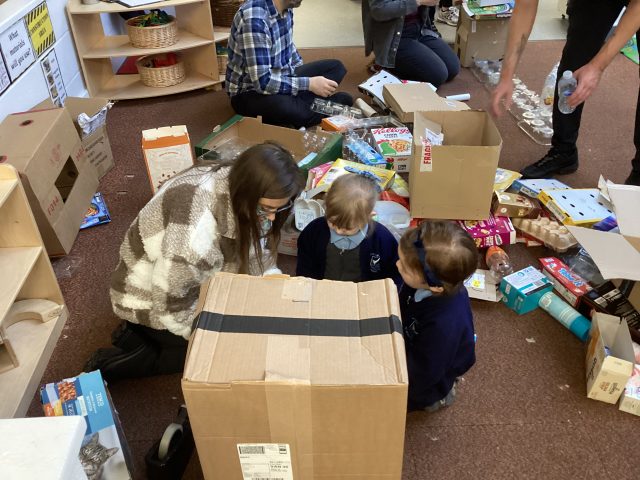
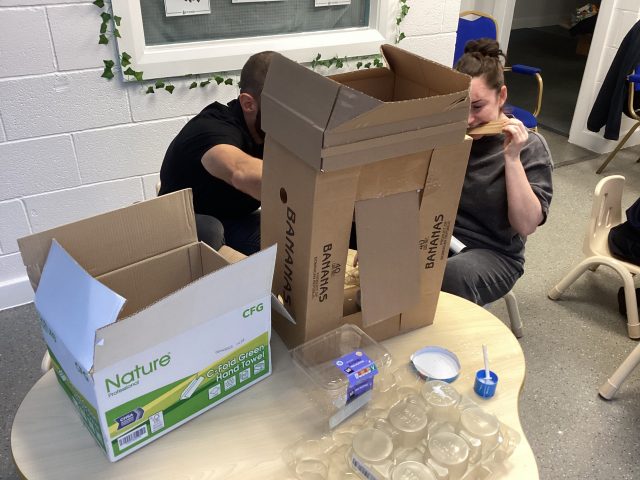
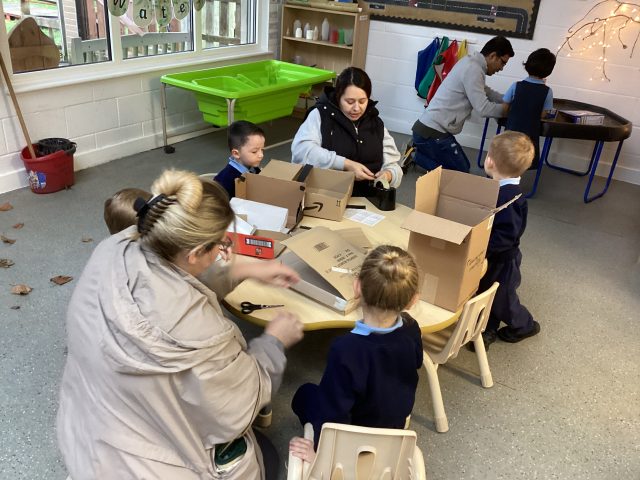
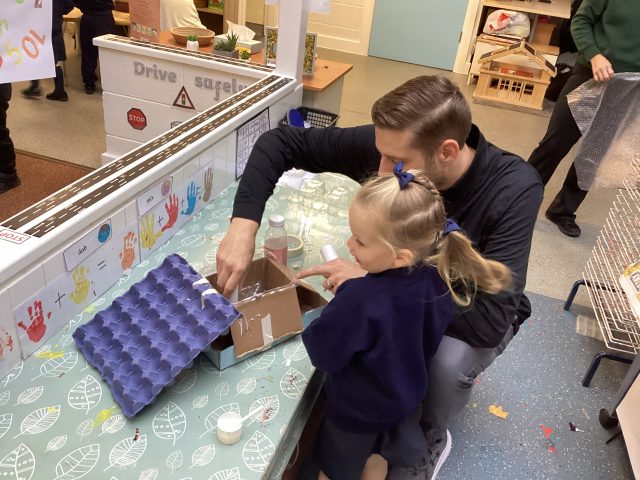
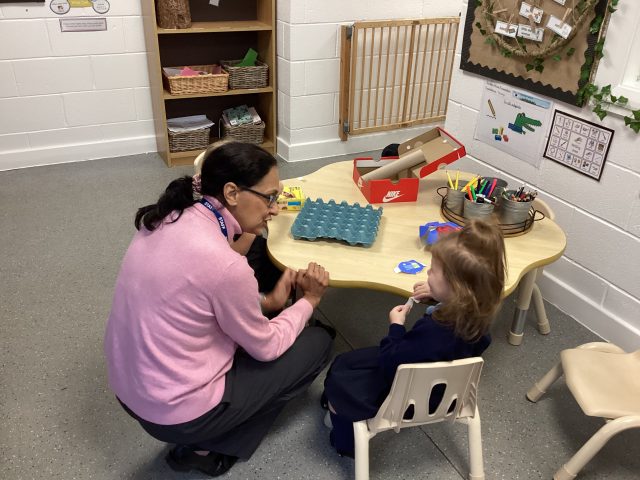
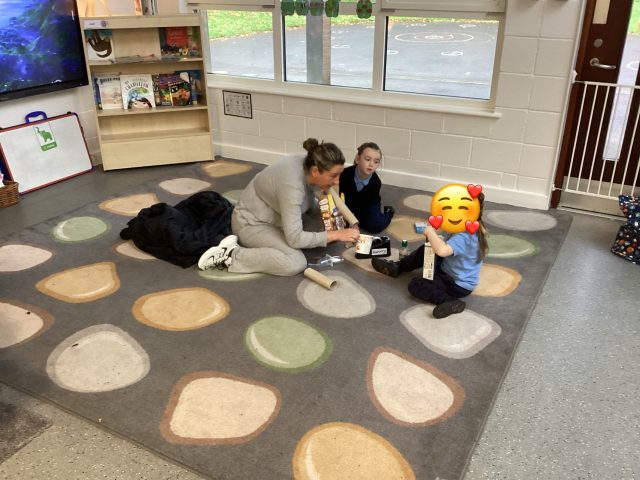
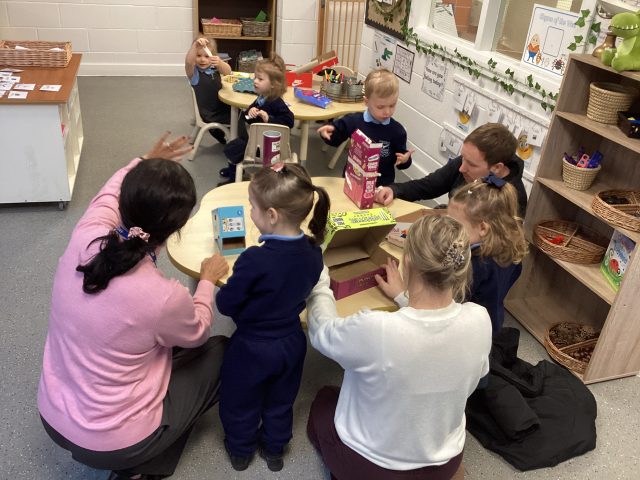

Maths Party Day
We enjoyed Maths Party Day on Friday. We got involved with a zoom focusing on Rubik’s Cube art and created our own piece of artwork. We then worked together to order key dates in Liverpool’s railway system.
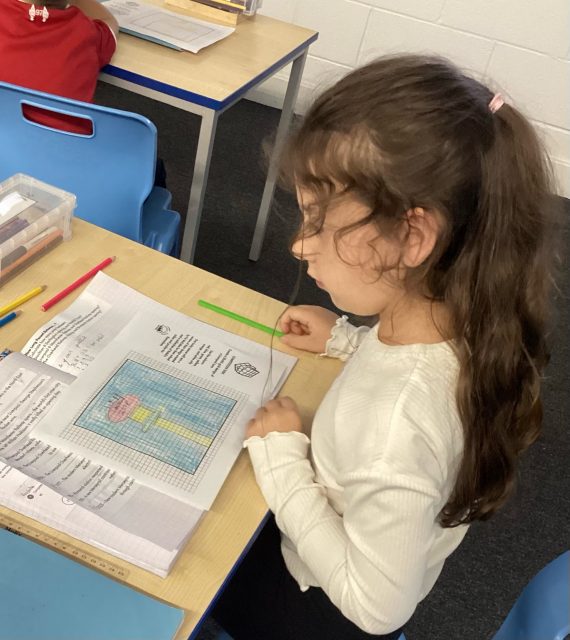
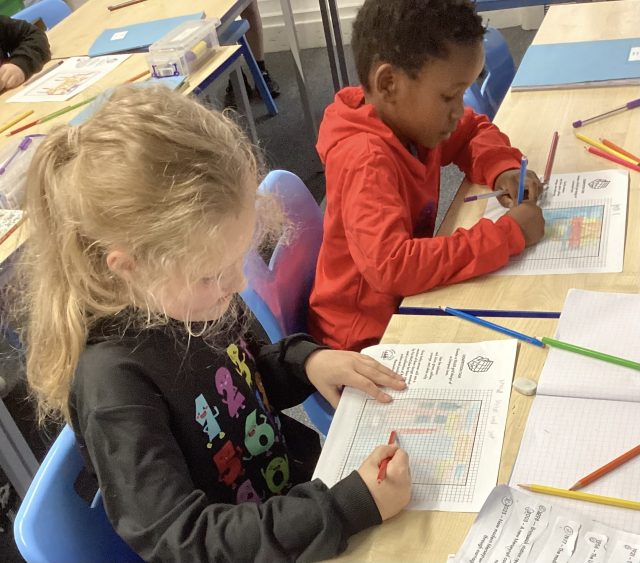
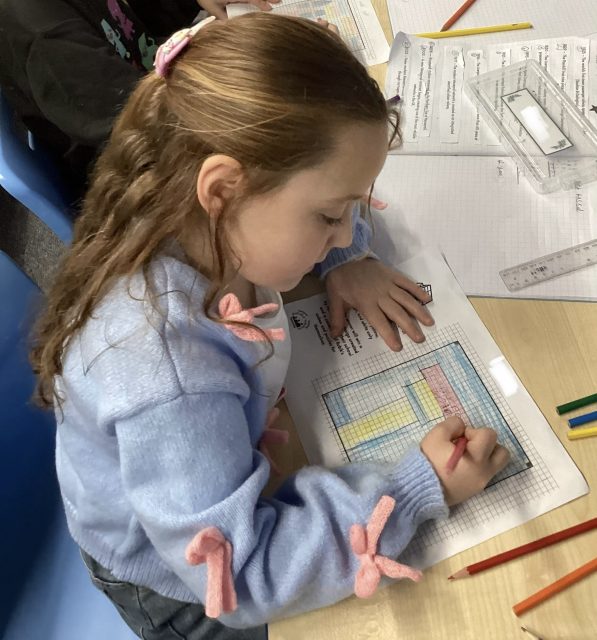
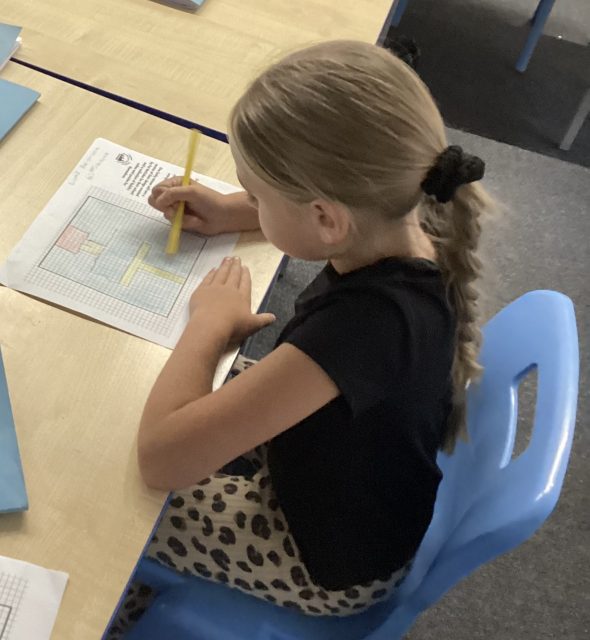
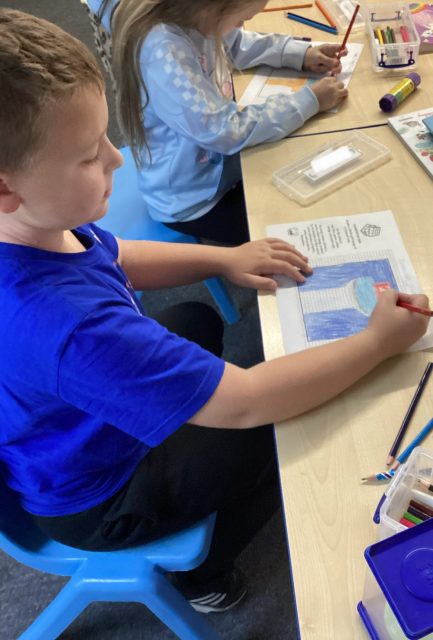
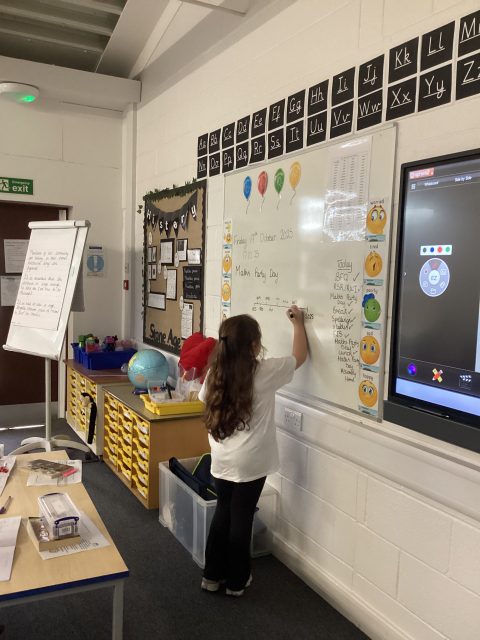
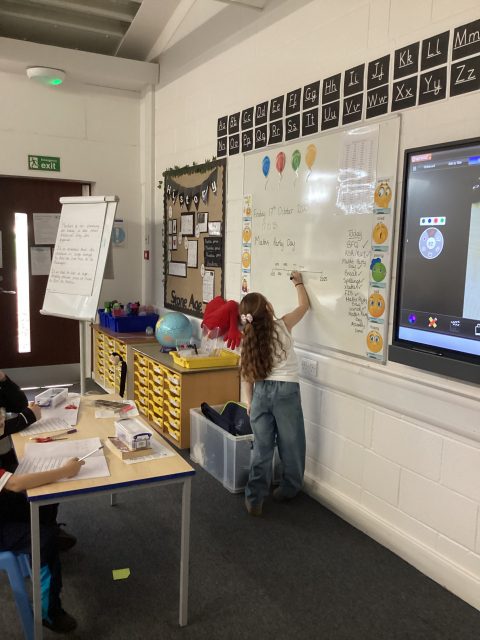
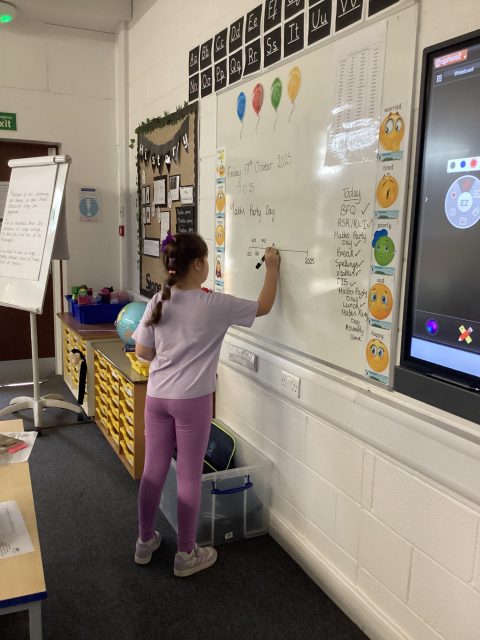
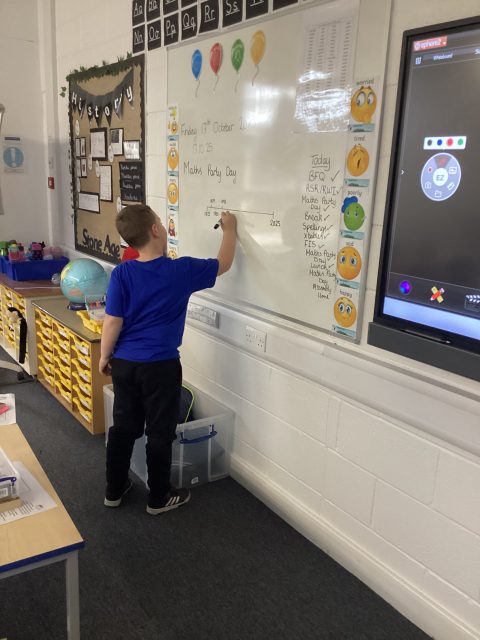
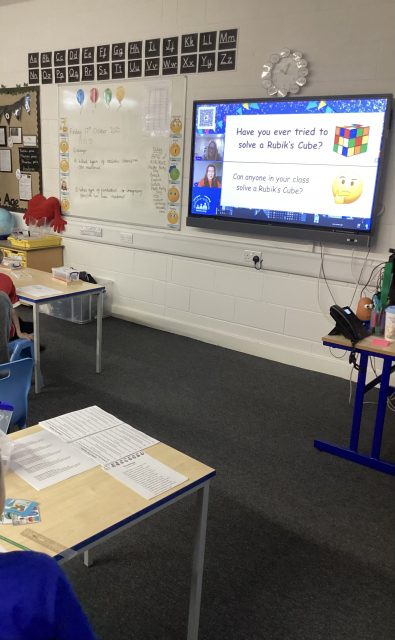
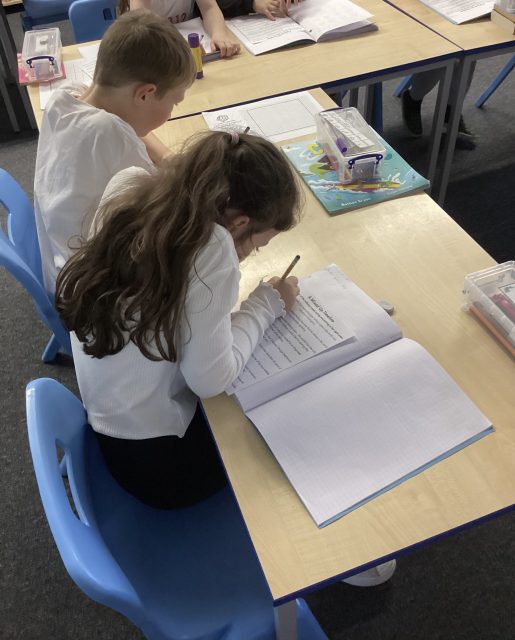

Maths Party Day
We had a great Maths Party Day in 3McK! We enjoyed our zoom where we got to speak to an artist who uses Rubik’s Cubes! We also completed a fun activity on the timeline of Liverpool’s railway system!


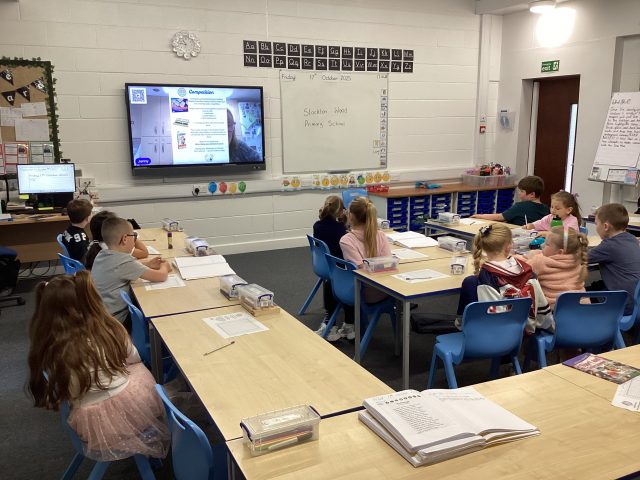

Maths Party Day 🔢
Today we had so much fun exploring numbers and doing exciting activities! We went on the Maths Train, where we used our maths skills to solve problems along the way. One of our favourite parts was counting money to pay for our tickets. We also made our own Numberblocks trains and coloured pictures by numbers, which helped us practise number recognition and patterns. To finish the day, we had a dance party with some fun maths songs that got everyone moving and smiling. It was a fantastic day full of learning and laughter!
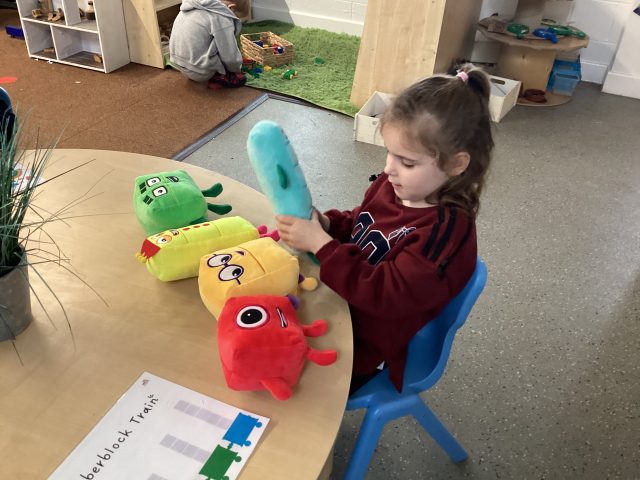
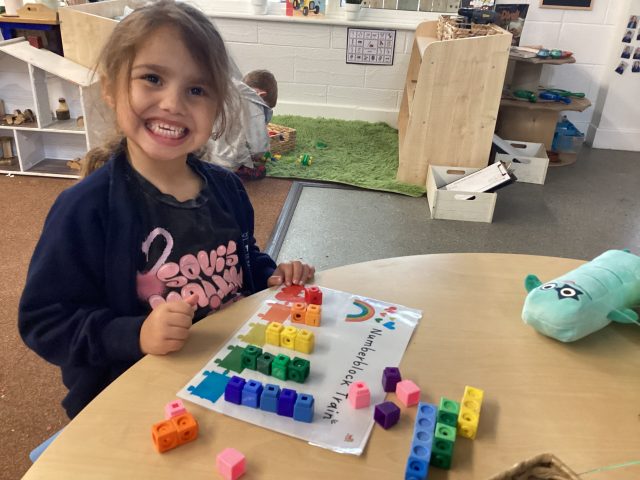
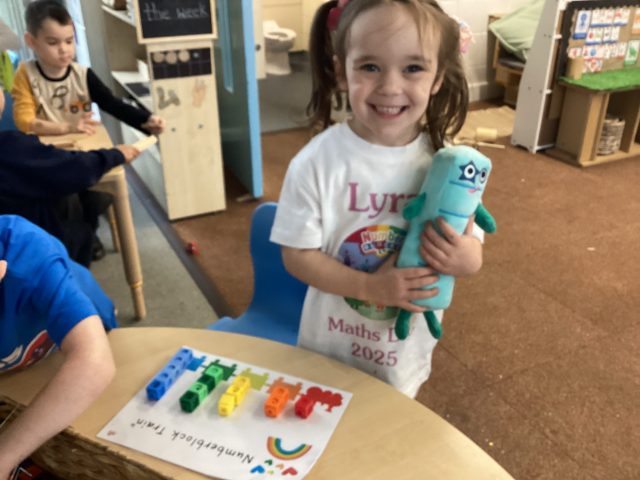
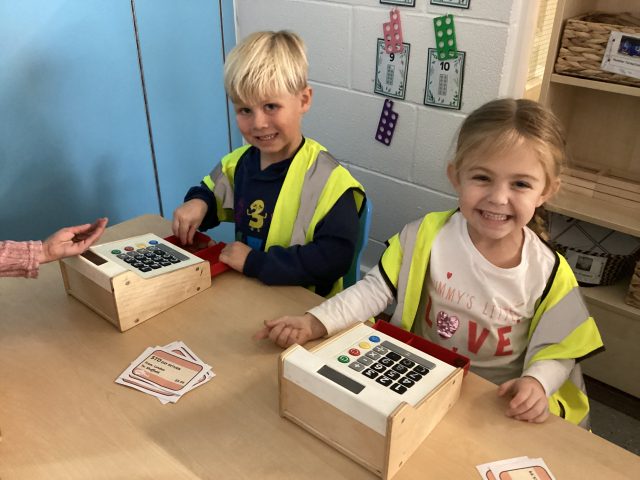
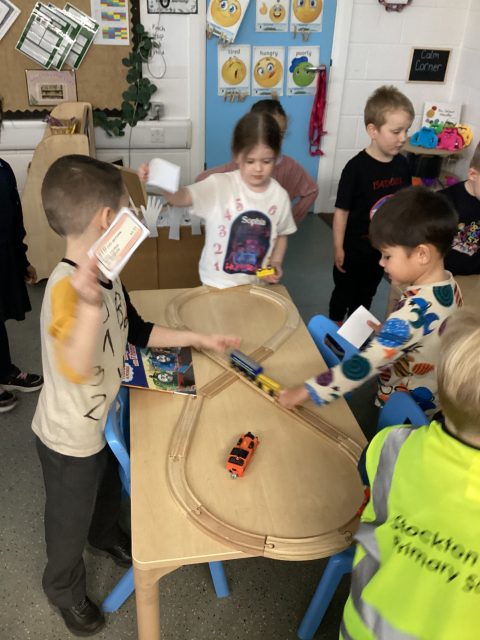
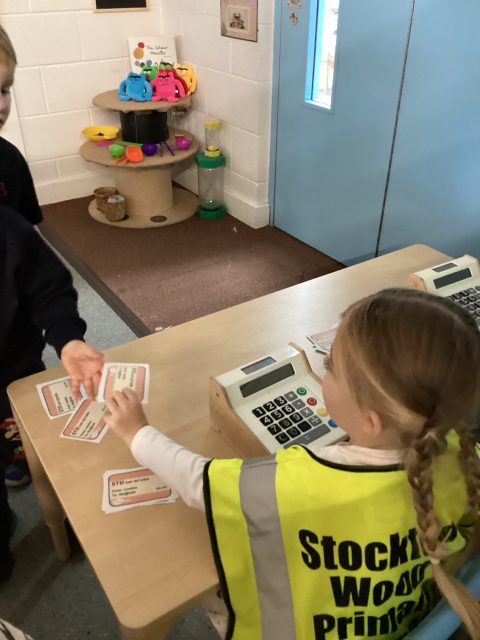

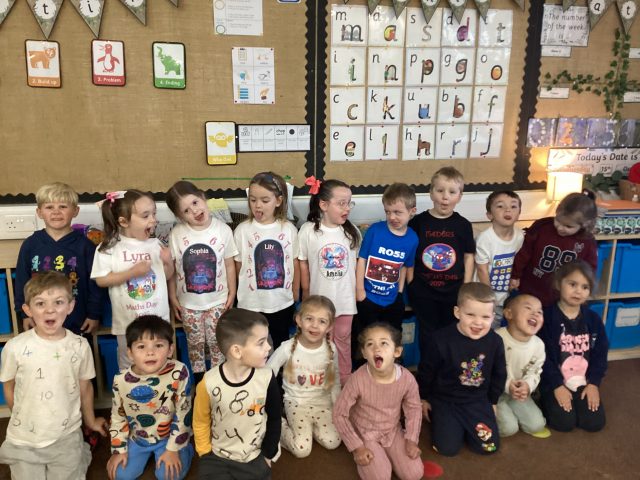
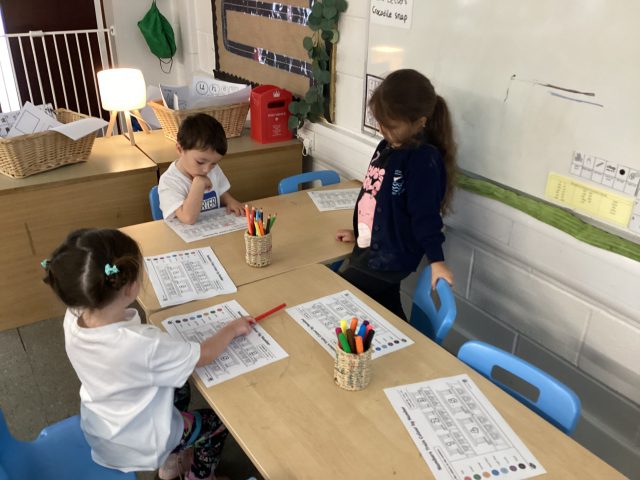
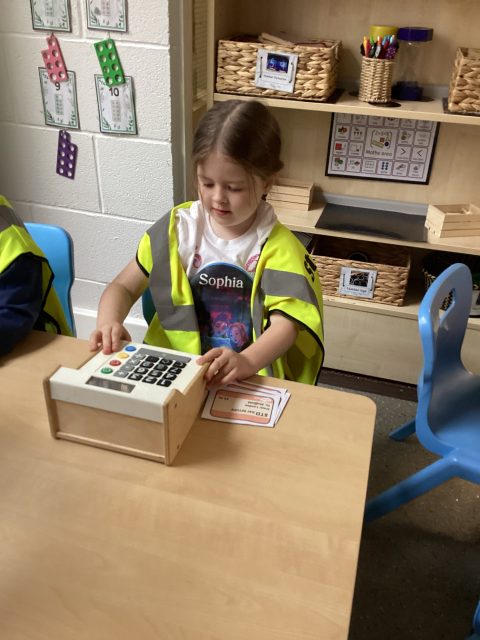
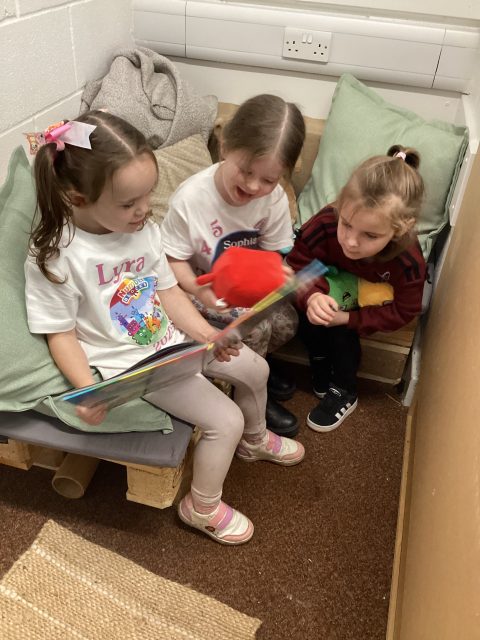
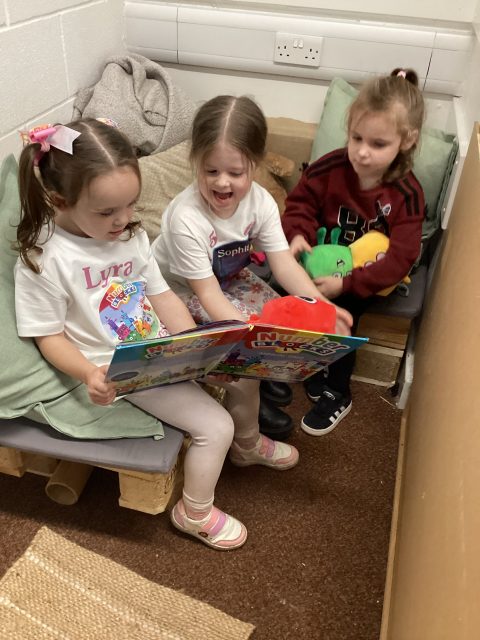
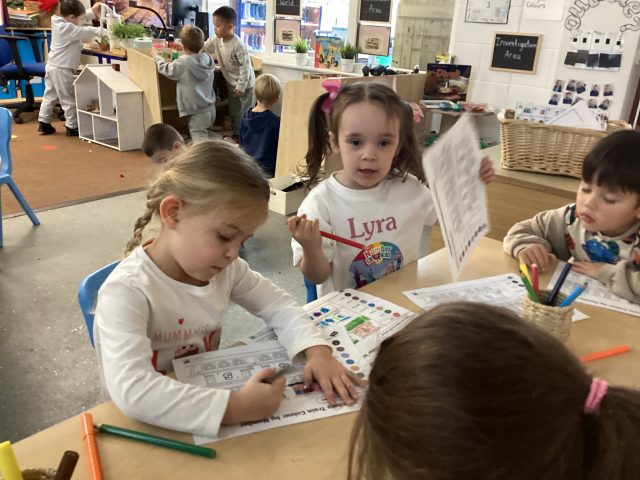
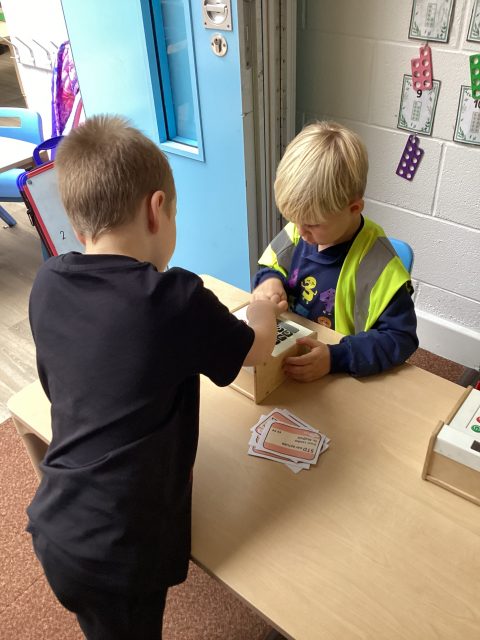

Maths Party day 5H
Today was maths party day. We dressed up in numbers and patterns and had a zoom with an artist that uses Rubik’s cubes. We also did some work on fractions linked to Rubik’s cubes.
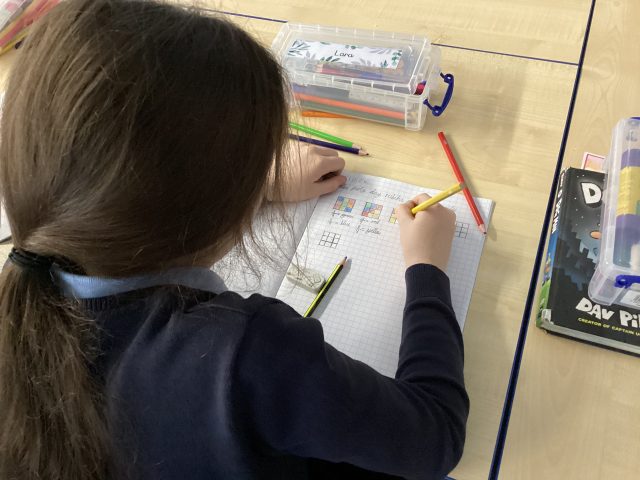
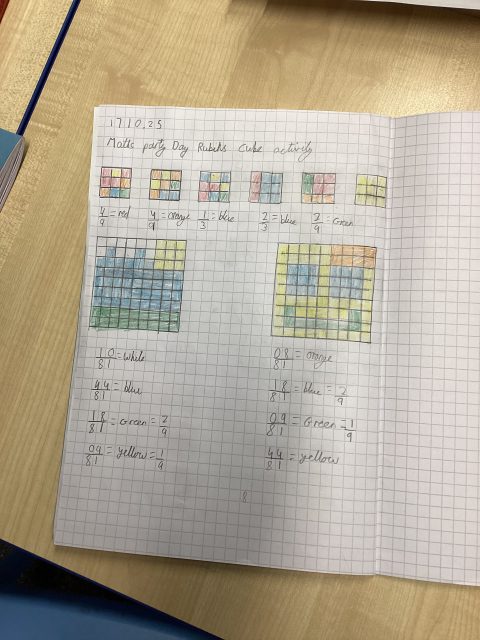
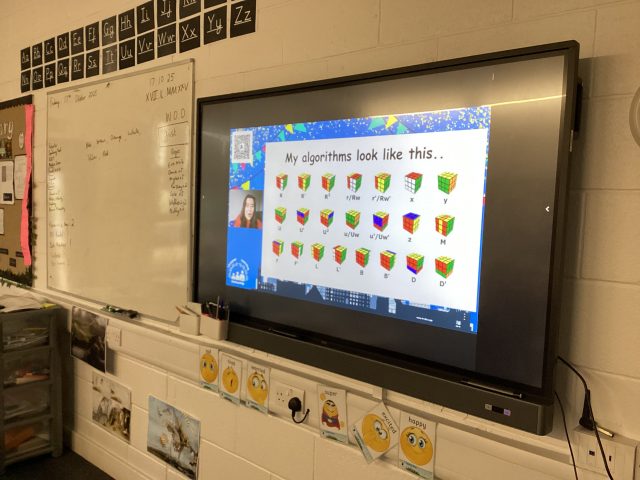
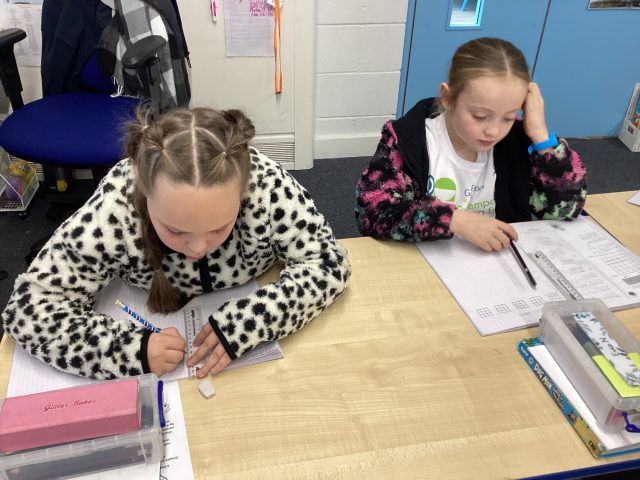

Maths party day
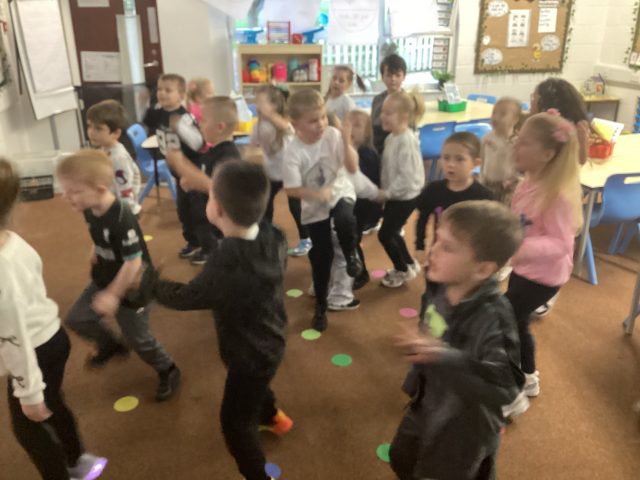
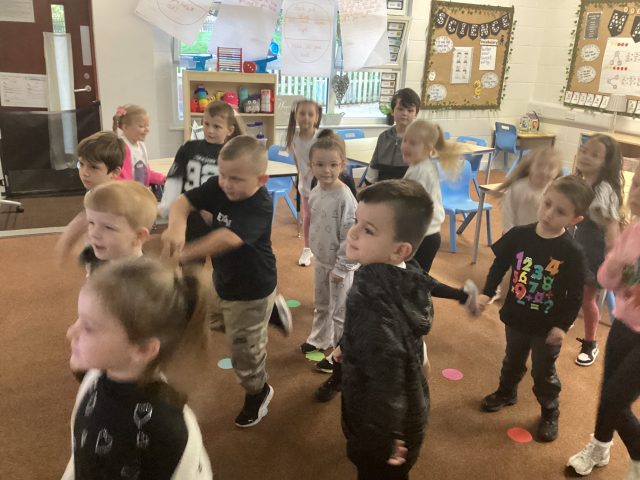
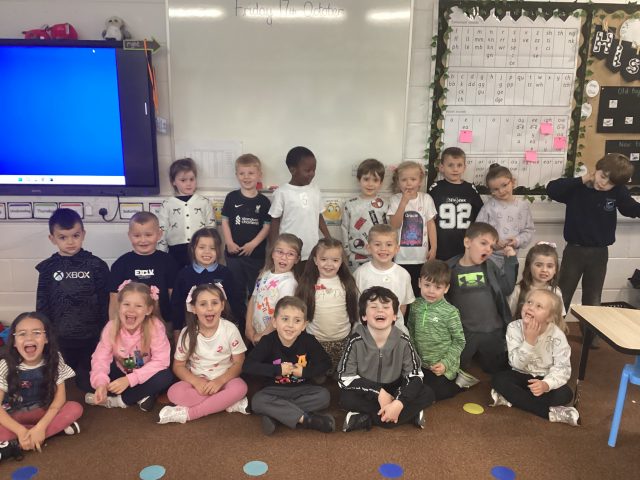
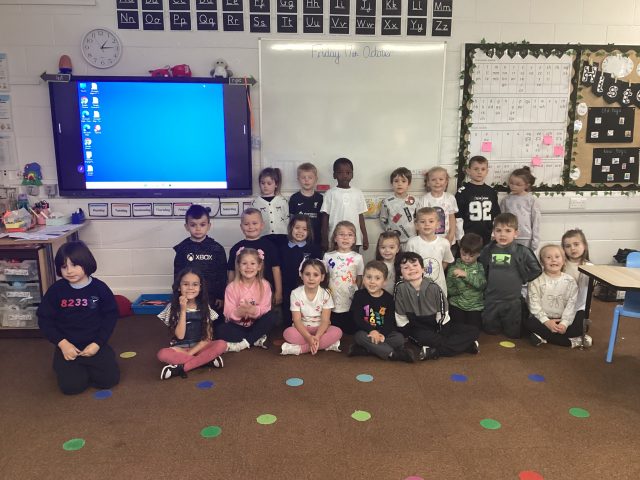
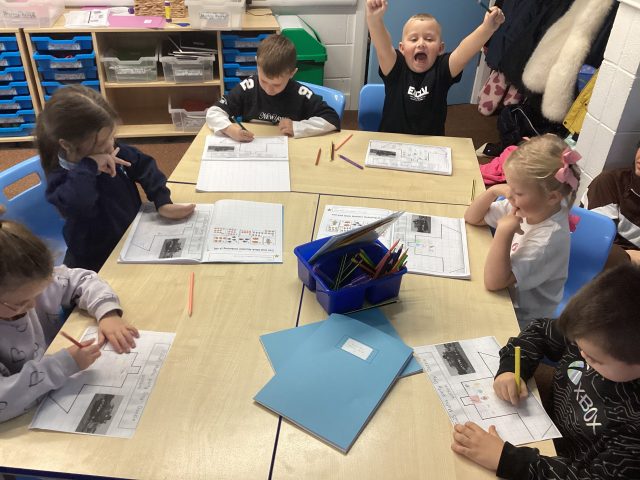
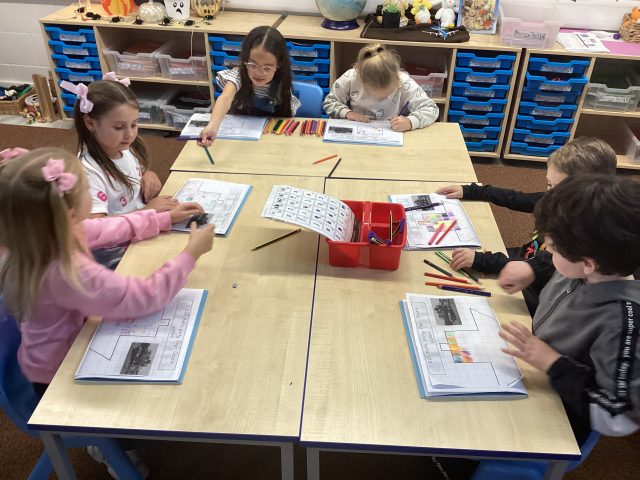
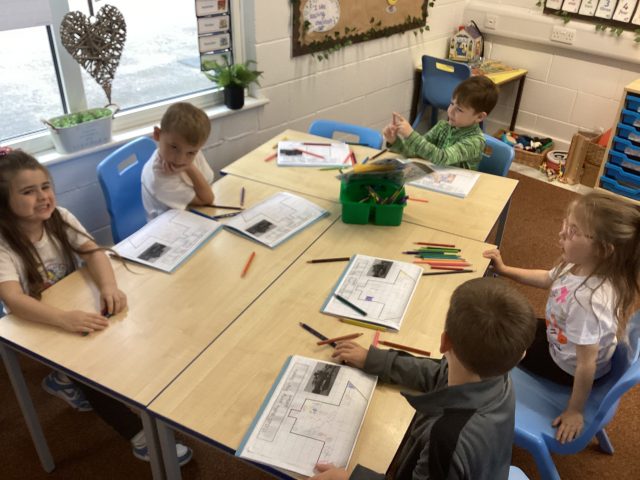
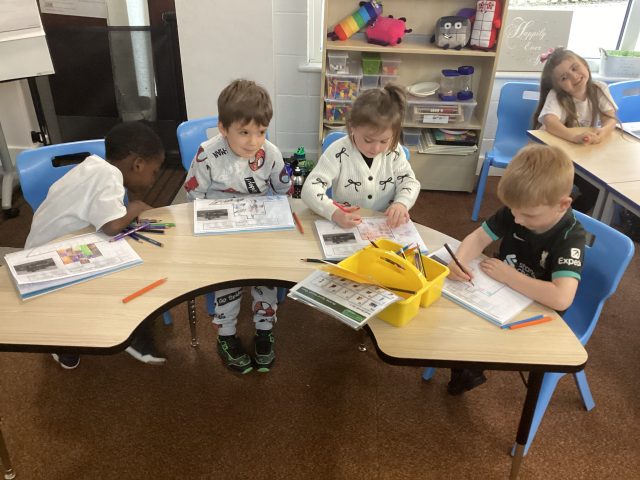
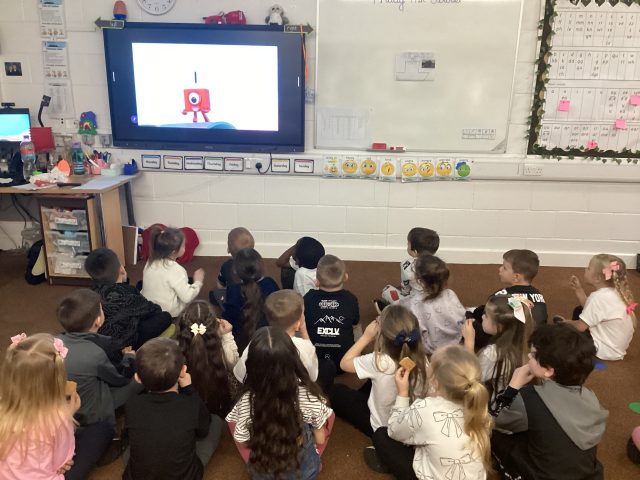
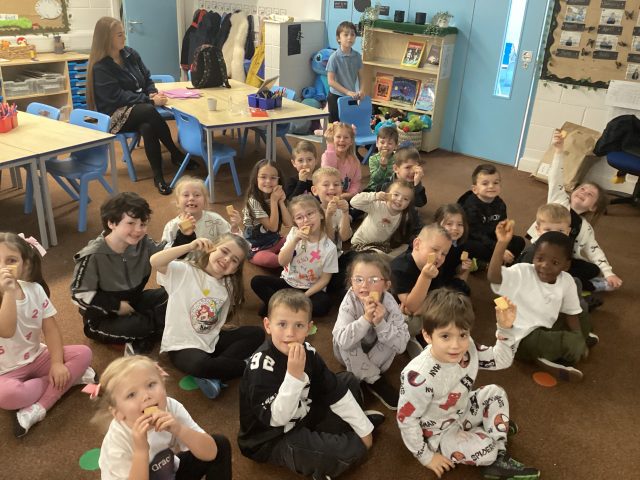
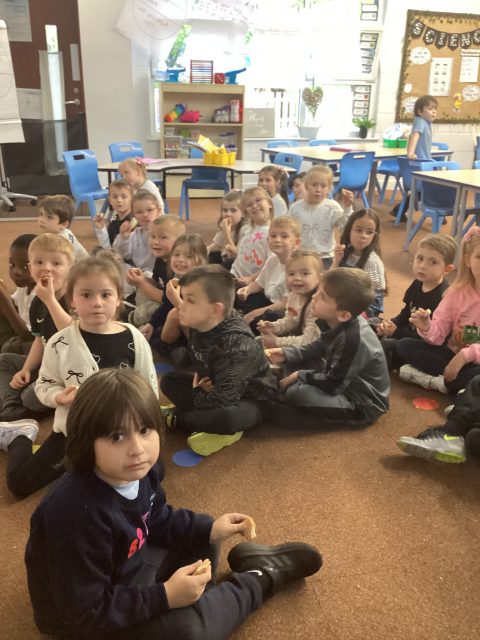
We have had a lovely day, dancing, biscuits, maths work and number blocks.
497
Maths Party Day
Year 4 have had a lovely morning celebrating maths party day. 4D used the skill of scaling to design a train station. We really enjoyed our zoom our maths party day zoom, learning how we can use maths in art. It has been lovely to see everyone dressed up in their numbers. 🔢
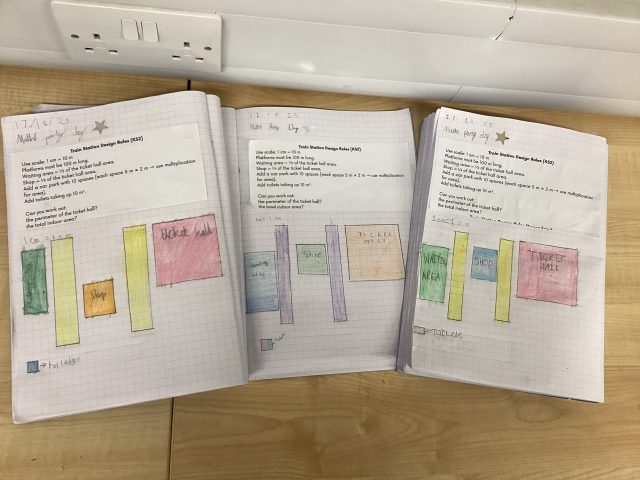
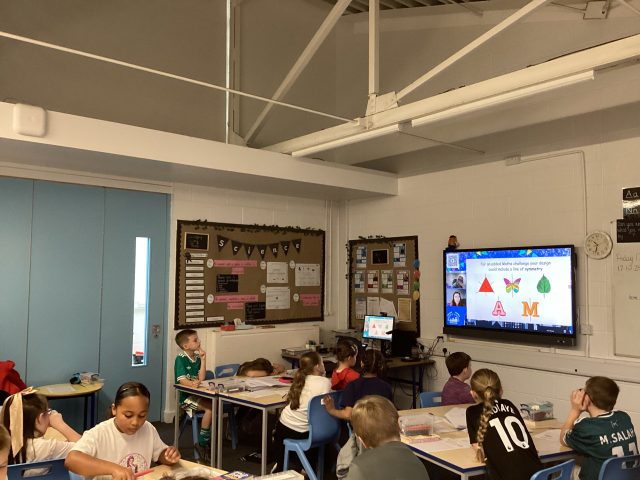

Maths Party Day 🥳
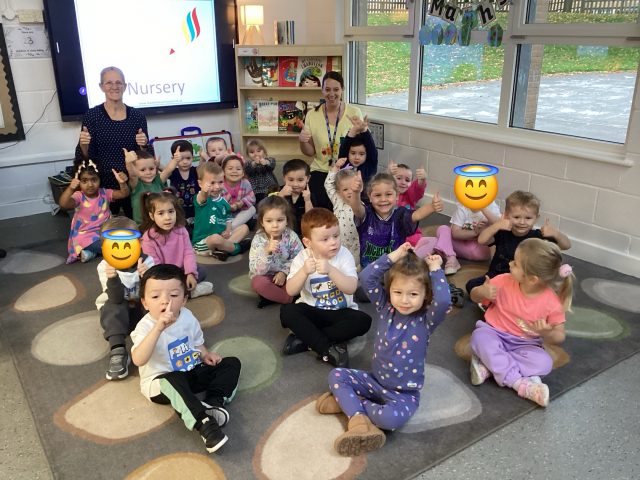
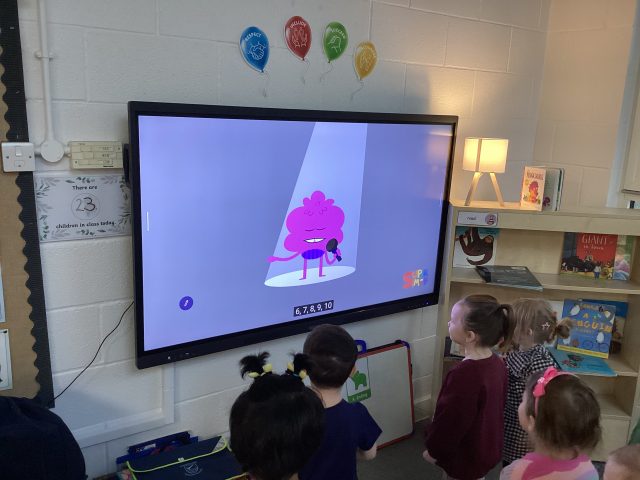
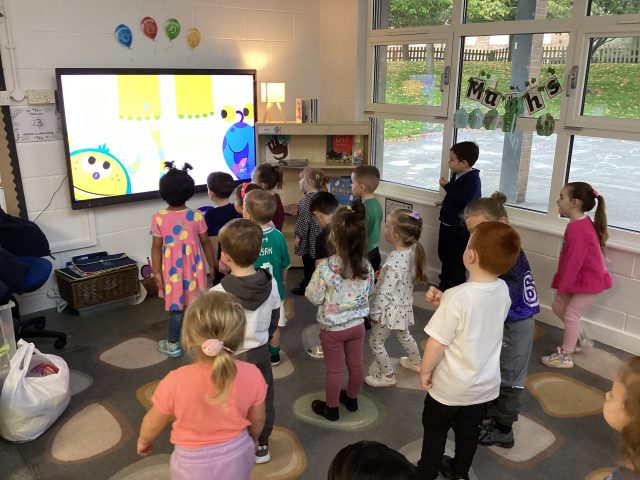
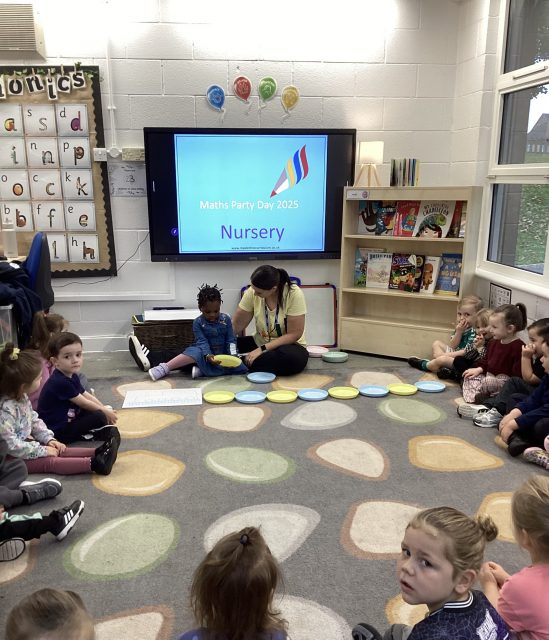
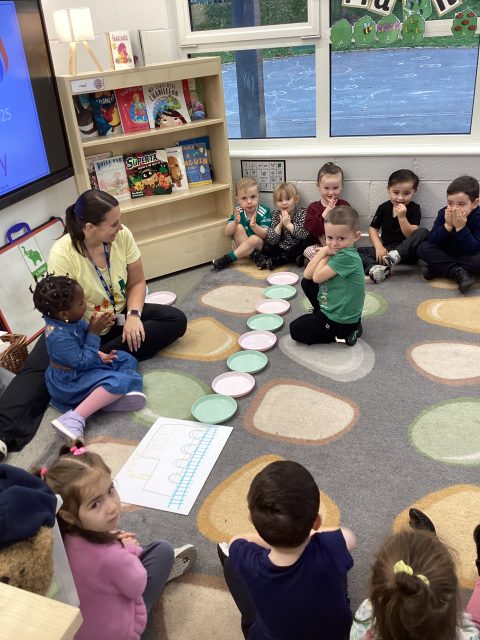
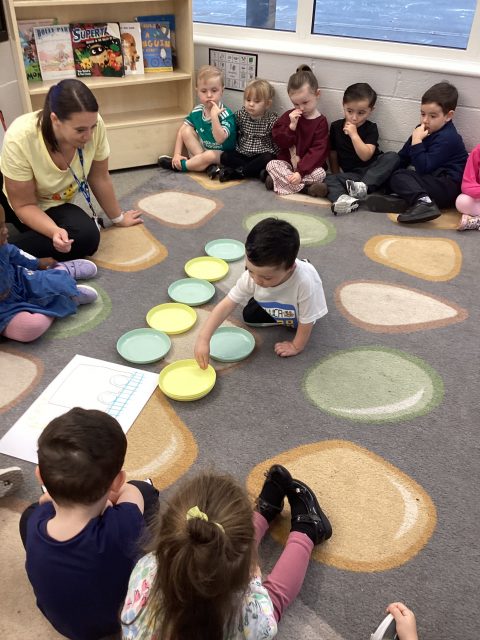
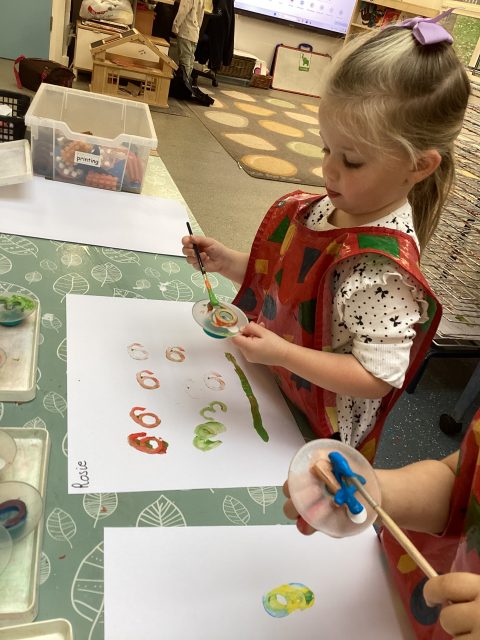
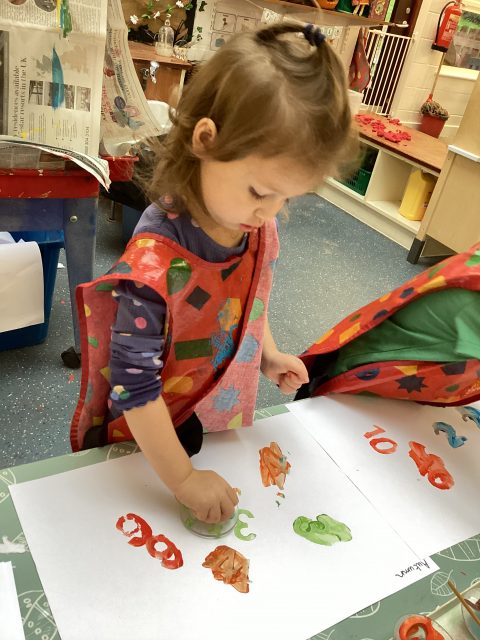
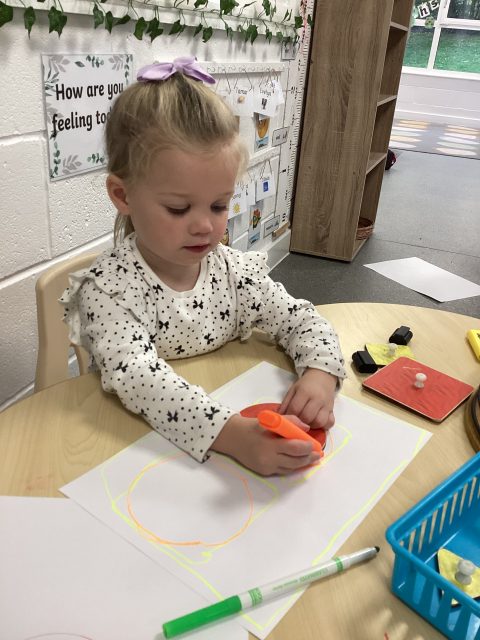
We are having a brilliant day celebrating maths party day 🎉 we started our morning off with some number songs – our dance moves were just as amazing as our counting! We then got on board the maths train, and made a pattern. We talked about the different colours taking turns to make sure the pattern was correct.
927
Pumpkin soup 🎃
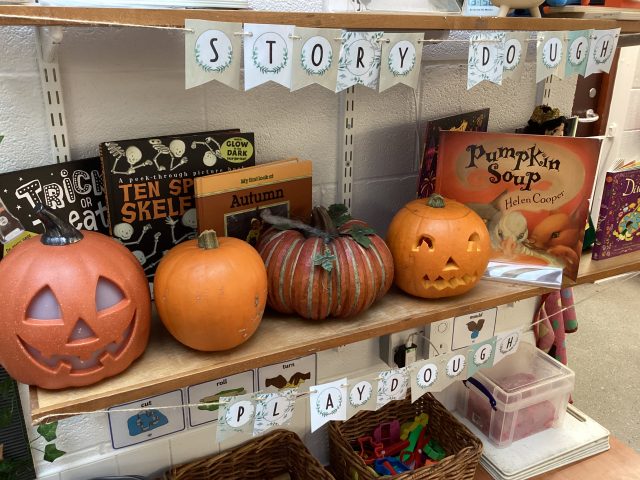
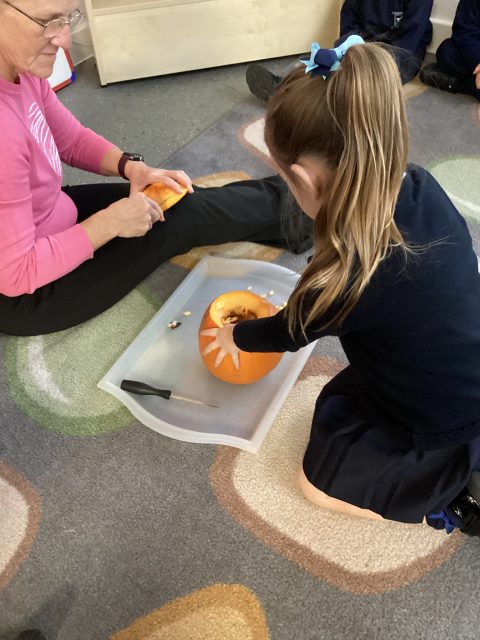
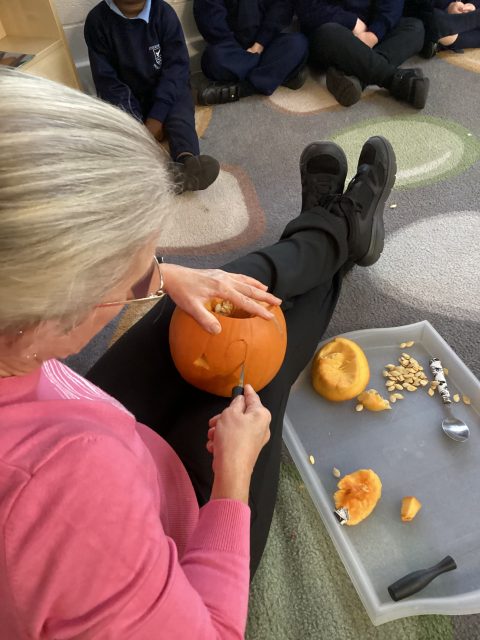
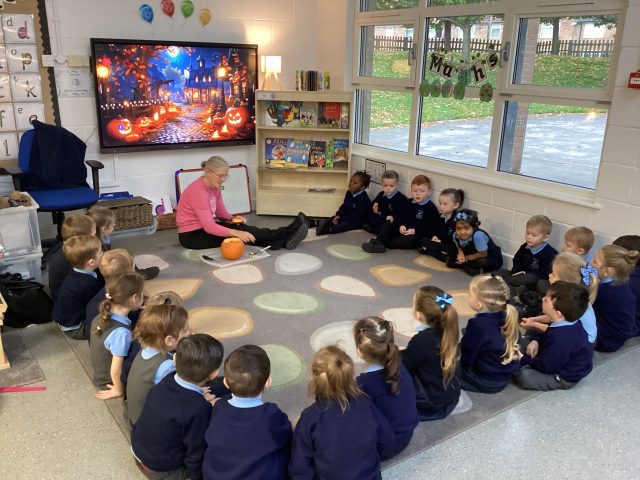
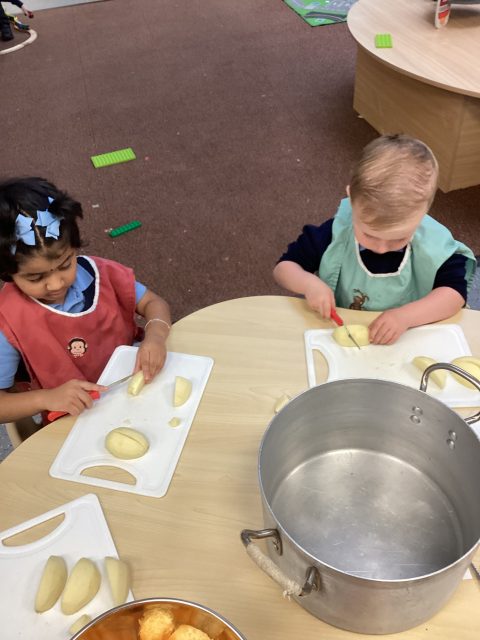
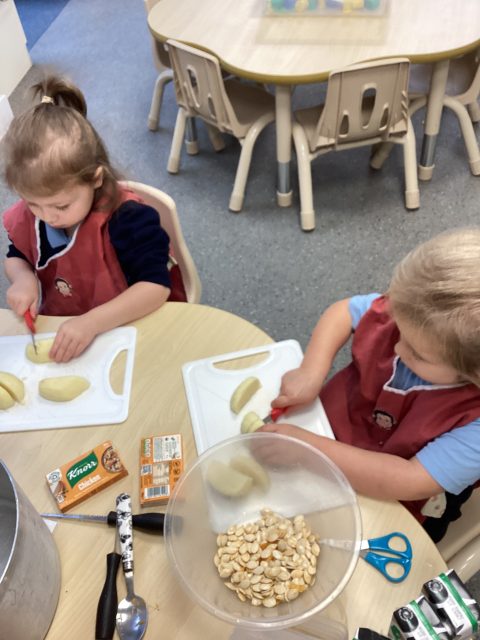
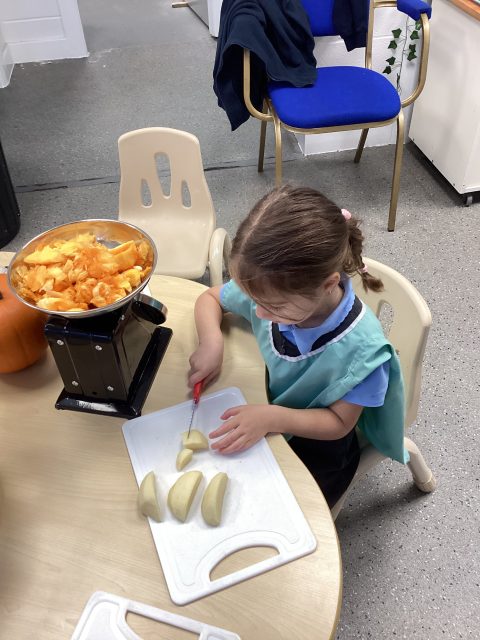
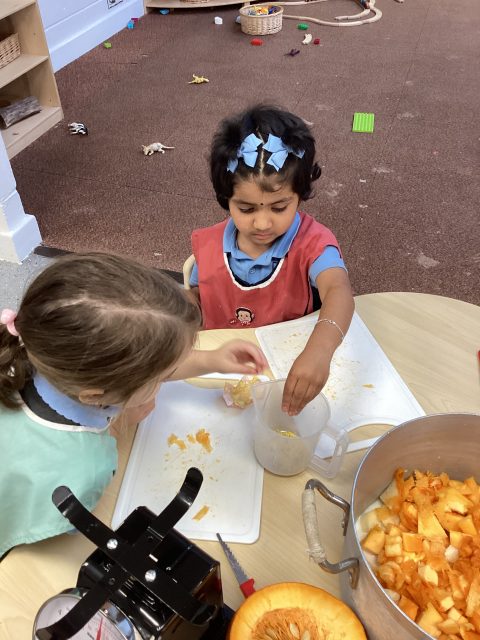
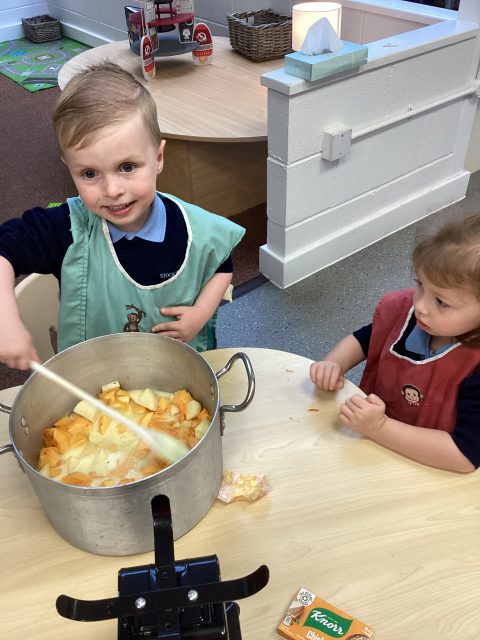
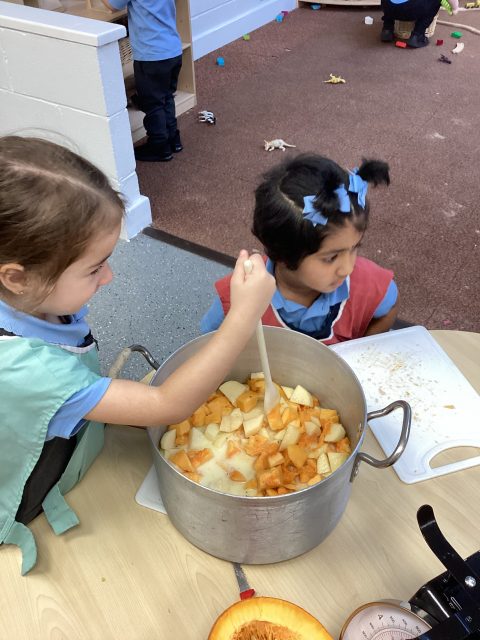
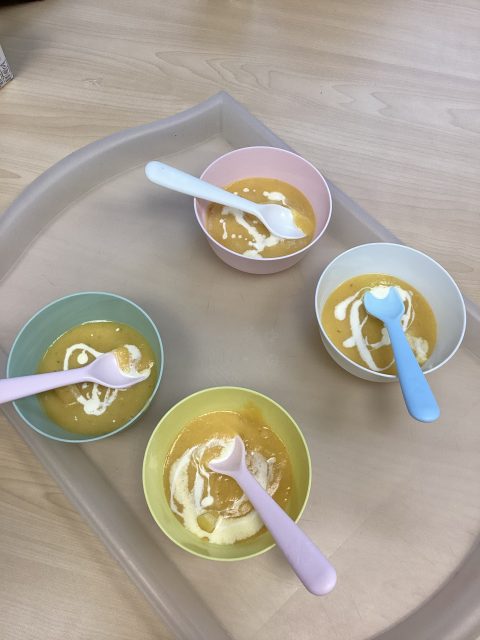
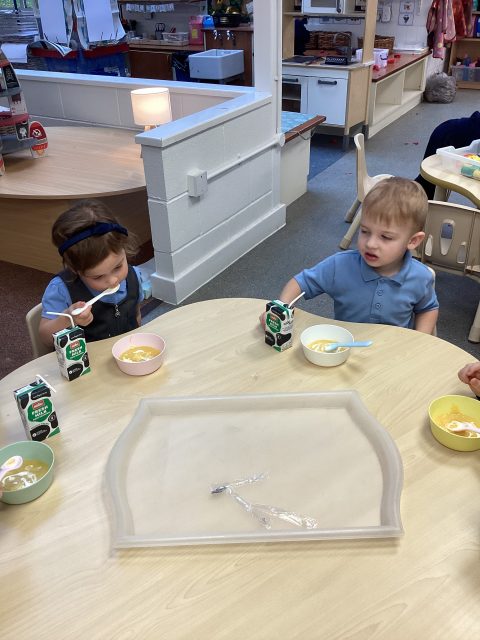
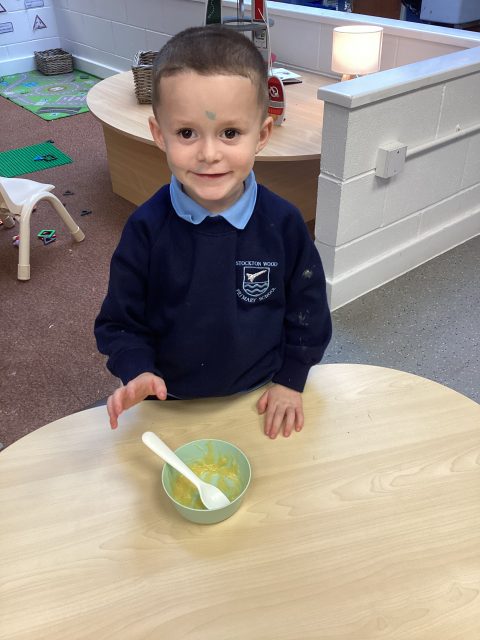
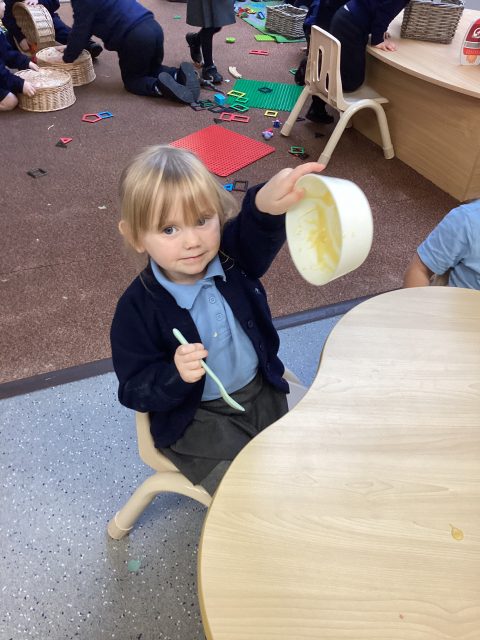
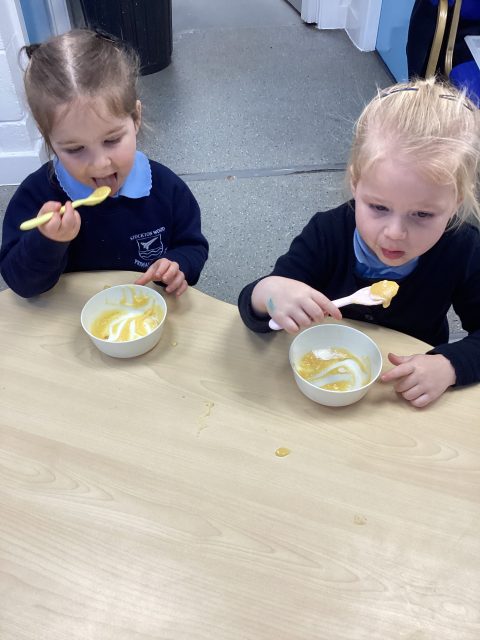
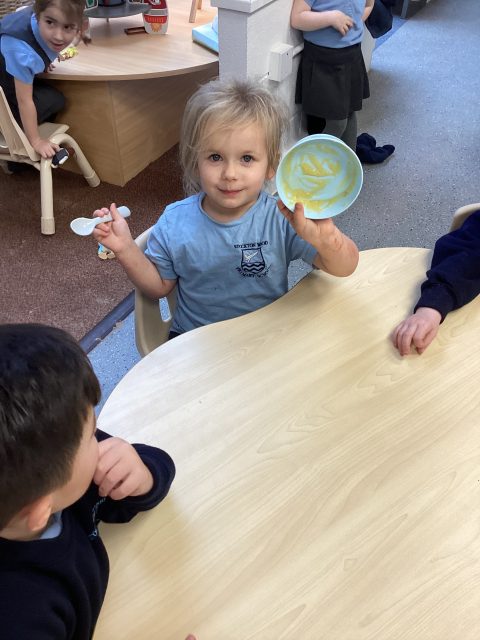
The children have really enjoyed learning more about autumn and Halloween 🎃 👻 This week, we have read the story Pumpkin Soup, and then made our very own! We helped Mrs Sefton hollow out the pumpkin, and then she carefully carved a spooky face into it. We then weighed and chopped the potatoes and pumpkin and Mrs Sefton cooked it before blending it into a delicious soup 😋
935
Maths
This week reception have been exploring the numbers 1, 2 and 3! We have been practicing our number formation and exploring different ways in which we can make the numbers.
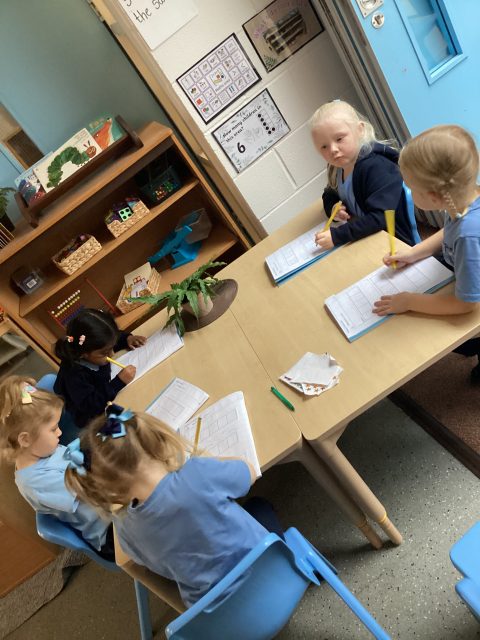
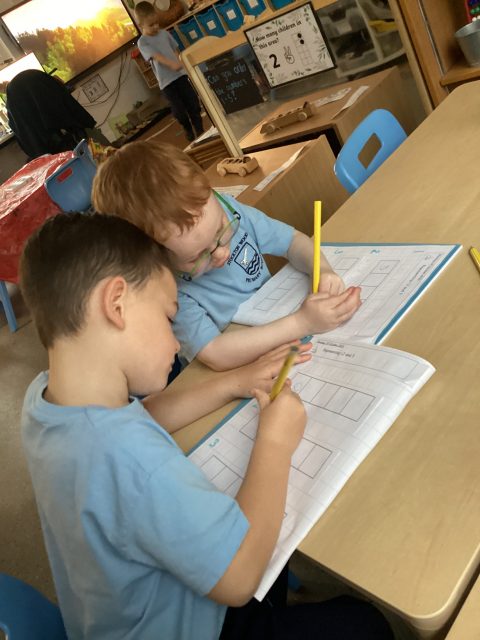
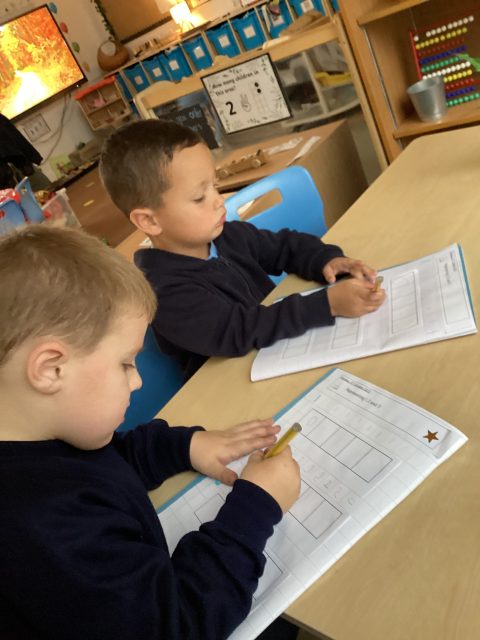
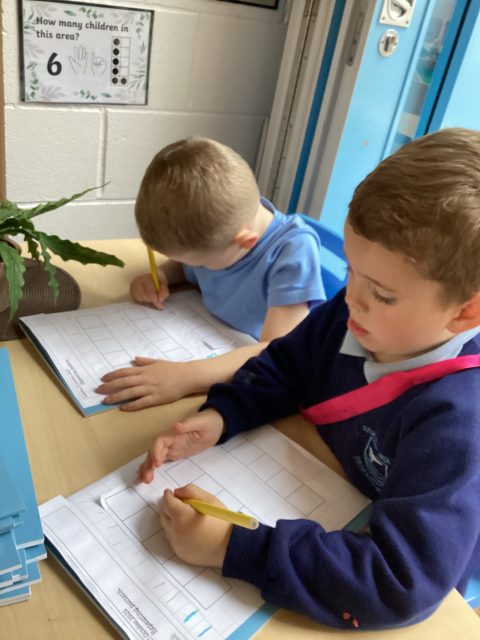
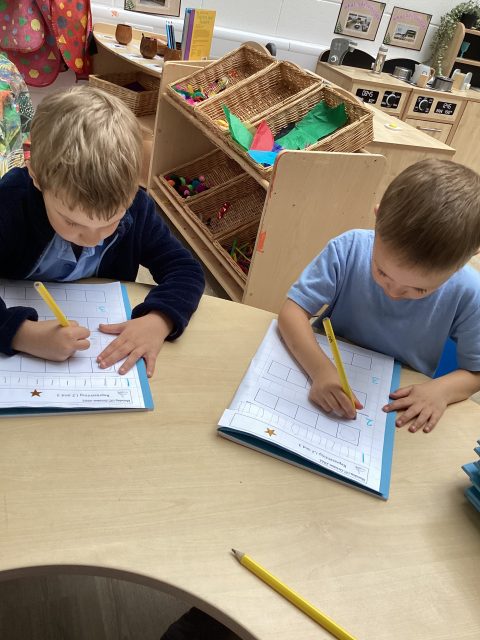


Learning how to match
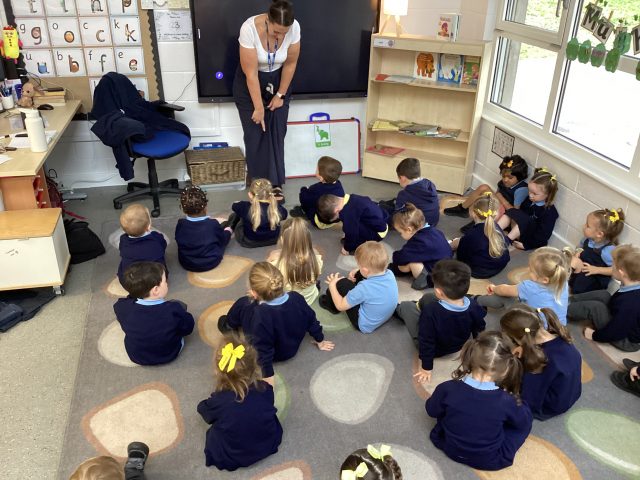
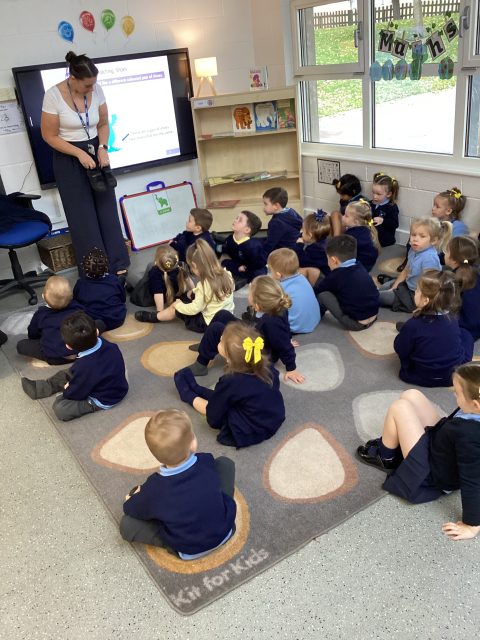
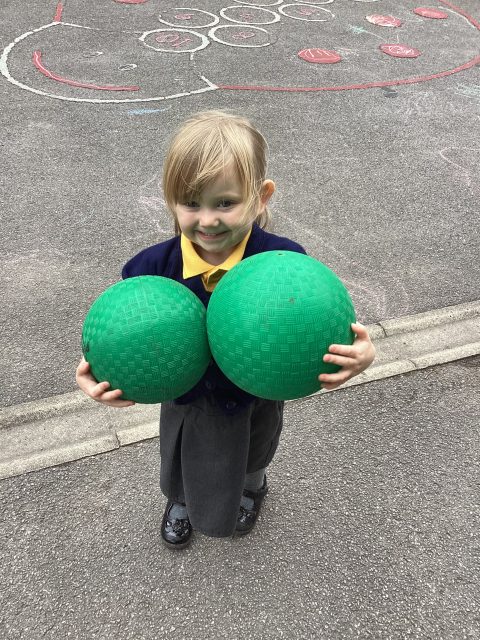
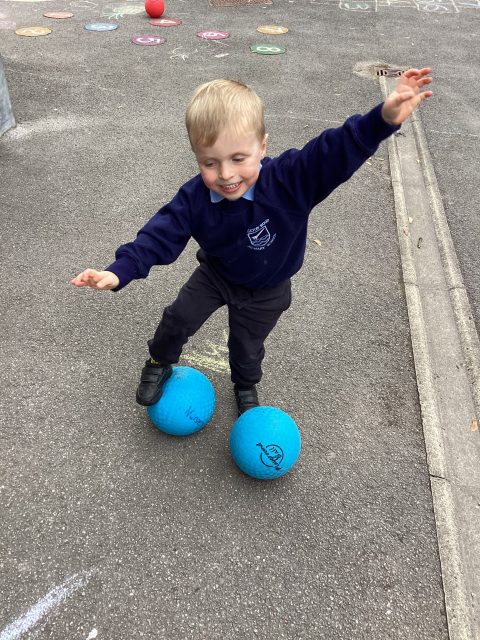
Following on from colour recognition, we have been learning about how to match. We found out that if two things are the same, they match. We looked at our shoes, and how our shoes match each other, but they may not match our friends shoes; they could be different sizes, colour, shape, pattern, design etc. Even after our lesson, our friends H and B found balls outside that matched by colour!
953
Hello Yellow!
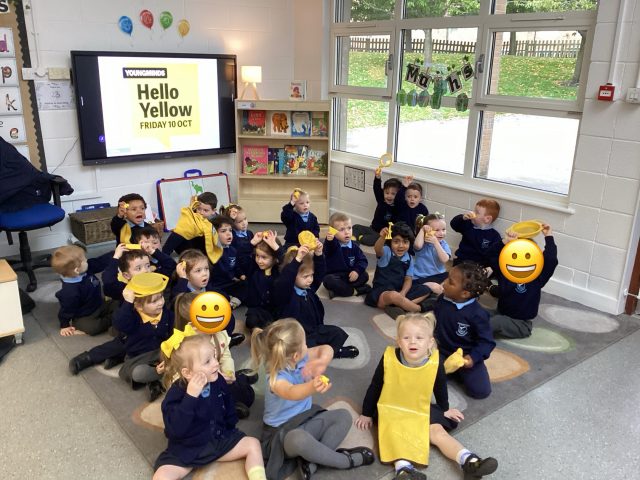
On Friday, we enjoyed recognising Hello Yellow day and what it means. First, we made a link with our current maths learning of colour, so we went on a hunt to find things that are yellow! We enjoyed some lovely relaxation afterwards 🥰❤️
969


Black History Month
In Year 4 we shared a book about Katherine Johnson, they children learnt all about her life and the difficulties she overcame. They created posters celebrating her achievements in Maths and Science.
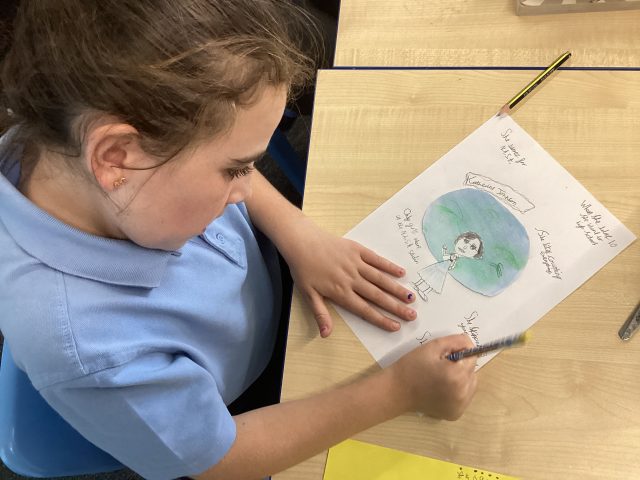

Maths- Recognising numbers to 5
In Reception, we have been exploring and recognising numbers to 5. Today we completed a colour by numbers sheet to help us to recognise the numbers 1, 2, 3, 4 and 5.
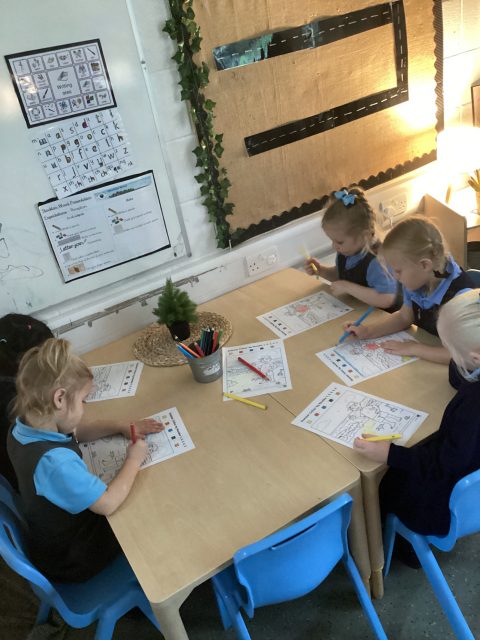
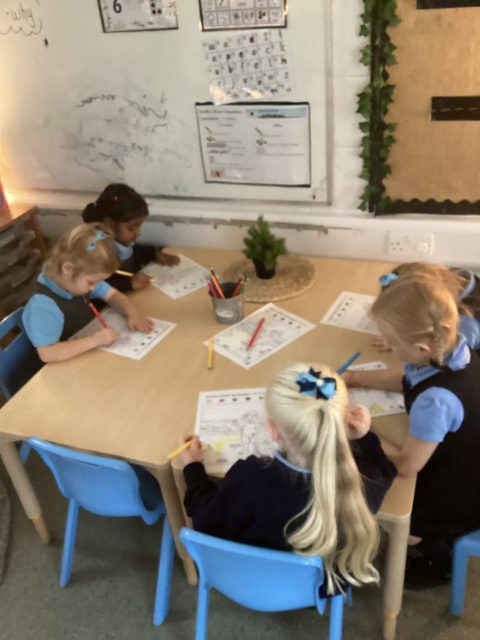
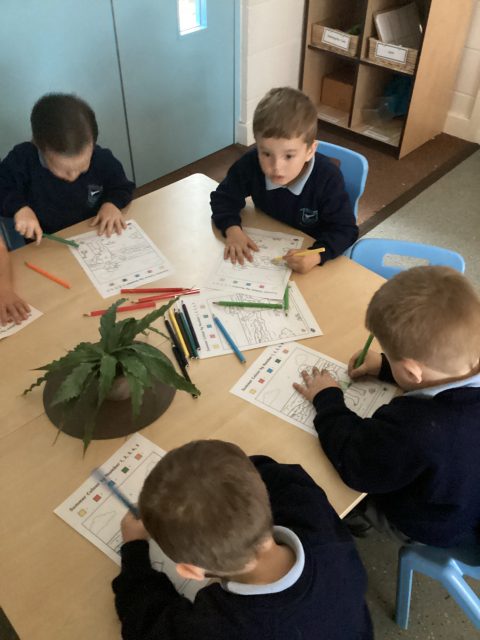
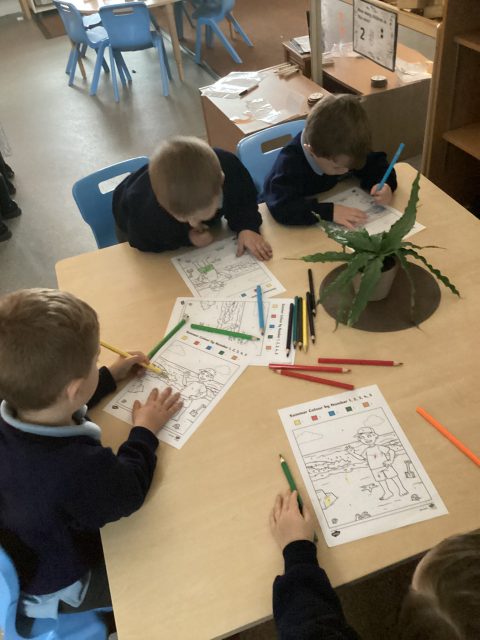
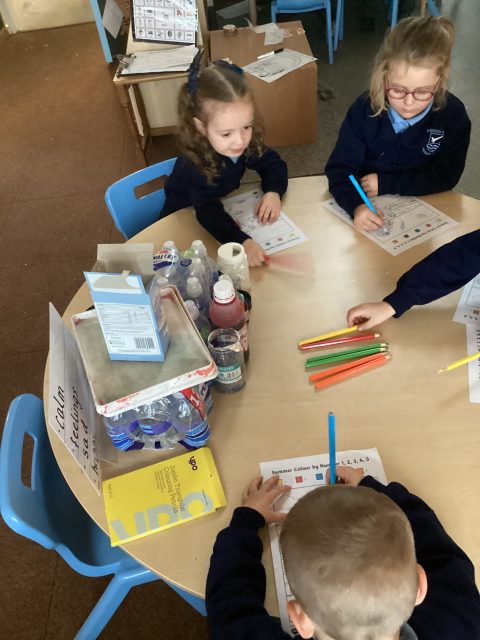
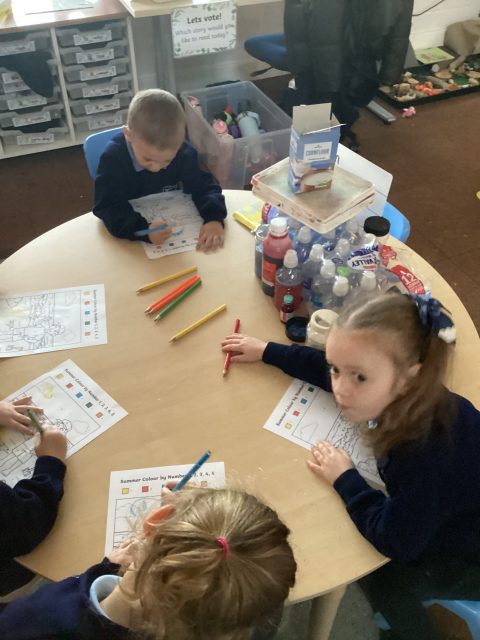
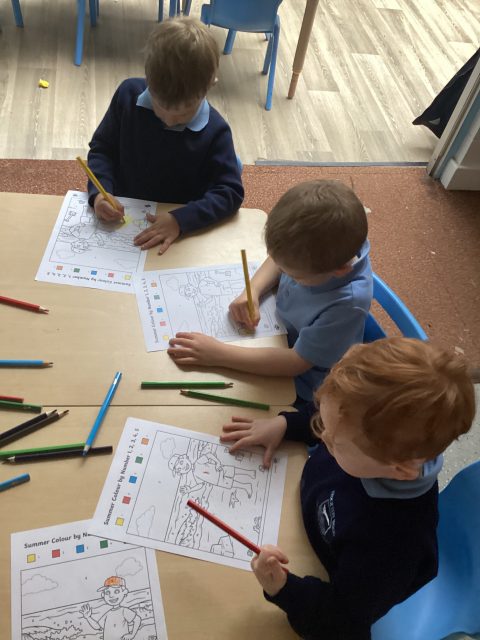
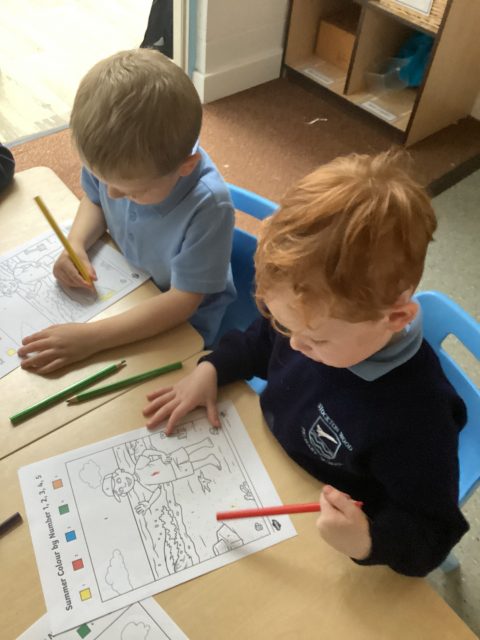
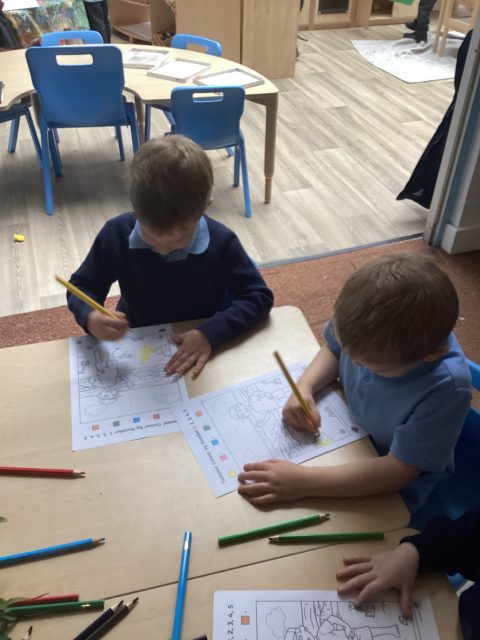

Place Value
We have been using place value charts and counters to help with addition and subtraction.
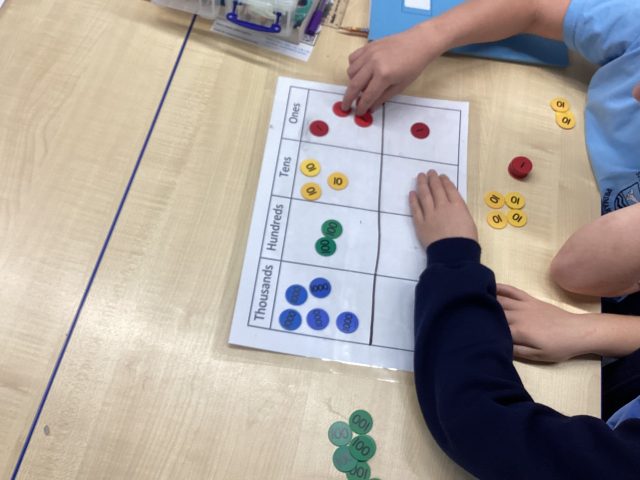
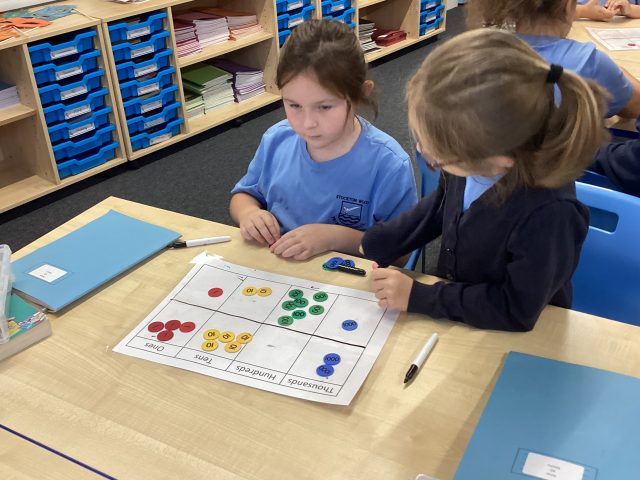

Maths-Patterns
Today Reception have explored patterns. We discussed what a pattern was and how we can continue a pattern ourselves. They have worked hard to recreate and continue patterns!
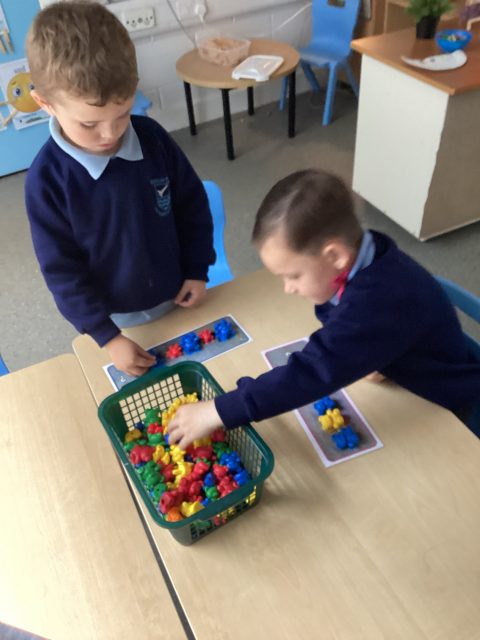
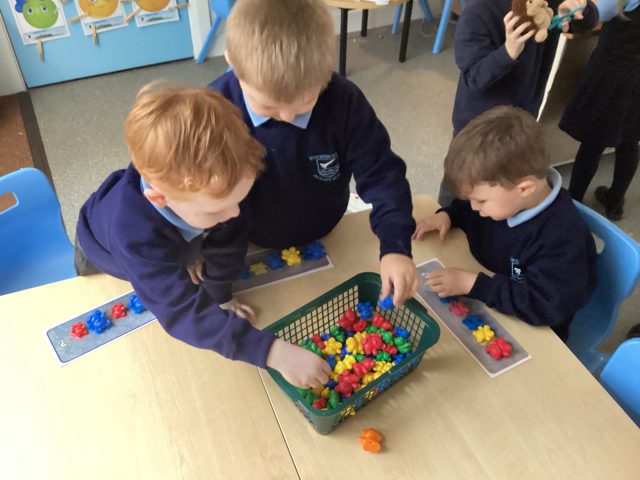
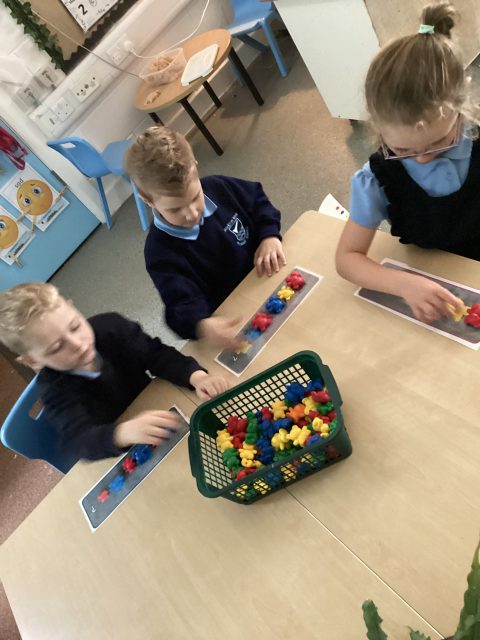
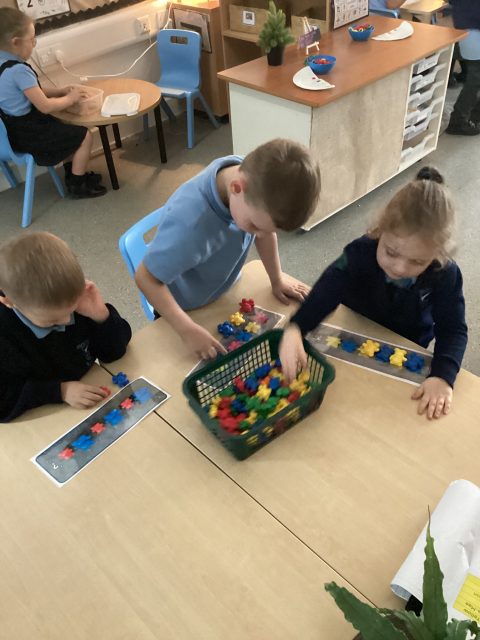
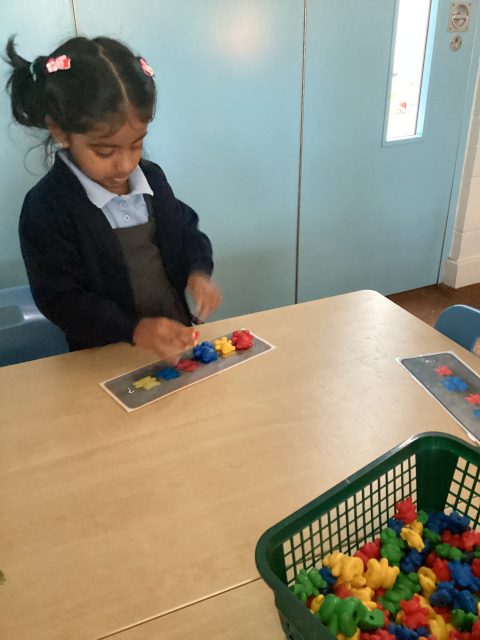
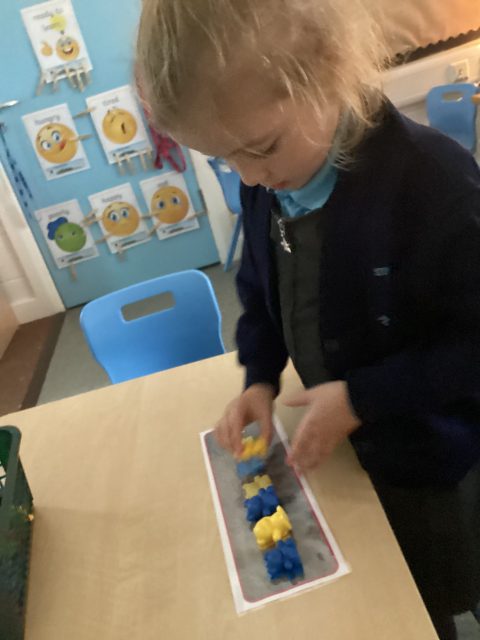
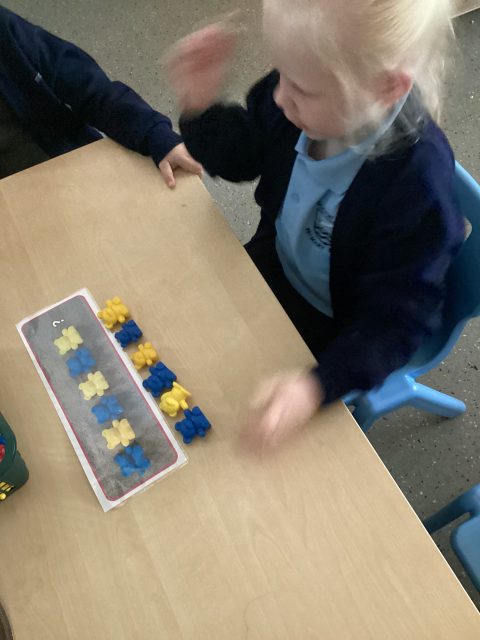
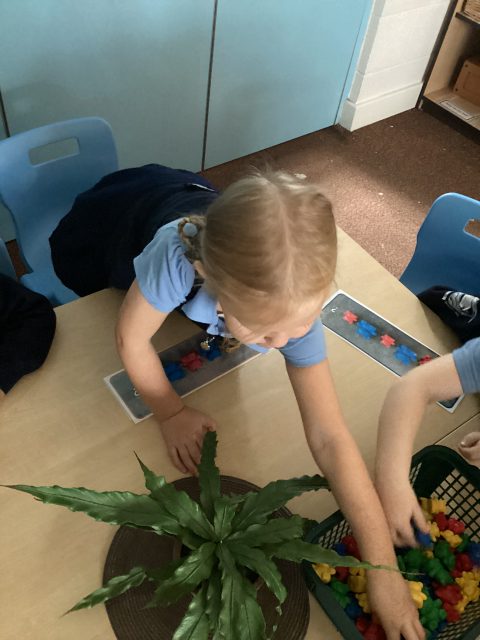
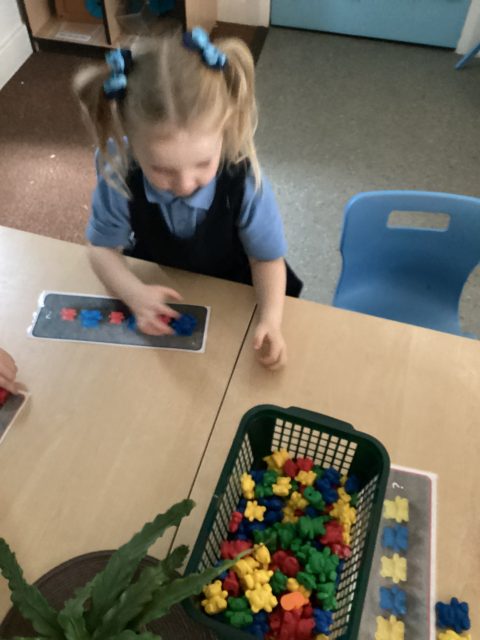


Making cheese scones
We carefully measured and weighed out the ingredients and made our own scone. We had to wait a while for them to cook and cool, before enjoying our scone for our snack!
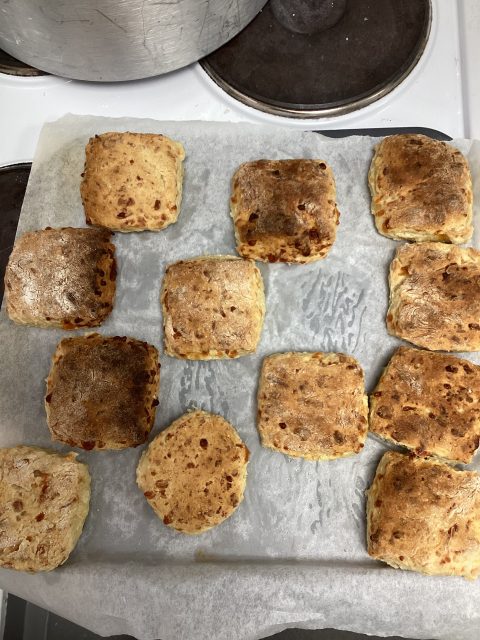
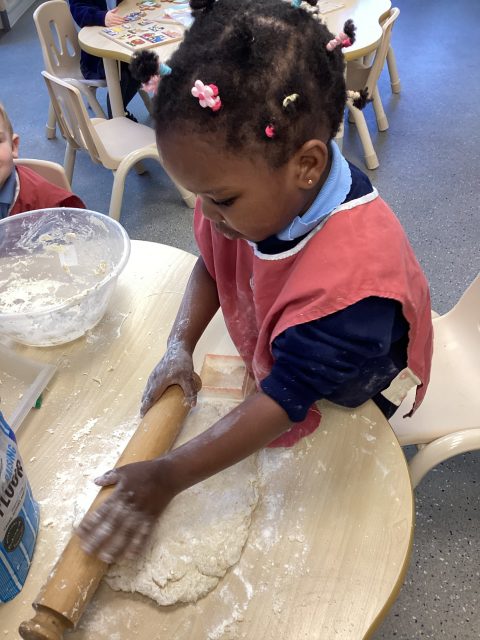
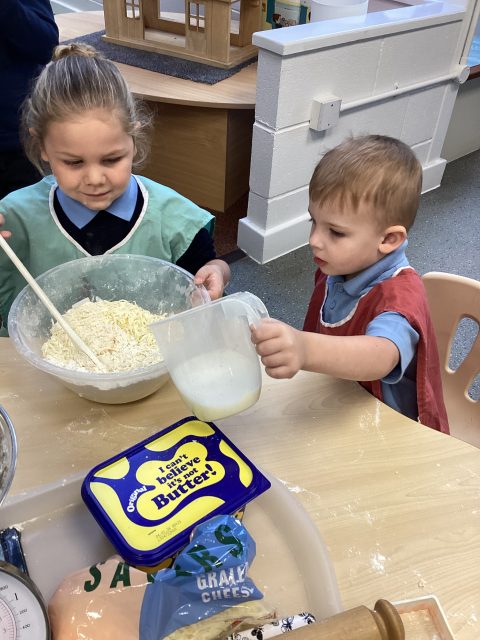
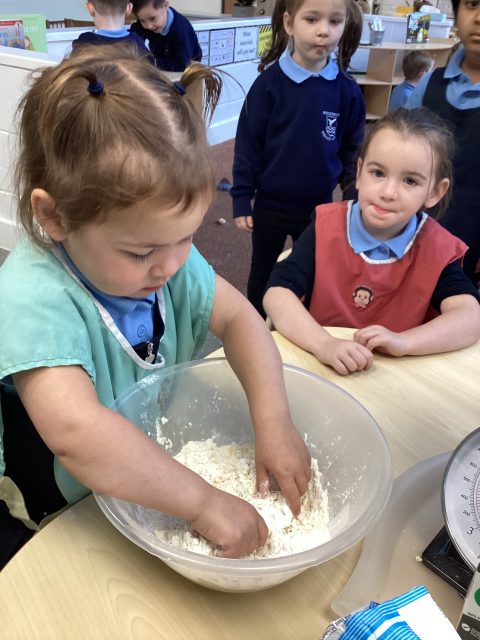
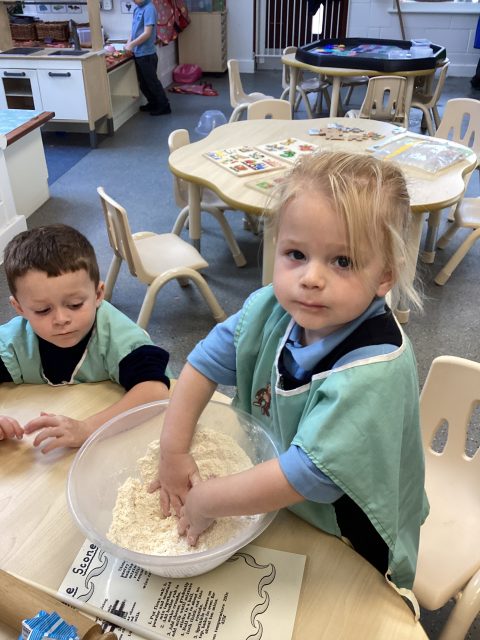

Making our own cereal snack!
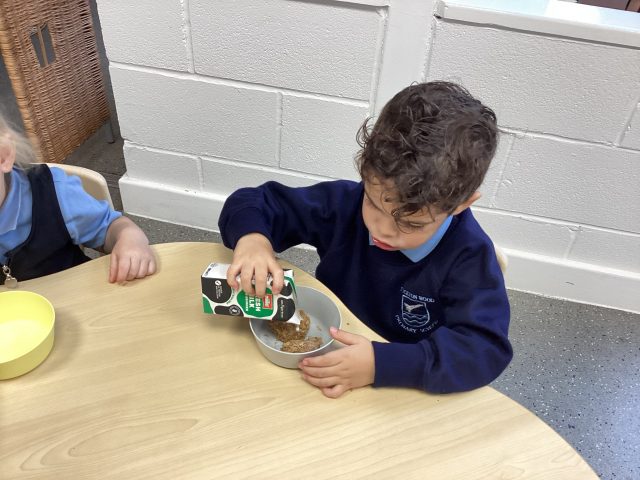
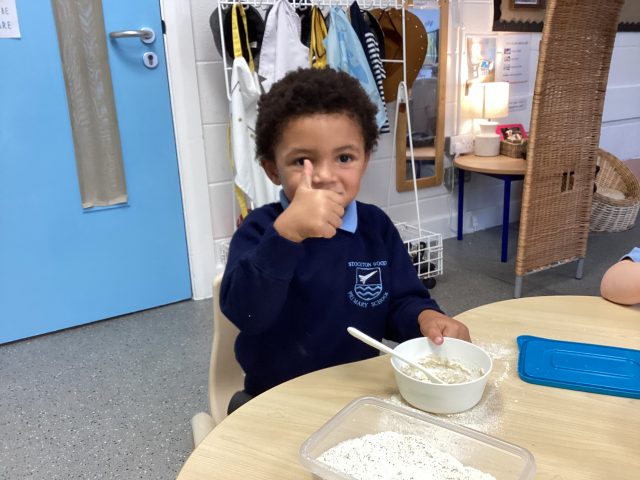
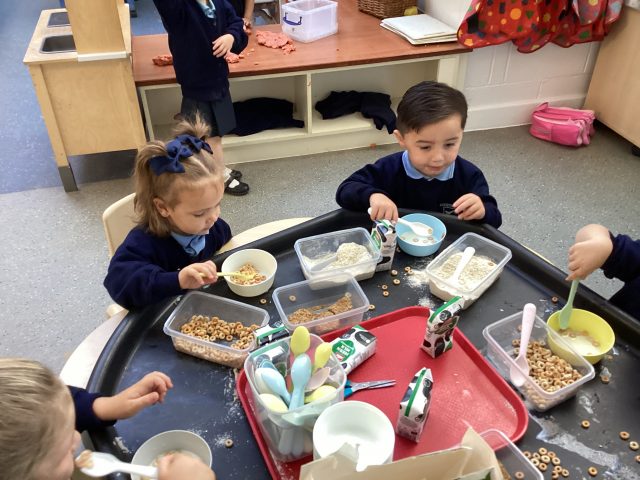
We were so excited when we found out what our activity was…we could make our own cereal snack! We had to choose which cereal we wanted, and then scoop it into our bowl. We talked about what a full bowl might look like, and aimed to get our bowl about half full. We then had to carefully pour our milk…a couple of small spillages later and we were able to enjoy eating our cereal! We even got to wash our own dishes afterwards!
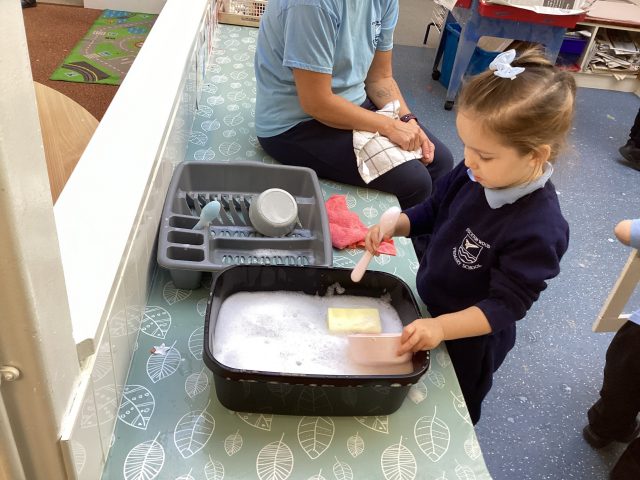
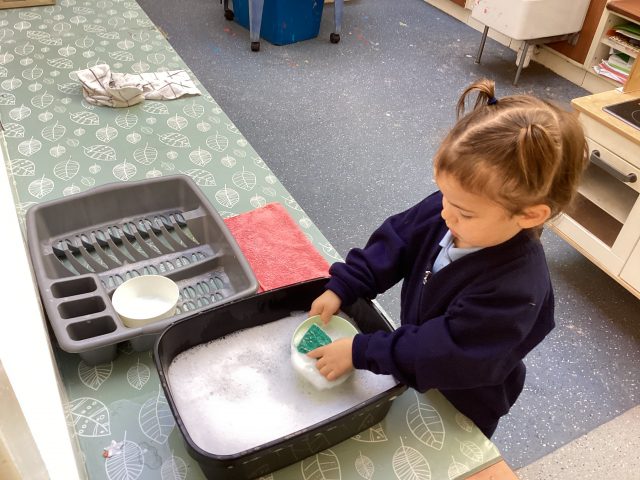
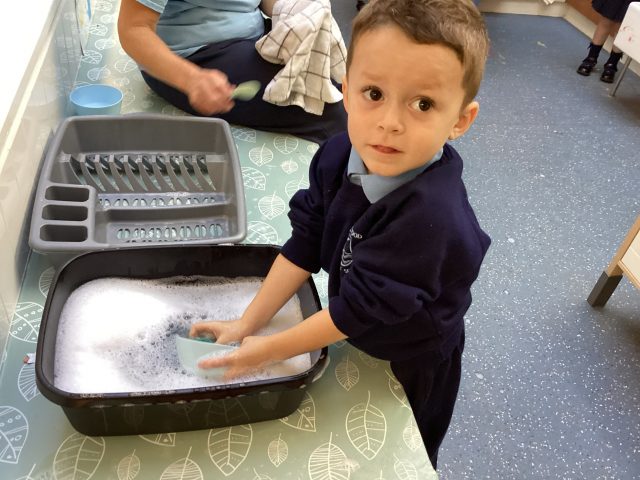

The colour blue
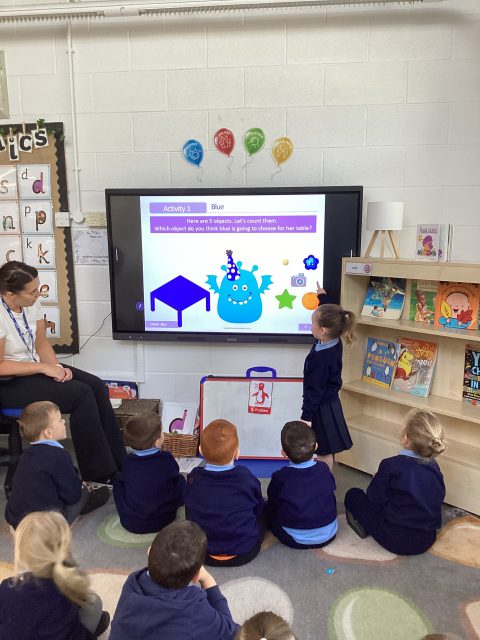
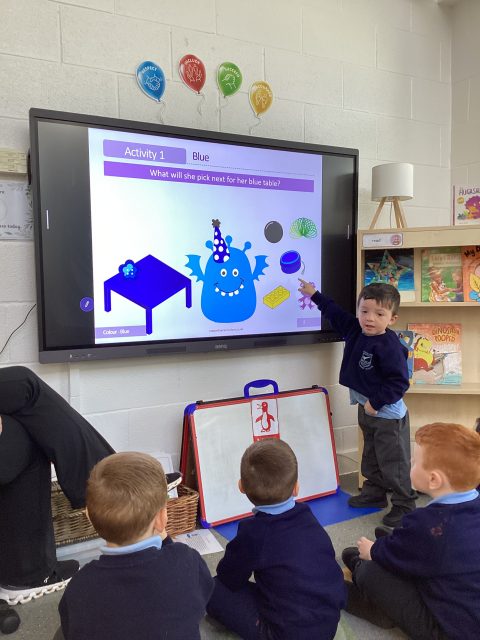
In maths, we have been learning about colours! Each day, we meet a new colour monster, and they give us a challenge! Blue gave us the challenge to find something blue that we are wearing!
1.01K

Maths
In Maths, reception have been learning about sorting and matching. This week reception used the Autumn objects to create their own sorting rule. The children made many different rules including:
-brown and not brown
-round and not round.
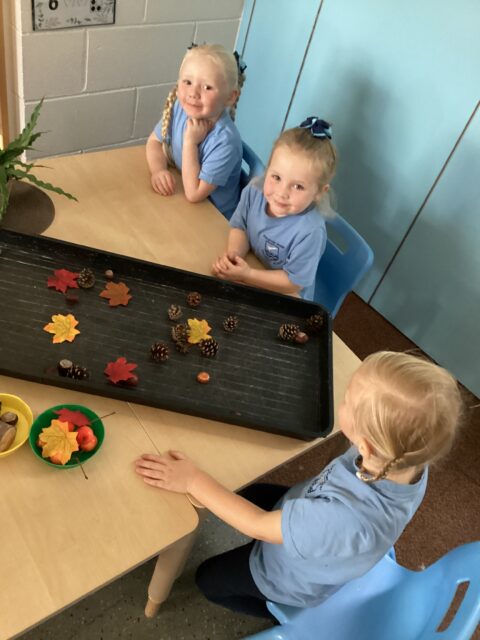
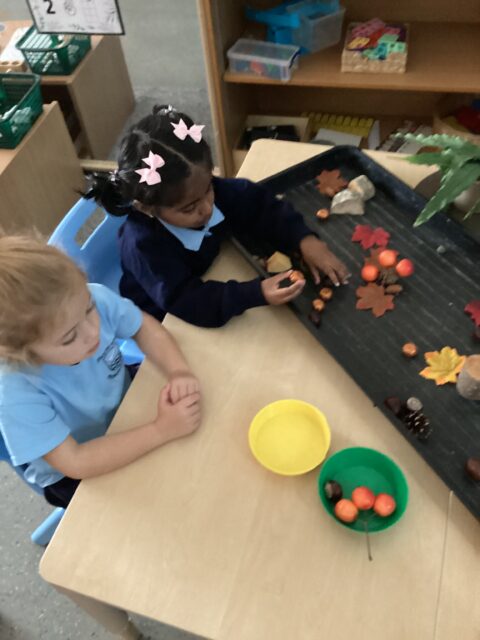
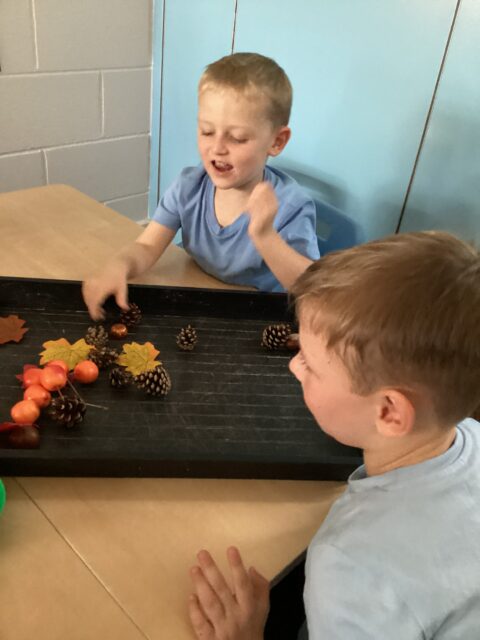
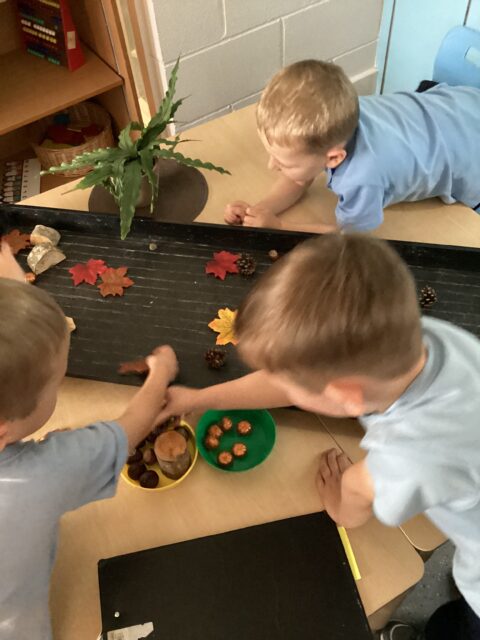
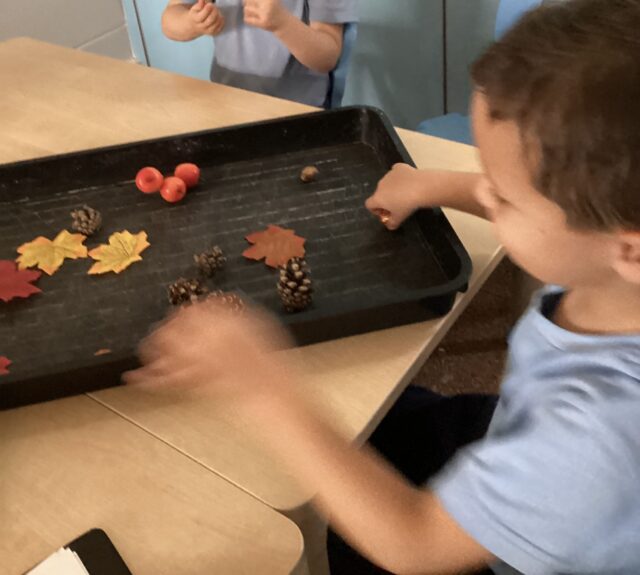
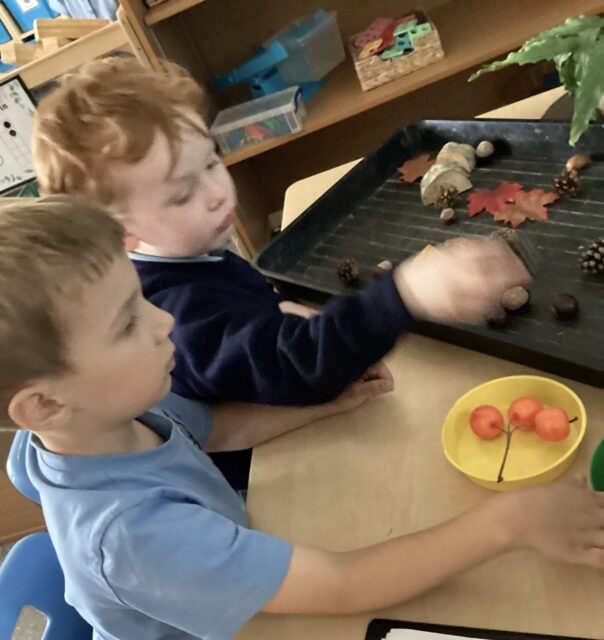
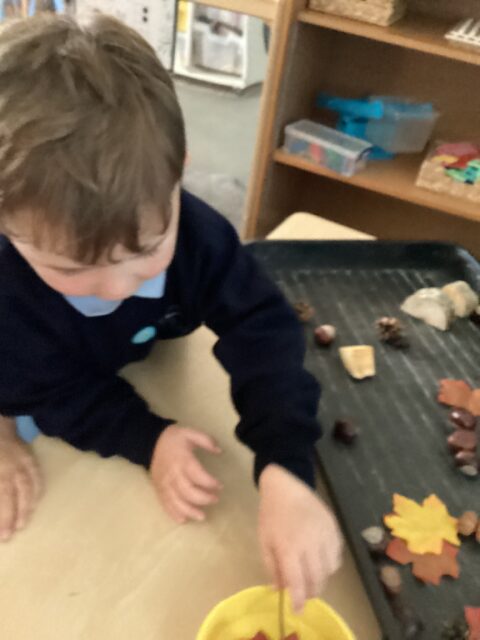
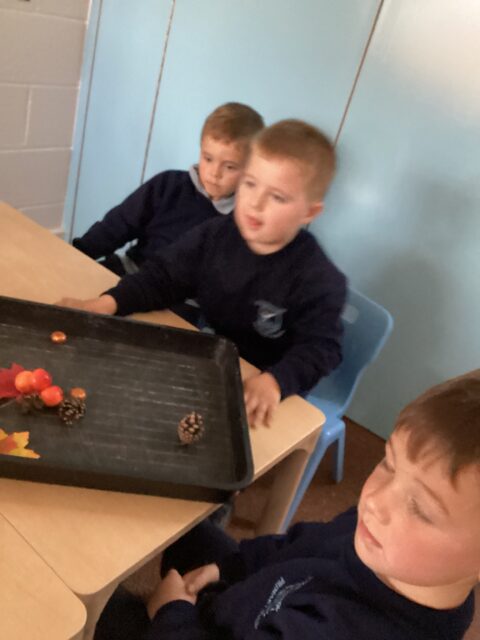

Maths
Today in Maths, 3M used the place value resources to add or subtract 10 and 100 from numbers.
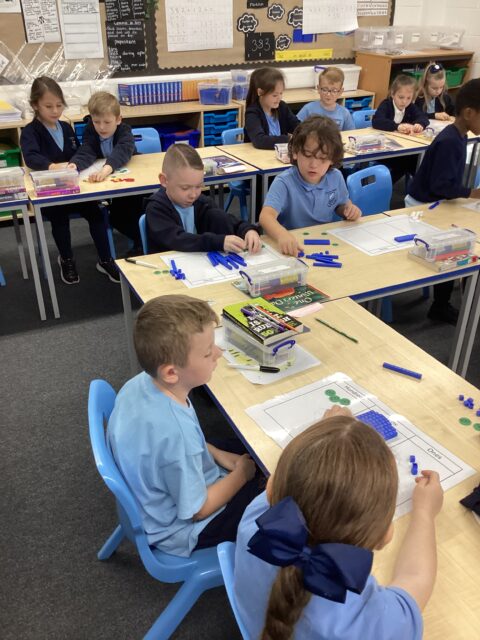
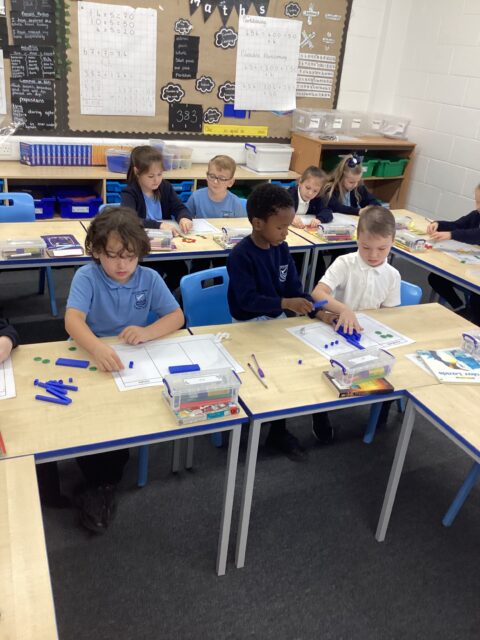
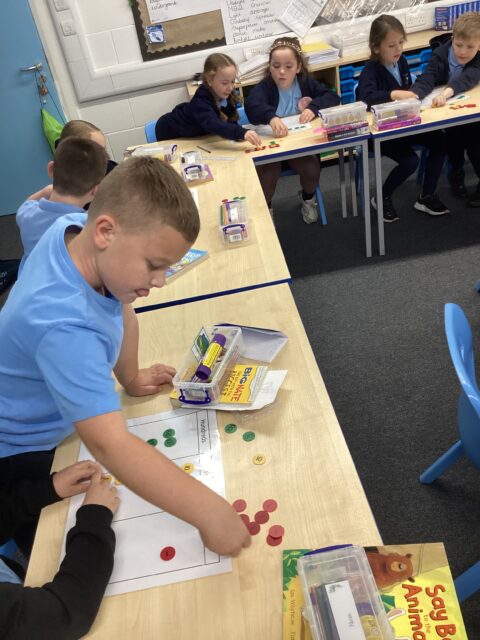

Year 6- Common factors
Year 6 used sorting rings to represent common factors of different numbers.
568
Year 6- building arrays with concrete resources.
Year 6 enjoyed using arrays to find factor pairs of a number.
556
Maths
Reception have explored numbers to 5, they placed the correct amount of cubes onto the numbers!
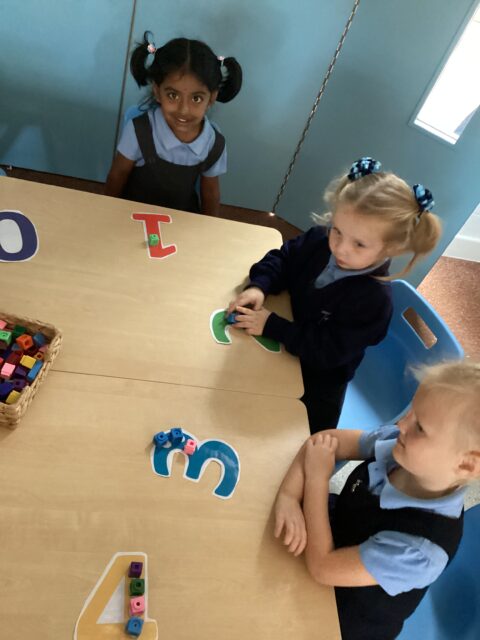
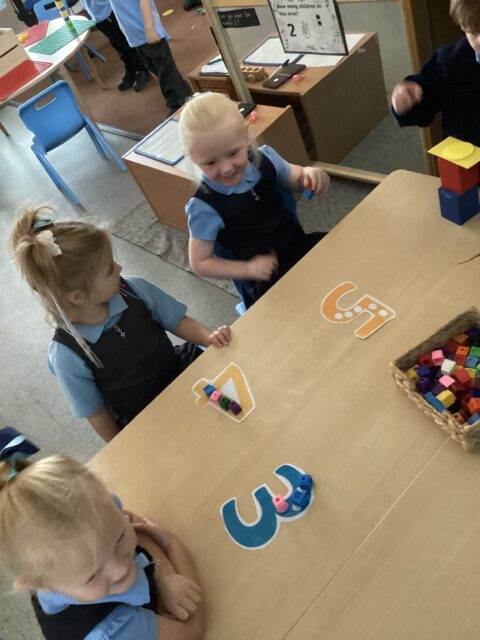
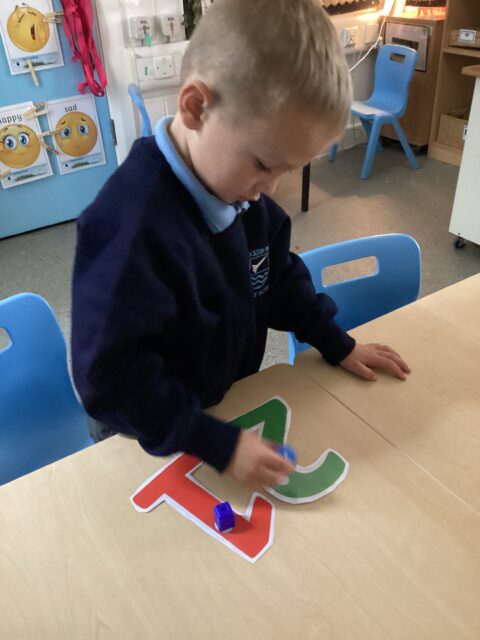
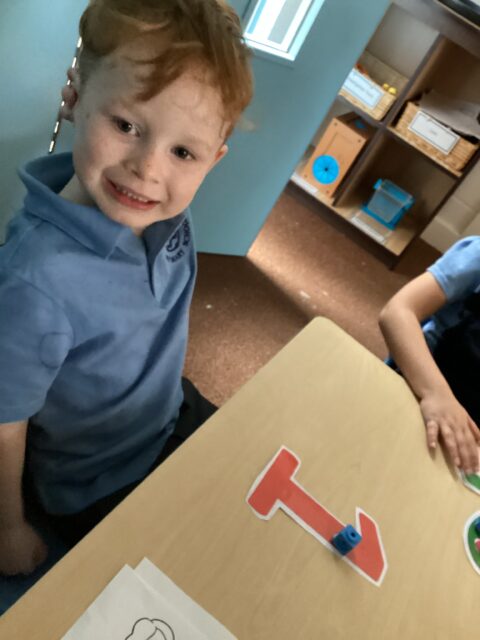
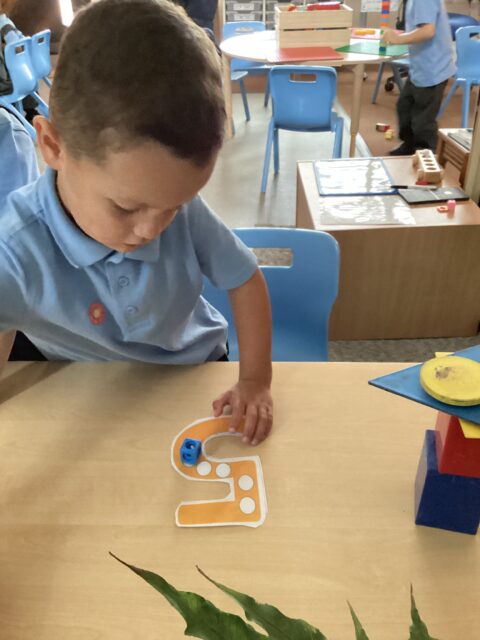
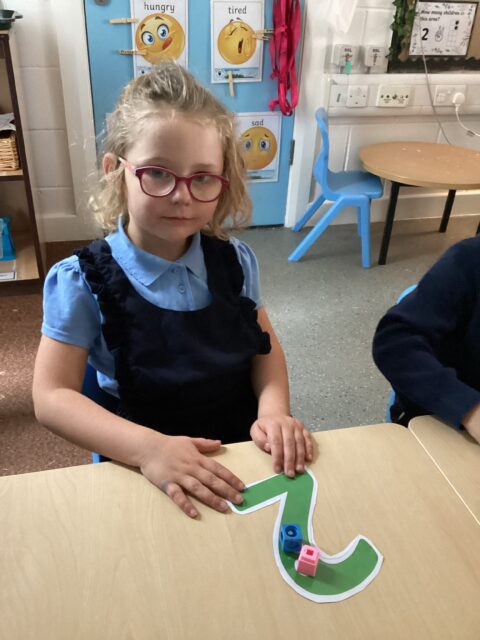

Year One
Year One have enjoyed the return to school and seeing all of their friends again. They have been sharing their summer news, taking turns when playing, practising counting skills and creating self portraits!
1.15K
Pirates!
This week we have been learning about maps. We have have made and described our pirates and pirate maps. We did lots of fun activities !
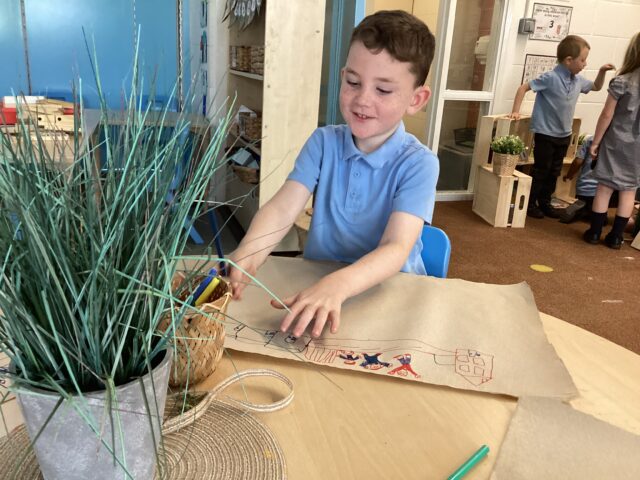
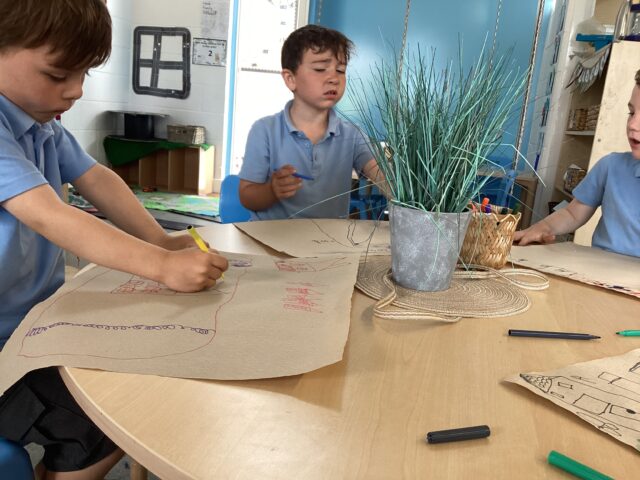
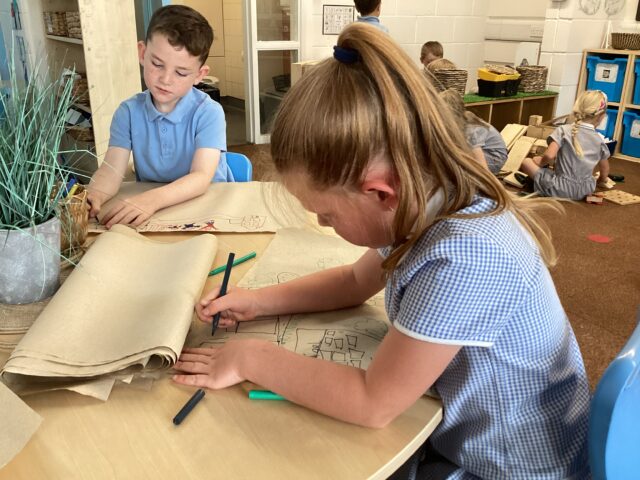
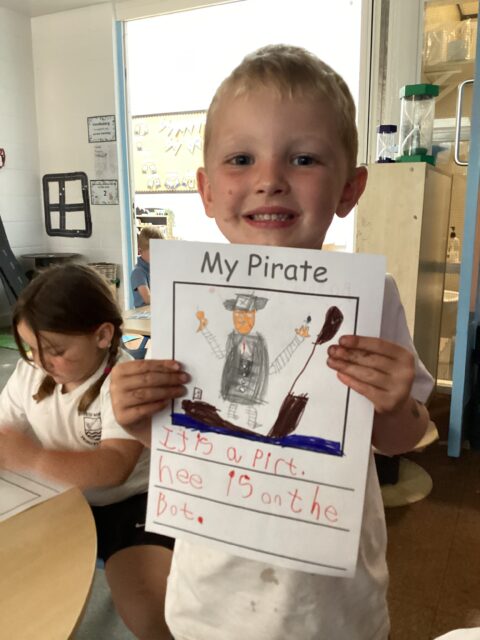
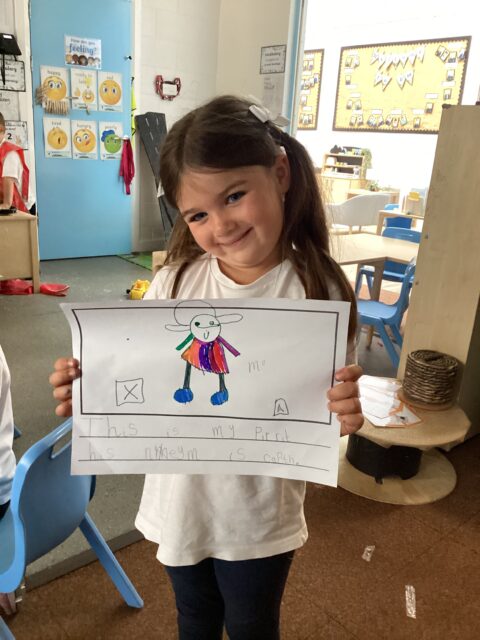
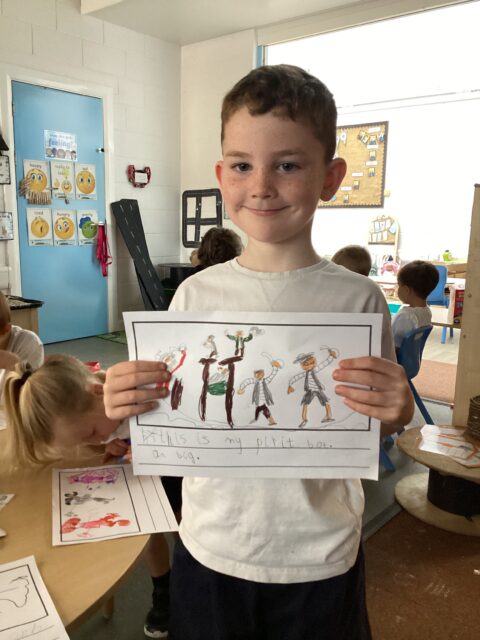
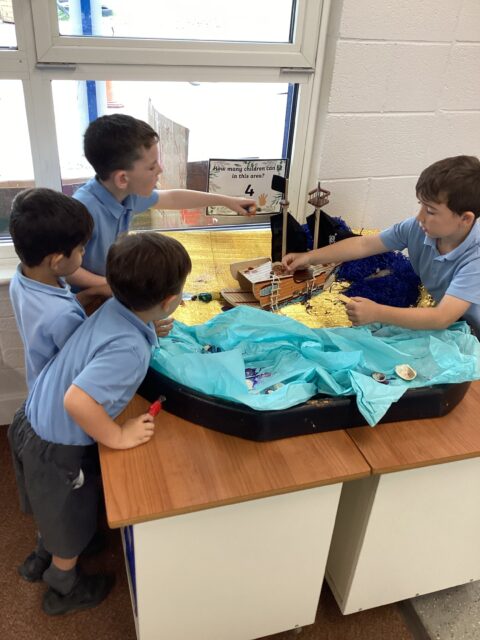
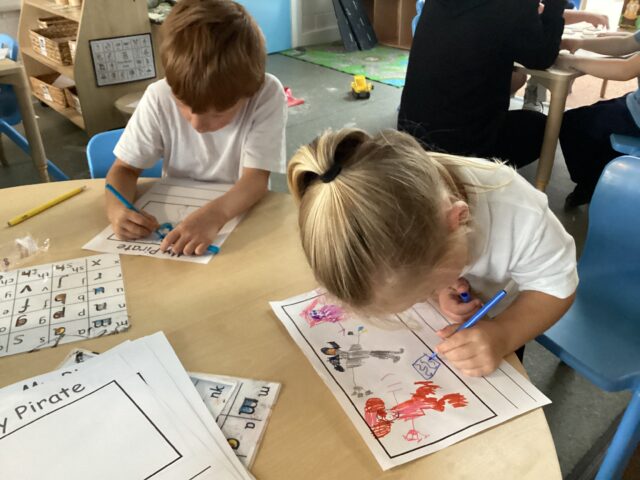
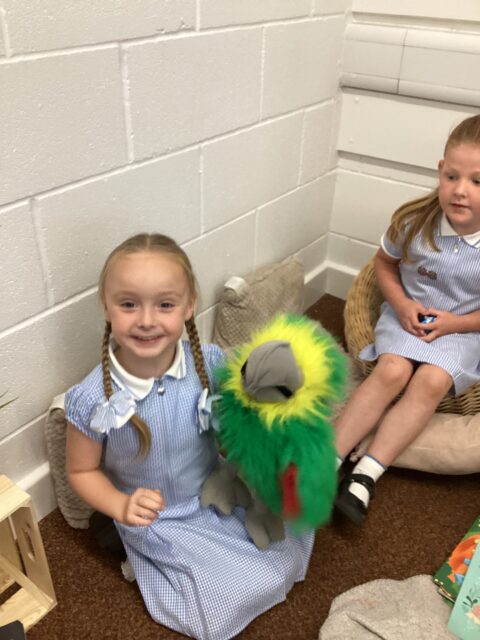

Making lemon cheesecake pie!
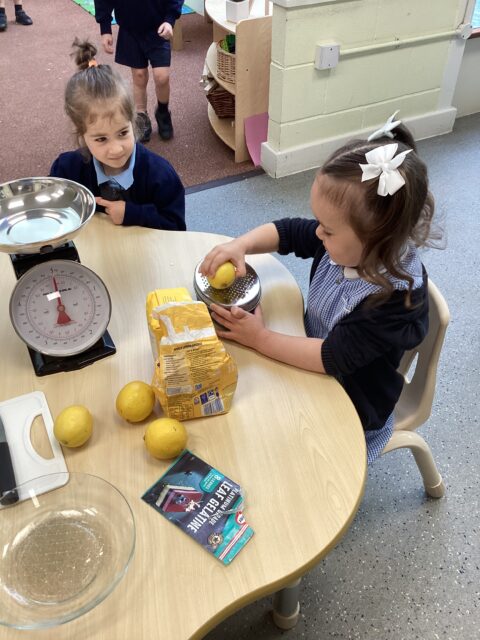
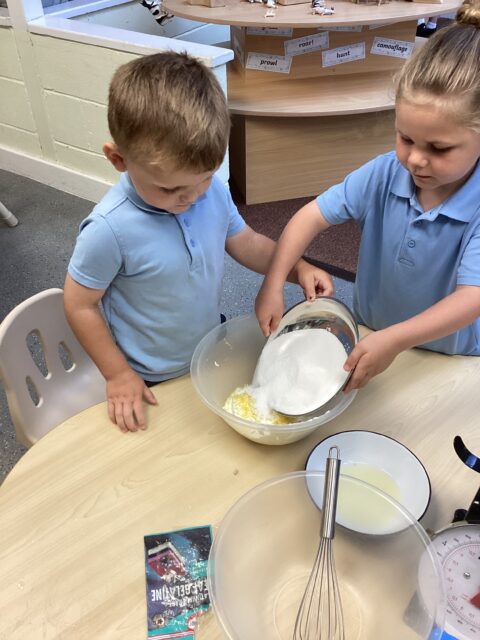
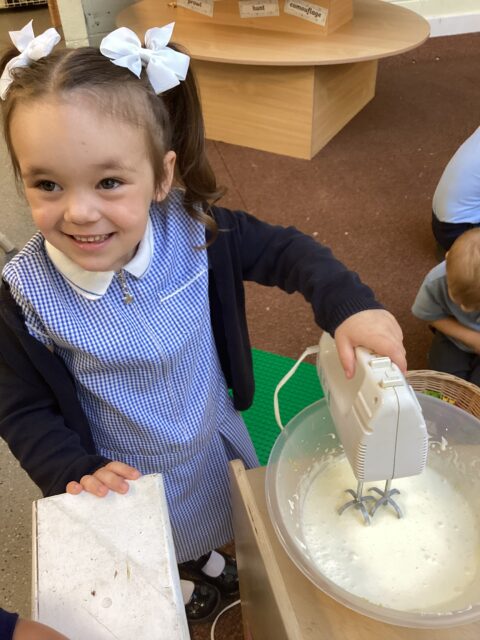
In big cook little cook, we made delicious lemon cheesecake pie! Mrs Sefton made us close our eyes so we could use our sense of smell to guess which fruit we would be using! Nice try Mrs Sefton, you couldn’t trick us! 🍋
1.42K
Y2 Maths
Today Y2 have been improving their calculation strategies by bridging multiples of 10. They have used concrete and pictorial methods to help them.
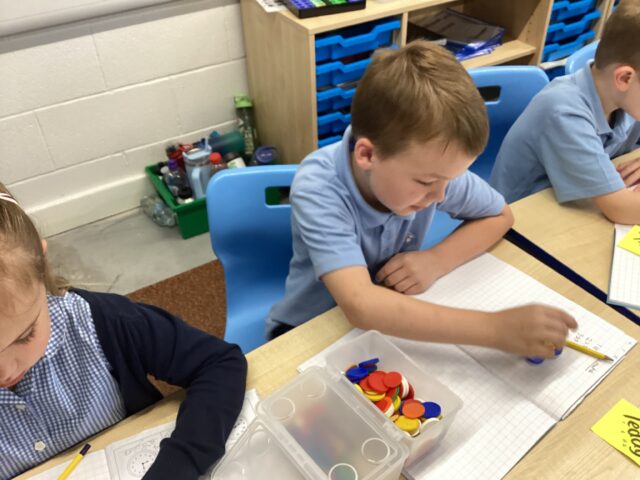
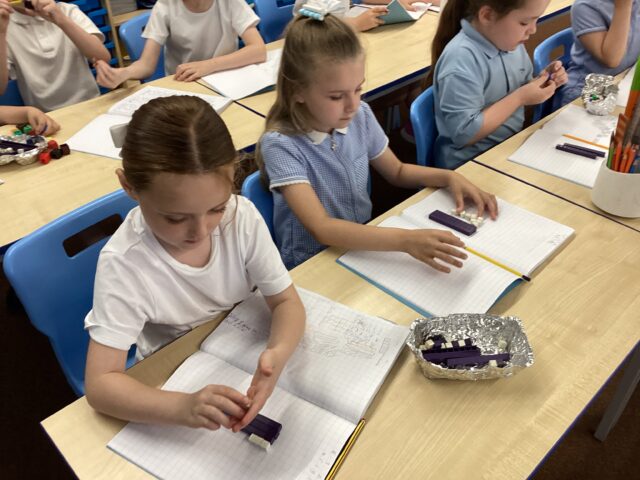
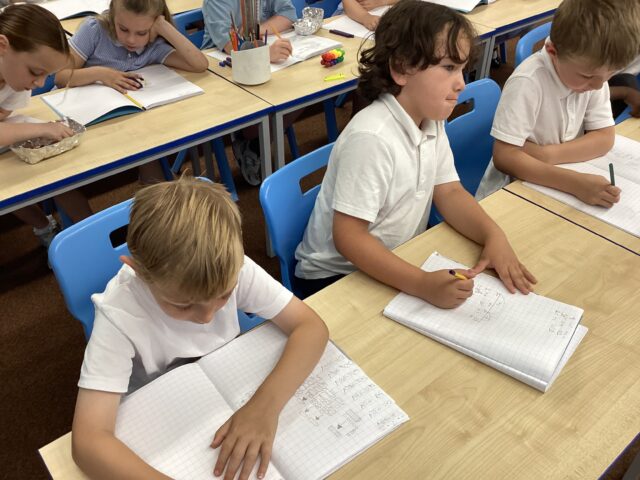

Maths
Year 3 have been love our topic of shape in maths! We used some cubes to make different 3D shapes!






Active Science- Inspiring the Next Generation of Scientists through Sport
A huge thanks to Jade and Josh from Everton in the Community who came into school to work with our Y6 pupils. We have used our scientific and mathematical knowledge to engage with a range of activities to help us understand the impact of diet and exercise on our bodies. We used a range of equipment to take accurate measurements and we discovered how air resistance can affect our running performance. A great day.
1.37K
Understanding positional language
We are learning about positional language. This game is a great way for us practise! We have to look really careful at the pictures and listen to the position of the objects.
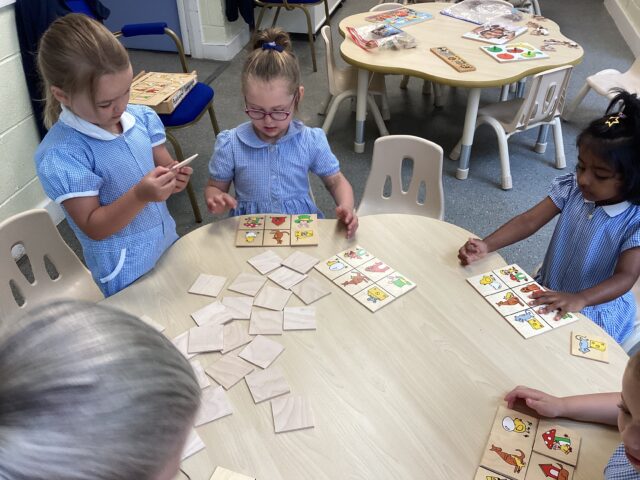
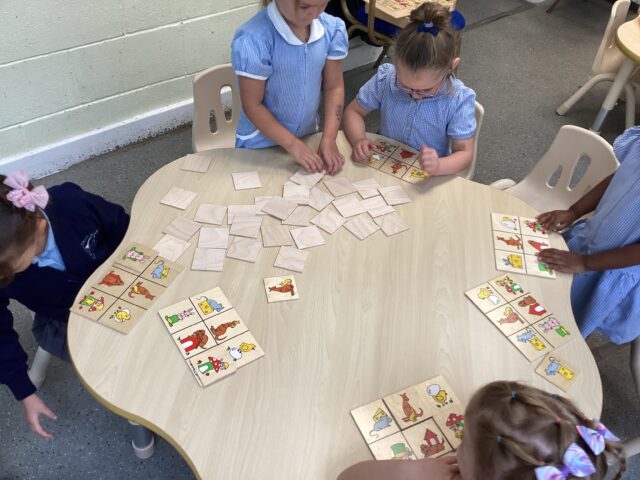

Art Week🎨
This week we are learning all about an artist called Paul Klee. We have learnt he uses shapes when painting his pictures. Today we made our own self portraits, we used an our maths knowledge of shapes to help us! We are true Artists🎨
















Tricky Maths in Year 5
This week we challenged ourselves to use a protractor to measure and draw angles. Those of us that were confident helped others.




Year One – Maths
Wonderful counting in tens and ones today using a range of practical resources! Good use of 100 squares to record the final answers.




Year 6 Angles
Year 6 enjoyed applying their knowledge of shape to solve different angles created on the classroom tables. The children used protractors and specific rules to ensure all the angles were correct and precise.
813
Maths- Class 6MR
We constructed 3D shapes from nets which helped us to develop our spatial reasoning and problem-solving skills. A fun and engaging way to explore 3D shapes, their properties and the relationships between 2D and 3D forms.
821
Maths games
One of 5M’s favourite maths games is the ‘Place value’ game!
We particularly like it when we try to beat the teacher 🤩





Year One – Big Friday Quiz
Wonderful retrieval of prior learning in our Big Friday Quiz today. Well done everyone! Our winning team scored full marks!


Maths, shapes 🟥🔵🔺
In maths we have been learning all about 2D and 3D shapes. Today we have been looking at what 2D shapes we can see in the 3D shapes. We used our printing skills to help us do this. 🎨






3D Shapes
This week we have been exploring 3D shapes and their properties. We have used paint to print the faces of the 3D shapes.














Year 6- Arithmetic treasure hunt
Year 6 enjoyed taking Maths out of the classroom to revise key arithmetic skills learnt this year!
894
Big cook, little cook
Mrs Sefton made us smile today…we walked into Nursery and spotted the scales and baking ingredients and we knew straight away it was time for big cook, little cook! We weighed all the ingredients, and carefully mixed them together to make lemon tarts! We enjoyed eating them at snack time.







Watching the crane!


We were so excited when we spotted the crane from our garden! The children used words to describe the size of the crane (huge, gigantic, enormous) and we took turns in talking about what we thought the crane might be doing.
1.74K
Maths Treasure Hunt Y6
We worked with a partner to solve as many of the arithmetic questions we could find! A fun way to revise our mathematical strategies!
1.20K

Making Equal Groups





As a class we grouped 30 counters into equal groups. We could do this in groups of 2,3,5 and 10.
925
Making arrays
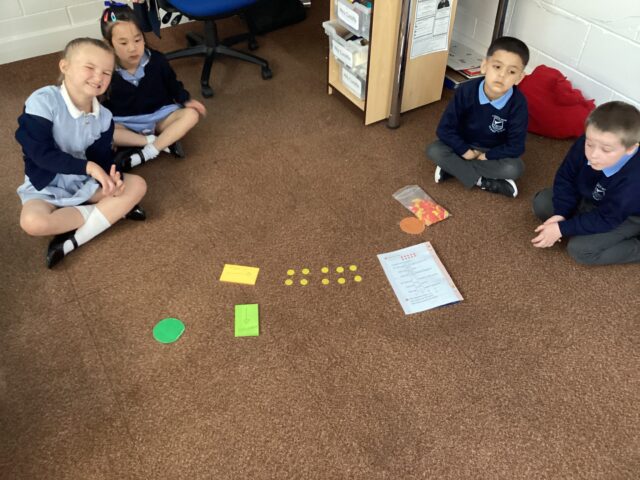
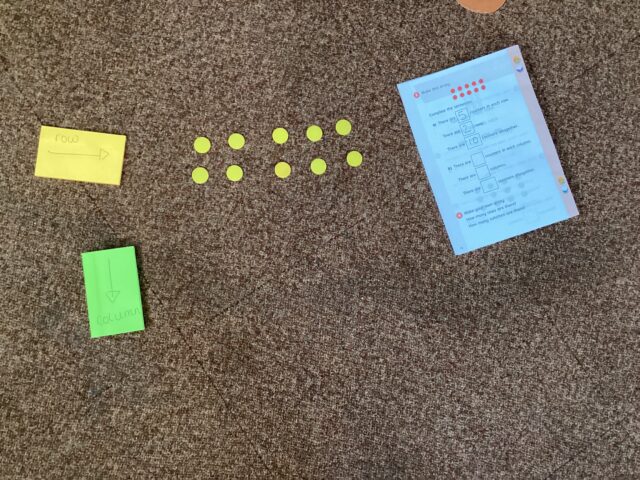
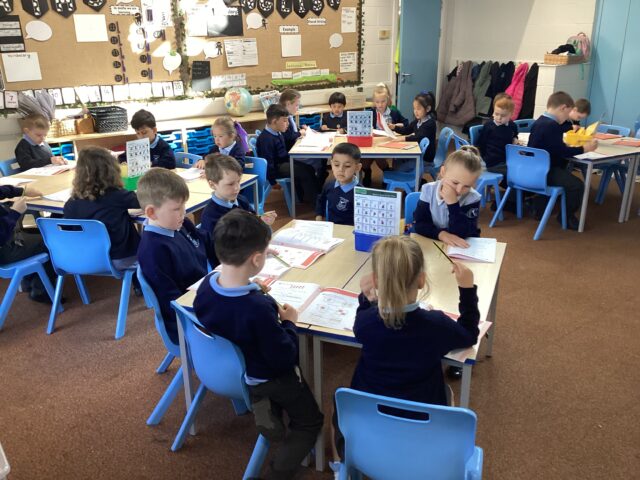
Today we having been looking at arrays in maths. We have looked at columns, rows and completed the stem sentences.
956
Year One – Maths
Great adding equal groups in Maths today. Good partner work, use of counters and hundred squares to solve each question.
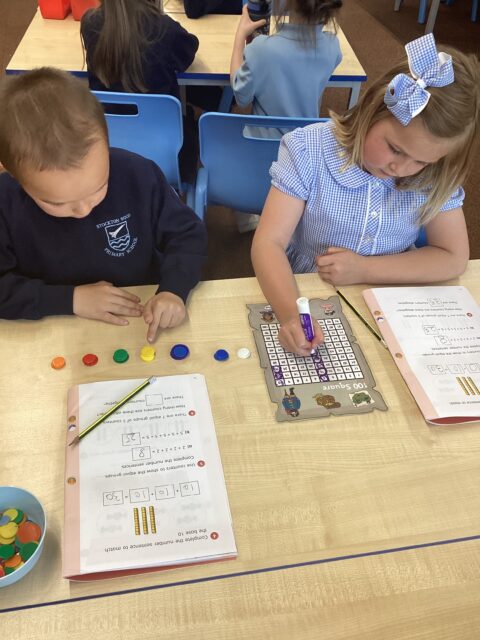

Have a fun Easter Break!
5M had a lovely afternoon after working so hard all morning 🥳🤩



Maths – tall and short


We have been learning about tall, short, taller and shorter. We compared beanstalks, and talked about which was the tallest and which was the shortest.
1.96K
Maths- Odd and Even
Today in reception we have explored odd and even numbers. We made our very own odd and even monsters 👹
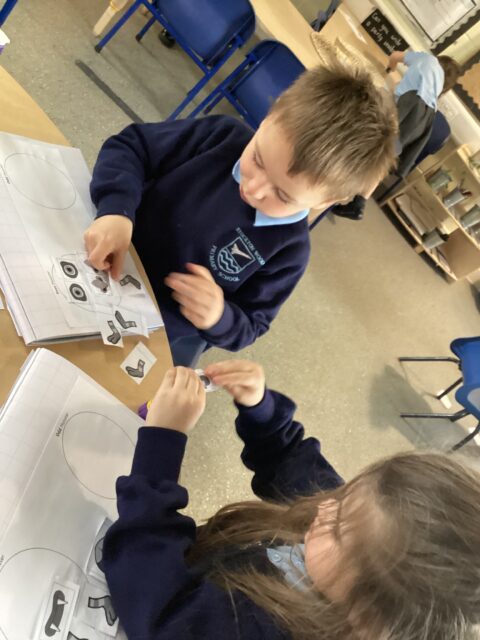

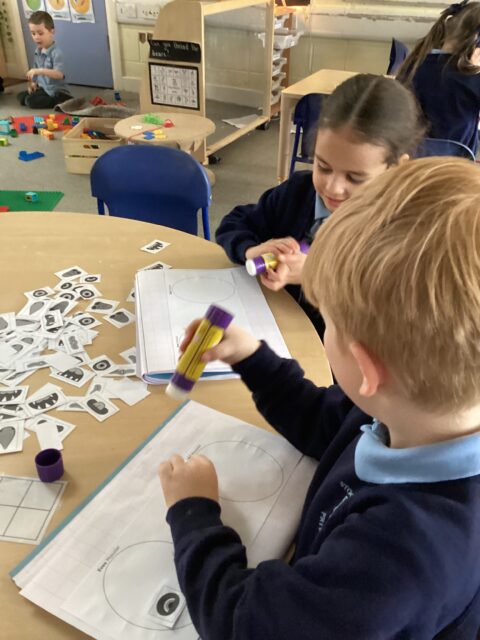






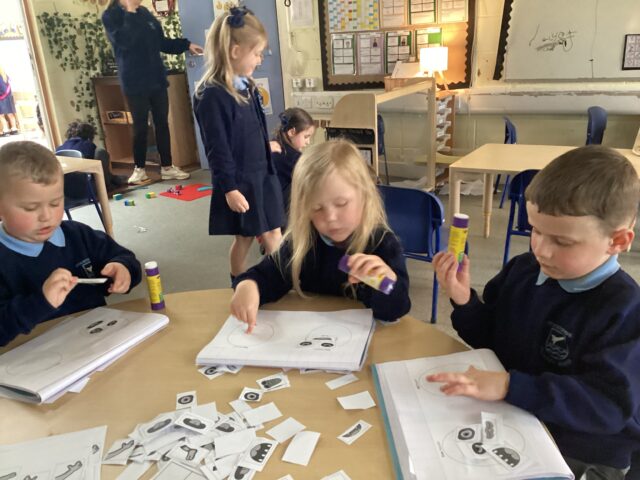


Maths- capacity
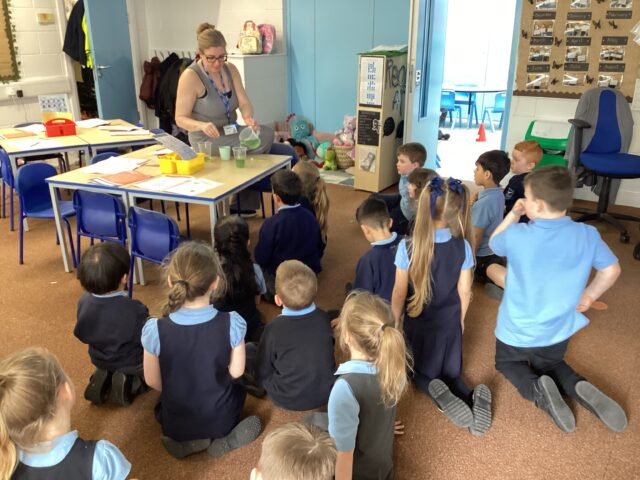
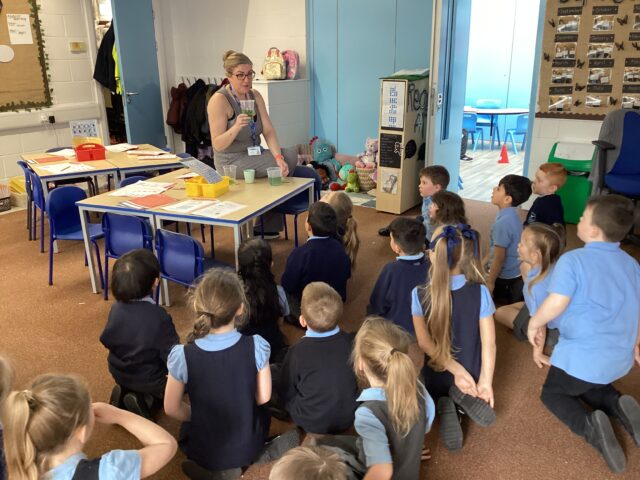
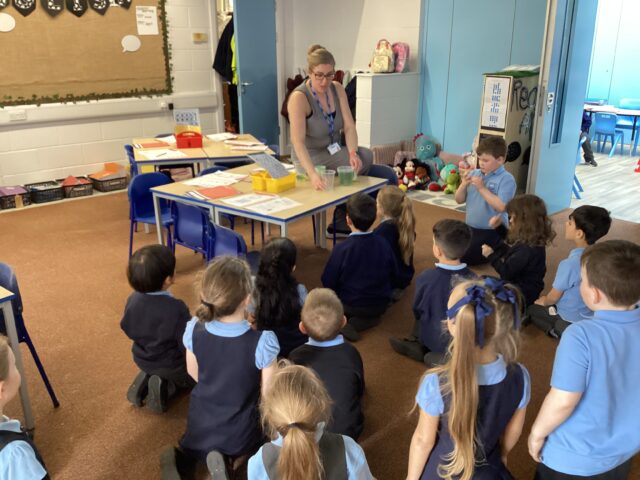
we have been exploring the language:
full, nearly full, nearly empty and empty.
1.06K
Year 5 Maths CPA
Even when not in our classroom, we will always find time to use concrete, pictorial and abstract resources to support our maths learning.
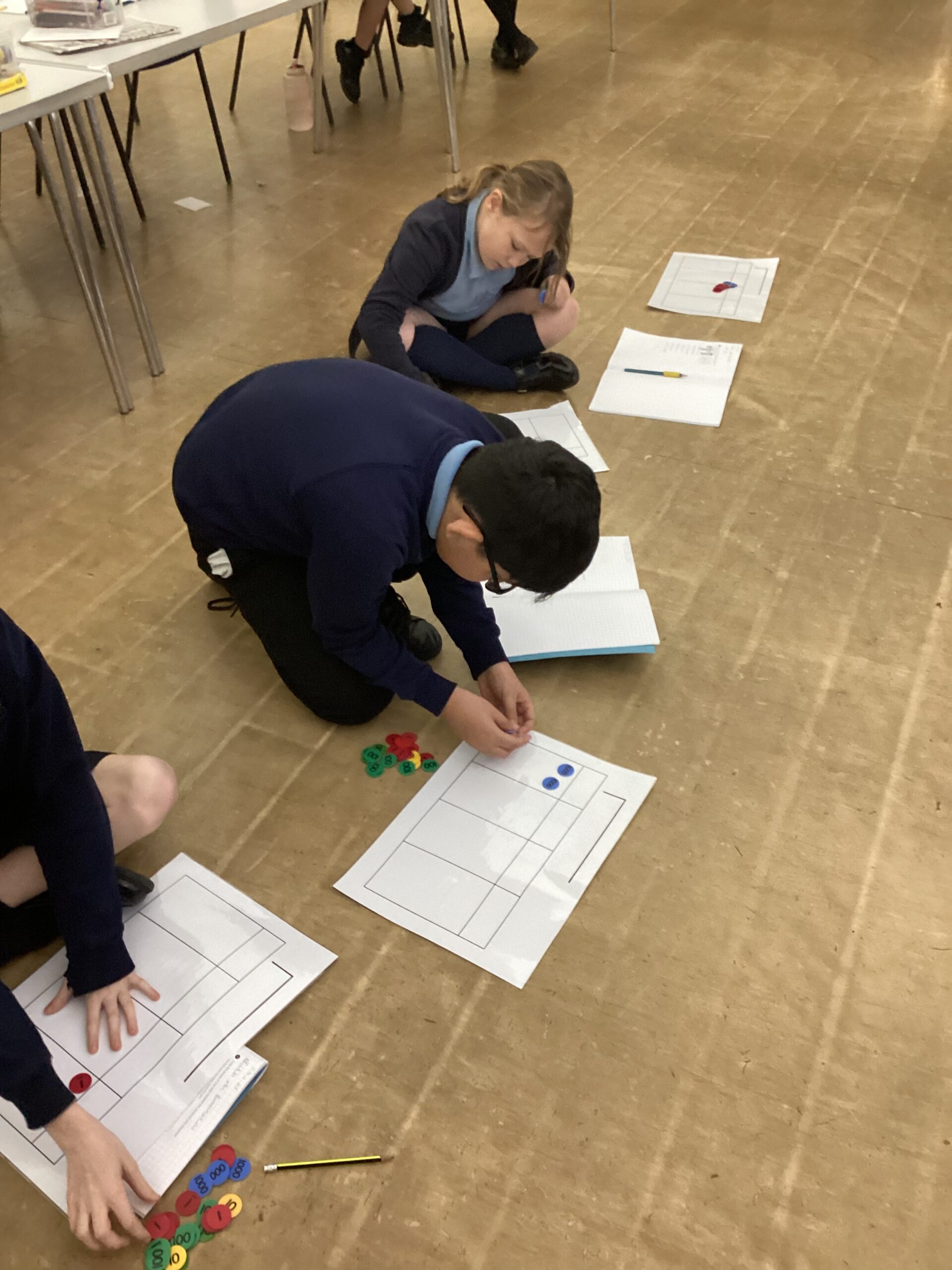
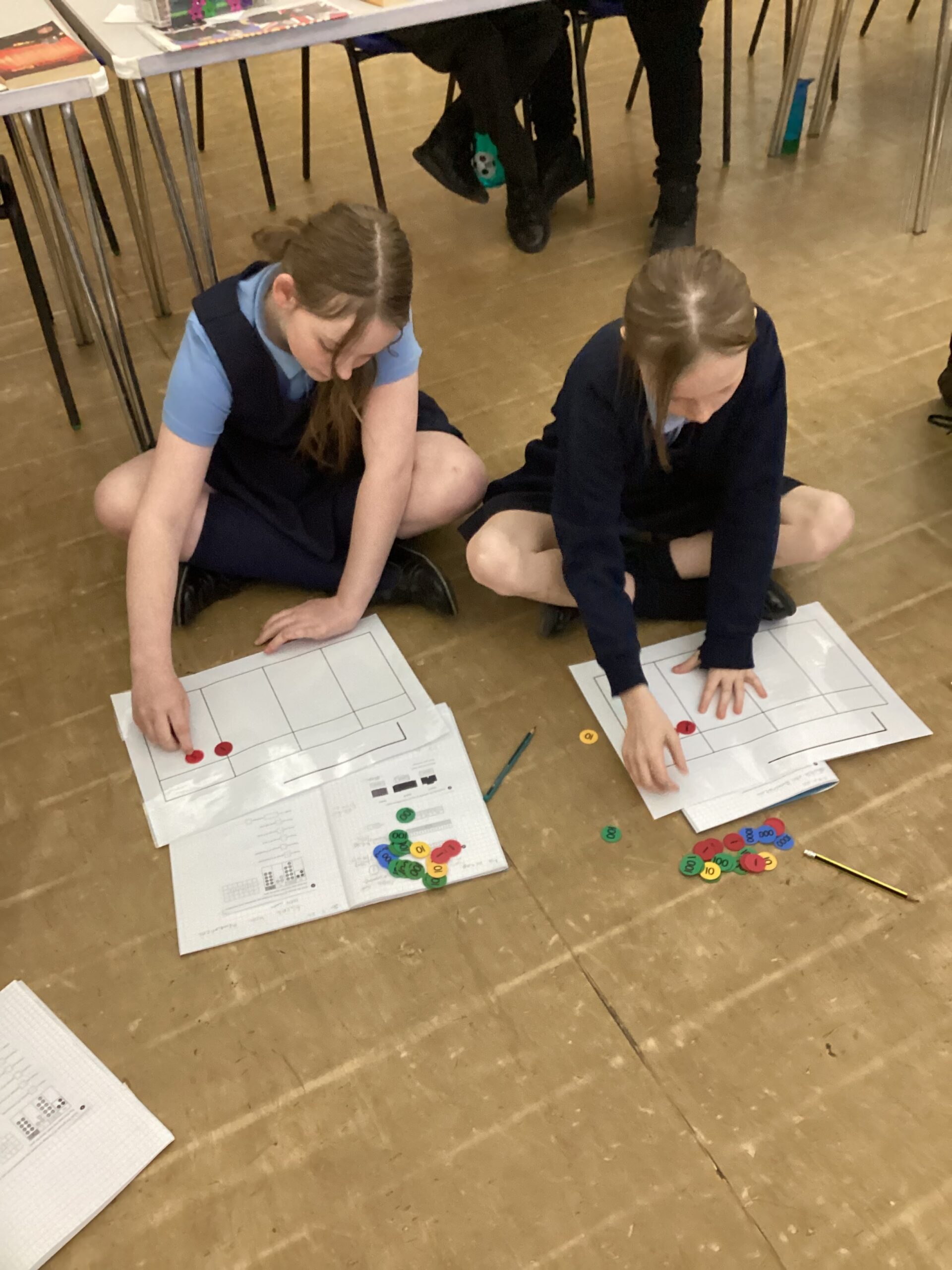

Year 2 Maths
This week we looked at capacity, here we are comparing the capacity of different containers.
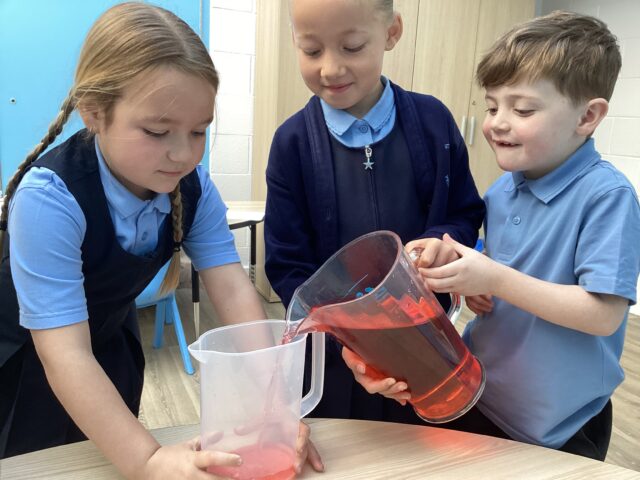

Year One – Mathematics
Super skills displayed whilst exploring the mass of objects. Good use of ‘lighter and heavier’ vocabulary when comparing the mass of classroom objects.




5M LifeSavers Big Question 4: How does our money help others?
We had some really interesting conversations about how your money can go a long way and can help a lot of people, when we choose to spend or donate it!
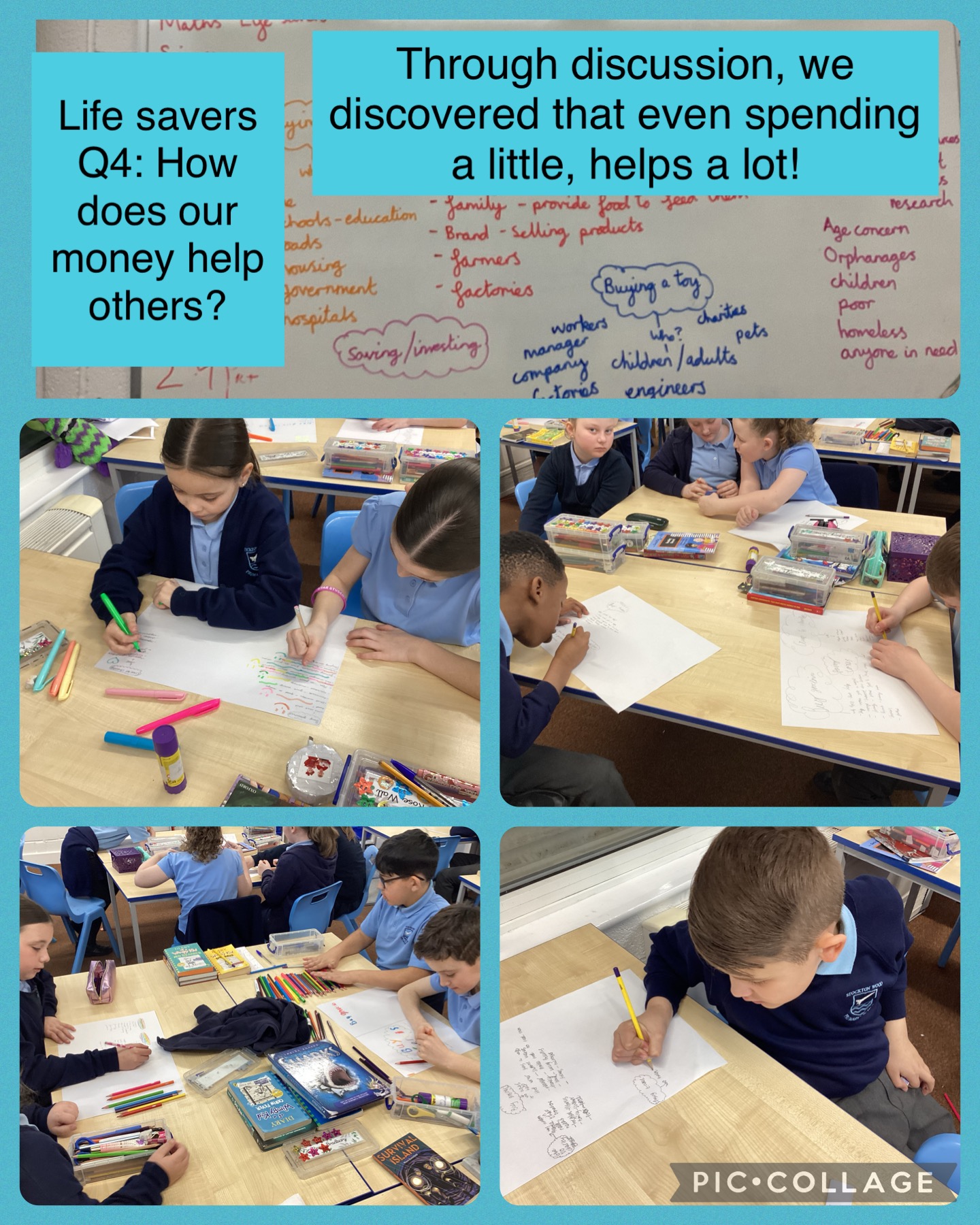

Year 6- Drawing shapes accurately
6B worked hard using a ruler and a protractor to measure and draw both angles and lengths accurately.
1.09K


Maths
We are looking at height and length using the language, tall, taller, short, shorter.
we organised ourselves into height order.
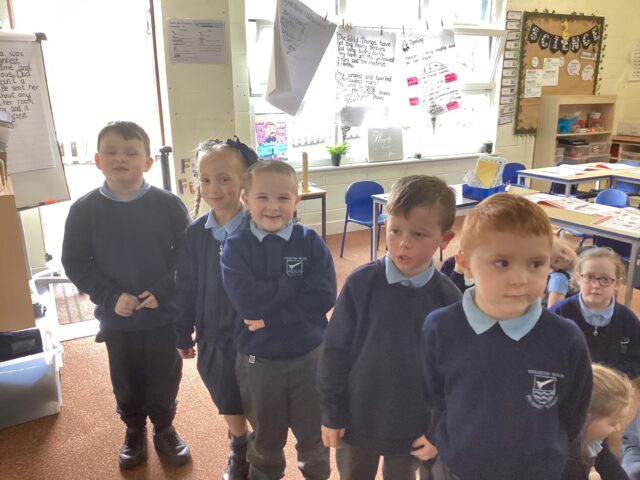

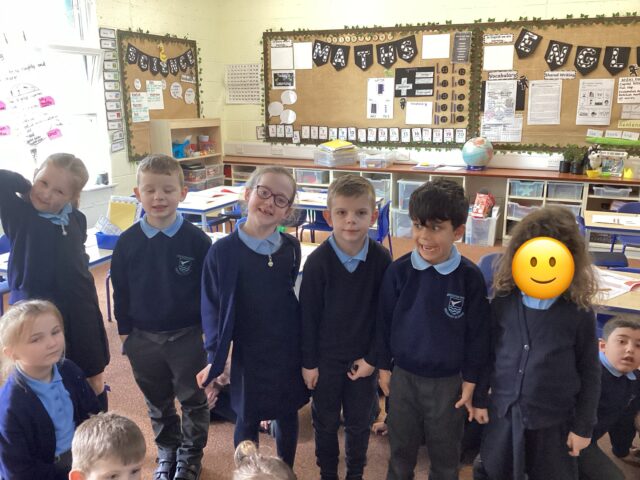
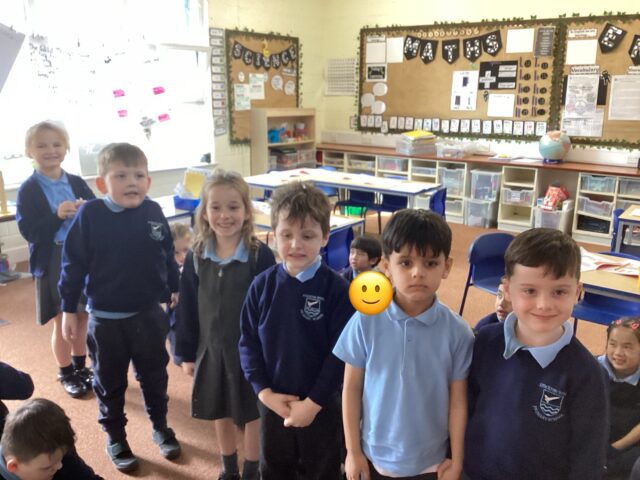


Year One – Maths
Amazing partitioning into tens and ones in maths today! Good use of base ten and part whole models.
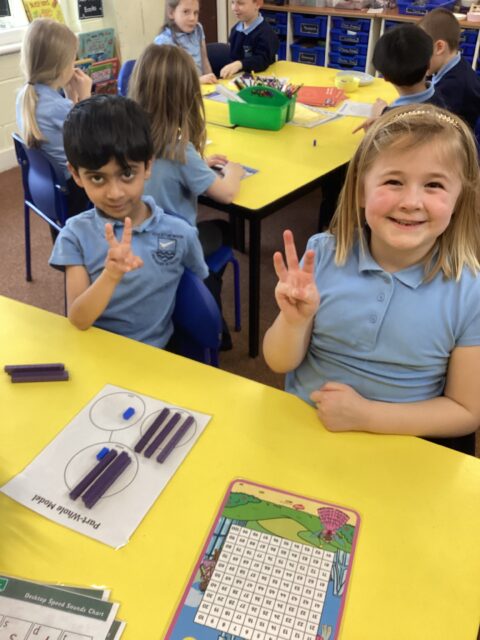


Stay and Learn
3McK enjoyed being mini teachers for the afternoon as they taught their adults how to measure shapes and work out their perimeters. Thank you to all the adults who attended!
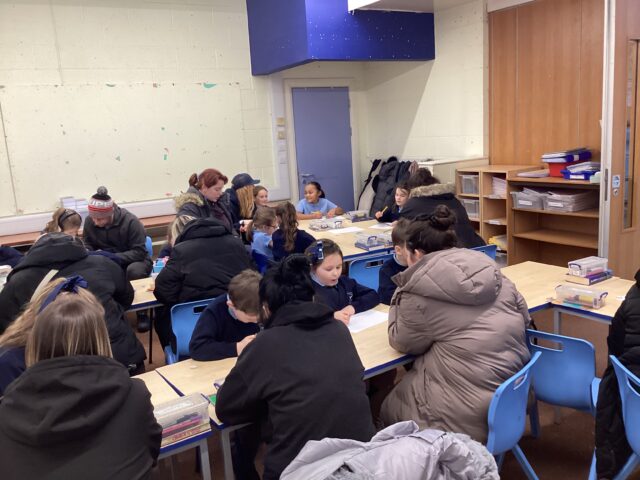
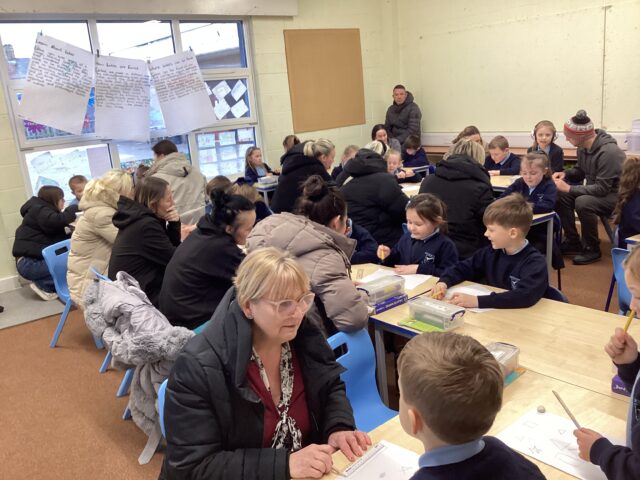

Maths teamwork 5H
5H have been working hard this week to master long multiplication. Today we worked together on our reasoning and problem solving question.
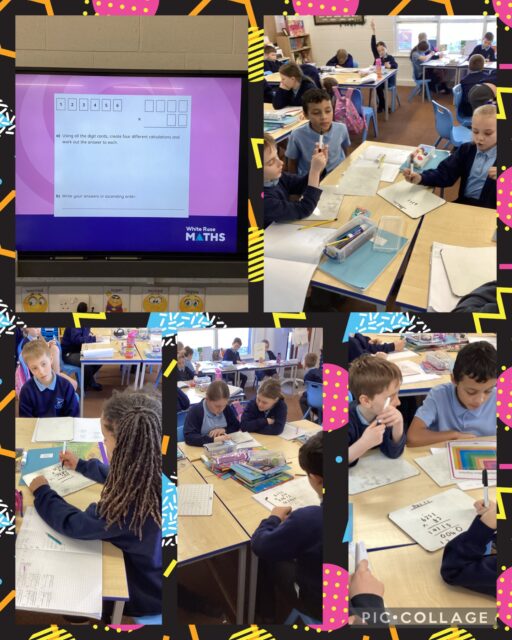

Jam Sandwiches
In maths reception have been exploring sequencing by ordering and following instructions on how to make a jam sandwich.
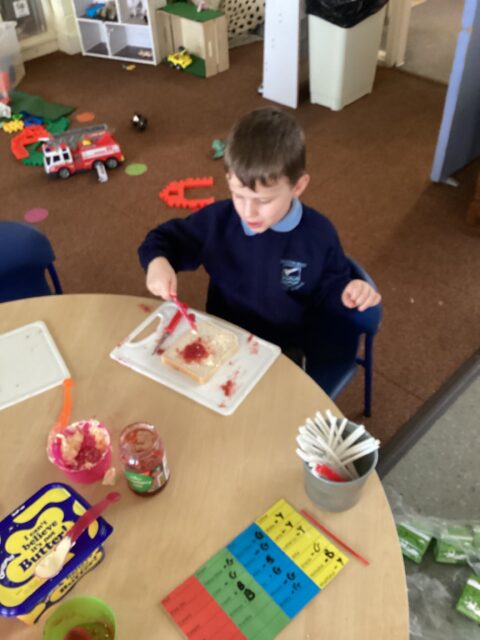


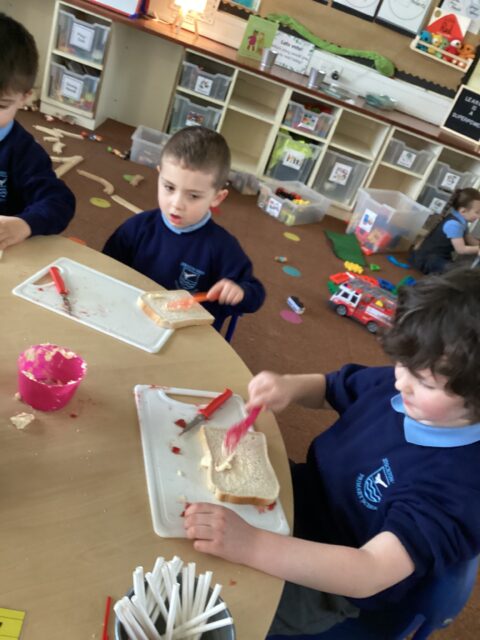
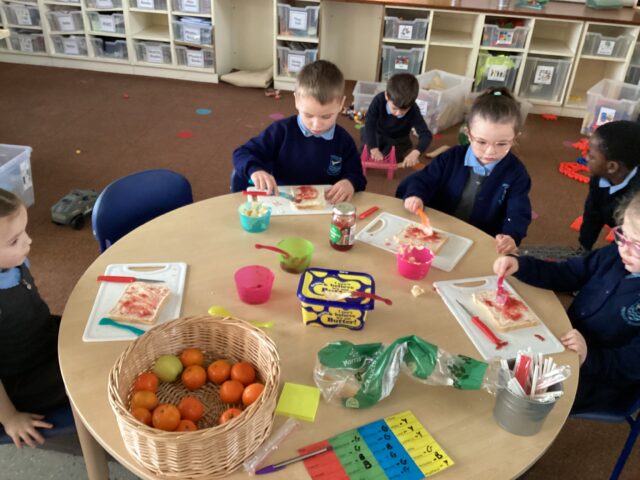
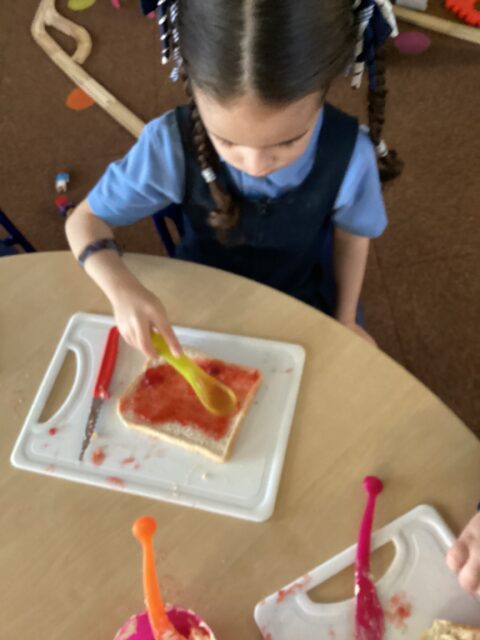
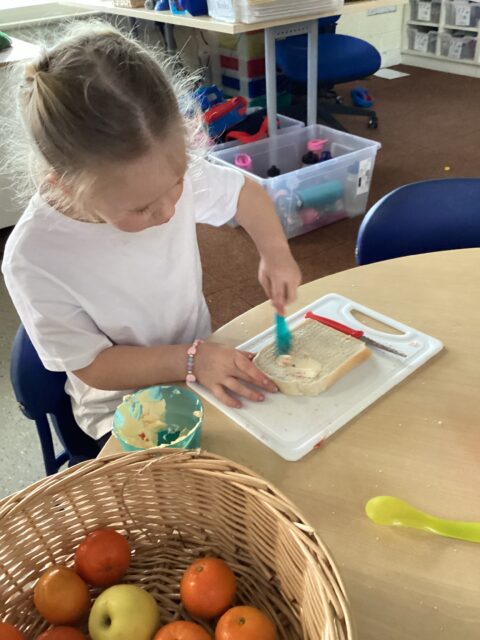
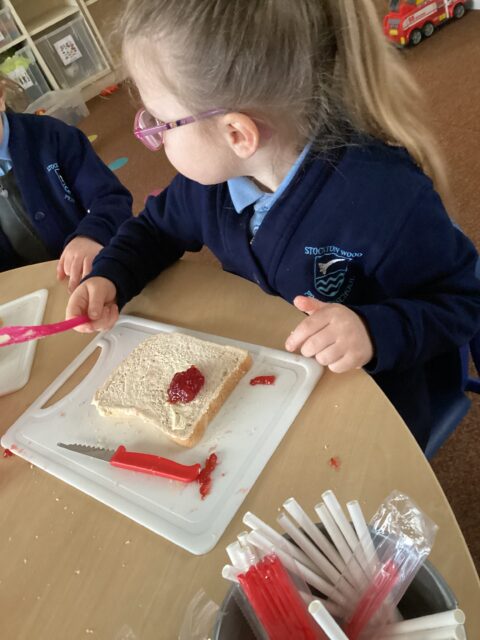
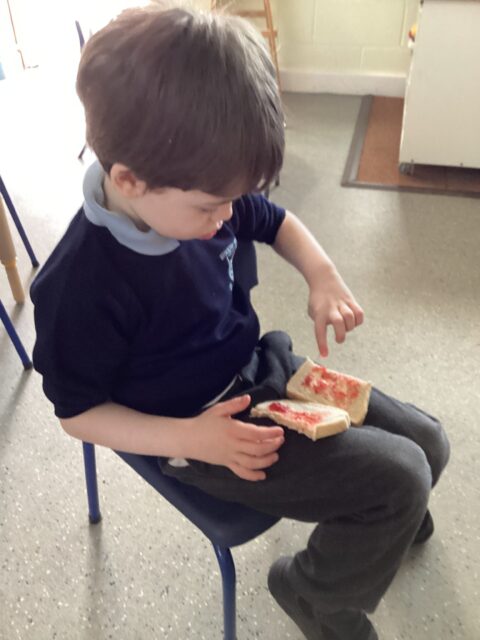
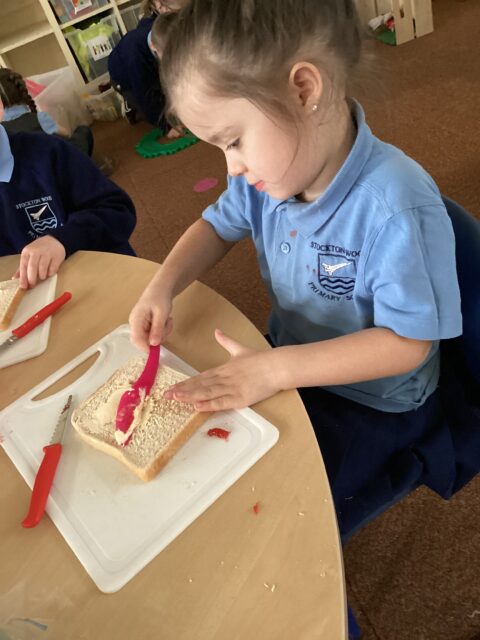
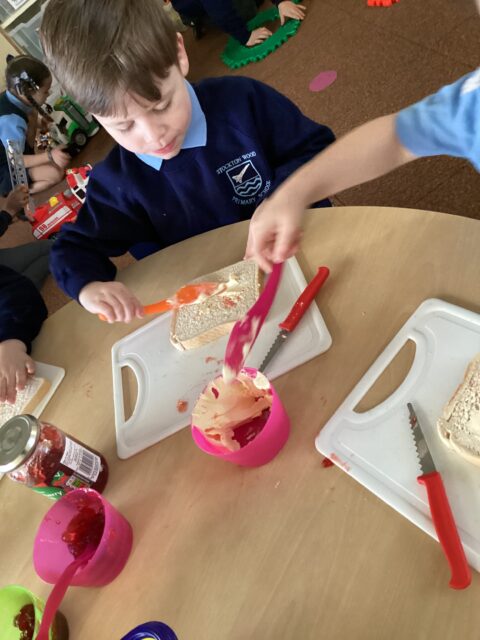
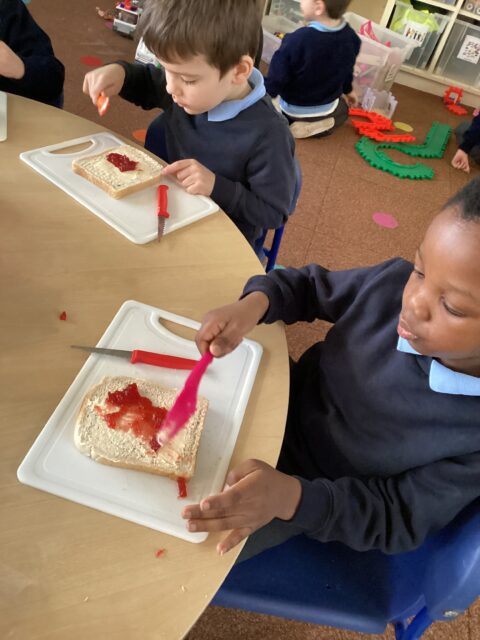
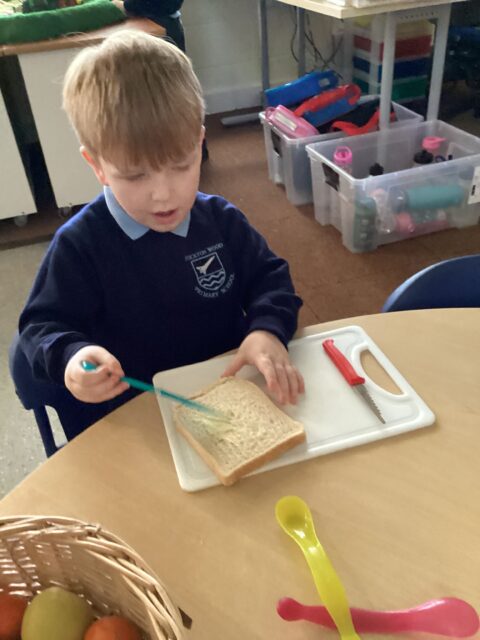
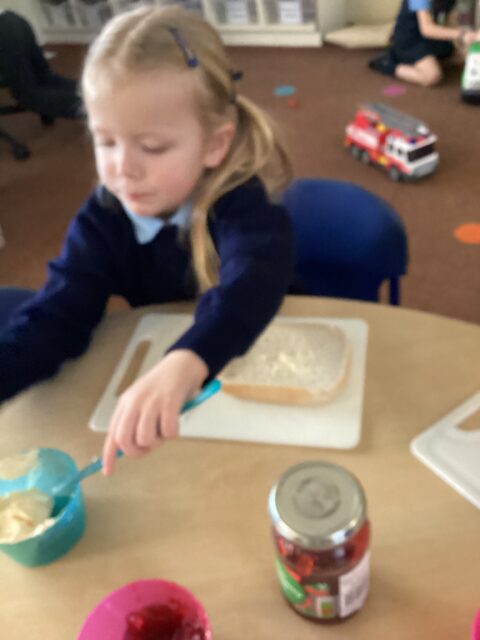
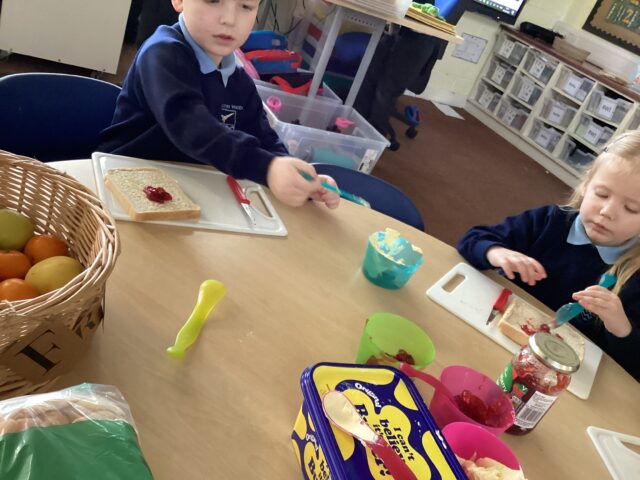

Year 6- Investigating angles
In Maths, Year 6 have been learning about vertically opposite angles equalling the same amount.
1.16K


Year 5 Parent Stay and Learn session
5M thoroughly enjoyed a bit of competition when solving two step word problems in our parent stay and learn session. Everyone was successful and seemed to have lots of fun. It is also evident that we have some great Mathematicians in our class!


Year 5 Stay and Learn
Wonderful stay and learn today. Solving maths problems in teams to win prizes! Well done everyone, we have some great mathematicians.


3M Stay and Learn
Thank you to those who were able to come to our stay and learn session focusing on measuring perimeter.






Maths Stay and Learn
Thank you to all the adults that came to our stay and learn this half term. We hope you enjoyed learning how to measure perimeter!



Stay and Learn
Thank you to everyone who joined us for stay and learn. We loved showing our grown-ups some of our times table games.





Stay and Learn Y6MR
Thank you to all parents who came to support our stay and learn today. Multiplication bingo and magic squares made for a fun maths morning.








Year 6- Stay and Learn
6B enjoyed multiplication bingo and solving Magic Square problems in our parent session this morning!
1.26K
Stay and Learn
Year 1 had a lovely time learning all about the history of St Valentine. We had fun with some Valentines maths problems too! Thank you to all our families for coming along!





Year One – Stay and Learn
We’ve had a fun filled afternoon learning all about the history of St Valentine and used our problem solving skills to solve calculations using numbers up to 20.





Year 4 ~ Stay and learn
Thank you for all the parents that came to join us this morning. Our session’s focus was times tables.



Stay and Learn
We have had a fantastic afternoon with our stay and learn! We enjoyed showing off our learning. Thank you to our families who helped us with our maths focus today!







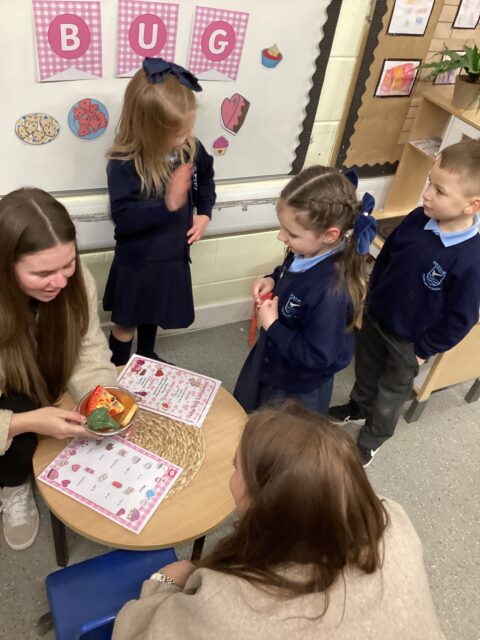

Stay and Learn
Thank you to all our families who joined us for stay and learn this morning! It was a huge success and the children really love welcoming their families into their classroom. We made our own dough, made some porridge and tasted it just like Goldilocks, cutting and sticking, and fine motor activities. The children really enjoyed it and we hope you did too 🥰

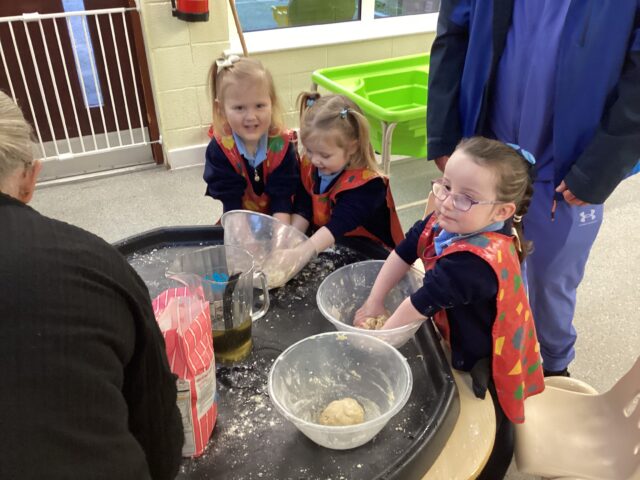

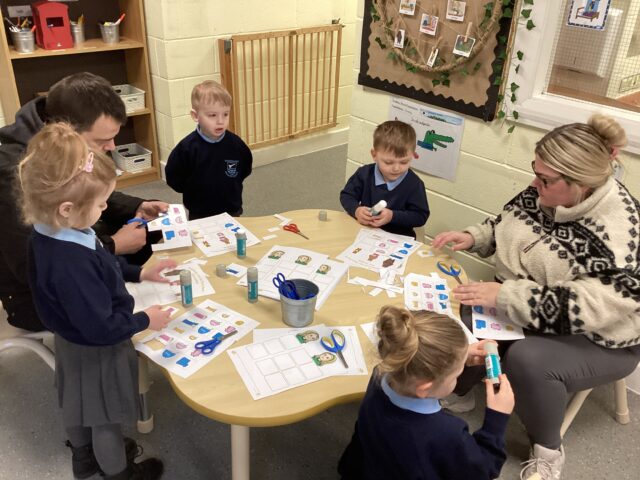
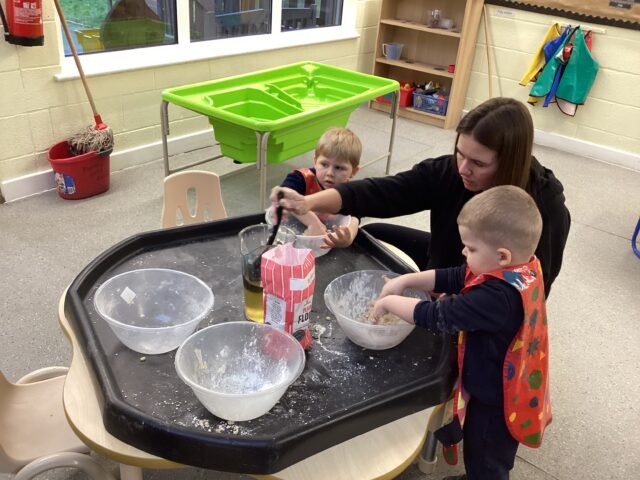
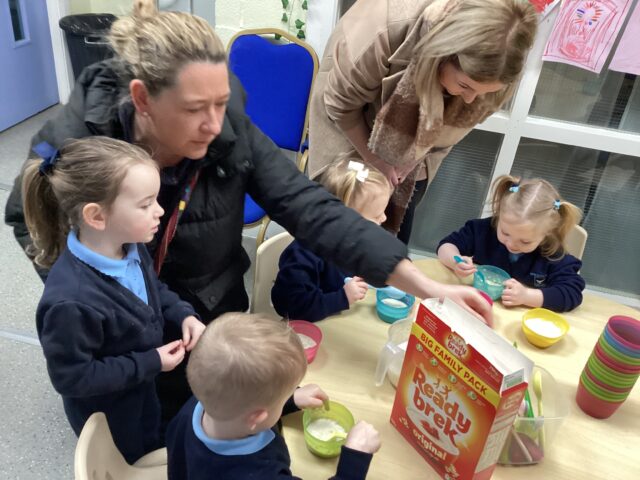
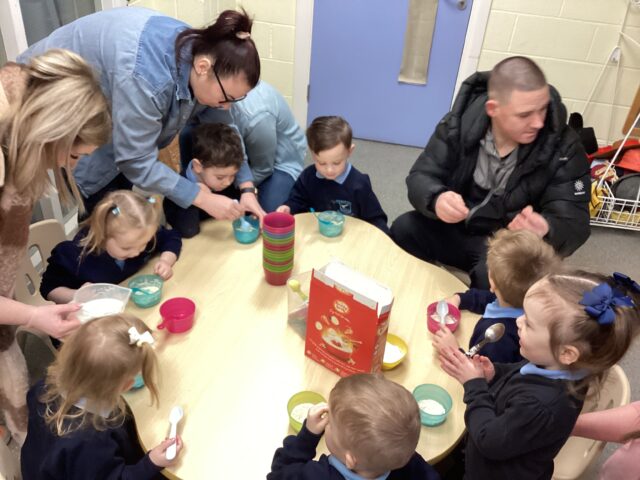


Big Cook, Little Cook
Have a look at our ingredients…what do you think is on the menu today? We had to listen really carefully to Mrs Sefton as she told us the steps of the recipe…








Year 5 CPA Maths!
5M consolidated their learning in Maths today, when they replaced the concrete resources with pictorial representations. This helped them to understand the mathematical concept further.

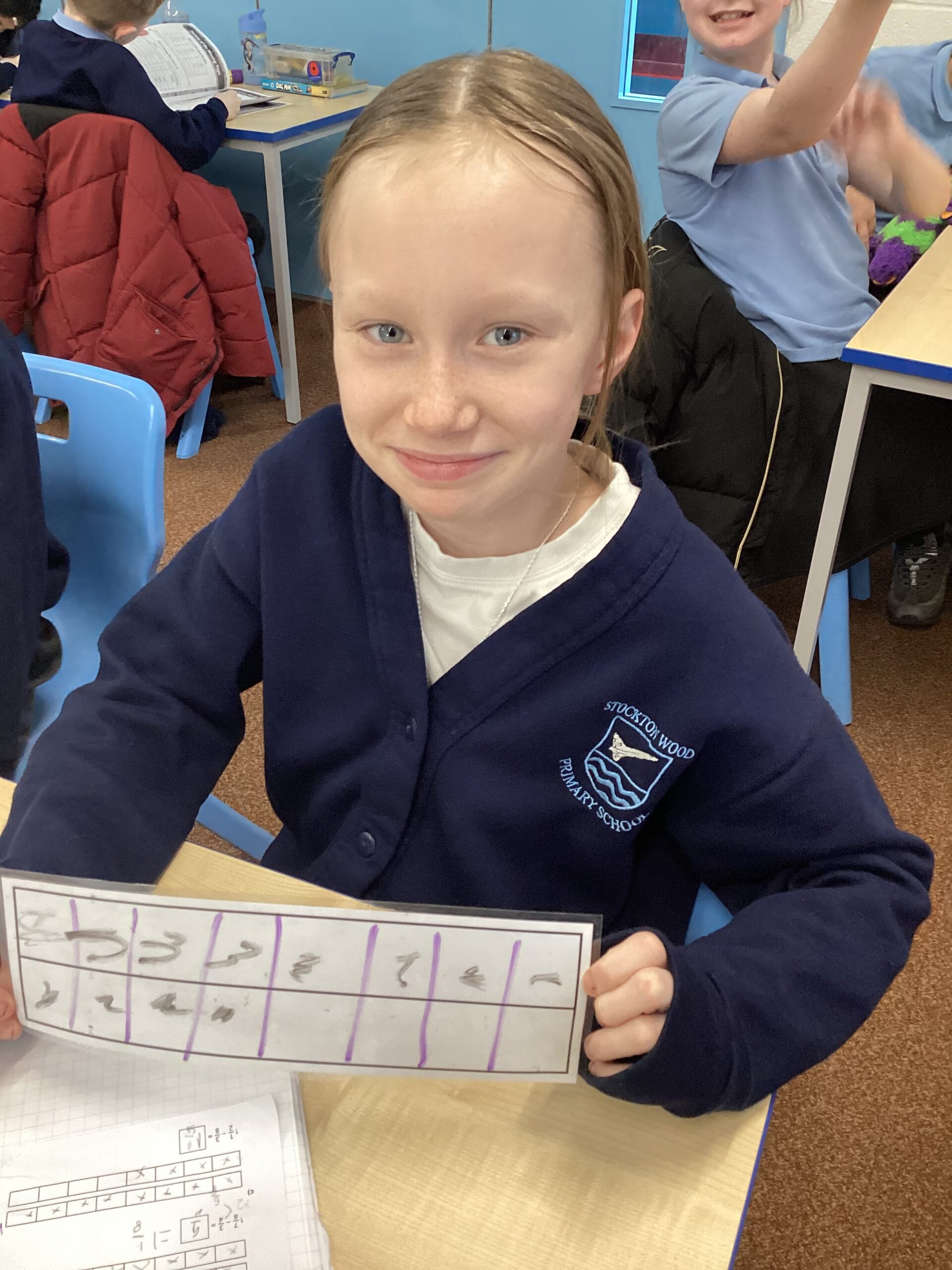


Year 5 – Concrete resources
5M used concrete resources in Maths today to help us add mixed numbers.

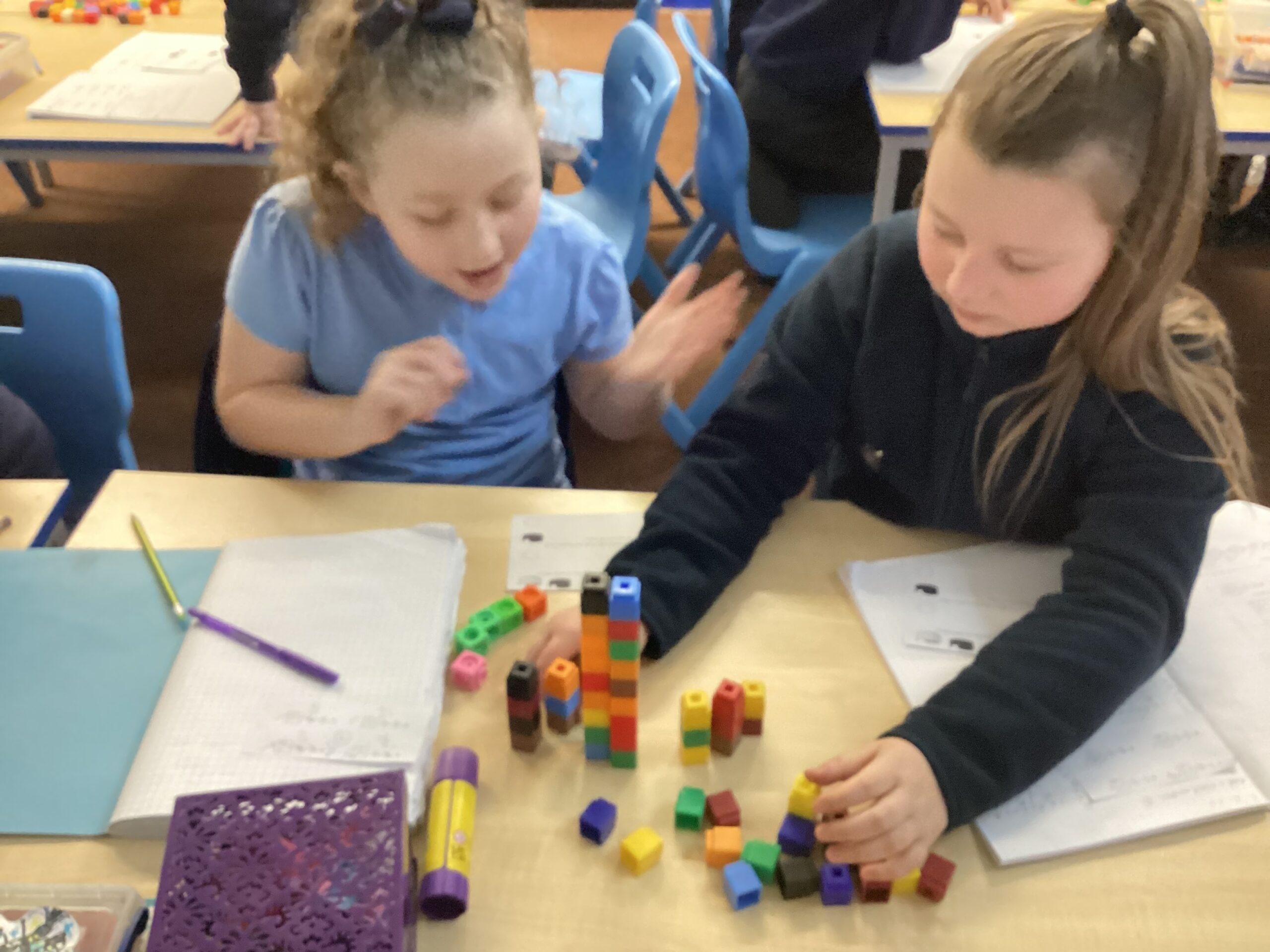


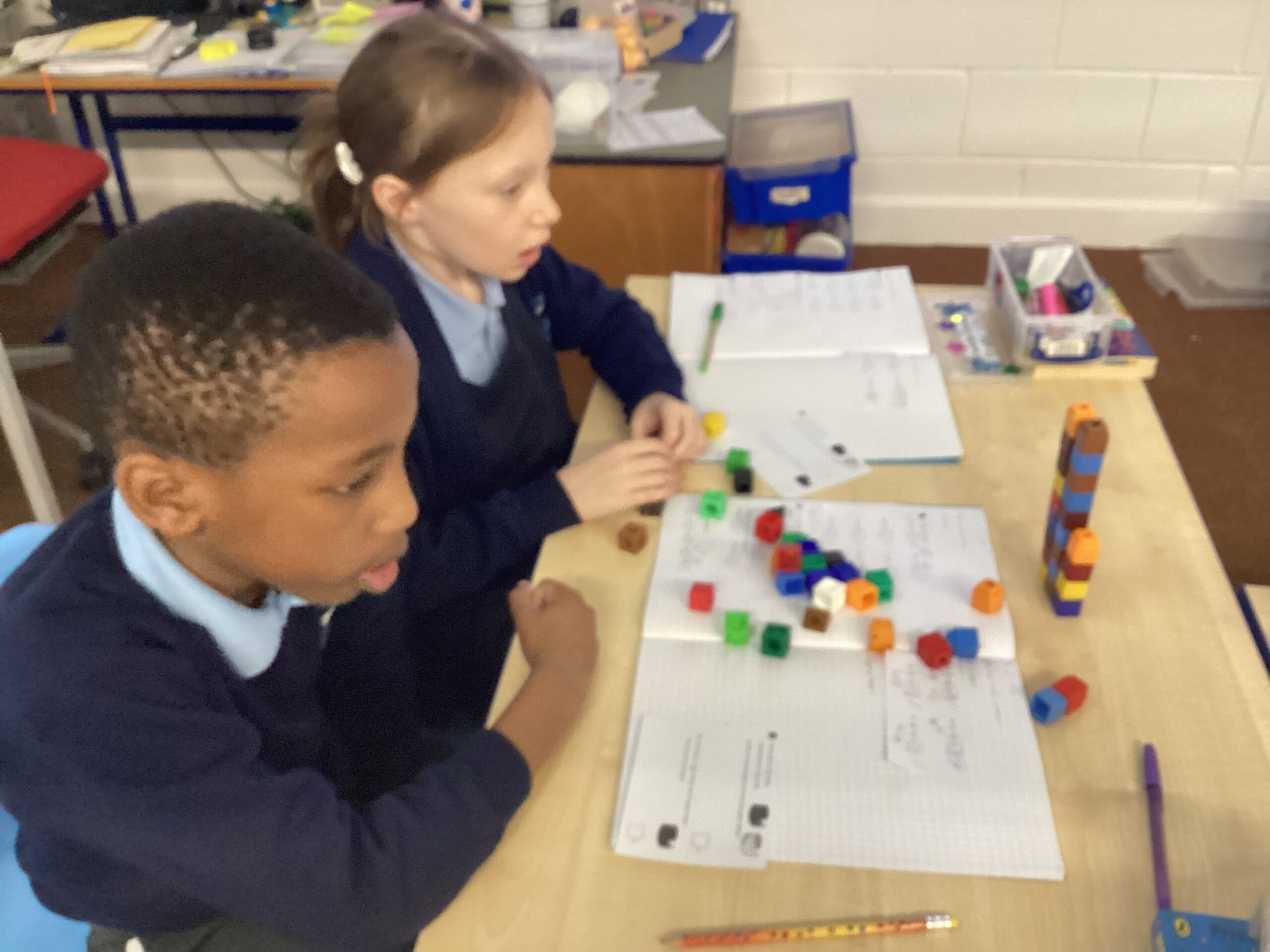


Year 1 Maths
1C worked really hard in maths this morning. We used concrete resources and pictorial representations to calculate near doubles. We will carry on with this learning next week!


multiplication and division
Year 4 have been enjoying Maths lessons this week. We have been using our resources to help with our multiplication and division.





Subitising 3
Did you know…we can now subitise 3! This means, if we see 3 objects together, we no longer need to count them! We know there are 3 objects just by making links and noticing patterns.



5H Big Friday Quiz!
5H enjoyed the BFQ today, with over 30 dojos to win! Well done!


Y2 Maths
2D have been working out groups of to write multiplication sentences today.
